*COMPETITIVE AGENCY FEE*
And many many Profiles that are not shown here
CALL 93361824 for profiles viewing and interview

INDIA, FILIPINO, MYANMAR, INDONESIA, BANGLADESH, SRILANKA
PUNJAB, SIKKIM, MIZORAM, DARJEELING, TAMIL TELGU ,GUJRAT
*Submit Your Requirement*
What should i do if My maid want to leave the job immediately?

Dealing with the sudden resignation of a maid can be a stressful and challenging situation for any household. Whether it's due to personal reasons, dissatisfaction with the job, or other factors, it's important to handle the situation professionally and ethically. This article will provide you with some tips and guidelines on what to do if your maid expresses a sudden desire to leave the job immediately. From communication strategies to legal considerations, we will help you navigate this situation with grace and professionalism.
Navigating the Challenges of an Immediate Maid Resignation
Dealing with the sudden resignation of a maid can be a stressful and challenging situation for any household. Whether it's due to personal reasons, dissatisfaction with the job, or other factors, it's important to handle the situation professionally and ethically. This article will provide you with some tips and guidelines on what to do if your maid expresses a sudden desire to leave the job immediately. From communication strategies to legal considerations, we will help you navigate this situation with grace and professionalism.
Understanding Your Maid's Concerns: Why Immediate Resignations Occur
It's essential to empathize with your maid's concerns when she expresses a sudden desire to leave the job. Immediate resignations can result from a variety of factors such as health issues, family emergencies, or work-related stress. By listening attentively and discussing her reasons for resignation, you can gain insight into her perspective and address any underlying issues. This compassionate approach can help foster a positive farewell and smooth transition for both parties involved. Stay tuned for our next section on navigating the legal and logistical aspects of a maid's sudden resignation.
Legal Considerations: Reviewing Employment Contracts and Rights
When faced with a maid's sudden resignation, it's crucial to review the employment contract to understand the legal obligations of both parties. Check for notice periods, termination clauses, and any specific provisions related to sudden resignations. Familiarize yourself with your maid's rights and ensure compliance with labor laws to prevent any potential disputes. Consulting with a legal professional may provide additional clarity on the legal implications of the resignation. Stay informed about your rights and responsibilities to handle the situation professionally and ethically. Keep reading for practical tips on managing logistical aspects of a maid's immediate departure.
Strategies for Addressing the Situation: Open Communication and Conflict Resolution
Maintaining open and honest communication is essential when your maid wants to leave the job unexpectedly. Approach the situation with empathy and understanding, and encourage your maid to express their reasons for wanting to resign immediately. Listen attentively and try to resolve any underlying issues that may have led to their decision. If conflicts arise, practice conflict resolution techniques to find a mutually beneficial solution. Prioritize professionalism and respect throughout the process to ensure a smooth transition for both parties. Stay tuned for practical advice on handling logistical challenges associated with a sudden departure.
Alternatives to Immediate Departure: Offering a Grace Period or Finding Compromise
Instead of allowing for an immediate departure, consider proposing a grace period to facilitate a smoother transition. During this time, discuss potential solutions that could address your maid's concerns while accommodating your household needs. Finding a compromise that benefits both parties may involve adjusting work hours, duties, or even resolving personal issues. By exploring alternative options before finalizing the decision, you demonstrate a commitment to resolving the situation amicably. Stay tuned for tips on adjusting household routines and seeking temporary assistance during this period of transition.
Creating a Positive Work Environment to Retain Domestic Staff
At Okaylah indian maid agency, fostering a positive work environment is crucial in retaining domestic staff. By listening to their concerns, being flexible, and finding mutually beneficial solutions, you can help prevent situations where your maid wants to leave immediately. Building a relationship based on respect, communication, and understanding will not only improve the working conditions but also create a harmonious atmosphere in your household. Stay tuned for upcoming posts on effective communication strategies and employee appreciation to further enhance your relationship with your domestic staff. Remember, a happy and satisfied employee is more likely to stay committed to their job.
Frequently Asked Questions: What to Do When Your Maid Wants to Leave Immediately
Question 1: How should I handle the situation if my maid expresses a desire to leave immediately?
Answer: Stay calm and discuss the reasons for their decision. Try to address any concerns they may have and see if there is a way to resolve the issue together before they decide to leave abruptly.
Question 2: What if my maid still wants to leave despite our efforts to resolve the issue?
Answer: Respect their decision and focus on finding a replacement. Ensure a smooth transition by providing any pending dues and necessary paperwork. Remember to maintain professionalism and wish them well in their future endeavors.
Understanding the Importance of Maid Hiring in Singapore

When it comes to hiring a maid in Singapore, there are several important steps that must be followed to ensure a smooth and successful process. From understanding the eligibility criteria to selecting the right employment agency, each step plays a crucial role in the hiring process. With strict regulations in place, it is essential to be well-informed and guided by the right resources. In this blog, we will outline the necessary steps and considerations to take when hiring a maid in Singapore.
Overview of Maid Employment Regulations and Legal Considerations in Singapore
Understanding the maid employment regulations and legal considerations in Singapore is crucial for a seamless hiring process. Singapore has strict guidelines in place to protect both the employer and the maid. It is important to familiarize yourself with the work permit application process, levy requirements, and employment contract regulations. Additionally, staying informed about the legal rights and responsibilities of both parties is essential to avoid any potential disputes in the future. In the next section, we will delve into the specific regulations and legal considerations that you need to be aware of when hiring a maid in Singapore. Stay tuned for valuable insights to help you navigate the hiring process effectively.
Steps to Identify Your Household Needs and Requirements for a Maid
Before hiring a maid in Singapore, it is crucial to assess your household needs and requirements. Consider factors such as the size of your family, specific tasks you need assistance with, dietary restrictions, or even language preferences. By clearly outlining your expectations and understanding the scope of work needed, you can effectively match these requirements with potential candidates. In the upcoming section, we will discuss how to determine your household needs and create a detailed job description to facilitate the hiring process. Stay tuned for expert tips on finding the right maid to meet your unique demands.
The Process of Finding a Reputable Maid Agency: What to Look For
When searching for a maid agency in Singapore, it is essential to prioritize credibility and reliability. Look for agencies with valid licenses from the Ministry of Manpower and a good track record of placing suitable maids. Consider agencies with positive reviews and testimonials from satisfied clients. Additionally, assess the range of services offered by the agency to ensure they align with your specific needs. Stay informed about any additional fees or regulations that may impact your hiring process. A reputable maid agency will guide you through the hiring steps and provide support along the way. Keep reading for insights on navigating the maid agency selection process effectively.
Conducting Interviews and Evaluating Candidates: Best Practices
When conducting interviews with maid candidates, it is crucial to prepare a list of questions that address your specific requirements, such as experience, skills, and cultural fit. Use this opportunity to assess their communication skills and attitudes towards work. Ask for relevant references and verify their work history to ensure authenticity. Additionally, consider conducting a trial task to evaluate their performance and suitability for your household. Keep the conversation professional and respectful throughout to establish a positive and transparent relationship with potential candidates. Following these best practices will help you make an informed decision when selecting the right maid for your needs.
Finalizing the Hiring Process: Contracts, Agreements, and Training
Once you've selected a suitable maid candidate, it is essential to proceed with finalizing the hiring process. Prepare a detailed employment contract outlining job responsibilities, working hours, salary, benefits, and termination clauses. Both parties should review and sign the agreement to ensure a clear understanding of the terms. Provide training on household protocols, safety procedures, and any specific tasks unique to your home. Emphasize open communication channels and mutual respect to foster a harmonious work environment. Regularly assess performance and provide feedback to support continuous improvement. Stay compliant with Singapore's regulations on hiring domestic helpers for a smooth and successful working relationship.
Ensuring a Successful Employment Relationship with Your Maid
At Okaylah indian maid agency, As the final step in the maid hiring process, dedicating time and effort to establishing clear expectations through detailed contracts, training, and open communication is crucial. By fostering a respectful and supportive environment, you create a foundation for a successful working relationship with your maid. Regular performance assessments and constructive feedback will enable both parties to address any concerns promptly and work towards continuous improvement. By adhering to Singapore's regulations and upholding mutual respect, you pave the way for a harmonious and fruitful partnership with your maid. Remember, effective communication and a supportive environment are key to a successful and enduring employment relationship.
What should i do if Maid is showing arrogance ?

Dealing with a maid who displays arrogance can be a frustrating and challenging situation for any homeowner. It is important to address this behavior promptly and professionally to ensure a harmonious working relationship. In this blog post, we will discuss the steps you can take to handle a maid who is showing arrogance, including communication strategies, setting boundaries, and seeking support if necessary. Stay tuned to learn how to navigate this delicate situation with grace and efficacy.
Understanding the Causes of Arrogance in Domestic Helpers
Understanding the causes of arrogance in domestic helpers is crucial in effectively addressing and resolving this behavior. Arrogance can stem from various factors such as lack of communication, misaligned expectations, or personal issues. Taking the time to empathize and identify the root cause of the maid's behavior will enable you to approach the situation with compassion and clarity. In the next section, we will delve into common reasons for arrogance in domestic helpers and provide insights on how to address them constructively. Stay tuned for practical tips on fostering a positive and respectful working environment.
Effective Communication Strategies to Manage Arrogance
Once you've identified the underlying causes of arrogance in your domestic helper, implementing effective communication strategies is key. Clearly communicate your expectations, provide constructive feedback, and listen actively to understand their perspective. Encourage open dialogue to address any misunderstandings or grievances promptly. Establishing boundaries and maintaining a professional yet empathetic demeanor can help navigate challenging situations with a sense of mutual respect. Stay tuned for practical tips on fostering a harmonious relationship with your maid through effective communication techniques.
Setting Clear Expectations and Boundaries with Your Maid
Setting clear expectations and boundaries with your maid is crucial in addressing arrogance. Clearly outline roles, responsibilities, and behavioral expectations from the beginning. Consistently communicate and reinforce these boundaries in a respectful and professional manner. By setting clear guidelines, you establish a framework for mutual understanding and respect. Effective communication in this aspect can prevent misunderstandings and potential conflicts. Stay tuned for valuable insights on how to effectively set boundaries and expectations to maintain a harmonious relationship with your maid.
The Importance of Regular Feedback and Performance Reviews
Feedback and performance reviews are essential in addressing arrogance from a maid. Regular feedback sessions allow you to discuss any concerns, provide constructive criticism, and acknowledge positive behavior. Additionally, performance reviews offer an opportunity to assess whether expectations are being met and to set new goals if needed. By providing feedback in a structured and consistent manner, you can guide your maid towards professional growth and accountability. Stay tuned for practical tips on conducting effective feedback sessions and performance evaluations to manage arrogance effectively in the workplace.
When to Consider Professional Mediation or Support
When feedback and performance reviews do not yield improvements in your maid's behavior, it may be time to consider professional mediation or support. Professional mediators can help facilitate constructive discussions to address the root causes of arrogance and find mutually agreeable solutions. Seek guidance from HR professionals or employment consultants to navigate challenging situations with your maid effectively. Remember, seeking external support demonstrates your commitment to fostering a positive and respectful work environment for everyone involved. Stay tuned for tips on how to approach external mediation and support services in managing arrogance in the workplace.
Fostering a Positive Work Environment for Household Staff
At Okaylah indian maid agency, Creating a harmonious work environment for your household staff is essential for optimal productivity and well-being. When faced with challenges like arrogance from your maid, addressing the issue promptly and professionally is key. By seeking external mediation and support when necessary, you demonstrate a commitment to resolving conflicts and promoting a culture of mutual respect. Remember, effective communication, feedback, and a willingness to address issues head-on are crucial in fostering a positive work environment. Stay proactive in managing behaviors that may disrupt the harmony within your household, and prioritize the well-being and satisfaction of both your maid and your family.
My Maid is inviting her friends to my home without my permission

As a homeowner, it is important to establish clear boundaries with household staff to maintain privacy and security within your home. In some cases, domestic workers may take liberties that cross the line, such as inviting friends or acquaintances into your personal space without your knowledge or consent. This breach of trust can be concerning and requires immediate action to address the situation. In this article, we will discuss how to handle the delicate issue of unauthorized guests in your home and protect your privacy and safety.
Understanding the Dynamics of Employer-Employee Relationships
In the context of employer-employee relationships, it is crucial to establish clear expectations and boundaries to ensure a harmonious working environment. As the employer, it is your responsibility to communicate openly and respectfully with your domestic staff about what is and is not acceptable within your home. Understanding the dynamics of this relationship can help prevent any misunderstandings or breaches of trust, such as unauthorized guests being invited into your personal space. By fostering a culture of mutual respect and clear communication, you can effectively address issues like this and maintain a positive and professional relationship with your household staff.
Potential Risks and Concerns of Inviting Guests into Your Home
When your maid invites friends into your home without your permission, it can lead to various risks and concerns. Unauthorized guests may compromise the security and privacy of your household. Additionally, their presence can disrupt the established routines and dynamics within your home, causing discomfort and potential conflicts. It is essential to address this issue promptly to maintain a safe and professional living environment. In the upcoming section, we will discuss effective ways to handle such situations and safeguard your home's integrity. Stay tuned for valuable insights on setting boundaries and ensuring a secure household environment.
Establishing Clear Communication and Expectations with Your Maid
Communication is key when addressing the issue of unauthorized guests in your home. Schedule a meeting with your maid to discuss your concerns and clearly outline your expectations regarding visitors. Emphasize the importance of respecting your privacy and household rules. Seek mutual understanding and cooperation to prevent any future misunderstandings. Establishing boundaries and setting clear guidelines will help maintain a harmonious relationship with your maid and ensure a secure living environment. In the following section, we will delve into effective communication strategies and practical steps to enforce your boundaries respectfully. Stay tuned for actionable tips to address this issue effectively.
Legal Considerations: Tenant Rights vs. Employee Privileges
Understanding the legal aspects regarding unauthorized guests in your home is crucial. While tenants have certain rights to their living space, employees must adhere to your household rules. Familiarize yourself with local tenancy laws and labor regulations to determine the best course of action. Consulting with a legal professional can provide valuable insights and guidance on how to handle this delicate situation within the bounds of the law. In the upcoming section, we will explore the importance of legal knowledge and how it can empower you to navigate these challenges effectively. Stay informed and empowered to protect your rights and maintain a respectful relationship with your maid.
Developing a Household Policy on Guests
Creating a clear and concise household policy on guests is essential to avoid potential misunderstandings and conflicts. Sit down with your maid to discuss your expectations regarding visitors in your home. Establish boundaries on who is allowed to visit and under what circumstances. Clearly outline the consequences of unauthorized guests to ensure a mutual understanding. By setting up a transparent and fair policy, you can protect your privacy and maintain a harmonious environment. In the following section, we will delve into effective communication strategies to address this issue sensitively with your maid. Craft a guest policy that respects both your rights as a homeowner and your maid's role within your household.
Maintaining Professionalism and Respect in Household Staff Relations
At Okaylah indian maid agency, fostering a professional and respectful relationship with your maid is crucial in ensuring a harmonious household atmosphere. By establishing clear guidelines on guest visits and effectively communicating your expectations, you not only protect your privacy but also demonstrate respect for your maid's role in your home. It is essential to address any issues promptly and sensitively to maintain a positive working relationship. Remember, mutual respect and professionalism are key to creating a conducive and pleasant living environment for everyone involved. Stay tuned for our upcoming blog post on effective communication strategies to navigate challenges with household staff gracefully.
Maid is forgetting to give water to my plants?
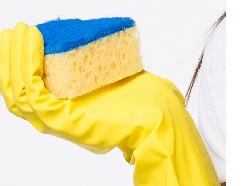
As a homeowner, it can be frustrating and concerning when you notice that your maid is forgetting to water your plants. Adequate hydration is crucial for the health and vitality of your indoor greenery, and neglecting this task can result in wilting leaves and even plant death. In this blog post, we will discuss the importance of plant care, the potential consequences of neglecting watering, and practical solutions for addressing this issue with your maid to ensure the well-being of your beloved plants.
Understanding the Importance of Plant Care and Hydration
As a homeowner, it can be frustrating and concerning when you notice that your maid is forgetting to water your plants. Adequate hydration is crucial for the health and vitality of your indoor greenery, and neglecting this task can result in wilting leaves and even plant death. In this blog post, we will discuss the importance of plant care, the potential consequences of neglecting watering, and practical solutions for addressing this issue with your maid to ensure the well-being of your beloved plants.
The Role of Housekeepers in Home Maintenance: Managing Plant Care
Housekeepers play a vital role in maintaining the overall health and well-being of your home, including the care of indoor plants. Proper plant care involves more than just watering; it also encompasses aspects such as ensuring adequate sunlight, appropriate fertilization, and regular pruning. When communicating with your maid about plant care, emphasize the significance of following a consistent watering schedule and observing any specific needs of different plant species. Consider providing clear instructions or notes to help them understand the individual requirements of each plant. By working together and prioritizing plant care, you can ensure that your indoor greenery thrives and beautifies your living space.
Common Reasons for Negligence in Plant Watering
While it's essential to provide clear instructions to your maid regarding plant care, occasional forgetfulness may still occur. Common reasons for negligence in plant watering could include a busy schedule, lack of awareness about plant needs, or simply forgetting due to other responsibilities. To address this issue effectively, consider setting up reminders or a watering schedule that is easily accessible to your maid. Additionally, regular communication and gentle reminders can help reinforce the importance of consistent plant care. By identifying and addressing the root cause of negligence, you can ensure that your plants receive the attention they need for optimal growth and health.
Best Practices for Effective Communication with Your Maid
Clear and open communication is key to resolving issues like forgetting to water plants. Establish a designated time for discussing plant care duties with your maid. Provide detailed instructions on watering frequency, methods, and any specific plant needs. Encourage your maid to ask questions and seek clarification to ensure a mutual understanding. Utilize visual aids or written notes to supplement verbal instructions and serve as a reference. Regularly check in and offer constructive feedback to reinforce the importance of plant care. By fostering a collaborative and communicative environment, you can improve your maid's attentiveness to plant maintenance tasks and promote successful outcomes.
Establishing a Plant Care Routine: Tips for Consistency
Consistency is key to ensuring your plants thrive. Set up a plant care routine that aligns with your household's schedule and your maid's availability. Designate specific days and times for watering, fertilizing, and other maintenance tasks. Encourage your maid to follow the routine diligently and make adjustments as needed based on plant health and seasonal changes. Consider setting up reminders or alarms to help maintain consistency. By establishing a structured plant care routine, you can create a habit that not only benefits your plants but also enhances your maid's attentiveness and accountability in caring for them.
The Impact of Proper Hydration on Plant Health and Growth
Water is vital for your plants' health and growth. Consistent hydration ensures that essential nutrients are transported to all parts of the plant, facilitating photosynthesis and overall well-being. Lack of water can lead to wilting, stunted growth, and even plant death. By emphasizing the importance of proper hydration to your maid, you can help maintain the vibrancy and longevity of your plants. Encourage regular checks on soil moisture levels and adjust watering frequency as needed to adapt to changing weather conditions. Remember, a well-hydrated plant is a happy plant!
Ensuring Optimal Care for Your Plants Through Responsibility and Communication
At Okaylah indian maid agency, overseeing the well-being of your plants requires a responsible approach from all parties involved. Communicate clearly with your maid about the importance of watering your plants consistently. Establish a routine for plant care tasks and provide guidance on how to check for soil moisture levels. By fostering open communication and sharing knowledge about plant care, you can work together to ensure that your plants receive the necessary hydration for their growth and vitality. Remember, by taking proactive steps and collaborating effectively, you can create a thriving environment for your beloved plants to flourish.
what should i do, if my maid went on off-day without informing me?

Having a maid unexpectedly go on an off day without informing you can be a frustrating situation to deal with. As a professional, it's important to handle this matter calmly and effectively. In this article, we will discuss the best steps to take if your maid goes on an off day without notifying you. From establishing clear communication protocols to setting boundaries, we will provide you with expert advice on how to manage this situation with professionalism and efficiency.
The Importance of Communication in Domestic Help Arrangements
Effective communication is key in maintaining a successful relationship with your domestic help. Clearly establish expectations, schedules, and boundaries from the beginning to prevent misunderstandings. Encourage open dialogue and ensure that your maid understands the importance of informing you before taking time off. By fostering a culture of communication and respect, both parties can work together harmoniously towards a mutually beneficial arrangement. Stay tuned for more tips on how to navigate and improve your relationship with your domestic help.
Common Reasons for a Maid Taking an Off Day Without Notification
While communication is vital in any domestic help arrangement, there may be instances where your maid goes on an off day without informing you. Common reasons include emergencies, personal commitments, or misunderstandings. It's important to address such situations calmly and with understanding. In the next section, we will explore effective ways to handle these scenarios and ensure a smoother communication process between you and your domestic help. Stay informed for practical tips on managing unexpected absences and maintaining a positive working relationship.
Professional Etiquette: What to Do When Your Maid is Absent
Maintaining professionalism when your maid takes an off day without informing you is crucial. Stay calm and assess the situation before taking any action. Reach out to your maid through a polite message or call to understand the reason for their absence. Establish clear communication guidelines to prevent such instances in the future. It's also advisable to have a backup plan in place for emergencies. In the following section, we will discuss proactive measures to handle unexpected absences and foster a respectful working environment in your home. Stay tuned for practical tips on managing and preventing such situations effectively.
Setting Clear Expectations and Guidelines with Household Staff
Effective communication is key when setting expectations with household staff. Clearly outline working hours, off days, and communication protocols in the employment contract. Regularly review and update these guidelines to ensure mutual understanding and respect. Encourage open dialogue to address any concerns or issues promptly. By establishing clear expectations, you create a harmonious working relationship built on trust and professionalism. In the upcoming section, we will delve into strategies for effective communication and conflict resolution with household staff. Stay tuned for valuable insights on fostering a positive and productive work environment at home.
Resolving Conflicts: How to Address the Situation with Your Maid
If your maid went on an off day without informing you, it is essential to communicate your concerns calmly and respectfully. Approach the situation by seeking clarification on the reason behind her actions. Express the importance of open communication and adherence to agreed-upon guidelines. Listen to her perspective to understand her reasoning and address any underlying issues. Together, establish protocols to prevent similar incidents in the future. By addressing conflicts promptly and constructively, you can nurture a positive and professional relationship with your household staff. Stay tuned for practical tips on handling conflicts and fostering a harmonious home environment.
Building a Positive Working Relationship with Your Maid
At Okaylah indian maid agency, Maintaining a positive working relationship with your maid requires mutual respect, effective communication, and clear boundaries. By addressing conflicts promptly and constructively, you lay the foundation for a harmonious environment in your home. Remember, open dialogue and understanding go a long way in resolving issues and fostering a professional atmosphere. Stay tuned for more insights on enhancing your communication skills and creating a supportive working dynamic with your household staff. Your efforts in promoting a positive working relationship will not only benefit you but also contribute to the overall well-being and productivity of your household.
The Role of Maid in Supervision of Child Safety at Playgrounds
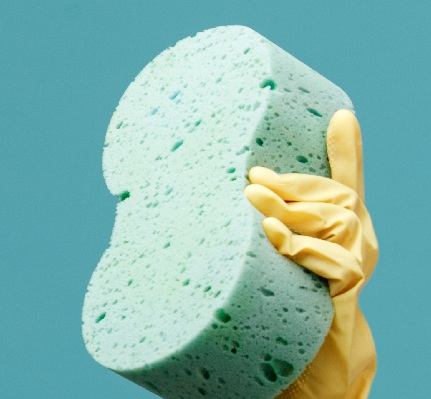
Maintaining a professional demeanor in childcare is of utmost importance. Parents entrust their children to the care of nannies or maids with the expectation that they will prioritize the safety and well-being of their little ones. Unfortunately, there are instances where caregivers may get distracted and fail to supervise children adequately. In this blog post, we will address the scenario of a maid neglecting her duties by engaging in gossip instead of watching young kids at the playground. We will discuss the potential risks associated with this behavior and provide insights on how to handle such situations effectively.
Understanding the Responsibilities of Caregivers in Child Supervision
As caregivers entrusted with the safety and well-being of children, it is imperative to acknowledge the gravity of our responsibilities. Supervising young kids in playgrounds goes beyond mere observation; it requires undivided attention and proactive engagement to ensure their protection. Prioritizing gossip over child supervision not only jeopardizes the children's safety but also breaches the trust bestowed upon us by parents. In the following section, we will delve into the essential duties and qualities that caregivers must possess to fulfill their role diligently and uphold the standard of care expected in childcare settings. Stay tuned for practical tips on enhancing supervision practices and maintaining professionalism in all aspects of caregiving.
The Risks Associated with Neglectful Supervision in Playground Settings
Neglectful supervision in playground settings can have serious consequences, ranging from minor injuries to potentially life-threatening situations. When caregivers are preoccupied with gossip or distractions, children are left vulnerable to accidents, conflicts, or even strangers. Failing to uphold proper supervision puts both the children and the caregiver at risk, as it can lead to legal implications and damaged relationships with families. In our upcoming discussion, we will explore these risks in detail, highlighting real-life scenarios that emphasize the critical importance of vigilant and attentive supervision in playground settings. Let's delve into this crucial topic to understand how we can prevent and mitigate such risks effectively. Stay tuned for insightful insights and guidance on promoting child safety in all environments.
Effective Communication: Addressing Concerns with Caregivers
Ensuring open and clear communication with caregivers is paramount when addressing issues of neglectful supervision in playground settings. Approaching the situation tactfully and empathetically can facilitate a constructive dialogue that emphasizes the importance of maintaining a safe environment for all children. By expressing concerns and observations in a non-confrontational manner, caregivers are more likely to understand the gravity of their responsibilities and the potential risks posed by their actions. In the next segment, we will delve into effective communication strategies to address supervision concerns without compromising professional relationships. Stay tuned for practical tips on fostering collaboration and proactive solutions to promote child well-being in playground settings.
Strategies for Parents to Ensure Their Children's Safety While Playing
Parents play a crucial role in ensuring their children's safety while playing in public spaces. One effective strategy is to establish clear expectations with the caregiver regarding supervision standards. Regularly reviewing safety protocols and providing additional support or resources when needed can help maintain a safe environment for all children. Furthermore, actively engaging with your child during playtime can provide an extra layer of supervision and reassurance. Stay tuned for practical tips on how parents can collaborate with caregivers to create a secure and enjoyable playground experience for their children. Stay informed and empowered when it comes to your child's safety.
Professional Standards for Caregivers: Importance of Vigilance in Childcare
Professional caregivers need to uphold high standards of vigilance when supervising children in public spaces. It is essential for them to prioritize the safety and well-being of the children under their care at all times. Engaging in gossip or other distractions while neglecting their supervisory duties is unacceptable and can lead to dangerous situations. Caregivers must be fully present, attentive, and proactive in monitoring children's activities to prevent accidents and ensure a secure environment. In the next blog section, we will delve into specific guidelines and best practices for caregivers to maintain a safe and attentive approach while watching over children in playgrounds. Stay tuned for key insights on promoting a safe and nurturing environment for children in public settings.
Advocating for Enhanced Supervision Practices in Playgrounds
At Okaylah indian maid agency, the proper supervision of children in playgrounds is paramount for ensuring their safety and well-being. Caregivers must prioritize vigilance and attentiveness over distractions like gossip, as negligence can lead to potential harm. By adhering to professional standards and guidelines, caregivers can create a secure environment where children can play and explore safely. In the next blog post, we will discuss practical tips and strategies for caregivers to maintain active supervision in playground settings. Let's work together to advocate for enhanced supervision practices that promote a positive and secure experience for children in public spaces. Stay tuned for valuable insights on elevating childcare standards in playgrounds.
Impact of Hiring a New Maid on Utility Bills

Understanding your utility bill components is essential to pinpoint what factors contributed to the increased costs. Factors such as increased energy consumption, inefficient appliances, or potential leaks can significantly impact your bill. Monitoring usage patterns and investing in energy-efficient solutions can help lower costs in the long run. Stay tuned as we delve deeper into strategies to optimize your utility usage and control expenses effectively.
Common Reasons for Increased Utility Consumption After Hiring Domestic Help
1. Extended hours of appliance usage for laundry and cooking. 2. Inefficient use of water for cleaning or gardening. 3. Lack of awareness about energy-saving practices. 4. Increased use of air conditioning or heating systems. 5. Additional lighting or electronic devices in use. Identifying these key factors can aid in addressing the spike in utility bills. Stay tuned for effective solutions to mitigate these issues and manage your expenses efficiently.
Practical Tips for Managing Utility Costs When Employing Household Staff
1. Set clear guidelines for appliance usage and encourage efficient practices. 2. Educate your maid on water-saving techniques and encourage responsible usage. 3. Train your domestic help on energy-saving habits to reduce consumption. 4. Opt for energy-efficient appliances and set timers for heating or cooling systems. 5. Consider installing motion-sensor lighting to minimize unnecessary usage. Implementing these strategies will not only help in reducing utility bills but also promote a sustainable and cost-effective household management approach. Stay informed for more practical solutions in our upcoming posts.
Evaluating the Effectiveness of Energy-Efficient Practices in Your Home
After implementing energy-saving tips with your household staff, it's essential to monitor and evaluate the impact on your utility bills. Keep track of your energy and water consumption to see if there are any noticeable changes. Compare your current bills with previous months to assess any improvements. Additionally, consider conducting an energy audit to identify areas where further efficiency measures can be implemented. By regularly evaluating the effectiveness of these practices, you can ensure sustainable cost savings and a more eco-friendly household. Stay tuned for more insights on optimizing energy efficiency in your home.
Frequently Asked Questions: Addressing Common Concerns Regarding Utility Bills
Are you puzzled about sudden spikes in your utility bills? In this section, we will address commonly asked questions regarding such concerns. From understanding the impact of household appliances on energy consumption to tips for optimizing heating and cooling systems, we'll provide expert insights to help you manage and reduce your utility costs effectively. Stay informed to make informed decisions and ensure that you are on the right track towards a more energy-efficient home. Keep reading for valuable advice on how to address common concerns related to utility bills.
Steps to Minimize Utility Expenses While Employing Help
If you've recently noticed a spike in your utility bills after hiring a new maid, don't worry. While having extra help around the house can lead to increased energy consumption, there are steps you can take to minimize these expenses. Implementing energy-efficient practices such as using appliances during off-peak hours, setting programmable thermostats, and educating your maid about the importance of conserving energy can help lower your utility costs. At Okaylah indian maid agency, By being mindful of your energy usage and adopting smart habits, you can enjoy a clean home without breaking the bank. Stay proactive in managing your utility expenses and reap the benefits of a more cost-effective household.
Full-Time Maids vs. Part-Time Helpers

When it comes to maintaining a clean and organized home, many individuals are faced with the decision of whether to hire a full-time maid or a part-time helper. Both options have their own set of pros and cons, and it can be challenging to determine which is the best choice for your specific needs. In this article, we will explore the factors to consider when deciding between hiring a full-time maid or a part-time helper, and provide insights to help you make an informed decision. Stay tuned to learn more about the benefits and drawbacks of each option.
Understanding the Role of Full-Time Maids in Household Management
Hiring a full-time maid can offer several advantages when it comes to maintaining a clean and organized home. A full-time maid can provide consistency in cleaning schedules and ensure that all household chores are promptly taken care of. They can also take on additional responsibilities such as cooking, grocery shopping, and laundry, providing you with more time to focus on other aspects of your life. However, it's essential to consider the financial commitment and the need for clear communication and expectations when bringing a full-time maid into your home. Stay tuned as we delve deeper into the responsibilities and considerations of having a full-time maid.
The Benefits of Hiring Part-Time Helpers: Flexibility and Cost-Effectiveness
While full-time maids offer consistency and additional household support, part-time helpers provide flexibility and cost-effectiveness. Hiring part-time helpers allows you to tailor their hours and tasks to suit your specific needs, making it ideal for those with varying schedules or lighter cleaning requirements. Additionally, opting for part-time assistance can be more budget-friendly compared to the financial commitment of a full-time maid. In the next section, we will explore how hiring part-time helpers can be a practical and efficient solution for maintaining a well-organized home while balancing other obligations. Stay tuned for valuable insights on optimizing your household management strategy.
Key Factors to Consider When Deciding Between Full-Time and Part-Time Help
When deciding between hiring a full-time maid or a part-time helper, it's essential to consider your specific household needs, budget constraints, and time availability. Assess the scope of work required and determine if it necessitates full-time assistance or if part-time help would suffice. Take into account your daily schedule and whether you require support throughout the week or only on specific days. Additionally, factor in the cost implications of each option and how it aligns with your financial resources. By evaluating these key factors thoughtfully, you can make an informed decision that best suits your lifestyle and household requirements. Stay tuned for practical tips on navigating the choice between full-time and part-time help.
Pros and Cons: A Comparative Analysis of Full-Time Maids and Part-Time Helpers
Now that you've analyzed the key factors in deciding between full-time and part-time help, it's time to delve deeper into the pros and cons of each option. Hiring a full-time maid provides continuous support for all household tasks, offering consistency and reliability. On the other hand, a part-time helper can be more cost-effective and might be sufficient for households with lighter cleaning needs. Understanding the advantages and drawbacks of each choice will help you make an informed decision that aligns with your priorities and preferences. Stay tuned for an insightful comparison that will guide you towards selecting the most suitable assistance for your home.
Real-Life Scenarios: Choosing the Right Option for Different Household Needs
In this section, we'll explore real-life scenarios to help you ascertain the most suitable option for varying household needs. Consider factors such as the size of your family, the type of tasks that need attention, and your budget constraints. For families with children or elderly members requiring constant attention and support, a full-time maid might be the ideal choice. Conversely, if you have a smaller household and only need help with specific tasks on certain days, a part-time helper could be the more efficient and economical option. By examining these scenarios, you can make a well-informed decision that best fits your household's unique requirements. Stay tuned for valuable insights that will aid you in making the right choice.
Making an Informed Decision for Your Home Management Needs
At Okaylah indian maid agency, the debate between hiring a full-time maid or a part-time helper ultimately boils down to your specific household needs. By carefully assessing factors such as family size, required tasks, and budget considerations, you can determine the most suitable option. Remember that a full-time maid provides constant assistance for households with greater demands, while a part-time helper offers flexibility and cost-effectiveness for smaller households with specific task requirements. Make an informed decision by evaluating your unique situation and selecting the option that aligns best with your home management needs. Stay empowered to create a harmonious and efficient living environment tailored to your lifestyle.
What should i do if my maid do not want to go out on her off day?

Domestic workers play a crucial role in many households, providing essential services that help maintain a smooth running home. However, situations may arise where a maid may not want to go out on her off day, which can create tension and conflict. As an employer, it is important to handle this situation with professionalism and respect. This article will provide guidance on how to navigate this issue effectively, ensuring a positive outcome for both parties involved.
The Significance of Off Days for Domestic Workers
Off days are essential for domestic workers to rest, recharge, and rejuvenate. It allows them to maintain a healthy work-life balance, spend time with their families, and engage in personal activities. Recognizing and respecting their right to time off is crucial in fostering a positive and productive working relationship. In the following section, we will explore strategies to communicate effectively with your maid about the importance of taking her off days and how to address any concerns or reservations she may have about going out on her day off.
Common Reasons for Domestic Workers Reluctance to Go Out on Their Off Day
Some domestic workers may hesitate to go out on their off day due to various reasons such as feeling tired, homesickness, or financial constraints. It's important to understand and address these concerns with empathy and open communication. By creating a supportive environment and encouraging your maid to prioritize self-care and personal time, you can help her see the importance of taking a break from work. In the upcoming section, we will discuss effective ways to overcome these challenges and find a mutually beneficial solution for both you and your maid.
Best Practices for Employers: Facilitating a Positive Work-Life Balance
As an employer, it's essential to prioritize your maid's well-being by fostering a positive work-life balance. Encourage open communication to understand her needs and concerns, and offer support in addressing them. Respect her off day as a time for rest and personal activities. Consider providing opportunities for her to unwind at home or engage in activities she enjoys. By promoting a healthy work-life balance, you can build a more harmonious and sustainable relationship with your maid, leading to improved morale and performance in the long run. Stay tuned for practical tips on how to implement these best practices effectively.
Legal Obligations: Understanding Your Maid's Rights Regarding Time Off
It's crucial to be aware of your maid's legal rights regarding time off to ensure compliance with labor laws. In most jurisdictions, domestic workers are entitled to a certain number of off days per month. Familiarize yourself with the specific regulations in your area and ensure your maid receives her entitled time off. Be proactive in discussing and scheduling her rest days in advance to avoid any misunderstandings. Respecting her legal rights not only promotes a harmonious work environment but also demonstrates your commitment to upholding fair labor practices. Stay informed about the legal framework to cultivate a mutually beneficial relationship with your maid.
Effective Communication Strategies: Addressing Concerns with Your Maid
When your maid expresses reluctance to go out on her off day, open communication is key. Approach the situation with empathy and understanding. Listen to her reasons for wanting to stay in and address any underlying concerns she may have. Respect her preferences while also emphasizing the importance of taking time off for rest and rejuvenation. Encourage a dialogue to find a compromise that works for both parties. By fostering a culture of open communication and mutual respect, you can navigate such situations effectively and maintain a positive working relationship with your maid.
Ensuring a Harmonious Workplace and Mutual Respect
At Okaylah indian maid agency, prioritizing open communication and understanding is vital in resolving conflicts with your maid. By creating a culture of mutual respect and empathy, you can tackle challenges like the reluctance to go out on off days with grace and sensitivity. Remember that a harmonious workplace benefits both you and your maid, fostering a positive environment for all. By implementing effective communication strategies and respecting each other's boundaries, you can build a strong working relationship based on trust and understanding. Stay committed to maintaining a healthy balance between work responsibilities and personal well-being for both you and your maid.
Understanding the Role of House Helpers in Child Engagement
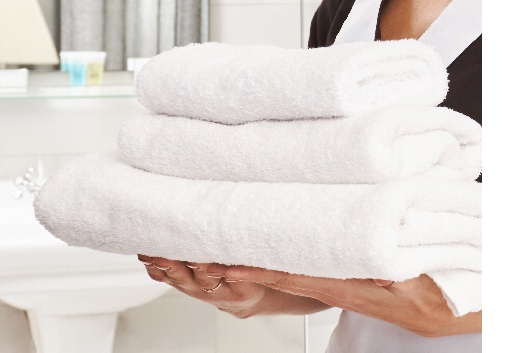
House helpers play a crucial role in assisting families with daily tasks and responsibilities. However, when the employers are not present, it is important for house helpers to engage children in a meaningful and constructive manner. This not only ensures the child's well-being but also helps to establish a positive relationship between the household staff and the family. In this blog, we will explore effective strategies and activities that house helpers can use to engage children in the absence of their employers, promoting a safe and nurturing environment for the child.
The Importance of Child Engagement During Absence of Parents
It is crucial for house helpers to understand the significance of engaging children when their parents are not around. Building a trusting relationship with the child and providing stimulating activities can promote their emotional and cognitive development. By creating a secure environment and fostering positive interactions, house helpers can help children feel supported and cared for in the absence of their parents. In the following sections, we will delve into specific strategies and practical tips for effective child engagement in various scenarios. Stay tuned to enhance your skills in nurturing and engaging children under your care.
Strategies for House Helpers to Effectively Engage Children
To effectively engage children in the absence of their parents, house helpers can utilize various strategies. Firstly, creating a structured routine with a mix of educational and fun activities can promote a sense of stability and learning. Secondly, establishing clear communication with the child to understand their interests and preferences can help tailor activities to their liking. Additionally, incorporating outdoor play, creative projects, and age-appropriate games can keep children entertained and stimulated. Stay tuned as we explore practical tips and real-life scenarios to equip house helpers with the tools needed to engage children effectively.
Activities That Foster Learning and Development in Children
Engaging children in educational activities is vital for their overall development. House helpers can encourage learning through activities like reading together, exploring nature, and practicing basic math skills. Science experiments, art projects, and educational games can also stimulate children's curiosity and critical thinking skills. By incorporating a mix of fun and educational activities, house helpers can create a nurturing environment that promotes the child's cognitive, emotional, and social growth. Stay tuned for more tips on how to engage children effectively in the absence of their parents.
Communication Techniques for Building Trust with Children
Communication plays a crucial role in building trust and fostering a strong bond with children. House helpers can engage children effectively by actively listening to their thoughts and feelings, asking open-ended questions, and providing encouragement and positive reinforcement. By maintaining open and honest communication, house helpers can create a safe and supportive environment where children feel heard and valued. Establishing clear boundaries and rules while also respecting the child's opinions can help nurture a trusting relationship. Stay tuned for strategies on how to effectively communicate with children to enhance their overall well-being and development.
Addressing Common Challenges House Helpers Face in Child Engagement
House helpers often encounter challenges when engaging children, such as dealing with behavioral issues, managing conflicts, and setting appropriate boundaries. Understanding the child's individual needs and preferences is key to overcoming these obstacles. By actively listening, being patient, and practicing empathy, house helpers can navigate difficult situations effectively. Implementing consistent routines, positive reinforcement techniques, and creating a nurturing environment can also help in building a strong connection with the child. Stay tuned for practical tips on how house helpers can navigate common challenges in engaging children to promote their emotional and social well-being.
Empowering House Helpers to Create a Positive Environment for Children
At Okaylah indian maid agency,, house helpers play a crucial role in nurturing and supporting children in the absence of their employers. By implementing the strategies discussed in this blog, such as active listening, patience, empathy, consistent routines, and positive reinforcement techniques, house helpers can create a positive and enriching environment for children to thrive. Remember, every interaction with a child is an opportunity to make a positive impact and contribute to their emotional and social well-being. Stay committed to building a strong connection with the child, understanding their individual needs, and fostering a supportive relationship that promotes growth and development. Your dedication and efforts as a house helper can truly make a difference in a child's life.
Understanding the Importance of Maid Health and Well-being

Maintaining the health and well-being of your maid is not only important for their personal benefit but also crucial for the smooth functioning of your household. As they work tirelessly to keep your home clean and organized, it is essential to ensure that they are healthy and happy. By implementing simple and effective best practices, you can help your maid stay in optimal physical and mental condition. Read on to discover the best practices for keeping your maid healthy and ensuring a productive working environment.
Assessing the Work Environment: Creating a Safe Space for Your Maid
Ensuring a safe work environment is paramount for your maid's health and well-being. Conduct a thorough assessment of your home to identify any potential hazards or risks that could compromise your maid's safety. Provide necessary safety equipment and guidelines to prevent accidents and injuries. Additionally, encourage open communication to address any concerns or suggestions your maid may have regarding their working environment. By creating a safe space for your maid, you are not only prioritizing their health but also fostering a positive and productive working relationship. Stay tuned for more best practices to keep your maid healthy.
Essential Nutritional Guidelines for Your Maid to Maintain Good Health
A healthy diet plays a crucial role in maintaining your maid's overall well-being. Provide balanced meals rich in essential nutrients such as fruits, vegetables, proteins, and whole grains. Encourage hydration by ensuring access to clean water throughout the day. Practice portion control and mindful eating habits to prevent issues like overeating or nutritional deficiencies. Consider any dietary preferences or restrictions your maid may have and accommodate them accordingly. By prioritizing proper nutrition, you are supporting your maid in staying healthy and energized to fulfill their responsibilities effectively. Stay tuned for more tips on optimizing your maid's health and wellness.
The Role of Regular Check-ups and Preventive Care in Maid Health
Aside from a nutritious diet, regular health check-ups and preventive care are essential for maintaining your maid's well-being. Schedule routine appointments with a healthcare provider to monitor their overall health status, identify any underlying issues early on, and address them promptly. Encourage your maid to prioritize self-care by promoting practices such as regular exercise, sufficient rest, and stress management techniques. By staying proactive in their health, your maid can prevent illnesses and maintain a strong immune system. Remember, a healthy maid is an efficient and reliable household asset. Stay tuned for more strategies to promote your maid's health and longevity.
Encouraging Physical Activity: How to Promote Fitness for Your Maid
Incorporating physical activity into your maid's daily routine is crucial for maintaining her overall health and well-being. Encourage her to engage in activities that she enjoys, such as brisk walking, yoga, or dancing. Set aside time for regular exercise sessions and provide necessary support and resources, like proper workout attire and equipment. Physical fitness not only enhances your maid's physical health but also contributes to her mental and emotional wellness. Stay committed to promoting a healthy and active lifestyle for your maid, ensuring she remains energized and resilient in her daily tasks. Follow our blog for more tips on enhancing your maid's health and vitality.
Stress Management Techniques: Supporting Mental Health for Your Maid
In addition to physical fitness, prioritizing your maid's mental well-being is essential for her overall health. Implement stress management techniques to help her cope with the demands of her job effectively. Encourage regular breaks, mindfulness practices, and open communication to address any concerns she may have. Create a supportive and positive work environment that fosters mental resilience. By promoting mental wellness, you are ensuring that your maid remains healthy, happy, and motivated in her role. Stay tuned for more insights on nurturing a holistic approach to your maid's well-being.
Committing to Your Maid's Health for a Better Workplace
At Okaylah indian maid agency, Prioritizing your maid's physical and mental health is not just a responsibility but an investment in creating a positive and productive work environment. By incorporating the best practices discussed, you are not only fostering a healthier lifestyle for your maid but also cultivating a harmonious and sustainable relationship. Remember, a healthy maid is a happy maid, and a happy maid leads to a happier home. Stay dedicated to supporting her well-being and implementing these practices consistently for a workplace that thrives on care and compassion. Your commitment to your maid's health will pay off in the form of a more fulfilling and successful partnership.
Evaluating the Need for Change After Maid Contract completion

Deciding whether or not to change your maid after completing a two-year contract can be a challenging decision for many homeowners. While some may believe that consistency and loyalty are important factors to consider, others may argue that bringing in a fresh perspective and new energy could benefit both parties. In this article, we will explore the various factors to consider when deciding whether or not to change your maid after their contract has been completed.
Assessing Performance: Key Indicators for a Successful Maid Experience
After your maid has completed a two-year contract, it is essential to evaluate their performance to determine if a change is necessary. Factors to consider include reliability, attention to detail, communication skills, and willingness to adapt to your household's needs. Assessing these key indicators can help you make an informed decision about whether to continue with your current maid or seek a new one. Stay tuned for practical tips on how to assess your maid's performance effectively and make the best decision for your household.
Factors to Consider Before Deciding to Change Your Maid
Before making a decision to change your maid after the completion of a two-year contract, it's crucial to consider various factors. Evaluate the overall impact of their performance on your household, such as consistency in completing tasks, adherence to household rules, and compatibility with your family's routines. Additionally, take into account any feedback from family members regarding their satisfaction with the maid's services. By carefully weighing these factors, you can make a well-informed decision that aligns with your household's needs and ensures a smooth transition if a change is deemed necessary. Stay tuned for valuable insights on how to navigate this decision-making process effectively.
Benefits of Retaining Your Maid vs. Hiring a New One
Retaining a maid with whom you have established a rapport and understanding over the two years can offer several advantages. They are already familiar with your household routines, preferences, and standards, which can lead to improved efficiency and effectiveness in their tasks. Moreover, continuity in service can also contribute to a smoother running of your household without the need for extensive training or adjustment periods. However, hiring a new maid may bring fresh perspectives and potentially address any areas where the previous maid may have fallen short. Consider these factors carefully when deciding whether to retain your current maid or opt for a new one. Stay tuned for more tips on making this important choice.
The Process of Transitioning: How to Change Your Maid Smoothly
Transitioning to a new domestic helper can be a smooth process if approached methodically. Begin by transparently communicating your decision to your current maid and providing ample notice. Evaluate your household needs and outline expectations for the incoming maid. Start the recruitment process early to allow sufficient time for screening and selection. Conduct thorough interviews and reference checks to ensure a good fit. Once the new maid is onboard, offer training and guidance to familiarize them with your preferences and routines. Remember, patience and clear communication are key to a successful transition. Stay tuned for more insights on navigating this change effectively.
Frequently Asked Questions About Maid Contracts and Changes
In this section, we will address common queries related to changing a maid after completing a 2-year contract. Topics such as contract renewal options, legal considerations, and managing termination procedures will be discussed. Understanding the implications of these decisions is crucial in ensuring a smooth transition between domestic helpers. Stay informed and empowered as we delve deeper into the intricacies of managing maid contracts effectively. Your questions will be answered comprehensively to guide you through this decision-making process. Stay tuned for expert advice and insights in the upcoming posts.
Making an Informed Decision Regarding Your Maid Contract
At Okaylah indian maid agency, As we conclude our discussion on changing your maid after completing a 2-year contract, it is essential to assess your specific circumstances and needs. Consider factors such as performance, reliability, compatibility, and your household requirements before making a decision. Evaluate the benefits and challenges associated with changing or retaining your current maid to ensure a smooth transition. Seek advice from reliable sources and be aware of the legal considerations involved. Ultimately, making an informed decision will lead to a positive domestic helper experience and foster a harmonious environment within your home. Stay tuned for more insights and guidance on managing domestic helper contracts effectively.
Hygiene Best Practices for Housemaids
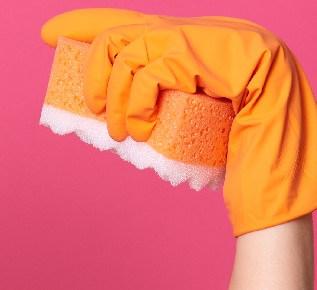
Maintaining proper hygiene practices is essential for housemaids to ensure a clean and safe environment for both themselves and the residents of the house they work in. By following a strict hygiene routine, housemaids can prevent the spread of germs, bacteria, and viruses, keeping everyone healthy and happy. In this blog, we will discuss the best hygiene practices that housemaids should follow to maintain a high standard of cleanliness in the homes they work in.
Essential Hygiene Practices Every Housemaid Should Follow
1. Regular Handwashing: Housemaids should wash their hands frequently, especially before and after handling food, after using the bathroom, and after cleaning tasks.
2. Personal Protective Equipment (PPE): Ensure housemaids wear gloves and masks when handling chemicals or coming in contact with potentially hazardous materials.
3. Cleanliness of Uniform: Housemaids should wear clean uniforms daily and wash them regularly to prevent the spread of dirt and bacteria.
4. Proper Disposal of Waste: Dispose of garbage and waste in designated bins promptly to maintain a clean and odor-free environment.
By incorporating these essential hygiene practices, housemaids can uphold a high level of cleanliness and ensure the well-being of everyone in the household.
Tools and Supplies: Must-Have Hygiene Equipment for Housemaids
Next Section:
Tools and Supplies: Housemaids should use specific tools and supplies to maintain a hygienic environment. Essential items include microfiber cloths for dusting and cleaning, separate sponges for different surfaces, and disinfectants for killing germs. It's crucial to regularly sanitize these tools to prevent cross-contamination and maintain cleanliness standards. Additionally, a good quality vacuum cleaner and mop are indispensable for thorough cleaning of floors and carpets. By using the proper tools and supplies, housemaids can effectively carry out their cleaning duties and uphold hygiene best practices in the household.
4. Common Hygiene Mistakes and How to Avoid Them
Even with the best intentions, housemaids may unknowingly make hygiene mistakes. Some common errors include using the same cleaning cloth for multiple tasks, neglecting to wash hands regularly, and overlooking high-touch surfaces like doorknobs and light switches. To avoid these hygiene pitfalls, it's crucial for housemaids to follow proper handwashing techniques, use disposable gloves when necessary, and sanitize frequently touched areas. By being mindful of these common mistakes and taking proactive measures to address them, housemaids can elevate their cleaning practices and promote a healthier environment for the household.
5. Training and Resources: Educating Housemaids on Hygiene Standards
Training and Resources: Educating Housemaids on Hygiene Standards
To ensure housemaids are equipped with the knowledge to uphold hygiene standards, providing proper training and resources is essential. This includes educating them on proper cleaning techniques, the importance of using the right cleaning products, and the significance of adhering to hygiene protocols. By investing in their training and providing access to resources such as instructional materials and workshops, household employers can empower housemaids to carry out their duties effectively while maintaining a high level of cleanliness and hygiene in the household. Remember, ongoing education and support are key components in fostering a hygienic environment.
6. Case Study: Successful Implementation of Hygiene Practices in a Cleaning Service
Let's delve into a real-life success story of a cleaning service that effectively implemented hygiene practices. From incorporating regular training sessions for housemaids to providing them with advanced cleaning equipment, this case study showcases the positive impact of prioritizing hygiene standards in the household setting. By following a structured approach similar to the one outlined in this blog, other households and cleaning services can also achieve significant improvements in cleanliness and hygiene levels. Stay tuned for valuable insights and actionable takeaways from this case study to enhance your housemaid's hygiene practices.
7. Conclusion: Upholding Hygiene Standards for a Healthy Home Environment
At Okaylah indian maid agency, upholding stringent hygiene standards within a household not only ensures a clean environment but also contributes to the overall health and well-being of its inhabitants. The success story shared in this blog highlights the importance of consistent training and the use of proper cleaning tools in maintaining high hygiene levels. By following similar best practices and emphasizing the significance of hygiene to your housemaid, you can create a healthy and safe living space for your family. Remember, a commitment to hygiene is a commitment to a better quality of life. Stay tuned for more expert tips and guidance on maintaining a hygienic home environment.
What to do When Your Maid Is Misplacing Things and becomes Emotional When Confronted?
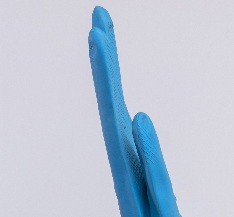
Having a housemaid misplace items can be a frustrating situation, especially when it leads to emotional distress for the maid. It is important to handle the situation with sensitivity and professionalism to address the issue without causing further upset. In this blog post, we will discuss strategies for dealing with a housemaid who is misplacing items and getting emotional when confronted.
The Role of Trust in Domestic Work Relationships
Trust is a fundamental aspect of any domestic work relationship. Building a foundation of trust with your housemaid can lead to better communication and understanding. It is essential to address the issue of misplaced items with empathy and establish open dialogue to prevent misunderstandings. By fostering a sense of trust, both parties can work together to find solutions and prevent future occurrences. In the next section, we will delve into effective communication strategies to maintain a positive relationship with your housemaid.
Common Reasons for Misplacement of Items by Household Staff
Several factors could contribute to the misplacement of items by household staff, including lack of organization, unfamiliarity with the layout of the house, or simply forgetting where they placed an item. Stress or distractions can also play a role in this. Understanding these common reasons can help in addressing the issue with empathy and patience. In the upcoming section, we will explore strategies to help your housemaid stay organized and reduce the likelihood of misplaced items, fostering a harmonious work environment for both parties involved. Stay tuned for practical tips on enhancing communication and organization within your household.
Effective Communication Strategies to Address Issues
Clear and open communication is essential in resolving concerns with your housemaid. When discussing misplaced items, approach the situation with empathy and understanding. Encourage your housemaid to communicate any challenges she may be facing and offer support in finding solutions together. Establishing a system for tracking items or creating designated storage spaces can help prevent future mishaps. By fostering a culture of transparency and collaboration, you can nurture a positive working relationship with your housemaid while promoting a more organized household environment. Check back for practical communication tips in our next blog post.
Steps to Support Your Maid While Resolving Misplacement Concerns
Acknowledge her feelings: When your housemaid cries in response to misplaced items, show understanding and validate her emotions. This can help build trust and strengthen your working relationship.
Offer reassurance and guidance: Assure your maid that mistakes happen and that you are willing to work together to find a solution. Provide clear instructions on how items should be stored or organized.
Implement a tracking system: Consider implementing a simple tracking system to help keep inventory of important items. This could involve labeling storage spaces or creating a checklist.
Provide training and support: Offer additional training or guidance to help your housemaid improve her organization skills. Encourage open communication for any further assistance needed.
Regularly communicate: Keep the lines of communication open to address any concerns or challenges that may arise. By working together and supporting one another, you can effectively address and prevent future misplacement issues.
Establishing Clear Guidelines and Systems for Organization
: Setting clear guidelines and systems can help prevent future misunderstandings and misplaced items. Clearly communicate where things should be stored and provide visual aids if necessary. Implement a systematic approach to organizing items, such as grouping similar items together or using color-coded labels. By establishing these guidelines, you can create a more efficient and organized environment for both you and your housemaid. Remember, effective communication and consistency are key to maintaining a smoothly running household.
Conclusion: Fostering a Positive Work Environment for Household Staff
At Okaylah indian maid agency, Creating a harmonious work environment is essential for the well-being of both you and your housemaid. It's crucial to address concerns with empathy and understanding. Encourage open communication to resolve any issues that may arise. Remember, your housemaid is a valuable member of your household team, and treating them with respect and kindness is key to fostering a positive working relationship. By setting clear guidelines, providing support, and maintaining open lines of communication, you can create a work environment that is conducive to productivity and mutual respect.
What to do if Maid's behavior changes over the time?

It can definitely be uncomfortable when someone's behavior changes, especially in a professional context like with a maid or domestic help. If a maid has started back answering or acting out of character, it could be due to various reasons-stress, personal issues, feeling unappreciated, or miscommunication. Here's a step-by-step approach to handle the situation:
1. Stay Calm and Reflect
Before reacting, take a moment to reflect on what's changed. Has something happened recently that might have triggered the change in behavior? Have there been any changes in your expectations or communication style?
It's important not to respond in anger or frustration right away.
2. Assess the Situation
Is this a recent development, or has it been happening for a while? Have there been any signs of stress or discomfort from her side (workload, personal problems)?
Think about whether there have been any changes in your own behavior or expectations that might have led to this shift.
3. Open a Dialogue
Approach calmly: Talk to her privately and calmly. It's essential to keep the conversation respectful and non-confrontational. You might start by saying something like:
Be a good listener: Allow her to express her thoughts or concerns. If there are any personal issues affecting her work, it' best to address them openly.
4. Clarify Expectations
If the backtalk is due to misunderstandings or miscommunication, it's an opportunity to reset expectations. Be clear about what you expect from her behavior and performance in a polite but firm manner.
If your relationship has become more casual, reminding her of the professional nature of the work might help.
5. Set Boundaries
It's important to maintain boundaries and professionalism. Let her know that while you value her work, respectful communication is key. You could say:
You can also remind her of the terms of your agreement or contract if necessary.
6. Evaluate the Environment
Sometimes external factors, like workload or household dynamics, could be affecting her behavior. If you think there's something that's making her feel overwhelmed, it might be worth discussing ways to make her job easier or more manageable.
Consider whether you need to adjust her tasks or hours based on what she shares.
7. Offer Support if Needed
If she opens up about personal issues or challenges, you might consider offering support, whether that's through more understanding, a change in workload, or even providing resources (if you're in a position to do so).
Being empathetic can sometimes make a huge difference.
8. Final Steps
At Okaylah indian maid agency,
If things don't improve after a conversation or if the behavior worsens, you may need to consider more formal steps like giving a warning or, in extreme cases, looking for a new arrangement.
It might be helpful to document any instances of disrespect or issues to ensure you have a clear record, in case you need to take further action.
Have you had any specific conversations with her yet? What do you think is causing the shift in behavior?
Maid is hardworkign or smart working?

When hiring a maid, you're not just looking for someone who can follow instructions- you're looking for someone who shows initiative, common sense, adaptability, and emotional intelligence, especially in a busy household. Here's how to identify these qualities and spot a maid with a high IQ for household work.
Qualities of a Good Maid
A "smart" maid doesn't necessarily need academic qualifications. Instead, she demonstrates the ability to think critically, work independently, and manage the home efficiently.
1. Good Memory & Attention to Detail
Remembers daily routines, family preferences, allergies, pet needs, etc.
Notices things that need fixing or cleaning without being told.
2. Quick Learner
Picks up new tasks quickly (e.g., using new appliances or apps).
Adapts to household rules without repeating mistakes.
3. Problem-Solving Skills
Handles small issues independently (e.g., clogged sink, broken switch).
Doesn't panic in unexpected situations (like power cuts or a sick child).
4. Time Management
Plans the day smartly without needing constant reminders.
Prioritizes urgent tasks like cooking, picking up kids, or laundry on rainy days.
5. Initiative & Proactive Thinking
Re-stocks groceries when items are running low.
Deep cleans or organizes without being told.
6. Clean Communication
Can express problems, ask questions, and give feedback clearly.
Understands instructions well and follows through correctly.
7. Discreet and Emotionally Intelligent
Understands boundaries and respects privacy.
Manages her own emotions and doesn't bring drama into the home.
How to Identify High IQ for Housemaid Work
While traditional IQ tests aren't practical or always relevant for domestic helpers, you can use practical observation and simple scenario-based questions during interviews to assess intelligence.
Interview Questions to Test Smartness:
"If the washing machine is leaking, what will you do?" Look for a response like turning it off, cleaning the water, and informing you- shows presence of mind.
"If the baby is crying and the doorbell rings at the same time, what will you do first?" Smart answer: Pick up the baby quickly (safety first), then check through peephole or ask who's at the door.
"How do you plan your daily tasks?" Look for a clear, logical sequence like: cook ? clean ? laundry ? restock groceries.
"What would you do if you are unsure about a new cleaning product or appliance?" A good response would be: ask employer, read the label, or watch a tutorial- shows initiative and responsibility.
Observation During Trial:
Does she ask smart clarifying questions?
Can she use a smartphone for simple apps or messages?
Does she spot mess or dust you didn't point out?
How fast does she learn routines?
Red Flags That May Indicate Low Initiative or Common Sense
Needs repeated instructions for the same task
Doesn't inform about broken items or problems
Cannot adapt to new tasks or unexpected situations
Gets overwhelmed easily under light pressure
Final Tip: Intelligence Isn't Everything
At Okaylah indian maid agency, While intelligence is important, it should be balanced with attitude, honesty, and willingness to learn. Some maids may not seem "smart" initially but pick up quickly with the right training and respect.
How Often Should Your Maid Deep Clean Your HDB Flat?
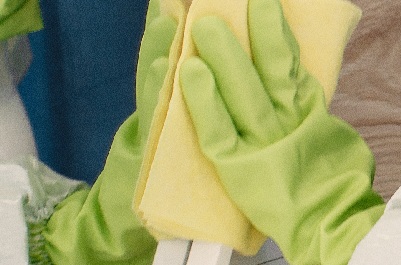
Keeping your HDB flat clean is essential not just for appearances, but also for the health and well-being of your household. While regular cleaning handles daily dust and clutter, deep cleaning targets hidden grime, allergens, and bacteria that build up over time. But how often should your maid deep clean your HDB flat?
In this guide, we'll explore the ideal deep cleaning frequency based on your lifestyle, HDB flat size, and more - so you can maintain a sparkling, hygienic home all year round.
What is Deep Cleaning?
Deep cleaning goes beyond surface tidying. It involves intensive scrubbing, disinfecting, and decluttering of hard-to-reach areas such as:
Behind and under furniture
Inside kitchen cabinets and appliances
Air vents and ceiling fans
Grout between tiles
Window sills and tracks
Light fixtures
This type of cleaning often uses stronger disinfectants and specialized tools to eliminate built-up dirt and bacteria.
Recommended Deep Cleaning Frequency for HDB Flats
1. Every 3 to 6 Months
For most Singaporean households, deep cleaning your HDB flat every 3 to 6 months is ideal. This frequency keeps dust, mold, and grime in check - especially in humid conditions.
This includes:
Deep scrubbing of toilets and kitchens
Washing of curtains, blinds, and upholstery
Cleaning of fans and air-con filters
Organizing and wiping down storage areas
If you live in a standard 3-room or 4-room flat, a quarterly deep clean is typically sufficient.
2. Monthly Deep Cleaning for High-Traffic Homes
If your household includes children, pets, or elderly members, consider scheduling monthly deep cleans. These homes tend to have higher activity, which means dirt, allergens, and germs accumulate faster.
Pet hair, food crumbs, and bacteria can settle into carpets and hidden corners, requiring more frequent attention.
3. Before and After Special Occasions
Deep cleaning is also highly recommended:
Before hosting guests or events like birthdays or festive celebrations (e.g. Chinese New Year, Hari Raya).
After renovations to remove construction dust.
When moving in or out to ensure a clean handover.
In these cases, a one-time deep cleaning service can be booked in advance with your maid or a professional cleaning team.
Should Your Maid Handle the Deep Cleaning?
If you have a full-time live-in maid, she can manage the deep cleaning tasks - but it's best to break it into manageable chunks each week (e.g. kitchen one week, bathroom the next). This prevents overloading her routine duties and helps maintain a consistent standard of hygiene.
Alternatively, for bigger jobs or thorough cleans, consider outsourcing to professional cleaners quarterly. They bring industrial-grade equipment and expertise for a more intensive clean.
Deep Cleaning Checklist for Your HDB Flat
Here's a handy list you (or your maid) can follow:
Scrub bathroom tiles, grout, and shower heads
Degrease kitchen backsplash, stove, hood, and oven
Clean behind and underneath beds, sofas, and wardrobes
Wash windows, glass doors, and grills
Vacuum and sanitize mattresses and carpets
Disinfect doorknobs, switches, and handles
Wipe ceiling fans, light fixtures, and aircon vents
Final Thoughts
The ideal deep cleaning schedule for your HDB flat depends on your lifestyle, family size, and living habits. A good rule of thumb is every 3 to 6 months, but high-traffic homes may benefit from monthly attention.
Whether your maid handles it or you bring in professional help, regular deep cleaning ensures your flat remains clean, healthy, and welcoming-At Okaylah indian maid agency.
How to assess helper financial condition during the interview?

Assessing a helper's financial condition during an interview must be done respectfully and tactfully. It helps you understand her motivations, stability, and risk factors (e.g., loan issues, money pressure that may affect honesty or performance). Here's how to approach it:
Why It's Important:
Helpers under financial stress may:
Be distracted, anxious, or prone to conflicts.
Borrow money, engage in illegal lending, or even steal.
Leave early to settle issues at home.
How to Ask Respectful & Subtle Questions
Use open-ended, non-judgmental questions to create trust:
1. Family Responsibilities & Expenses
"Can you tell me a bit about your family? Do you support them financially?"
This helps you understand:
Whether she is the sole breadwinner.
The number of dependents.
If she's under pressure to send large remittances.
2. Reason for Working
"What made you decide to work in Singapore?"
Watch for:
Responses like "to support my children's education" (normal) vs. "to pay off loans" (needs follow-up).
3. Debt Situation (Gently)
"Are you currently paying any loans or advances?"
Or
"Did you take a loan to come to Singapore or from any agent back home?"
Red flags:
Ongoing large debts.
Borrowing from multiple lenders or co-workers.
4. How Much She Sends Home
"How much do you usually send home each month?"
This shows if her salary is enough or if she's overcommitting financially.
5. Savings Habit
"Do you get to save a bit for yourself each month?"
If she's unable to save anything, she may be under financial stress.
6. Phone or Money Request Behavior
"How do you usually keep in touch with your family? Do you ever need to borrow money from friends or employers?"
You're checking whether she often asks others for money or phone use.
What to Look For:
No debts, supports family, has savings
Stable & motivated
Small agent loan, under control - Acceptable
Big debts, no savings, borrowing from coworkers - Risky so consider careful
At Okaylah indian maid agency, we don't make decisions purely based on financial condition. We focus on whether she is responsible and honest despite her situation.
What point to consider while hiring a maid for working families?

Hiring a maid as a working family in Singapore especially with kids or elderly at home requires careful planning. You need someone trustworthy, independent, and responsible since you won't be around much. Here are the key points to consider:
1. Experience & Skills
Childcare / Elderly Care: Has she handled babies, toddlers, or elderly before?
Cooking: Can she cook Indian or other preferred cuisines?
Household tasks: Cleaning, laundry, grocery shopping, etc. how well can she manage?
Previous Singapore experience: Helpers with local experience understand work culture and expectations.
2. Language & Communication
Can she speak basic English or any Indian languages (Hindi, Tamil, etc.)?
Is she able to understand instructions clearly without constant supervision?
3. Independence & Initiative
Will she manage the house without you supervising every step?
Can she plan meals, clean schedules, or assist with kids' routines on her own?
4. Trustworthiness
Check for a verified background (especially if changing employers in Singapore).
Ask for past employer references or agency feedback.
Monitor her honesty this is crucial if she's alone at home with your kids or parents.
5. Personality & Attitude
Is she polite, respectful, calm under pressure?
Will she respect your family's privacy, rules, and parenting style?
6. Health & Hygiene
Is she physically fit (especially if you need elderly lifting or active child handling)?
Does she maintain personal hygiene and cleanliness?
7. Religion / Dietary Compatibility
Is she okay with vegetarian, non-veg, or pork/beef-free kitchens?
Does she require time off for religious practices that might affect daily routines?
8. Availability & Commitment
Is she willing to work long-term?
Does she have any restrictions (e.g., can't care for babies, elderly, or pets)?
Will she be okay with no day off, compensated as per MOM rules?
9. Salary Expectations
Does her expected salary match your budget?
Any off-day or handphone usage expectations need to be discussed clearly.
10. Agency Support
Choose a Okaylah At indian maid agency that does proper screening and gives support post-placement. They offer replacements, if things don't work out.
Assessing Cooking Skills in Maid Interviews

When hiring a maid to help with cooking in your household, it is essential to assess their culinary skills during the interview process. Knowing how to evaluate their cooking abilities can help ensure that you hire someone who can meet your specific food preferences and dietary requirements. This blog will discuss the best methods for assessing the cooking skills of a potential maid during the interview process, providing you with the tools you need to make an informed decision.
1. Introduction:
When hiring a maid to help with cooking in your household, it is essential to assess their culinary skills during the interview process. Knowing how to evaluate their cooking abilities can help ensure that you hire someone who can meet your specific food preferences and dietary requirements. This blog will discuss the best methods for assessing the cooking skills of a potential maid during the interview process, providing you with the tools you need to make an informed decision.
2. Defining Essential Cooking Skills to Look For in a Maid
Before conducting the interview, it is important to define the essential cooking skills you are looking for in a maid. Consider aspects such as knowledge of various cuisines, ability to follow recipes accurately, understanding of dietary restrictions, and proficiency in basic food preparation techniques. Assess their creativity in meal planning and improvisational skills in case of unforeseen circumstances. Additionally, evaluate their hygiene practices, time management skills, and adaptability in a kitchen environment. Setting clear criteria will help you effectively assess the cooking proficiency of the candidates and select the best fit for your household.
3. Developing a Comprehensive Interview Questionnaire for Cooking Assessment
To ensure a thorough evaluation of a maid's cooking skills during the interview process, it is essential to create a detailed questionnaire. Craft questions that delve into their experience with different cuisines, handling dietary restrictions, and approach to recipe adaptation. Inquire about their knowledge of kitchen hygiene practices, time management strategies, and how they handle unexpected challenges while cooking. Include scenarios to gauge their problem-solving skills and ability to work under pressure. Designing a structured questionnaire will provide valuable insights into the candidate's cooking proficiency and assist you in making an informed decision for your household.
4. Practical Assessment Techniques: Evaluating Cooking Skills During the Interview
In addition to the questionnaire, consider incorporating a practical assessment to validate the maid's cooking proficiency. Allocate a cooking station with basic ingredients and instructions for a simple recipe. Observe the candidate's technique, organization in the kitchen, and overall comfort level while preparing the dish. This hands-on approach can provide tangible evidence of their culinary abilities, creativity in problem-solving, and adaptability in a simulated cooking environment. Pay attention to their attention to detail, taste, and presentation of the final product, as these factors are crucial in assessing their suitability for the role.
5. The Role of Experience and Culinary Knowledge in Cooking Proficiency
When assessing a maid's cooking skill during an interview, experience and culinary knowledge play a vital role in determining their proficiency. Inquire about their previous cooking experiences, types of cuisines they are familiar with, and any specialized cooking techniques they may have mastered. A candidate with a solid culinary background is more likely to demonstrate effective time management, expertise in flavor profiles, and the ability to handle various kitchen tools and equipment with confidence. Evaluating their understanding of basic cooking terms, ingredients, and cooking methods will give you insight into their level of competence and suitability for the position.
6. Common Mistakes to Avoid When Assessing Cooking Skills in Interviews
As you navigate the interview process to assess a maid's cooking skills, it's crucial to steer clear of common pitfalls that may compromise your evaluation. Avoid making assumptions based solely on the candidate's confidence level or personal background. Refrain from testing them on complex or unfamiliar dishes that may not align with the job requirements. Additionally, ensure you provide a comfortable and supportive environment during the cooking demonstration to allow the candidate to showcase their true abilities. By avoiding these mistakes, you can conduct a fair and thorough assessment of the maid's cooking skills to make an informed hiring decision.
7. Conclusion:
Ensuring You Hire a Maid with the Right Cooking Skills for Your Home In conclusion, the successful assessment of a maid's cooking skills during the interview process requires a thoughtful and objective approach. By steering clear of common pitfalls and providing a conducive environment for the cooking demonstration, you can conduct a fair evaluation. At indian maid agency, we remember to focus on assessing the candidate's ability to meet your specific cooking requirements rather than basing your decision on assumptions or unrelated factors. Taking these steps will enable you to make an informed hiring decision and ensure you select a maid with the right cooking skills to cater to your household needs effectively.
Addressing the Challenge of Dishonesty in Domestic Help
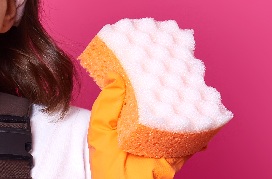
Unfortunately, dishonesty from household staff, such as maids, can be a challenging situation to navigate. It's essential to approach this delicate matter with professionalism and tact. When faced with a maid who is constantly lying, it's crucial to address the situation promptly and appropriately. This blog post will provide you with the necessary steps to take when dealing with a maid who is consistently dishonest, ensuring a fair and amicable resolution for all parties involved.
Identifying Signs of Dishonesty in Your Maid
Identifying signs of dishonesty in your maid is pivotal in addressing the issue effectively. Look for inconsistencies in their statements, unexplained missing items, or irregular behavior. Document instances of dishonesty to support your concerns and approach the situation with concrete evidence. Observing their body language and responses during conversations can also provide valuable insights. Stay attentive and proactive in detecting any red flags that may indicate ongoing deceit. By being vigilant and observant, you can better assess the extent of the problem and take necessary steps to address it. Stay tuned for the next section on how to confront and manage dishonesty in your maid professionally.
Understanding the Reasons Behind Fabrications: A Deep Dive
Delving into the motives behind your maid's constant lies is essential in effectively addressing the issue. It could stem from various factors such as fear of consequences, personal issues, or simply a habit formed over time. By understanding the underlying reasons, you can tailor your approach to help them overcome the behavior. Communicate openly and empathetically to create a safe space for them to share their concerns. Seeking professional guidance or counseling may also be beneficial in addressing any deeper issues contributing to their dishonesty. Stay tuned for practical strategies on how to navigate this challenging situation with compassion and professionalism.
Strategies for Effective Communication to Address Lies
Now that you have gained insight into the potential motives behind your maid's lies, it's crucial to focus on communication strategies to address this behavior effectively. Start by setting aside dedicated time to have an open and honest conversation with your maid, emphasizing the importance of trust and honesty in your relationship. Encourage transparency and assure them that you are willing to listen without judgment. Clearly communicate the impact of their dishonesty and work together to establish clear expectations moving forward. By fostering a culture of open communication and mutual respect, you can create a positive environment for addressing and resolving issues of dishonesty with your maid. Stay tuned for practical tips on rebuilding trust and reinforcing positive behavior.
Establishing Trust: Building a Positive Relationship with Your Maid
To rebuild trust with your maid, consistency and patience are key. Show appreciation for moments of honesty and reinforce positive behavior through positive reinforcement. Prioritize active listening and open dialogue to cultivate a culture of trust and understanding. Set clear boundaries and expectations while offering support and guidance when needed. By demonstrating empathy and respect, you can foster a positive relationship built on trust and mutual respect. Stay committed to open communication and collaborative problem-solving to address any issues effectively and maintain a harmonious work environment with your maid. Together, you can navigate through challenges and strengthen your bond. Stay tuned for further insights on maintaining trust and communication in your household staff relationships.
What to Do If the Issue Persists: Escalation and Decision-Making
If despite your efforts to rebuild trust, your maid continues to lie, it may be necessary to escalate the situation. Initiate a calm and direct conversation addressing the repeated dishonesty. Clearly communicate the consequences of dishonesty, such as termination of employment. Document instances of lying for reference if needed. Seek advice from a professional mediator or counselor to facilitate constructive communication. Remember, trust is fundamental in any working relationship. Be prepared to make difficult decisions for the well-being of your household and to maintain a harmonious environment. Stay strong and proactive in addressing dishonesty to uphold the integrity of your household dynamics.
Maintaining Integrity and Trust in Domestic Employment
In conclusion, dealing with a maid who lies requires a combination of patience, communication, and firm actions. At indian maid agency, By setting clear expectations, addressing the issue promptly, and seeking help when necessary, you can work towards maintaining integrity and trust in your domestic employment relationship. Remember, transparency and honesty are crucial for a healthy working environment. If all attempts to resolve the issue fail, it may be in the best interest of both parties to part ways. Upholding standards and boundaries is essential for the well-being of your household and the integrity of your working dynamics. Trust your judgment and take necessary steps to foster a respectful and trustworthy environment in your home.
What to Look for in a Maid for Cleaning Service in Singapore
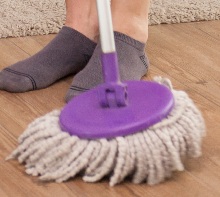
Finding the right maid for a cleaning service in Singapore can be a daunting task. With the increasing demand for domestic help, it's essential to know what qualities and skills to prioritize to ensure that your home is well cared for. This article will provide a comprehensive guide to choosing the right maid for your cleaning needs in Singapore, highlighting the key factors you should consider.
1. Experience and Skills
a. Relevant Experience
When hiring a maid, one of the first aspects to evaluate is her experience in cleaning services. Consider the following:
- Years of experience: Look for candidates who have a few years of experience in the field, as they are more likely to have developed effective cleaning habits.
- Previous employers: References from prior employers can provide insight into the maid's reliability and performance.
b. Specific Skills
Different households have varying cleaning needs. Assess whether the maid possesses the necessary skills:
- Knowledge of cleaning products: The maid should be familiar with the use of various cleaning chemicals and equipment.
- Specialized cleaning techniques: Some maids may have skills in deep cleaning, organizing, or even laundry, which could be beneficial depending on your household needs.
2. Professionalism and Attitude
a. Work Ethic
A maid's work ethic speaks volumes about her professionalism. During the interview process, observe the following:
- Punctuality: Arriving on time for interviews is a good indicator of a maid's commitment to her job.
- Attention to detail: Inquire about her cleaning routines and how she ensures that every task is completed thoroughly.
b. Communication Skills
Effective communication is crucial in establishing clear expectations. Ensure that your maid is:
- Able to speak your preferred language: This reduces misunderstandings and fosters a better working relationship.
- Willing to discuss feedback: A open-minded attitude toward constructive criticism can significantly enhance the cleaning experience.
3. Trustworthiness
a. Background Checks
Safety should be of utmost importance in any hiring process. Consider the following mechanisms:
- Conducting background checks: Verifying past employment and checking for any criminal history can ensure the safety of your household.
- Reputation of the agency: If you choose to hire through an agency, research their history and read reviews to gauge their reliability.
b. Personal Integrity
A trustworthy maid will not only care for your home but also respect your privacy. Signs of personal integrity include:
- Honesty: Inquiring about her past experiences can reveal traits of honesty and transparency.
- References from trusted sources: A maid who comes highly recommended by friends or family can often be a reliable choice.
4. Flexibility and Availability
a. Work Schedule
Understanding your maid's availability is crucial for both parties. Assess:
- Willingness to adjust schedules: A maid who is flexible can adapt to your specific cleaning needs or changes in routine.
- Availability for additional hours: Determine whether she is open to working extra hours during busy periods or special events.
b. Job Scope
Ensure that there is clarity regarding the job scope, as it can dramatically affect the working relationship. Discuss whether the maid can handle:
- General cleaning: Dusting, vacuuming, mopping, etc.
- Occasional tasks: Such as deep cleaning, window washing, or organizing spaces.
Conclusion
Choosing the right maid for a cleaning service in Singapore involves careful consideration of experience, professionalism, trustworthiness, and flexibility. By focusing on these aspects, you can make an informed decision that caters to your household's specific cleaning needs. At indian maid agency, the goal is to establish a productive and trustworthy relationship that can ease the burden of household chores. As you begin your search, prioritize what matters most to you and don't hesitate to invest the time into finding the perfect maid for your home. The right choice will not only contribute to a cleaner living space but will also enhance your peace of mind.
What Should I Do If I'm Watching a Late-Night Movie and It Is Disturbing My Maid's Sleep?

Watching a late-night movie can be a relaxing way to unwind after a long day. However, if you have others in your home, such as a maid or live-in staff, your late-night activities might disrupt their rest. To maintain a peaceful cohabitation and show consideration for others, it's important to find solutions that allow you to enjoy your movie while minimizing disturbances. Here are several strategies to keep in mind.
1. Choose the Right Time
Timing is everything. If possible, select a movie that won't conflict with your maid's sleep schedule. Here are some tips to consider:
- Know the Sleep Schedule: Understand the typical hours your maid sleeps. Is there a specific bedtime they adhere to? Knowing this can help you plan your movie nights more effectively.
- Opt for Earlier Viewings: Try to start your movie earlier in the evening, allowing your maid to get a full night's rest. Engaging in this considerate approach can foster a better environment for everyone in the household.
- Plan on Weekends: If your maid has more flexible hours on weekends, consider watching movies then, when they might be less impacted by your late-night activity.
2. Reduce Noise Levels
If you find yourself caught up in a late-night movie, the sound may inevitably disturb others. Here are ways to control the volume:
- Use Headphones: This is perhaps the most straightforward solution. Using headphones will allow you to immerse yourself in the movie without disturbing anyone else. There are various types of audio devices available; opt for one that fits your comfort and sound quality preference.
- Lower the Volume: If headphones aren't an option, consider lowering the volume of the movie. Many modern televisions have a wide range of volume options; find a level that's enjoyable for you but won't permeate through the walls.
- Consider Audio Settings: Many systems come with "night mode" settings which adjust the sound to reduce loud noises while making dialogue clearer. This can minimize the chances of waking someone up.
3. Create a Comfortable Viewing Environment
You can also tailor your viewing space to ensure it is conducive to late-night movie watching while being respectful of others' rest.
- Soundproof the Room: If possible, make minor adjustments to your movie-watching environment. Use rugs, curtains, or special soundproofing materials to help absorb noise within your living space.
- Choose Your Viewing Space Wisely: Designate a room that is farthest away from where your maid sleeps to minimize sound transfer. Specially designed spaces are beneficial for reducing disturbances at night.
- Adjust the Screen Setting: If you can dim the screen without compromising on visibility, warm colors can be easier on the eyes during low-light viewing, which can also contribute to lower overall brightness levels in the room, thereby minimizing distractions.
4. Communicate Openly
Clear communication can go a long way in maintaining a harmonious household. Make it a point to:
- Discuss Schedules: Regularly check in with your maid about their schedule. Understanding their commitments can help you plan your movie nights more effectively.
- Apologize for Disturbances: If you accidentally wake them up, a simple apology can reinforce understanding and goodwill.
- Seek Feedback: Encourage your maid to share their preferences regarding noise levels or viewing hours. This open dialogue fosters a sense of respect within the home.
Conclusion
Balancing your enjoyment of a late-night movie with being considerate of your maid's needs is entirely possible through thoughtful planning and open communication. At Okaylah Indian Maid Agency, By choosing the right time to watch, reducing noise levels, creating a comfortable environment, and fostering communication, you can cultivate a living situation that honors both your leisure and your maid's well-being. At indian maid agency, a harmonious home is a happy home, where all members can coexist peacefully.
The Impact of Late-Night Phone Use on Housemaid's Sleep and Productivity

In today's digital age, the allure of smartphones has made it a common sight to see people glued to their screens at all hours, including the late-night hours. This phenomenon raises significant concerns, especially when it pertains to health and productivity. A typical scenario can be illustrated by my maid, who often finds herself on the phone at 1 AM, only to need to wake up at 5:30 AM. The implications of such late-night phone use extend beyond mere inconvenience; they touch on crucial aspects of sleep hygiene and overall well-being.
Understanding the Effects of Late-Night Phone Uses by Maid
Chronic late-night phone usage can lead to a variety of negative consequences. Below are some key aspects to consider:
1. Sleep Disruption of Maid
- Blue Light Exposure: Smartphones emit blue light, which interferes with the body's natural sleep-wake cycle by suppressing melatonin production. This hormone is vital for the initiation of sleep; thus, its suppression can lead to difficulty falling asleep.
- Cognitive Stimulation: Engaging in conversations, scrolling through social media, or playing games stimulates the brain, making it harder to wind down for sleep. In the case of my maid, being on the phone at 1 AM not only delays her sleep but also hampers the quality of those few hours she manages to get.
2. Impaired Daily Performance of Helper
- Reduced Alertness: Waking up after a mere 4.5 hours of sleep can lead to significant fatigue. This can manifest as reduced alertness and impaired cognitive functions the following day, affecting productivity levels.
- Mood Fluctuations: Lack of sleep has also been linked to irritability and increased stress levels. For my maid, not getting adequate rest may impact her interactions and effectiveness in her daily responsibilities.
3. Health Consequences for Maid
- Chronic Sleep Deprivation: If this pattern continues, it can lead to chronic sleep deprivation, which has a cascading effect on one's health. Long-term impacts include weakened immune function, increased risks for chronic conditions such as obesity, diabetes, and cardiovascular diseases.
- Mental Health Issues: Insufficient sleep has been linked to mood disorders such as anxiety and depression, which can further exacerbate one's inability to complete daily tasks effectively.
Strategies for Better Sleep Hygiene for Maid
To mitigate the harmful effects of late-night phone use, especially for those with early morning responsibilities, adopting better sleep hygiene practices is essential. Here are some effective strategies:
1. Set Technology Curfews
- Establish a rule to limit phone use at least one hour before bedtime. This allows the body to relax and prepare for sleep.
2. Create a Relaxing Nighttime Routine
- Engage in calming activities such as reading or meditating before bed. This can help transition the body into a restful state.
3. Optimize the Sleeping Environment
- Ensure that the sleeping area is dark, cool, and quiet. Consider using blackout curtains or white noise machines to minimize distractions.
4. Limit Caffeine and Heavy Meals
- Avoid caffeine consumption in the late afternoon and evening, and opt for lighter meals before bed to improve digestion and promote better sleep.
Conclusion: The Need for Awareness and Change
The situation of my maid, who finds herself on the phone at 1 AM while needing to wake up at 5:30 AM, underscores a wider societal issue concerning the pervasive use of technology and its impact on sleep. It is evident that late-night habits can have far-reaching consequences on individual health and productivity. At indian maid agency, By fostering awareness and adopting healthier nighttime practices, we can mitigate these effects and promote better overall well-being. It is essential that we recognize the importance of prioritizing sleep as a critical component of a productive and healthy lifestyle. The question that remains is: how can we strike a balance between remaining connected and ensuring we rest adequately? The answer could define the quality of our future days.
Proper Attention from Housemaids in Playgrounds
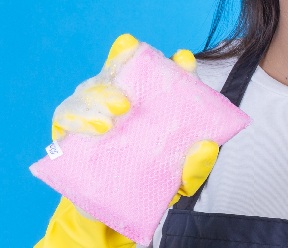
As a parent, ensuring the safety and well-being of your children is paramount, especially in environments like playgrounds where they explore, play, and socialize. When you hire a housemaid to assist you, you may expect that they will not only help with household chores but also supervise your children during playtime. However, what happens when your housemaid fails to provide the attention your kids need in such a crucial setting? This article explores the implications of insufficient attention from housemaids during playground visits, offering insights on how to address the situation effectively.
Understanding the Importance of Supervision
Supervision in a playground setting is critical for several reasons:
1. Safety Concerns: Playgrounds can be hazardous. Children may engage in risky behavior - climbing too high, running on wet surfaces, or using equipment incorrectly. Adequate supervision can prevent accidents and injuries.
2. Social Development: Playtime is not just about physical activity. It's a vital period for children to learn social skills such as sharing, taking turns, and conflict resolution. A supervising adult can guide and facilitate these interactions.
3. Emotional Support: Children often face challenges while playing, such as dealing with falls or conflicts with peers. Having an attentive adult around can provide emotional comfort and encouragement.
Given these factors, a housemaid should play an active role in ensuring that children are safe and engaged in positive play experiences.
Assessing the Situation
When you notice that your housemaid is not giving proper attention to your children in the playground, take the time to assess the situation. Here are steps to consider:
1. Observe: Take note of specific instances where attention is lacking. Is the maid distracted by her phone or engaged in conversation with others?
2. Communicate: Consider discussing your observations directly with the housemaid. Approach the conversation constructively, focusing on observations rather than accusations.
3. Evaluate Responsibilities: Consider whether the instructions or expectations you set for the housemaid were clear from the beginning. Sometimes, misunderstandings can lead to a lack of attention.
Setting Clear Expectations and Guidelines
Effective communication is key to ensuring that your housemaid provides the attention your children need. Here are some guidelines to establish clear expectations:
1. Define Responsibilities: Outline what you expect from the housemaid during playground visits, such as actively engaging with the children, monitoring their activities, and intervening when necessary.
2. Provide Training: If possible, provide your housemaid with basic training in child supervision and safety practices. This training can empower her to take her role more seriously.
3. Regular Check-Ins: Establish regular times to discuss with your housemaid how the outings go. Ask for feedback on the children's interactions, and encourage her to share any challenges faced during supervision.
4. Create a Routine: Children thrive on consistency. Develop a routine that includes specific guidelines for playground outings, which can help your housemaid know what is expected.
Taking Further Action
If, after your discussions and attempts to improve the situation, you find that the housemaid is still not attentive, you may need to consider alternative options:
1. Re-evaluate the Fit: Assess whether the housemaid is a good fit for your family. If she continues to demonstrate a lack of attention or engagement, it might be time to look for someone more suited to childcare.
2. Engage Additional Help: Consider hiring a part-time childcare professional or enlisting the help of family members during playground visits to ensure adequate supervision.
3. Seek Professional Advice: If you're unsure how to proceed, consulting with a child development specialist can provide insights into effective supervision techniques and address any underlying concerns.
Conclusion
Ensuring that your children receive proper attention while playing is both a parental duty and a shared responsibility with the individuals you entrust with their care. A housemaid should contribute positively to your family's routine, especially during playground visits. By clearly communicating expectations, providing necessary training, and being proactive in addressing issues, you can foster an environment where your children feel safe and supported. If all else fails, making changes might be necessary for the well-being of your family. At indian maid agency, a commitment to attentive supervision is vital for nurturing your children's growth and safety during their formative years.
Should I Ask My Helper to Take English Classes?
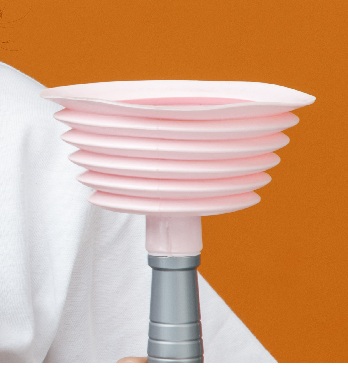
As globalization continues to reshape the world, the importance of effective communication cannot be overstated. In many households, particularly in multicultural societies, helpers may come from diverse backgrounds where English isn't the primary language. This raises an important question for employers: Should I ask my helper to take English classes? This article will explore the various aspects of this decision, considering benefits, potential challenges, and alternative approaches to enhancing communication.
Understanding the Need for English Proficiency
1. Communication Enhancement
The foremost reason for considering English classes is to improve communication. English serves as a global language and is often a prerequisite for seamless interaction in various contexts. By enhancing your helper's language skills, you can foster a more effective working relationship. Improved communication can lead to:
- Better Understanding: Clearer instructions and feedback can reduce misunderstandings and errors.
- Increased Efficiency: Tasks can be completed quicker when both parties understand what is required without miscommunication.
2. Professional Development
Encouraging your helper to take English classes can be viewed as an investment in their professional development, which can yield benefits for both the helper and the employer. Some potential advantages include:
- Skill Acquisition: Language skills are valuable in many job markets. Proficiency in English can open doors to better employment opportunities for your helper.
- Job Satisfaction: Offering educational opportunities shows your commitment to their growth, which can enhance their motivation and satisfaction in their current role.
3. Cultural Integration
Language is a key aspect of culture. By learning English, your helper can better navigate social interactions within the household and the broader community. This can result in:
- Stronger Relationships: Improved language skills can lead to better rapport with family members and friends.
- Access to Resources: English proficiency can help your helper access educational resources or community services, creating a supportive environment that benefits everyone involved.
Assessing the Challenges
While the benefits are compelling, there are challenges that you should consider before suggesting English classes to your helper.
1. Time Constraints
Many helpers already have demanding schedules, balancing their work responsibilities with personal commitments. Adding English classes may overwhelm them. Consider:
- Flexible Scheduling: Look for classes that offer flexible timings, such as evening or weekend sessions.
- Online Options: Many resources are available online, allowing your helper to learn at their own pace and convenience.
2. Learning Capacity and Motivation
Every individual has varying levels of comfort and aptitude when it comes to language learning. Factors that can affect this include:
- Previous Language Skills: If your helper has limited exposure to English, the learning curve might be steep. Acknowledge their current capabilities before making the suggestion.
- Motivation Levels: Be aware of their interest in learning. If they show enthusiasm, they are more likely to succeed.
3. Financial Considerations
Another aspect to contemplate is the financial implications associated with enrolling in English classes. You could address this by:
- Offering Support: Consider contributing towards the cost of the classes, which can encourage your helper to participate without financial stress.
- Exploring Free Resources: Look for free community classes or online resources that can provide valuable learning opportunities without financial burden.
Alternative Approaches
If you decide that formal classes may not be the best approach, consider alternative ways to support your helper in improving their English.
1. Conversational Practice
Engaging your helper in regular light-hearted conversation can significantly help their language skills. You can:
- Set a Routine: Dedicate specific times during the week for informal English conversations.
- Utilize Daily Tasks: Incorporate English practice into daily tasks, such as cooking or organizing schedules.
2. Language Learning Tools
Encourage the use of language learning apps, websites, or audio materials to supplement their learning at their convenience. Some useful resources include:
- Podcasts and Videos: Finding content that aligns with their interests can make learning enjoyable and relevant.
Conclusion
In conclusion, asking your helper to take English classes can lead to a variety of benefits, including improved communication, enhanced job satisfaction, and cultural integration. However, one must consider the challenges involved, including time constraints, learning capacity, and financial implications. At indian maid agency, whether or not to pursue this opportunity should depend on your helper's willingness and interest in learning. By fostering an environment centered on respect and growth, you can make a thoughtful decision that benefits both your helper and your household as a whole. In a multicultural world, the ability to communicate effectively is not just a skill; it is a bridge towards understanding and collaboration.
What Should I Do If I Found My Maid Has a Boyfriend?
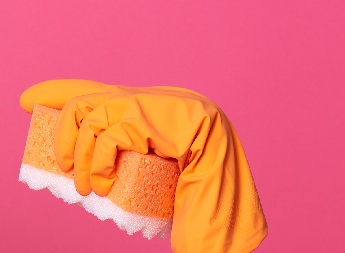
In our increasingly interconnected lives, domestic staff, such as maids, often play a significant role in our households. Their presence can be invaluable, not only in maintaining the home but also in providing companionship and support. However, finding out that your maid is in a relationship can raise various emotions and concerns. This article aims to guide homeowners through this tricky situation with professionalism and respect.
Understanding the Context
Before taking any action, it is crucial to reflect on your feelings and the situation. A maid's personal life is her own, and while she is an employee within your home, she is also an individual entitled to her privacy. Here are some factors to consider when you find out that your maid has a boyfriend:
1. Employment Policies: Check if your employment agreement or household rules outline any restrictions regarding personal relationships. Some households set specific guidelines about staff dating, especially if they live on the premises.
2. Impact on Work: Assess whether this relationship affects her performance or your household environment. If her work continues to meet expectations, the relationship may not be an issue.
3. Health and Safety: Evaluate if the boyfriend poses any potential risk to your family or home. This can include concerns about safety, substance abuse, or questionable behavior.
Addressing the Issue
Once you've considered the context, it may be necessary to address your concerns. Here's how to approach the situation constructively:
1. Communicate Openly
- Choose the Right Time: Find an appropriate moment to discuss your concerns with your maid. Ensure it's a private conversation where you both feel comfortable.
- Be Respectful: Use a calm tone and express your feelings without judgment. For instance, you might say, "I noticed you seem to be spending a lot of time with your boyfriend, and I want to ensure this doesn't affect your work or our household."
2. Set Boundaries
- Clarify Expectations: If you believe there should be boundaries regarding her personal life and work, be clear about your expectations. For example, if you prefer that personal activities should not interfere with work hours, discuss this openly.
- Consider Flexibility: If her relationship does not disrupt her work, consider allowing some flexibility regarding her schedule.
3. Monitor the Situation
- Observe Changes: After your discussion, pay attention to any changes in her behavior or work performance. If there's no negative impact, then it may be best to give her space.
- Evaluate Regularly: Set regular check-ins (if needed) to ensure both parties feel comfortable and that any issues arising are addressed promptly.
Respecting Privacy and Autonomy
While it's essential to address concerns related to work and safety, it's equally important to respect her autonomy. Consider the following:
- Personal Choice: Remember that adult relationships are personal choices. Your maid has the right to pursue her happiness as long as it doesn't negatively impact her professional obligations.
- Avoid Gossip: If others in your household or staff bring up the topic, encourage a culture of respect. Gossiping about her relationship can create an uncomfortable work environment.
Conclusion
Discovering that your maid has a boyfriend requires a thoughtful and professional approach. By communicating openly, setting respectful boundaries, and monitoring the situation, you can navigate this matter with care. Remember to respect her autonomy and privacy, as individuals in domestic roles are entitled to live their lives just as you do. At indian maid agency, the best approach promotes a positive working relationship and a harmonious household. As we navigate personal and professional relationships, it's vital to foster an environment of understanding and respect.
Maid Hiring Tips for Working Professionals
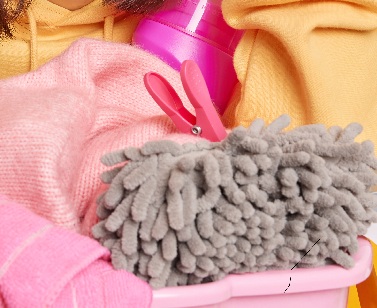
In today's fast-paced world, many working professionals find themselves juggling various responsibilities—from demanding careers to personal commitments. As a result, the need for assistance in managing household chores has become increasingly common. Hiring a maid can significantly alleviate the burden of maintaining a home, allowing you to focus on your work and personal life. However, finding the right maid requires careful consideration. Here are some essential tips for working professionals to ensure a successful hiring process.
1. Assess Your Needs
Before you begin the process of hiring a maid, it is crucial to assess your specific needs. Understanding what tasks you require assistance with is vital in finding the right candidate. Here are some factors to consider:
- Household chores: Identify the specific duties you want help with, such as cleaning, laundry, meal preparation, or running errands.
- Frequency of service: Determine how often you need maid services—daily, weekly, or bi-weekly.
- Duration of service: Decide whether you need a full-time maid or part-time assistance based on your schedule and requirements.
By articulating your needs clearly, you can streamline the hiring process and ensure you find a maid who meets your expectations.
2. Research and Referrals
Once you have a clear understanding of your needs, the next step is to conduct thorough research. Start by seeking recommendations from friends, family, or colleagues who have previously hired maids. Personal referrals can provide insight into the quality of service and reliability.
In addition to personal recommendations, consider the following resources:
- Online platforms: Websites and apps dedicated to housekeeping services often have reviews and ratings from previous customers.
- Local agencies: Hiring through a reputable maid service agency can offer a sense of security, as they typically conduct background checks and training.
By gathering information from multiple sources, you can narrow down your options and ensure a better fit.
3. Conduct Interviews
Once you have a list of potential candidates or agencies, the next step is to conduct interviews. This step is crucial in assessing not only the candidates' skills but also their compatibility with your household. Here are some tips for effective interviews:
- Prepare questions: Develop a list of pertinent questions to gauge their experience, availability, and approach to housework. Examples include:
- How many years of experience do you have in this field?
- Can you provide references from previous employers?
- What specific tasks are you most comfortable with?
- Assess chemistry: It's important to evaluate how the candidate interacts with you and your family. Comfort and trust are essential when letting someone into your home.
- Discuss payment: Be transparent about your budget and the candidate's rates. Establish a clear understanding of payment terms upfront to avoid misunderstandings later.
Conducting thorough interviews helps ensure that you select a maid who aligns with your expectations and standards.
4. Establish Clear Expectations
Setting clear expectations from the outset can prevent potential conflicts and misunderstandings. When you have chosen a maid, take the time to discuss the following points:
- Duties and responsibilities: Clearly outline the tasks that the maid is expected to complete. Providing a checklist can be helpful.
- Schedule and Hours: Agree on a working schedule that accommodates both your needs and your maid's availability.
- Communication: Establish channels for open communication. Whether through text, email, or in-person meetings, maintaining transparency is critical for a successful working relationship.
By clarifying expectations and responsibilities, both you and your maid will have a better understanding of your roles.
5. Conduct Regular Assessments
After hiring a maid, it is essential to regularly evaluate the arrangement to ensure that it continues to meet your needs. Here are some regular assessment practices:
- Check-in meetings: Schedule periodic meetings to discuss the service and any adjustments that might be needed.
- Feedback: Provide constructive feedback to help the maid improve and ensure satisfaction with her work.
- Review performance: If necessary, consider revisiting the contract terms, especially if your needs change over time or you experience any issues.
Regular assessments can help maintain a positive and productive relationship with your maid, ensuring that both parties remain satisfied.
Conclusion
Hiring a maid can be an excellent decision for busy professionals seeking to balance their work and personal lives. By assessing your needs, conducting thorough research, interviewing candidates, establishing clear expectations, and conducting regular assessments, you can create a successful working relationship with a maid. At indian maid agency this valuable assistance can lead to a more organized, stress-free home, allowing you to focus on what truly matters in your life. Investing time and effort in the hiring process will pay off, resulting in a more harmonious living space and improved quality of life.
Understanding the Challenges of Settling in a New Household

In today's fast-paced world, hiring a maid can be an efficient solution for many households. However, the process of integrating a new maid into a home can sometimes be challenging. Particularly when a maid struggles to adapt even after a month, it raises questions about the dynamics of household management and the nuances of personal relationships within the domestic sphere. This article explores the various factors that can hinder a maid's ability to settle in and suggests potential solutions for overcoming these hurdles.
1. Understanding the Adaptation Process
The adaptation process for a new maid can be complex, influenced by several factors that go beyond simply learning the household routines. Here are some key elements to consider:
1. Cultural Differences: Many maids hail from different regions or countries, which can introduce variations in lifestyle, work ethic, and domestic expectations. Understanding these differences can help foster integration.
2. Communication Barriers: Language proficiency often plays a significant role in how comfortable a maid feels in a new environment. Difficulties in communication can lead to misunderstandings and frustration.
3. Personal Compatibility: The personalities of both the maid and the family members can affect how well she settles in. A lack of rapport can create an uncomfortable living and working environment.
2. Creating a Welcoming Environment
To facilitate a smoother transition, it's essential to create a welcoming environment for the maid. Here are some strategies:
1. Open Communication: Foster transparent conversations that allow the maid to express concerns or challenges she may be facing. Regular check-ins can build a sense of trust.
2. Cultural Exchange: Encourage cultural sharing by having casual discussions about each other's backgrounds and experiences. This can bridge the gap and promote mutual respect.
3. Orientation Period: Allow sufficient time for the maid to acclimatize to the home's routines and expectations. Gradually introducing her to various tasks can prevent overwhelming stress.
3. Addressing Specific Concerns
Sometimes, specific issues may need addressing to help the maid feel more comfortable and settled:
1. Household Dynamics: Observe the interactions within the household. If there are conflicts or power imbalances, they may hinder the maid's adaptation process.
2. Feedback Mechanism: Establish a system where the maid can receive constructive feedback on her performance, while also encouraging her to provide feedback on her experience.
3. Support System: Consider whether the maid has a support system outside of work. Sometimes, the feeling of isolation can impact her ability to integrate and perform her duties effectively.
4. Providing Training and Resources
Equipping a maid with proper training and resources can significantly enhance her confidence and effectiveness in the role. Here's how to approach it:
1. Skill Development: Identify any specific skills she may need for the tasks at hand. Offering training sessions can empower her and improve overall household efficiency.
2. Resource Availability: Ensure that she has easy access to necessary supplies and tools. A well-organized environment can streamline tasks and improve job satisfaction.
3. Health and Wellness: Address the physical and mental health aspects of her role at home. Encourage breaks and provide information about any local resources for help and support.
Conclusion
The integration of a maid into a household can be a challenging process that requires attention, patience, and thoughtful management. At indian maid agency, If a maid is struggling to settle in even after a month, understanding the underlying factors and implementing supportive measures can promote a conducive environment for both parties. By fostering open communication, addressing specific concerns, and providing the necessary training and resources, families can create a harmonious domestic space that works for everyone involved. Ultimately, the goal should be to cultivate a mutually respectful and productive relationship that enhances the quality of life for both the maid and the household members.
Criteria for Selecting a Maid for Indian Joint Families

In Indian culture, joint families have traditionally played a significant role in wealth sharing, child-rearing, and social support systems. However, with the increasing pace of
modern life, the need for household help has become more prevalent. Selecting the right maid for a joint family is not just about finding someone to perform household chores; it requires careful consideration to ensure compatibility, reliability, and skill. In this article, we will explore the essential criteria for choosing a maid in an Indian joint family setting.
1. Experience and Skills
When selecting a maid, evaluating her experience and skills is crucial. Here are some factors to consider:
1. Previous Employment: Look for a maid who has previously worked in similar household settings, preferably in joint families. This experience equips her with the necessary skills to navigate the complexities of larger households.
2. Household Chores: Ensure the maid is proficient in a variety of tasks, including cooking, cleaning, laundry, and even caring for the elderly or children if required. Discuss specific skills, such as regional cooking or special dietary preparations.
3. Time Management: A good maid should efficiently manage her tasks within the available time. Assess her ability to prioritize chores, especially in a busy joint family where multiple activities may occur simultaneously.
Subjecting potential candidates to a skill test, where they perform everyday tasks in your home, can provide valuable insight into their capabilities.
2. Compatibility
Compatibility between the maid and all family members is essential for a harmonious household. Here's how to evaluate compatibility:
1. Personalities: A maid's attitude and demeanor should align with the family's values and culture. Arrange for a meet-and-greet to gauge chemistry and ensure she understands family expectations.
2. Communication: Effective communication is vital for clear understanding and minimizing disputes. The maid should speak a common language with family members or display a willingness to learn.
3. Cultural Sensitivity: In a diverse joint family, being sensitive to cultural norms and practices is vital. An ideal maid should be adaptable and respectful of different beliefs and customs.
3. Reliability and Trustworthiness of housemaid
Trust is the foundation of any relationship involving household help. To ascertain reliability, consider the following:
1. Background Check: Conduct thorough background checks to ensure her history is clean and she has no concerning past incidents. References from previous employers can provide insights into her work ethic and reliability.
2. Punctuality: Lateness can disrupt household routines. Observe her punctuality during the interview process and set clear expectations about arrival and departure times.
3. Consistency: A reliable maid should consistently perform her duties and be available for work as needed. Discuss leave policies upfront to avoid misunderstandings later on.
4. Salary Expectations
Discussing salary is often a sensitive topic, but it's crucial for ensuring a mutually beneficial arrangement. Here's how to navigate this aspect:
1. Market Rates: Research the going rates for maids in your area, considering their skills and experience levels. This ensures competitive compensation while attracting better candidates.
2. Negotiation: Be prepared for negotiations. Some candidates may have different salary expectations based on their experiences, so finding a middle ground that respects their skills while fitting your budget is essential.
3. Incentives: Consider offering incentives for exceptional work performance. This can promote loyalty and job satisfaction while encouraging a strong work ethic.
Conclusion
Choosing the right maid for an Indian joint family is a multifaceted decision that requires consideration of experience, compatibility, reliability, and financial aspects. By assessing these criteria comprehensively, families can establish a supportive and efficient household environment. At indian maid agency, the right maid not only alleviates the burden of household chores but enriches the family's daily life by fostering a sense of trust and cooperation. As society evolves, so should the practices that support our way of life - selecting a maid is just one of those practices that, if done thoughtfully, can lead to a more harmonious family dynamic.
Should I Opt for Cooking Classes for My Maid?

In today's fast-paced world, households often rely on domestic help for various tasks, including cooking. As a result, many employers find themselves contemplating whether to invest in cooking classes for their maids. This decision can have significant implications, not just for the quality of food served but also for the overall functioning of the household. In this article, we will explore the potential benefits and drawbacks of enrolling your maid in cooking classes, as well as other factors to consider.
1. Benefits of Cooking Classes for Your Maid
Opting for cooking classes for your maid can be advantageous for both parties. Here are some notable benefits:
1. Enhanced Culinary Skills: Professional cooking classes can equip your maid with advanced cooking techniques, including proper food handling, knife skills, and a better understanding of various cuisines. This knowledge can lead to improved meal preparation.
2. Increased Variety in Meals: With new skills and techniques, your maid can introduce a range of dishes that were previously not part of her repertoire. This could include exploring international cuisines or healthier cooking methods.
3. Healthy Eating Options: Many cooking classes focus on nutrition and healthy cooking practices. By learning how to prepare meals with fresh, wholesome ingredients, your maid can contribute to the family's overall health and well-being.
4. Boosting Confidence: Gaining new culinary skills can significantly enhance your maid's confidence in the kitchen. This may lead to more creativity and ownership over her work, ultimately resulting in better meal satisfaction for your family.
5. Improved Efficiency: Cooking classes can impart time-saving techniques and efficient meal prep strategies, making the cooking process quicker and more organized. This efficiency can benefit both the maid and the family.
2. Financial Considerations
While the benefits of cooking classes are appealing, the financial implications cannot be ignored. It's essential to evaluate:
1. Cost of Classes: Cooking classes can vary significantly in price based on the institution, course type, and location. It's important to consider whether the investment aligns with your budget.
2. Potential Return on Investment (ROI): Calculate the potential savings when your maid can prepare meals that might otherwise have to be purchased from restaurants or pre-packaged. Sometimes, the enhanced culinary skills may lead to cost savings in the long run.
3. Additional Benefits: Consider any additional training that may come with cooking classes, such as food safety or dietary management. These can add value beyond just cooking skills, potentially justifying the cost.
3. Assessing Your Maid's Willingness
Before deciding to enroll your maid in cooking classes, it's vital to assess her eagerness and willingness to learn. Consider:
1. Interest in Cooking: Does she have a passion for cooking or is she merely fulfilling the role out of necessity? A genuine interest can greatly enhance the effectiveness of the training.
2. Learning Style: Some individuals may prefer hands-on experiences or instructional methods that differ from traditional classroom settings. Engaging your maid in a discussion about her preferred learning approach can facilitate better outcomes.
3. Cultural Considerations: Understand her cultural background. Some may have traditional cooking skills that can be expanded upon rather than starting from scratch. Recognizing her existing strengths and interests can help tailor the classes appropriately.
4. Alternatives to Formal Classes
Cooking classes may not be the only route to enhancing culinary skills. Here are some alternatives:
1. Online Courses: Many reputable platforms offer online cooking courses at a fraction of the price of in-person classes. These can be a flexible option tailored to her schedule.
2. Cooking Workshops: Shorter workshops focusing on specific skills or cuisines can be less time-consuming and still provide valuable knowledge.
3. Mentorship Programs: Pairing your maid with a seasoned cook, colleague, or chef can provide one-on-one learning experiences without the formal classroom setting.
4. DIY Approach: If budget constraints exist, consider providing her with cookbooks or access to cooking shows. This self-guided approach can empower her to learn at her own pace.
Conclusion
Investing in cooking classes for your maid can lead to numerous benefits, including enhanced culinary skills, a variety of meals, and improved efficiency. However, it's crucial to weigh the financial implications, assess her willingness to learn, and explore alternatives. Ultimately, the decision should align with your family's needs and values, fostering a productive and harmonious household. At indian maid agency, As you navigate this consideration, remember that investing in skills not only enriches your maid's capabilities but can also elevate the overall dining experience for your family.
Maid Recontract Criteria
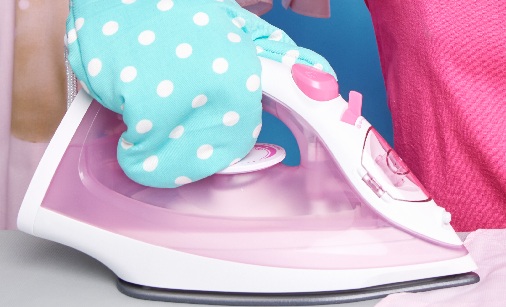
In an ever-evolving domestic landscape, the need for domestic helpers, particularly maids, has been on the rise. As roles shift and expectations change, many employers find themselves in a position to reconsider their options for hiring or retaining maid services. This article explores the essential criteria to consider when re-contracting maids, ensuring an informed decision that aligns with the household's needs.
Understanding the Importance of Re-contracting
Re-contracting a maid involves assessing their performance and determining whether to continue the employment relationship. This decision is not merely transactional; it reflects on the household's harmony, efficiency, and emotional wellbeing. Employers should consider the following aspects:
1. Performance Evaluation: Evaluating the maid's effectiveness and diligence over the previous contract period.
2. Household Needs: Understanding whether the household needs remain the same or have shifted, necessitating changes in roles or duties.
3. Legal and Compliance Factors: Ensuring that all contracts adhere to the legal standards of employment within the respective country.
Key Criteria for Re-contracting Maids
When deciding on re-contracting, several key criteria should be evaluated systematically. Below are critical areas to focus on:
1. Performance Metrics
Assess the maid's performance based on specific metrics:
- Work Quality: Evaluate cleanliness, organization, and the promptness in completing tasks.
- Reliability: Determine the maid's punctuality and reliability in attending to duties.
- Attitude and Conduct: Consider the maid's demeanor, communication skills, and interactions with family members.
2. Compliance with Legal Standards
Legal compliance is critical in any employment scenario. Consider the following:
- Work Visa and Permits: Ensure the maid has an updated work visa and that all legal documentation is in place.
- Labor Laws: Familiarize yourself with local labor laws governing maid employment to mitigate potential legal issues.
3. Feedback and Communication
Regular communication is vital for a successful working relationship. Address the following:
- Surveys and Feedback Sessions: Regularly solicit feedback from both the maid and family members to understand areas of improvement.
- Open Dialogue: Maintain an open and honest dialogue to encourage transparency and address concerns proactively.
4. Skills and Training
Evaluate whether your maid's skillset aligns with the evolving needs of your household:
- Specialized Skills: Consider if your maid has special training, such as cooking particular cuisines or managing children or elderly care.
- Willingness to Adapt: Assess their willingness to undergo additional training if household responsibilities expand or change.
5. Financial Considerations
Re-contracting is also a financial decision. Assess these factors:
- Salary Expectations: Discuss salary expectations according to industry standards and the maid's experience.
- Benefits and Compensation: Evaluate whether benefits like time off, transportation, or health insurance are offered, and adjust accordingly.
Conclusion
Re-contracting a maid is a significant decision that encompasses numerous considerations - from performance metrics to legal compliance and financial factors. Employers should take a holistic approach by regularly evaluating both the maid's contribution and the household's evolving needs. These criteria are pivotal in fostering a productive and harmonious relationship that benefits both parties.
At Okaylah Indian Maid Agency, re-contracting is not simply about renewing an old agreement; it's an opportunity to reflect, realign, and make strategic decisions that serve the best interests of all involved. As the dynamics of home life evolve, staying proactive in reassessing your maid's suitability can lead to a more satisfying and productive domestic environment.
At indian maid agency we provide specific work skill traning to each and every helper.
Addressing the Issue of Laziness Among Maids

In today's fast-paced world, the demand for domestic help has surged remarkably. Many households now rely on maids for various tasks, from cleaning and cooking to managing children's activities. However, a concerning trend has emerged: the perception that maids are becoming increasingly lazy day by day. This article delves into the reasons behind this phenomenon and explores how both employers and employees can address these challenges to foster a productive working environment.
Understanding the Trend of Maid
1. Shift in Work Culture
The work culture surrounding domestic help has evolved significantly over the years. Unlike in previous generations, where domestic workers were often seen as integral members of the household with clear expectations, the current trend leans towards a more transactional relationship. This shift can lead to several issues:
- Lack of Motivation: Maids may feel less valued or appreciated in modern fragmented households, leading to decreased motivation.
- Isolation: Working in an isolated environment can result in feelings of loneliness, which may contribute to a decline in job performance.
2. Job Overload and Stress
Maids often juggle multiple responsibilities within a single household. The increase in the complexity of tasks can lead to burnout. Some of the factors contributing to job overload include:
- High Expectations: Employers often have unrealistic standards for cleanliness and orderliness.
- Long Hours: Many maids work extensive hours, leading to physical and mental fatigue.
These factors can culminate in decreased productivity, making them seem lazy when, in fact, they might simply be overwhelmed.
3. Economic Factors
The economic landscape also plays a significant role in the performance of domestic workers. Factors such as:
- Wage Issues: Low wages may lead to demotivation, resulting in a lack of effort in performing tasks.
- Job Security: Instances of sudden unemployment can create a sense of instability, which can impact work ethic.
Understanding these economic influences can facilitate a more empathetic approach toward resolving performance issues among maids.
Strategies for Improvement
1. Open Communication
Fostering a culture of open communication is essential. Both employers and employees should engage in candid discussions about:
- Expectations: Clearly articulate job responsibilities to ensure everyone is on the same page.
- Concerns: Creating a safe space for the maid to express their feelings about their workload or any challenges they are facing.
2. Recognizing and Appreciating Efforts
Recognition can be a powerful motivator. Simple gestures such as:
- Verbal acknowledgement of hard work.
- Small bonuses or incentives for exceptional performance.
These can go a long way in boosting morale and encouraging more diligent work habits.
3. Training and Development
Offering training programs can help maids improve their efficiency in managing their tasks. Some suggestions include:
- Time management workshops to help prioritize tasks.
- Skill-building sessions to improve techniques in cleaning or cooking.
Seeking Balance- housemaid work (indian maid)
1. Setting Realistic Expectations
Employers should strive to set achievable standards and communicate them clearly. This involves:
- Regularly revisiting expectations to ensure they remain fair.
- Being open to feedback on what is reasonable.
2. Adjusting Workloads
Re-evaluating the workload can have a substantial impact on performance. Employers can:
- Distribute tasks evenly throughout the week.
- Allow for breaks and downtime, which can recharge a maid's energy levels.
Conclusion
The perception that maids are becoming lazy day by day is a multifaceted issue that calls for understanding and dialogue. By considering factors such as changing work cultures, job overload, and economic influences, we can work collaboratively to turn this trend around. At Okaylah Indian Maid Agency, Open communication, recognition, and a focus on training can significantly improve productivity and job satisfaction. As we navigate this changing landscape, fostering goodwill and mutual respect between employers and maids is essential for creating a harmonious household environment. Addressing these issues not only leads to a more efficient domestic environment but also enriches the lives of those who work within it.
At indian maid agency we provide specific work skill traning to each and every helper.
Maid is asking frequent off days addition to her off days
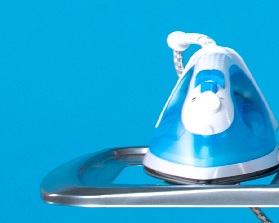
In today's fast-paced world, balancing work and personal time has become increasingly important for all employees, including household maids. The request for additional off days by maids often raises questions about work-life balance, fairness, and employee wellbeing. Understanding the implications of such requests not only helps employers manage their household staff more effectively but also aids in fostering a more suitable working environment. This article delves into the significance of addressing frequent off day requests made by maids, the factors influencing these requests, and alternative strategies for employers.
1. The Importance of Time Off for Domestic Workers
Just like any other job, domestic work can be demanding and stressful. It is vital for household staff to take breaks to maintain their mental and physical health. Here are some reasons why time off is crucial for maids:
1. Mental Health Benefits: Rest days allow employees to recharge mentally, reducing burnout and stress related to their daily tasks.
2. Physical Fatigue: The nature of household chores can be physically exhausting. Days off help alleviate physical strain and enable maids to perform their duties more effectively upon their return.
3. Family and Personal Time: Maids, like all employees, have personal lives, family commitments, or cultural obligations that necessitate time away from work.
Recognizing these needs is essential for maintaining a professional and supportive workplace culture.
2. Factors Influencing Requests for More Off Days
Various factors can contribute to a maid's request for additional time off. Understanding these reasons can help employers respond appropriately:
1. Workload: An increased workload, whether due to extra tasks or larger households, may lead maids to feel overwhelmed, prompting them to seek more time off.
2. Personal Circumstances: Changes in personal circumstances, such as family emergencies or health issues, can necessitate more frequent breaks.
3. Job Satisfaction: A maid who feels valued and understood in her role is less likely to request frequent days off. Conversely, if she experiences job dissatisfaction, she may seek more time away as a coping mechanism.
Being aware of these factors can help employers engage in open dialogue with their maids, potentially resolving issues before they escalate.
3. Effective Communication and Negotiation
When a maid approaches an employer with a request for additional off days, effective communication is critical. Here are a few strategies that can be employed:
1. Open Dialogue: Encourage an honest conversation about her needs. Understanding why she needs more time off can lead to a positive resolution.
2. Regular Check-ins: Implement regular meetings to discuss workload, job satisfaction, and any pressing issues related to work. This can preempt the need for additional off days.
3. Negotiation: If frequent requests stem from genuine issues, consider negotiating a schedule that accommodates her needs while ensuring that household operations remain smooth.
By creating a space for open conversation, employers can foster a sense of trust and support in the workplace.
4. Alternative Solutions for Employers
To balance the needs of household maids with the responsibilities of the household, consider the following alternatives:
1. Flexible Schedules: Instead of adhering to a strict off day policy, employers can offer flexible hours or staggered shifts to distribute workload evenly throughout the week.
2. Part-time Assistance: Hiring additional help during peak times can alleviate the workload from a maid, eliminating the need for frequent off days.
3. Scheduled Time Off: Implement a system where maids can plan their time off in advance, reducing the likelihood of sudden requests.
These strategies can create a more harmonious working environment for both the maid and the employer.
Conclusion
Addressing the requests for additional off days from household maids requires a thoughtful and professional approach. By understanding the importance of time off, recognizing the factors behind such requests, promoting effective communication, and considering alternative solutions, employers can cultivate a supportive and efficient work environment. At Okaylah Indian Maid Agency, balancing the needs of employees with household responsibilities leads to enhanced satisfaction and productivity, benefiting both parties involved. As our understanding of worker wellbeing continues to evolve, extending compassion and flexibility may prove essential in fostering better employer-employee relationships in the realm of domestic work.
At indian maid agency we provide specific work skill traning to each and every helper.
Working with a Maid Who Doesn't Speak English

In our increasingly multicultural world, it's becoming more common to encounter individuals in various professions who may not share the same language. One such situation could involve a maid who does not speak English. This communication barrier can initially seem daunting, but with the right approach, it can also become an opportunity for innovative interaction and understanding. Sign language and non-verbal communication can play crucial roles in bridging the gap that language barriers create. This article explores effective strategies to communicate and build a positive working relationship with a maid who does not speak English.
Understanding the Importance of Communication
Effective communication is the foundation of any successful working relationship, particularly in personal and domestic environments. Here are several reasons why clear communication is essential:
1. Building Trust: When you communicate effectively, it fosters a sense of trust and cooperation.
2. Preventing Misunderstandings: Language barriers can easily lead to misunderstandings, which can cause frustration on both sides.
3. Enhancing Collaboration: Clear communication allows for better instruction and feedback, enabling a smooth workflow.
4. Improving Morale: Feeling understood and included can significantly boost an employee's morale.
Understanding these elements can help you appreciate the importance of finding alternative communication methods.
Utilizing Sign Language and Non-Verbal Communication
When faced with a language barrier, sign language can be an invaluable tool. While not all maids may be familiar with formal sign languages, using basic gestures and facial expressions can significantly enhance communication. Here are practical steps to consider:
1. Learn Basic Signs
Even if you're not fluent in sign language, learning some basic signs related to daily tasks can be incredibly beneficial. Focus on:
- Greetings (hello, goodbye)
- Common household tasks (cleaning, cooking, laundry)
- Essential requests (please, thank you, need help)
2. Use Gestures
Body language can often convey more than words. Use gestures to illustrate your needs. Here are a few tips:
- Point to objects when giving instructions.
- Use hand movements to indicate actions (e.g., mimicking laundry by rubbing hands together).
- Utilize facial expressions to emphasize urgency or importance.
3. Visual Aids
Visual cues can bridge the communication gap effectively. Consider the following:
- Create a picture-based guide for tasks (e.g., images of cleaning supplies, cooking utensils).
- Use labeled diagrams in spaces like the kitchen and laundry to clarify locations and tasks.
4. Patience Is Key
Patience is crucial when communicating through sign language and gestures. Give your maid time to understand your cues and express her thoughts. This is a learning process for both parties.
5. Encourage Feedback
Encourage your maid to express any difficulties she may have in understanding your signs. Establishing a simple way for her to signal when she doesn't comprehend (like a questioning hand gesture) can significantly ease interactions.
Building a Positive Working Relationship
Creating a supportive environment in which both you and your maid feel valued and heard can lead to a more productive and harmonious household. Here are additional tips:
1. Be Respectful: Approach the situation with an open mind and respect for her background and potential challenges.
2. Regular Check-Ins: Schedule time for regular check-ins to discuss her workload and any potential issues.
3. Cultural Sensitivity: Be mindful of cultural differences, which may influence communication styles and expectations.
4. Celebrate Progress: Acknowledge improvements in communication and the completion of tasks, reinforcing positive behavior.
Conclusion
Navigating a communication barrier with a maid who does not speak English can indeed be challenging, but it also presents an opportunity for growth and connection. By utilizing sign language, gestures, and patience, you can foster effective communication that enhances your working relationship. At Okaylah Indian Maid Agency, the goal is to create an inclusive and respectful environment where both parties can thrive. Over time, not only will you improve your ability to communicate, but you may also discover new dimensions of interaction that enrich your daily life. Embrace the challenge, and watch as your efforts yield positive results in both understanding and cooperation.
At indian maid agency we provide specific work skill traning to each and every helper.
Reasons for Preferring Indian Maids by Indian Families
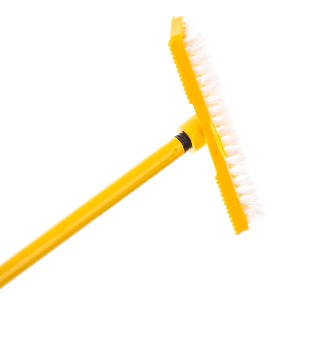
In contemporary India, domestic help has become an integral part of many households, reflecting the socioeconomic dynamics of urban life. While families may consider various factors when hiring help, a significant number prefer hiring Indian maids over foreign help. This article delves into the various reasons driving Indian families to choose Indian maids, shedding light on cultural preferences, communication barriers, skills, and economic considerations.
1. Cultural Compatibility
One of the primary reasons Indian families prefer Indian maids is cultural compatibility.
Key Points:
- Shared Cultural Practices: Indian maids are often more attuned to local customs, traditions, and social norms, which allows for smoother integration into the household.
- Understanding Festivities: Familiarity with Indian festivals, rituals, and dietary practices is crucial. Indian maids can seamlessly participate in, and respect, family traditions.
- Language Proficiency: Communication is significantly easier when the maid speaks the same language as the family. Indian maids typically understand various Indian languages, reducing the potential for miscommunication typically associated with hiring foreign maids.
Cultural compatibility not only enhances the comfort level for families but also fosters a trustworthy and respectful relationship between the employer and employee.
2. Economic Factors
Economic considerations play a pivotal role in the preference for Indian maids.
Key Points:
- Affordability: Employing Indian domestic help is generally more cost-effective compared to hiring expatriates. Indian families can find skilled help within a budget that fits their economic dynamics.
- Flexibility in Work Arrangements: Most Indian maids are open to flexible working hours, which is a crucial requirement for many modern families balancing personal and professional commitments.
This economic viability allows families to engage domestic help without overstretching their financial resources, making it a pragmatic choice.
3. Skill Set and Work Ethic
The skill set and work ethic of Indian maids often align well with the expectations of Indian families.
Key Points:
- Tailored Skill Sets: Indian maids come with training and experience in various household tasks, from cooking regional cuisines to managing household chores effectively.
- Reliability and Dedication: Many Indian maids display a strong work ethic, often committing to long-term employment, which provides stability for families.
- Adaptability to Household Needs: Indian maids can easily adapt to the specific needs of the family, whether it involves caring for children, the elderly, or pets.
The combination of these attributes makes Indian maids a suitable choice for families seeking reliable and effective domestic help.
4. Social Acceptance and Trust
Trust is a fundamental aspect when bringing someone into one's home, and social acceptance plays a significant role in establishing that trust.
Key Points:
- Community Networks: Many Indian families hire maids through referrals from friends or relatives, ensuring that the maid comes with a degree of social proof regarding her reliability and background.
- Shared Experience: Hiring someone from within the same community or background often leads to a sense of camaraderie and understanding of societal norms, increasing comfort levels for families.
The trust factor is particularly significant, as it ensures that families feel secure in their homes while the maid is present.
5. Preference for Local Knowledge and Practices
The understanding of local practices is another compelling reason for the preference of Indian maids.
Key Points:
- Familiarity with Local Markets: Indian maids often know where to procure the best local goods, which can help in maintaining budget friendly household operations.
- Adherence to Household Routines: An Indian maid's comprehension of the local lifestyle includes understanding peak hours for household chores, meal timings, and appropriate household etiquette.
This local knowledge ensures convenience and adapts smoothly to the family's routine, making daily life easier for everyone involved.
Conclusion
The preference for Indian maids by Indian families is multifaceted, encompassing cultural compatibility, economic factors, skill sets, social acceptance, and local knowledge. Each of these elements contributes to building a harmonious relationship between families and their domestic help. At Okaylah Indian Maid Agency, As urbanization continues to shape the Indian landscape, the demand for reliable, culturally attuned domestic help will likely endure, reinforcing the trend of choosing Indian maids. This choice, rooted deeply in cultural values and practical considerations, continues to be an exemplary reflection of Indian family dynamics in the modern era.
At indian maid agency we provide specific work skill traning to each and every helper.
Points to Consider When Hiring a Helper for Elderly Parents
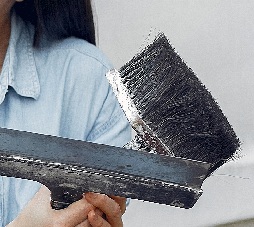
As our loved ones age, ensuring they receive the appropriate care and support becomes increasingly critical. Often, families find themselves in a position where hiring a helper for elderly parents is not just beneficial, but necessary. This decision is multifaceted and requires careful consideration. Below are essential points to take into account when selecting the right helper.
1. Assessing Care Needs
Before seeking a helper, it is essential to assess the specific needs of your elderly parents. Understanding their health status, mobility, cognitive ability, and daily routines will provide a clearer picture of what type of assistance is required. Key areas to evaluate include:
1. Healthcare Requirements: Determine if your parents require assistance with medications, monitoring chronic conditions, or post-surgery care.
2. Physical Assistance: Identify if assistance is needed for mobility, bathing, dressing, or using the restroom.
3. Companionship: Evaluate the social needs of your parents. Do they require someone to engage with them, participate in activities, or simply provide company?
4. Household Tasks: Consider any help with meal preparation, housekeeping, laundry, and errands that may be necessary.
By clarifying these needs, families can ensure that they hire a helper who is well-suited to fulfill the requirements of their loved ones.
2. Qualifications and Experience
Once you've recognized the specific care needs, the next step is to evaluate potential candidates based on their qualifications and experience. Consider the following:
1. Professional Background: Look for helpers with a nursing or caregiving background, as they may have training in elder care and medical needs.
2. Experience: Seek individuals who have experience working with elderly clients, particularly those with similar health issues as your parents.
3. References: Always ask for and verify references. Speak to previous employers to gain insight into the helper's reliability and competence.
4. Certifications: Check for relevant certifications, such as CPR and First Aid, as well as specialized training in geriatric care.
This diligence will help in finding a helper who is not only qualified but also culturally sensitive and capable of providing compassionate care.
3. Compatibility and Personality
The personality and demeanor of the helper play a crucial role in how well they will interact with your elderly parents. Compatibility is key to fostering a comfortable and trusting environment. Consider the following aspects when evaluating potential candidates:
1. Communication Skills: Ensure that the helper possesses excellent verbal skills and can communicate clearly with your parents, addressing their needs and concerns effectively.
2. Empathy and Patience: Look for someone who demonstrates empathy and patience, as these traits are vital in caregiving roles.
3. Shared Interests: If possible, find a helper who shares interests or hobbies with your parents, enhancing the bond and potential for companionship.
4. Trial Period: Consider a trial period to gauge compatibility. This allows your parents to assess how they feel about the helper, and it can be a mutual evaluation for both parties.
Choosing a helper who meshes well with your parents' personalities can make a significant difference in their overall well-being.
4. Legal and Financial Considerations
Hiring a helper involves various legal and financial responsibilities that must be taken into account. Important factors include:
1. Employment Status: Determine whether the helper will be an independent contractor or if you will employ them directly. Each option carries different legal implications.
2. Salary and Benefits: Establish a fair compensation package, including hourly wage, paid time off, and any other benefits.
3. Background Checks: Conduct thorough background checks to ensure safety and security for your parents.
4. Contracts: Draft a formal agreement outlining the responsibilities, working hours, and payment terms. Legal representation may be beneficial in this area.
Being aware of these aspects helps in creating an arrangement that protects your family from potential legal issues and ensures that quality care is provided.
Conclusion
Hiring a helper for elderly parents is a significant decision that requires careful deliberation. By assessing care needs, evaluating qualifications and experience, ensuring compatibility, and considering legal and financial implications, families can make informed choices. Ultimately, the right helper can enhance the quality of life for elderly parents, providing not only necessary support but also companionship. At Okaylah Indian Maid Agency, As you embark on this journey, remember that making a thoughtful choice ensures comfort and peace of mind for both your parents and the entire family.
At indian maid agency we provide specific work skill traning to each and every helper.
Adjusting a Maid from Cold Weather to Singapore's Warm and Wet Climate

Adapting to a new environment can be a daunting task, especially for those transitioning from a cold climate to a tropical one. For maids moving to Singapore, a country renowned for its warm, humid weather, this adjustment can significantly impact their well-being and performance in the household. Understanding the challenges that come with this transition is crucial for both employers and employees. This article aims to explore the adjustments that maids must make when moving from a colder climate to Singapore's warm, wet weather, providing insights on how to ease this transition effectively.
Understanding the Climate Shift
Transitioning from a cold climate to Singapore's tropical weather involves significant changes in daily routines, clothing choices, and lifestyle adjustments. Key aspects of this transition include:
1. Temperature and Humidity: Singapore has an average temperature with high humidity levels. For individuals accustomed to colder, drier air, this can lead to discomfort.
2. Daily Activities: The heat affects physical activities, requiring individuals to adapt their routines accordingly. Tasks may take longer due to the need for frequent breaks to cool down.
3. Health Considerations: The warmer weather can exacerbate health issues if proper precautions are not taken, such as heat exhaustion or dehydration.
Preparation for the Change
To facilitate a smoother transition, it is essential to prepare maids for the shift in climate before they arrive in Singapore. This preparation can include:
Clothing Adaptation
1. Lightweight Fabrics: Encourage packing lightweight, breathable clothing made from cotton or linen to help manage perspiration.
2. Sun Protection: Provide information on the importance of sun protection with hats, sunglasses, and sunscreen to prevent sunburn while working outdoors.
3. Indoor Comfort: Advise on the need for comfortable indoor clothing as they may spend time in air-conditioned environments.
Acclimatization Process
1. Gradual Introduction: If possible, allow a few days of gradual exposure to the humidity and temperature upon arrival, starting with shorter outdoor activities.
2. Hydration Education: Educate on the necessity of regular hydration and provide guidelines on how much water to consume daily.
3. Engagement with Local Practices: Encourage participation in local customs and practices, such as eating local fruits known for their hydration benefits.
Living Conditions Adjustments
Once settled, several adjustments in living conditions can enhance a maid's overall comfort and productivity:
Home Environment Set-Up
1. Air Conditioning: Ensure that the home is equipped with adequate cooling systems, allowing for a comfortable workspace and rest area.
2. Ventilation: Improve air circulation in living and working areas to alleviate the stuffiness often associated with high humidity.
3. Mosquito Control: Implement measures for mosquito control by using nets, repellents, and ensuring the living space is clean to reduce the risk of bites and related diseases.
Emotional and Social Considerations
1. Community Interaction: Encourage social interaction with fellow workers or community members to create a support network.
2. Cultural Education: Facilitate understanding of local culture and language, which can ease communication and foster connections within the household.
3. Mental Health Support: Recognize the psychological impact of climate adaptation; implement strategies for stress relief, such as engaging in recreational activities or providing access to counseling if needed.
Conclusion
The adjustment of a maid from cold weather to Singapore's warm and wet climate is a multifaceted process that requires careful consideration and proactive measures. By understanding the challenges and implementing thoughtful adjustments in clothing, living conditions, and emotional support, both employers and maids can seamlessly navigate this transition. At Okaylah Indian Maid Agency, A well-supported maid can thrive in her new environment, ultimately contributing positively to the household dynamics. Addressing the needs of those adjusting to a new climate not only benefits the maid but enhances the overall working relationship, fostering a more harmonious home.
At indian maid agency we provide specific work skill traning to each and every helper.
Criteria for Selecting a Maid for Elderly Care
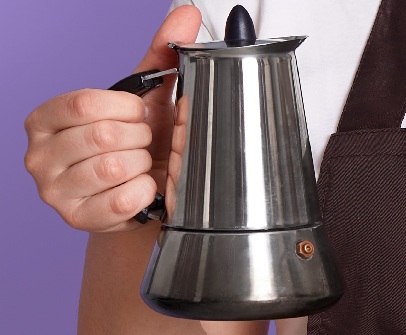
Choosing a caregiver for an elderly loved one is a decision that carries significant weight. Finding the right maid who can offer not only assistance with daily tasks but also companionship and support can greatly influence the quality of life for seniors. In this article, we will explore the essential criteria to consider when selecting a maid for elderly care, helping you make an informed decision for your family member.
1. Qualifications and Experience
When searching for a maid to care for an elderly individual, assessing their qualifications and experience is crucial. Here are some aspects to consider: 1. Educational Background: Look for caregivers with training in geriatric care, nursing, or related fields. Credentials from recognized institutions can provide reassurance regarding their knowledge and skills. 2. Work Experience: Prior experience in elderly care is invaluable. Request details about their previous positions and the types of tasks they handled. 3. Specialized Skills: Some elderly individuals may have specific medical conditions that require specialized care, such as dementia or mobility issues. Ensure that the maid has training pertinent to the needs of your loved one. 4. References: Ask for and check references from former employers. Testimonials can give insight into the maid's reliability and effectiveness in providing care.
2. Personal Traits and Interpersonal Skills
The emotional and social dimensions of caregiving are as important as the practical capabilities of a maid. The following personal traits can greatly enhance the caregiving experience: 1. Compassion and Patience: Caring for the elderly requires a high level of empathy and understanding. Look for individuals who demonstrate compassion and patience, especially in challenging situations. 2. Communication Skills: Effective communication is vital. The caregiver should be able to clearly understand the elder's needs and preferences and articulate them well. 3. Reliability and Trustworthiness: The maid will be given considerable responsibility, often in the absence of family members. Evaluate their trustworthiness and ensure they can be relied upon to keep commitments. 4. Personality Fit: Consider arranging introductory meetings to observe how the maid interacts with your elderly loved one. Compatibility in personalities can lead to a more harmonious living situation.
3. Physical and Technical Capabilities
Elderly care often includes various physical tasks, from daily hygiene to household chores. Consider the following capabilities: 1. Physical Stamina: Assess whether the maid is physically able to assist with mobility, help with transfers, or simply manage the physical demands of caring for an elderly person. 2. Home Management Skills: Tasks may include cooking, cleaning, medication management, and laundry. A maid should be adept at performing these activities efficiently and safely. 3. Emergency Preparedness: Ensure that the caregiver knows how to react in emergencies, including knowledge of basic first aid and how to contact emergency services. 4. Technology Proficiency: As many elderly individuals now use technology for communication or medication management, a maid should be comfortable with basic technology. This can enhance the quality of care provided.
4. Availability and Flexibility
When hiring a maid, it's essential to consider their availability to meet the elderly person's needs: 1. Schedule Compatibility: Discuss and agree on the work schedule beforehand. Weekend or evening availability may be necessary, especially if family members work during the day. 2. Flexibility: Look for a caregiver who can adapt their schedule as needed. Life can bring unexpected challenges, and the maid should be willing to navigate these changes with ease. 3. Part-Time vs. Full-Time: Determine whether you need full-time or part-time assistance, which can greatly influence your selection process. Some families may benefit from live-in caregivers, while others may prefer hourly help.
Conclusion
Choosing a maid for elderly care is a significant responsibility that can impact the health and well-being of your loved one. By carefully considering qualifications and experience, personal traits, physical abilities, and availability, families can select a caregiver capable of providing comprehensive and compassionate care. At Okaylah Indian Maid Agency , the right maid will not only assist with daily tasks but also bring joy and comfort to the lives of those they care for, ensuring a positive experience for both the elderly individual and their family. Making a thoughtful choice in this process is key to enhancing the overall quality of life for seniors.
At indian maid agency we provide specific work skill traning to each and every helper.
How to Manage Two Helpers in the Same Household
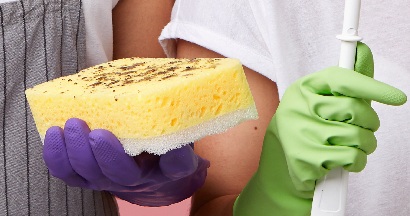
When running a household, particularly one with new complexities such as multiple assistants, effective management becomes crucial for ensuring harmony, efficiency, and productivity. Having two helpers can significantly ease the workload and allow for a smoother daily routine. However, it also requires thoughtful coordination to avoid confusion and overlaps in responsibilities. This article will provide valuable strategies for managing two helpers in the same household, allowing you to create a harmonious living and working environment.
1. Define Roles and Responsibilities Clearly
One of the most significant steps you can take in managing two helpers is to clearly define their roles and responsibilities. Ambiguity can lead to misunderstandings, inefficiency, or even conflict. Consider the following approaches: - Create a Job Description: Outline the specific duties expected from each helper. For example, one might be responsible for cleaning and laundry, while the other focuses on meal preparation and grocery shopping. - Discuss Expectations: Have an open conversation with both helpers about what you anticipate from them. Clarify how tasks should be carried out and encourage them to ask questions if something is unclear. - Set Boundaries: Make sure each helper understands the scope of their responsibilities and prevent overlaps, which can lead to tension. Assigning responsibilities tailored to each helper's strengths can enhance productivity. For example, if one is particularly good at cooking, assign them to meal preparation.
2. Foster Collaborative Communication
Effective communication is essential in any working relationship, especially when managing multiple helpers. Implementing regular check-ins and open lines of communication can greatly improve the working dynamic. - Daily Briefings: Start each day with a brief meeting to review tasks and any additional needs that may arise that day. This allows both helpers to know what is expected and to voice any concerns. - Use a Communication Log: Maintaining a log for communication can help track important messages, concerns, or updates. This physical or digital log serves as a reference point for both helpers. - Encourage Feedback: Create an environment in which both helpers feel comfortable providing feedback about their roles or suggesting changes. Taking their input into account fosters teamwork and mutual respect.
3. Create a Shared Schedule
An effective way to keep everything organized is through a shared schedule that outlines duties, appointments, and important tasks. It ensures that everyone is on the same page regarding who does what and at what time. - Utilize a Calendar Tool: Consider using a digital calendar that both helpers can access. Apps like Google Calendar can be shared for real-time updates. - Visual Schedules: If your helpers prefer a more tactile approach, consider creating a wall calendar in a common area. This can help visually remind everyone of the daily responsibilities at a glance. - Regular Updates: Ensure the schedule is updated regularly to account for new tasks, changes in availability, or adjusted priorities. Such a schedule not only aids in organization but also helps minimize the chances of miscommunication about responsibilities or tasks.
4. Encourage Teamwork and Team Building
Fostering a sense of teamwork among your helpers can significantly enhance their cooperation and job satisfaction. When they view each other as partners rather than just colleagues, the atmosphere in your household can improve remarkably. - Plan Joint Activities: Encourage them to work on tasks that require collaboration or to engage in activities together during their breaks. This could include cooking together or participating in household shopping trips. - Recognize Achievements: Celebrate successes when they manage to work well together or achieve notable tasks. Simple recognition and praise go a long way in boosting morale. - Align Interests: Find out their personal interests and see if there's a way to integrate those into their tasks. For instance, if one enjoys gardening, potentially assign that as part of their duties, which may even encourage collaboration. By creating an environment where both helpers can collaborate and support each other, you can streamline operations and foster a more enjoyable work atmosphere.
Conclusion
Managing two helpers in the same household can be highly beneficial, enabling you to delegate tasks effectively and maintain a well-run home. By clearly defining roles and responsibilities, fostering communication, creating shared schedules, and promoting teamwork, you can help ensure a smooth and cooperative working relationship between your helpers. At Okaylah Indian Maid Agency, With these strategies in place, not only can daily tasks be efficiently managed, but you can also cultivate a positive and productive atmosphere in your household. Remember, by investing time in management practices, you are fostering a successful partnership that will ultimately lead to a more harmonious home environment.
At indian maid agency we provide specific work skill traning to each and every helper.
Steps in the Maid Hiring Process in Singapore
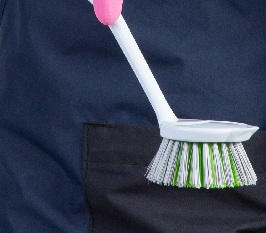
Hiring a maid in Singapore has become increasingly common as busy professionals and families seek assistance with household chores and childcare. The process can be intricate, involving various steps to ensure that both the employer and the maid are a good fit for each other. This article will outline the step-by-step hiring process, providing insights into each phase to help you navigate this important decision.
Step 1: Understanding Your Needs
Before you begin the hiring process, it is crucial to clearly define your requirements. Consider the following questions:
1. What tasks do you need assistance with?
- Cooking, cleaning, childcare, or elderly care?
2. What type of maid do you prefer?
- A local or foreign maid, full-time or part-time?
3. What is your budget?
- Determine how much you are willing to pay for maid services, including salary, agency fees, and other related costs.
Once you have a clear understanding of your needs, you are better equipped to find the right maid who meets those criteria.
Step 2: Choosing an Agency or Independent Maid
In Singapore, you have two main options when hiring a maid: through an agency or directly hiring an independent maid. Each approach has its pros and cons.
Hiring Through an Agency
1. Advantages:
- Screening and Verification: Agencies conduct background checks and screening for potential maids, reducing risk.
- Replacement Services: Most agencies offer guarantees for replacements should the maid not meet your expectations.
2. Disadvantages:
- Higher Fees: Agency fees can be substantial.
- Limited Selection: Your choices may be limited to the agency's database.
Independent Maid Hiring
1. Advantages:
- Cost-effective: Often, hiring directly can save you the agency fees.
- Wider Selection: You may find a more diverse range of candidates.
2. Disadvantages:
- Screening Burden: You will need to conduct your own background checks.
- No Replacement Guarantees: Direct hires do not come with replacement support.
Choose the option that suits your needs and situation best.
Step 3: Interviewing Candidates
After selecting your hiring method, you will begin interviewing candidates. Here's a structured approach to ensure you cover all relevant topics during the interview:
1. Experience and Skills
- Inquire about previous work experience, housing duties, and any relevant skills, such as cooking or caring for children.
2. Language Proficiency
- Ensure the candidate can communicate effectively in a language you are comfortable with.
3. Personality and Compatibility
- Assess whether the candidate's personality will fit well within your family dynamic.
4. Availability and Flexibility
- Check their availability and whether they are flexible with working hours.
It is advisable to conduct interviews in a friendly and relaxed environment, allowing the candidate to feel at ease.
Step 4: Hiring and Documentation
Upon selecting a suitable maid, it's time to formalize the hiring process. This involves a few critical steps:
1. Employment Contract:
- Draft a clear employment contract outlining job responsibilities, working hours, salary, and leave entitlements.
2. Work Permit Application:
- If hiring a foreign maid, apply for a work permit with the Ministry of Manpower (MOM). Ensure all necessary documentation is prepared, including the maid's passport and health insurance.
3. Medical Check-up:
- A mandatory medical examination is required for foreign maids to confirm they are fit for work.
4. Orientation and Training:
- Once officially hired, provide the maid with an orientation about your household rules, routines, and expectations.
Step 5: Post-Hiring and Ongoing Support
Having successfully hired and onboarded a maid, it's essential to maintain a positive working relationship:
1. Regular Communication:
- Schedule regular check-ins to discuss any issues or concerns. Being open and communicative can prevent misunderstandings.
2. Performance Evaluations:
- Conduct periodic evaluations to discuss strengths and areas for improvement.
3. Training Opportunities:
- If necessary, provide opportunities for additional training that can help the maid improve her skills and better serve the household.
4. Offering Feedback:
- Providing constructive feedback can help your maid grow in her role and understand your preferences more deeply.
Conclusion
Hiring a maid in Singapore is a multifaceted process that requires careful planning and consideration. By following these structured steps,from understanding your needs to maintaining an ongoing relationship with your hired maid, you can ensure that you find a suitable candidate who meets your household's requirements. At Okaylah Indian Maid Agency, As society continues to evolve, the need for domestic help remains a pivotal aspect of daily life, making it essential to approach the hiring process with professionalism and care.
At indian maid agency we provide specific work skill traning to each and every helper.
The Implications of Inviting Friends of housemaid Into Your Home

In the diverse cultural tapestry of society, the dynamics within personal spaces can often lead to uncomfortable situations. A recent incident in my household exemplifies the delicate balance between the responsibilities of a household helper and the boundaries of personal privacy. This article examines the implications of a maid inviting her friends into my home to pass her some food items, while exploring the importance of boundaries and respect within personal spaces.
Understanding the Role of House maid Help
Before diving into the intricacies of the situation, it is essential to clarify the expectations surrounding household help. A maid or domestic worker plays a vital role in many households, undertaking tasks that range from cleaning to cooking and sometimes even childcare. However, understanding and establishing clear boundaries is crucial for both parties involved.
1. Workplace dynamics within the home:
- The home environment blurs the lines between workplace and personal space. It is essential to recognize that the dynamics may foster a certain level of familiarity.
- While it is common for household help to feel comfortable, this can sometimes lead to unintentionally overstepping personal boundaries.
2. Expectations of professionalism:
- It is reasonable to expect a level of professionalism from those who work within your home. This includes respecting the household's privacy and maintaining boundaries concerning personal interactions.
The Incident: Friends Inviting by helper
Recently, my maid invited her friends to our home, ostensibly to pass her some food items. While this act seemed innocent and well-meaning, it raised several concerns for me.
1. Privacy and Personal Space:
- Having guests, even for a brief visit, disrupts the privacy I value in my home. An influx of unfamiliar individuals can lead to discomfort and a perceived loss of control over my own living environment.
- The presence of outsiders introduces potential risks, such as theft or misunderstandings, which can compromise my sense of security.
2. Communication Breakdown:
- There can often be a breakdown in communication concerning boundaries between the employer and the employee. The maid's desire to socialize may stem from a need for community, but it can also signal the need for clearer discussions regarding roles and expectations.
Establishing Boundaries of Maid
In situations where personal space may be compromised, it is crucial to reevaluate and establish boundaries to mitigate potential conflicts. Here are practical steps to take:
1. Initiate Open Communication:
- Hold a candid conversation with your maid about the preferred boundaries concerning guests. Clearly indicating your comfort zones is essential.
- Use phrases like, "I value my privacy and prefer not to have guests over," to express your sentiments without creating animosity.
2. Set Guidelines:
- Establish guidelines regarding when and how personal interactions may occur. For example, outlining specific times as unsuitable for socializing within the household context may prove beneficial.
- This could include stating that food items can be exchanged outside the house or during designated breaks.
3. Reiterate the Professional Relationship:
- It is important to maintain clarity regarding the professional nature of the employment. Reinforcing the expectation of professionalism can help ensure adherence to boundaries.
- A respectful reminder that while friendships are encouraged outside the workplace, the home should remain a designated work environment can help mitigate confusion.
Conclusion: Navigating Boundaries and Respect
The incident with my maid inviting her friends into our home serves as a crucial reminder of the importance of establishing and respecting personal space and boundaries. Clear communication and firm expectations can significantly reduce misunderstandings and foster a professional atmosphere.
At Okaylah Indian Maid Agency, navigating these dynamics requires a delicate balance of empathy and assertiveness. By implementing thoughtful conversations and setting clear guidelines, we can preserve the integrity of our personal environments while supporting the social interactions that may enrich our employees' lives. As homes evolve into interconnected spaces filled with complex relationships, maintaining that balance remains paramount for harmony and respect within our living quarters.
In an increasingly interconnected world, how we manage these personal boundaries will define our living experiences and influence our relationships with those who enter our personal spaces.
At indian maid agency we provide specific work skill traning to each and every helper.
How to Navigate Challenges When Welcoming a New Maid

Welcoming a new maid into your home can be both a relief and a challenge. While the prospect of having additional help can alleviate household burdens, it often comes with a multitude of potential issues that can arise during the settling-in period. Understanding these common challenges and addressing them proactively is essential for fostering a harmonious household environment. This article will explore prevalent issues that may occur during a maid's initial settlement and provide practical strategies for addressing these challenges effectively.
Understanding the Common Issues
When a new maid joins your home, several key issues may surface, impacting both their integration into family life and their overall performance. Below are some of the most common challenges:
1. Communication Barriers: Language differences can create misunderstandings and confusion about tasks and expectations.
2. Expectations Misalignment: The new maid may not fully understand her role or may have different perceptions about duties compared to the employer's expectations.
3. Cultural Differences: Different backgrounds can lead to misunderstandings regarding social norms, household routines, and values.
4. Nervousness and Adaptation: The maid may feel anxious in a new environment, which can affect her ability to perform tasks efficiently.
5. Household Dynamics: The existing family dynamics may be disrupted as roles and responsibilities shift with the arrival of a new member.
1. Establish Clear Communication
Effective communication is the cornerstone of a successful relationship with your new maid. Here are some steps to ensure clarity:
- Set Up Orientation Sessions: Take time to orient your maid. Explain the household routines, tasks, and any specific protocols you have in place. This can be done through formal meetings or informal chats.
- Use Visual Aids: If language is an issue, consider creating visual guides or checklists for daily tasks. This can reduce confusion and help the maid remember her responsibilities.
- Encourage Questions: Foster an environment where the maid feels comfortable asking questions. This will help clear up any uncertainties and facilitate better understanding of her role.
2. Define Expectations Explicitly
Before and during the settling-in phase, it's important to communicate your expectations clearly:
- Create a Written Agreement: Outline specific duties, work hours, and any house rules in a documented format. This can serve as a reference point for both parties.
- Discuss Flexibility: While it's important to have defined expectations, be open to discussions about how to make those expectations realistic and achievable for the maid.
- Regular Feedback: Schedule regular check-in sessions to provide constructive feedback and make adjustments if necessary. This promotes continuous improvement and ensures alignment.
3. Foster Cultural Understanding
Embracing and respecting cultural differences can enhance the relationship with your new maid:
- Share Background Information: Share your cultural practices and ask about hers. This two-way sharing can create a better understanding and appreciation of each other's backgrounds.
- Be Patient and Respectful: Recognize that adaptation may take time. Be patient as your maid learns the family environment.
- Incorporate Cultural Learning: If possible, involve her in family activities or celebrations that reflect your cultural customs. This inclusion can build camaraderie and assist her adaptation process.
4. Support Emotional Well-Being
The emotional health of your maid is essential for her performance and integration within the household:
- Provide a Comfortable Space: Ensure that her living quarters are comfortable and feel like a personal space. This helps in reducing anxiety and making her feel at home.
- Encourage Social Interaction: If she's comfortable, encourage her to interact with family members. Building rapport can significantly enhance her comfort level and job satisfaction.
- Recognize Achievements: Acknowledge her efforts and accomplishments, no matter how small. Positive reinforcement can boost her morale and motivation.
5. Establish Household Dynamics
Adjusting to new household dynamics can be complicated, but with a few strategies, it can be easier for everyone:
- Involve Family Members: Clearly communicate to your family about the maid's role and responsibilities. Encourage them to interact with her positively.
- Set Boundaries: Explain any boundaries that are important for maintaining harmony and privacy within the home.
- Create Teamwork Opportunities: Involve your maid in family tasks where appropriate. This promotes a sense of belonging and teamwork in the household.
Conclusion
Onboarding a new maid into your home presents its own set of unique challenges, ranging from communication barriers to adapting to cultural differences. By establishing clear communication, defining expectations, fostering cultural understanding, supporting emotional well-being, and managing household dynamics, you can create a welcoming environment for your new maid. At Okaylah Indian Maid Agency, By proactively addressing these common issues, you not only ease her transition but also enhance the overall household atmosphere, leading to a more productive and enjoyable living space for everyone involved.
At indian maid agency we provide specific work skill traning to each and every helper.
What to Do When Your Maid is Experiencing Tooth Pain?

Tooth pain can be a distressing experience, not just for the individual suffering but also for those around them. If your maid is experiencing tooth pain, it can impact her ability to perform her work efficiently. As an employer, it is important to handle the situation with empathy and professionalism. This article will outline several steps you can take to assist your maid during this time, emphasizing the importance of health and well-being in the workplace.
1. Assess the Situation
Before taking any action, it's crucial to fully understand the situation. Here are some questions to consider:
- Severity of Pain: How intense is her discomfort? Is it constant or intermittent?
- Duration: How long has she been experiencing this pain?
- Other Symptoms: Are there any associated symptoms, such as swelling, fever, or difficulty eating?
Action Steps:
- Communicate: Have a conversation with your maid to assess her condition.
- Listen: Encourage her to explain her symptoms in her own words to get a clearer picture.
2. Provide Immediate Relief
While waiting to see a dentist is essential, you can help alleviate her pain in the meantime. Here are some methods to consider:
- Pain Relief Medications: If appropriate, offer over-the-counter pain relief options such as ibuprofen or acetaminophen.
- Cold Compress: Suggest the application of a cold compress on the affected area to reduce inflammation and numb the pain.
- Saltwater Rinse: Advise her to rinse her mouth gently with warm saltwater. This can temporarily soothe inflamed gums and clean the area.
Action Steps:
- Ensure she understands any medication dosages.
- Demonstrate how to use a cold compress effectively.
3. Facilitate Dental Care for Maid
If her condition persists or worsens, arranging for her to see a dentist is crucial. This is often the best course of action for a definitive diagnosis and treatment.
- Locate a Dentist: Help her find a nearby dental clinic that accepts walk-in patients or offers emergency services.
- Transportation: If she lacks transportation, consider offering to drive her or arranging for transport.
- Financial Assistance: If finances are an issue, discuss options to either cover the cost or assist her in finding affordable care.
Action Steps:
- Research local dental practices in advance to speed up the process.
- Have a conversation about costs, as dental care can be expensive.
4. Monitor Recovery
If your maid receives treatment, it's vital to monitor her recovery process. Consider the following:
- Follow-Up Care: Encourage her to adhere to any follow-up appointments recommended by the dentist.
- Check-Ins: Regularly check in to see how she's feeling and if her condition has improved.
- Work Arrangements: Depending on the severity of her condition, you might need to adjust her work schedule temporarily.
Action Steps:
- Approach these conversations sensitively to ensure she feels supported.
- Maintain flexibility with her work responsibilities as she recovers.
5. Create a Supportive Environment
Lastly, fostering a supportive environment can make a significant difference. Whether it's through showing understanding or modifying work conditions, consider the following:
- Open Communication: Always promote a culture where employees feel comfortable discussing health issues.
- Stress Management: Encourage practices that can help reduce stress, which can also contribute to better health overall.
Action Steps:
- Communicate that her well-being is a priority.
- Offer helpful resources, such as reminders for regular dental check-ups.
Conclusion
When your maid is experiencing tooth pain, it's essential to approach the situation with care and professionalism. By assessing the situation, providing immediate relief, facilitating dental care, and monitoring her recovery, you can play a crucial role in her well-being. At Okaylah Indian Maid Agency, Remember that a healthy work environment fosters productivity and overall happiness. Encouraging open communication will not only help in this situation but also strengthen your relationship with your maid. Your support can make a significant difference during a challenging time, ultimately benefiting both her health and your household dynamics.
At indian maid agency we provide specific work skill traning to each and every helper.
Indian Maids in Singapore: Origins and Insights

In recent years, the global demand for domestic help has surged, particularly in cosmopolitan cities like Singapore. Indian maids have become a significant part of this workforce, catering to the needs of families who require domestic assistance. While these women hail from various regions across India, each location contributes unique characteristics to their work ethic and skills. In this article, we will explore the primary regions in India that supply maids to Singapore, examining the advantages and disadvantages associated with each group.
1. Darjeeling and Sikkim Maid
Origin and Demographics
Darjeeling, located in the northern state of West Bengal, and the adjoining state of Sikkim are known for their picturesque landscapes and tea plantations. The women from this region often possess a strong work ethic influenced by their surroundings and traditional upbringing.
Advantages
- Cultural Sensitivity: Maids from Darjeeling and Sikkim tend to have a nuanced understanding of household dynamics, often respecting the cultural diversity prevalent in Singapore.
- Language Skills: Many individuals from these areas are proficient in English due to their education systems, making communication with employers smoother.
2. Manipur and Mizoram Helper
Origin and Demographics
The northeastern states of Manipur and Mizoram are home to a rich tapestry of cultural heritage. The women from these regions are often hardworking and resilient, adapting quickly to new environments.
Advantages
- Adaptability: Their background equips them with the ability to adapt to different living conditions and work scenarios, often leading to better performance in diverse households.
- Strong Community Bonds: Many come from tight-knit communities, often helping each other navigate the challenges of working abroad.
3. Tamil Nadu Housemaid
Origin and Demographics
Tamil Nadu, in South India, is known for its rich culture and education system. Tamil-speaking women are widely sought-after for domestic roles in Singapore.
Advantages
- Skill Diversity: Many women from Tamil Nadu have experience in cooking, gardening, and managing household tasks, making them versatile employees.
- Formal Training: Some maids undergo formal training programs in housekeeping and childcare, equipping them with essential skills.
4. Telugu-speaking Regions
Origin and Demographics
Telugu speakers primarily come from Andhra Pradesh and Telangana. Known for their tenacity and strong work ethics, these women are increasingly finding domestic roles in Singapore.
Advantages
- Strong Work Ethic: Women from these states often possess a reputation for diligence and commitment to their work.
- Economic Motivation: Many are motivated by the financial support they can provide to their families, leading to a strong desire to perform well.
5. Gujarati Communities
Origin and Demographics
The Gujarati community is known for its entrepreneurial spirit and diverse skill sets. Maids from Gujarat bring their cultural heritage and work ethics to the households they serve.
Advantages
- Diverse Skill-Set: Many women are skilled in cooking various cuisines and maintaining household operations in a systematic manner.
- Experience with Diverse Families: Given Gujarat's demographic diversity, these maids often adapt well to varied household setups.
Conclusion
Indian maids comprise a vital part of the domestic workforce in Singapore, representing diverse backgrounds from states like Darjeeling, Sikkim, Manipur, Mizoram, Tamil Nadu, Telugu-speaking regions, and Gujarat. While these women bring valuable skills and a strong work ethic to their roles, they also face challenges in adapting to new work environments and cultural expectations. At Okaylah Indian Maid Agency, Understanding the origins and nuances of these maids not only helps employers appreciate their diverse offerings but also fosters a more supportive and productive workplace for all. Moving forward, fostering an environment of respect and support can greatly enhance the experience for both maids and their employers in Singapore.
At indian maid agency we provide specific work skill traning to each and every helper.
Behavior of a Maid Standing by the Window
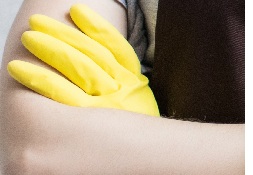
In the realm of domestic work, the role of a maid encompasses a variety of tasks aimed at maintaining household efficiency and comfort. However, the behavior of domestic workers can sometimes evoke curiosity and concern. A common observation is that maids frequently stand near windows during their breaks. This article seeks to explore the underlying reasons for this behavior, its implications for rest and mental well-being, and strategies for fostering a positive work environment.
1. Understanding the Need for Observation
1.1 Natural Curiosity
One of the primary reasons a maid may stand by the window is a natural sense of curiosity about the world outside. Human beings are inherently drawn to their environment, and looking out the window allows for a brief escape from routine tasks. For many, this simple action serves as a way to alleviate boredom and stimulate the mind.
1.2 Social Interaction
Observing the activities occurring outside can also provide a sense of connection to the outside world. In many households, particularly in urban areas, the window serves as a portal that allows individuals to witness life beyond the confines of their work environment. This can foster feelings of belonging and social awareness during what might otherwise be solitary breaks.
2. The Need for Rest and Mental Breaks
2.1 Importance of Downtime
While asked to take rest, standing by the window may serve as a unique form of relaxation for the maid. Taking breaks is crucial for maintaining productivity and mental well-being in any job. Regular intervals of downtime can:
1. Improve Focus: Brief periods away from work can help reset focus when returning to tasks.
2. Enhance Creativity: Exposure to new stimuli may encourage creative thinking and problem-solving.
3. Reduce Stress: A change of scenery, even if just from one room to another, can help clear the mind.
2.2 Breaking Monotony
In a routine that may often feel repetitive, the act of standing outside can break the monotony. This behavior may serve as a form of mental health maintenance, allowing the maid to unwind and return to her responsibilities with renewed energy and perspective.
3. The Role of Communication
3.1 Expressing Needs
It's essential for employers to establish open lines of communication with their domestic workers. If a maid is frequently found standing by the window, it may indicate unmet needs, whether emotional or practical. Engaging in regular conversations about feelings and work dynamics can:
1. Build Trust: Establishing a trusting relationship can encourage employees to communicate their needs effectively.
2. Clarify Expectations: Open dialogue allows both parties to understand expectations regarding breaks and responsibilities.
3. Enhance Job Satisfaction: When workers feel heard, their overall job satisfaction may increase, leading to improved performance.
3.2 Observing Behavior
Employers should also observe behaviors without making hasty judgments. Understanding that standing by the window is likely not an act of defiance but rather a healthy way to cope with work demands can foster a more understanding work environment.
4. Recommendations for a Positive Work Environment
To promote a culture of well-being among domestic workers, consider the following recommendations:
1. Encourage Regular Breaks: Implement structured break times to ensure that workers understand the importance of rest.
2. Offer Varied Rest Areas: Create comfortable and inviting rest areas within the home, perhaps with a view of the outdoors, allowing for a more enjoyable break.
3. Check-in Regularly: Have periodic check-ins with the domestic worker to discuss their workload and overall mental well-being.
Conclusion
The act of a maid standing near a window during breaks is a multifaceted behavior that reflects natural human tendencies towards curiosity, social connection, and the need for rest. While it may be easy to overlook, such behaviors can reveal insights into the worker's mental state and needs. At Okaylah Indian Maid Agency, By fostering an open communication channel and supporting their rest requirements, employers can create a more harmonious and respectful work environment. Ultimately, recognizing the significance of moments spent gazing out the window can lead to a stronger bond between domestic workers and their employers, resulting in a more productive and healthy workplace.
At indian maid agency we provide specific work skill traning to each and every helper.
My Maid Is Complaining About Me to My Neighbours

In today's interconnected world, the dynamics of living with a domestic worker can sometimes lead to unexpected challenges. A situation that may arise is when a maid or domestic helper begins expressing dissatisfaction to neighbors, which can create tension and misunderstandings. If you find yourself in such a predicament, it is essential to approach the situation with professionalism and a constructive mindset. This article will explore the various aspects surrounding this issue and offer strategies for effective resolution.
Maid Complain- Understanding the Context
Before diving into solutions, it's crucial to understand why a maid might voice complaints to neighbors. Several factors could contribute to this behavior:
1. Communication Breakdown: Insufficient communication about expectations, duties, or household norms may lead to frustration.
2. Personal Issues: The maid may be dealing with personal problems that affect her performance or mood, leading her to vent to others.
3. Cultural Differences: Differences in cultural norms regarding work ethics, respect, and professionalism can also result in misinterpretations.
4. Workplace Environment: A negative working environment or perceived mistreatment can prompt complaints as a way to seek support from others.
Understanding these underlying factors can provide insight into the situation and help in addressing the issues effectively.
Step 1: Open Communication with Maid
The first and foremost step to resolving complaints is to open a channel of communication with your maid. Consider the following approaches:
- Schedule a Meeting: Set aside time to discuss her concerns. Choose a calm and neutral setting.
- Listen Actively: Give her the opportunity to express her feelings without interruption. Take notes if necessary, to show you value her input.
- Clarify Expectations: Clearly outline your expectations regarding her responsibilities and behavior in the household. This discussion can help prevent future misunderstandings.
- Encourage Honesty: Make it known that she should feel comfortable approaching you with concerns instead of venting to others.
This engagement fosters mutual respect and creates an environment where both parties feel heard and understood.
Step 2: Reflect on Feedback
Even though complaints can be challenging to hear, it's vital to reflect on any valid feedback your maid may provide. Consider these points:
1. Self-Assessment: Examine your behavior and the dynamics of your interactions with her. Are there areas where you could improve?
2. Adjust Workload: If her complaints are related to workload, consider whether her tasks are reasonable and manageable.
3. Provide Resources: If she is struggling with specific tasks, ensure that she has the tools and resources needed to perform her duties effectively.
4. Acknowledge Challenges: Life can be stressful for domestic workers. Acknowledge the challenges she faces, both professionally and personally.
Taking an honest look at her feedback can strengthen your working relationship, ultimately leading to a more harmonious home environment.
Step 3: Establish housemaid's Boundaries
Following the discussion and reflection, it is essential to set clear boundaries:
- Define Professionalism: Discuss what constitutes professional behavior from both sides, including respect and confidentiality.
- Discuss Limitations: Talk about acceptable topics and behavior with neighbors. Make it clear that private matters should remain confidential.
- Reiterate Consequences: Explain the potential negative impacts of discussing house-related issues outside of the home. This sets a tone for accountability.
- Negotiate Terms: If she feels undervalued or overworked, negotiate fair terms of service to ensure job satisfaction for her, while also maintaining the integrity of the household.
Boundaries can prevent future misunderstandings and support a positive relationship built on mutual respect.
Step 4: Monitor Changes
After implementing the above measures, continue to monitor the situation. Regular check-ins can be helpful:
- Weekly Meetings: Set up weekly or bi-weekly discussions to address any ongoing concerns.
- Stay Observant: Pay attention to any signs of discontent or stress so you can address issues before they escalate.
- Encourage a Positive Environment: Foster a positive home atmosphere by recognizing her contributions. Simple gestures, like thanking her for her hard work, can make a significant difference.
- Provide Feedback: Offer constructive feedback regularly, acknowledging both good performance and areas needing improvement.
By maintaining open lines of communication and expressing appreciation, you can create an environment that mitigates the need for external complaints.
Conclusion
Navigating the challenges of having a maid who complains about you to your neighbors requires a methodical approach centered on communication and professionalism. By understanding the context, engaging in open dialogue, reflecting on feedback, establishing boundaries, and monitoring changes, you can foster a more harmonious relationship. At Okaylah Indian Maid Agency, In the end, creating a positive work environment benefits both employees and employers alike, thus leading to a more pleasant living experience for all parties involved. Yet, it is crucial to remember that a healthy dialogue can pave the way for resolution and growth, creating a foundation for mutual respect and understanding in your domestic arrangement.
At indian maid agency we provide specific work skill traning to each and every helper.
My Maid is going to her room so frequently
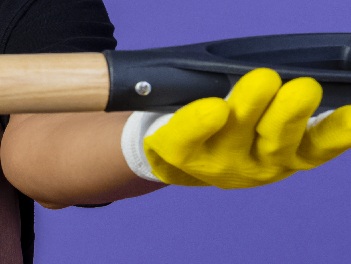
In households where domestic help is employed, balancing the demands of the household with the needs of staff can sometimes be a challenge. Specifically, when a maid frequently retreats to her room after completing tasks, it can raise questions about work dynamics, expectations, and communication. This article seeks to explore the reasons behind such behavior, its implications, and effective strategies for better engagement.
1. The Nature of Domestic Work
To comprehend why a maid might frequently return to her room, it is essential to define the nature of domestic work and the expectations surrounding it.
- Diverse Responsibilities: A maid's responsibilities can range from cleaning and cooking to laundry and organization. Each task may require distinct skills and focus.
- Mental and Physical Fatigue: Domestic work can be physically demanding. A maid might need to rest after completing a task due to fatigue, especially in households with significant demands.
Understanding this backdrop provides a fundamental basis for analyzing her behavior.
2. Communication Gap
Frequent calls for assistance can create an atmosphere of pressure that may influence a maid's behavior.
- Clarity of Expectations: If your expectations of her role aren't communicated clearly, it might lead to misunderstanding. Are you calling her for minor tasks that could wait?
- Open Dialogue: Encourage a culture of communication where your maid feels comfortable discussing her workload and concerns. This can foster a better understanding of her needs and yours.
Establishing clear lines of communication can help minimize confusion and ensure that both parties understand one another's expectations.
3. Work Environment and Comfort
The environment in which a maid works significantly affects her motivation and productivity.
- Workload Evaluation: Frequently checking in on her may signal to her that she is under constant scrutiny, which can be demotivating. Assess whether the number of tasks is reasonable.
- Comfort in the Workplace: Ensure that the area where she works is comfortable and accommodating. A positive work environment often leads to more engagement and less frequent retreats to her personal space.
These adjustments can help create a more conducive atmosphere for both the maid and the employer.
4. The Importance of Breaks
Regular breaks are crucial to maintaining productivity, especially in demanding jobs like domestic help.
- Scheduled Rest: Encourage scheduled breaks during her work hours. This could provide her with dedicated time to recharge without feeling guilty about retreating after completing a task.
- Recognizing Signs of Fatigue: Acknowledging when your maid appears fatigued and allowing her space to rest can enhance her overall productivity when she is working.
Recognizing and respecting the importance of breaks can create a healthier and more effective working relationship.
5. Solutions for Improvement
Implementing some strategic approaches can help bridge the gap between expectations and reality.
1. Task Lists and Time Management: Develop a daily or weekly task list that outlines expected responsibilities and deadlines. This helps in knowing when to expect her presence.
2. Regular Check-ins: Instead of frequent calls, consider having regular check-ins to gauge whether she needs assistance or if she has questions about upcoming tasks.
3. Open Feedback Sessions: Schedule time to discuss her work experience, the workload, and suggestions for improvement together. Both parties can gain valuable insights from these discussions.
4. Encouragement and Recognition: Acknowledge her efforts openly. Feeling valued can boost her morale and willingness to remain engaged.
Such practices can bolster a supportive relationship while ensuring effective completion of household tasks.
Conclusion
Understanding why a maid might frequently retreat to her room after completing tasks is crucial for fostering a productive and harmonious working environment. By recognizing the nature of domestic work, addressing communication gaps, evaluating the work environment, and scheduling breaks, both employer and maid can benefit from improved engagement and satisfaction. At Okaylah Indian Maid Agency, Building a stronger, more communicative relationship allows for a more efficient domestic setup and a happier work atmosphere. Ultimately, fostering a balance between work demands and personal needs is key to a successful partnership in domestic settings.
At indian maid agency we provide specific work skill traning to each and every helper.
Understanding the Challenges of New Maid

The dynamics of hired help, especially in domestic settings, often reflect deeper human emotions and challenges. Recently, I faced a situation that many employers might relate to: my maid, who had just joined my household, expressed a strong desire to return home due to home sickness only a month into her employment. Initially, she had conveyed her need for financial stability, yet her priorities seemed to shift drastically with the onset of homesickness. This article aims to explore the emotional and psychological aspects surrounding this behavior, as well as the broader implications for both employers and employees in similar situations.
1. The Impact of Homesickness
Understanding Homesickness of helper
For many individuals, leaving home for work, even if it is a step towards financial independence, can trigger intense feelings of nostalgia and longing. Homesickness manifests in various ways, including:
- Emotional Distress: Feelings of sadness, anxiety, or loneliness may arise.
- Physical Symptoms: Fatigue or a decline in overall health can accompany the mental toll.
- Difficulty in Focus: A preoccupation with thoughts of home might impair one's ability to adapt and integrate into a new environment.
It's crucial to recognize that these feelings are not a sign of weakness; rather, they represent a fundamental human experience that can affect anyone who is away from their emotional support systems.
2. The Financial Motivation vs. Emotional Well-being
The Shift in Priorities of Housemaid
At the time of hiring, my maid emphasized her urgent need for money, which was likely aligned with her personal circumstances. This urgency often drives individuals to take on employment, even when they may not be fully prepared for the emotional ramifications of relocating away from home.
However, once she began her duties, the initial appeal of financial compensation seemed to dim in comparison to her emotional health. This shift raises a critical question: how do we balance financial necessity with emotional well-being?
The Importance of Addressing Needs
While monetary compensation is undoubtedly crucial, it is essential to address the holistic needs of new employees. Employers should consider:
1. Regular Check-ins: Establishing a routine of open communication can help employees express their feelings and challenges.
2. Supportive Environment: Creating a welcoming environment may ease the transition and make new hires feel more at home.
3. Understanding Flexibility: Offering flexible schedules or time off to cope with homesickness may illustrate empathy and support toward their well-being.
3. Building Resilience in Employees
Strategies for Adjustment of housemaid
For many people, the transition into a new work environment can be daunting. Encouraging resilience is key to helping employees adapt and thrive. Possible strategies include:
- Mentorship: Pairing new staff members with more experienced colleagues for guidance.
- Training Programs: Initiating cultural orientation or wellness programs can foster a sense of belonging and community.
- Encouraging Social Connections: Encouraging employees to form social bonds may help alleviate feelings of isolation.
By fostering an environment focused on collective support and resilience, employers can influence the level of comfort and satisfaction among their employees, potentially reducing instances of homesickness.
Conclusion
The scenario of my maid feeling homesick within her first month of employment serves as a poignant reminder of the interplay between financial needs and emotional fulfillment. While monetary compensation undeniably plays a key role in job selection, employers must remain vigilant about the emotional and psychological landscapes of their employees. By addressing homesickness with empathy, understanding, and support, both parties can work towards a mutually beneficial relationship. At Okaylah Indian Maid Agency, our awareness and response to such challenges not only enhance workplace morale but also underscore our commitment to promoting the well-being of those we employ. In the broader context of employment, let us strive to cultivate work environments where emotional health is as valued as financial gain.
At indian maid agency we provide specific work skill traning to each and every helper.
New Maid Arrival Checklist: Ensuring a Smooth Transition

Hiring a new maid is a significant decision that can help streamline your household chores and provide you with the time to focus on other important aspects of your life. To make this transition as smooth as possible, it is crucial to have a comprehensive checklist that covers all necessary aspects of the new maid's arrival. This article presents a well-structured checklist to guide you through the hiring process and ensure that everything is set for your new employee.
1. Pre-Arrival Preparations
Before your new maid starts, it's essential to take some preparations that will ease their transition into your home.
Essential Tasks
- Professional Background Check: Conduct a thorough background check. This includes verifying their work history, references, and any certifications if applicable.
- Interview and Trial Period: Ensure you have conducted a comprehensive interview, and, if possible, a trial period where they can demonstrate their skills.
- Draft Employment Agreement: Create a clear employment agreement that covers hours, payment, duties, and other expectations.
- Determine Work Schedule: Establish a clear work schedule that outlines their daily and weekly responsibilities.
2. Supplies and Equipment
On the new maid's first day, it's vital to have all necessary supplies and equipment ready for them.
Required Supplies
- Cleaning Supplies: Ensure that all cleaning products, such as detergents, disinfectants, and tools (e.g., mops, brooms, vacuum cleaners) are available and organized.
- Personal Protective Equipment: Stock up on gloves, masks, and any other personal protective equipment they may need to perform their duties safely.
- Uniform (if applicable): If your maid is required to wear a uniform, ensure it is clean and properly fitted before their arrival.
- List of Supplies: Prepare a list highlighting where each item is located, making it easier for the maid to find what they need.
3. House Orientation
Once your new maid arrives, conducting an orientation is crucial to help them familiarize themselves with the house and your specific requirements.
Orientation Steps
- Tour the Property: Give a thorough tour of the house, highlighting key areas such as bedrooms, bathrooms, kitchen, and any special cleaning instructions.
- Explain House Rules: Share any house rules, such as areas that are off-limits, preferred cleaning methods, and times when they can or cannot perform certain tasks.
- Introduction to Family Members: If applicable, introduce them to family members or pets to create a welcoming environment.
- Technology Setup: Show them how to use any technology required for tasks, such as security systems or cleaning gadgets.
4. Duties and Responsibilities
It's essential to clearly outline the tasks that need to be performed by the new maid from day one.
Common Responsibilities
- General Cleaning Tasks:
1. Dusting and vacuuming all common areas.
2. Mopping floors and cleaning windows.
3. Changing bed linens and making beds.
- Kitchen Duties:
1. Washing dishes and loading/unloading the dishwasher.
2. Cleaning countertops and kitchen appliances.
3. Taking out the trash and recycling.
- Laundry Responsibilities:
1. Washing, drying, and folding laundry.
2. Ironing clothes as per your preferences.
- Special Requests: Establish a procedure for any special requests, such as deep cleaning or organizing particular spaces.
5. Communication and Feedback
Open communication is key to a successful working relationship with your maid.
Communication Tips
- Regular Check-Ins: Schedule regular check-ins to discuss performance, answer questions, and address any issues that may arise.
- Feedback Mechanism: Provide constructive feedback through both informal catch-ups and structured reviews at set intervals.
- Encourage Questions: Foster an environment where the maid feels comfortable asking questions and sharing any concerns about their duties.
Conclusion
Hiring a new maid is a responsibility that involves careful planning and consideration. By following the comprehensive checklist outlined in this article, you can ensure that both you and your new employee are well-prepared for a successful and harmonious working relationship. At Okaylah Indian Maid Agency, A well-structured onboarding process helps set clear expectations and fosters a positive atmosphere, leading to effective teamwork in maintaining a tidy and organized home. As you embark on this new journey, remember that open communication and mutual respect will go a long way in establishing a positive partnership.
At indian maid agency we provide specific work skill traning to each and every helper.
What is the Best Option: A JAPA Maid or a Maid with Newborn Experience?
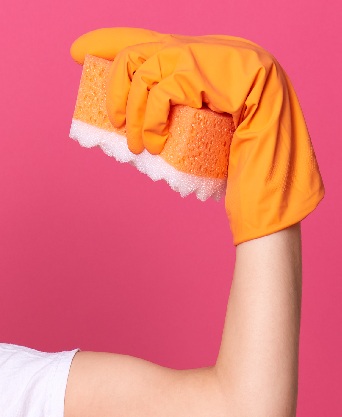
As the excitement builds for your upcoming bundle of joy, it is natural to want to ensure that you provide the best possible care for your newborn. One of the key decisions you will face before the arrival of your baby is whether to hire a JAPA helper or a maid with specific experience in newborn care. Both options come with their unique advantages and considerations, which can influence your choice based on your individual needs and circumstances. This article explores the pros and cons of each option to help you make an informed decision.
Understanding JAPA Helpers
What is a JAPA Helper? JAPA, originating from Nigeria, colloquially means "to travel abroad." A JAPA maid is typically someone who has recently relocated to your country and may not have extensive experience in the local culture or childcare practices. However, they often have a strong willingness to learn and a robust work ethic.
Pros of Hiring a JAPA Helper
1. Affordability: Generally, JAPA helpers might offer more competitive rates than established caregivers with specialized newborn experience.
2. Flexibility: They often have a flexible work schedule, which can be beneficial for parents needing varying hours of support.
3. Willingness to Learn: Many JAPA helpers are eager to adapt and learn about local childcare practices and might develop a strong bond with the family.
Cons of Hiring a JAPA Helper
1. Limited Experience: They might not have hands-on experience dealing with newborns, which can raise concerns about care quality during the early weeks.
2. Cultural Adjustment: Adjusting to a new environment may take time, and there could be communication barriers or misunderstandings regarding parenting practices.
3. Regulatory Knowledge: They may not be familiar with local regulations on caregiving, which could impact their effectiveness in your home.
The Value of a Maid with Newborn Experience
Why Choose a Maid with Newborn Care Experience? A maid with a solid background in newborn care comes equipped with essential skills and knowledge that can greatly benefit first-time parents overwhelmed with the demands of a newborn.
Pros of Hiring a Maid with Newborn Experience
1. Skillset: They possess specific training in infant care, such as feeding, bathing, and comforting newborns, ensuring that your baby gets specialized attention.
2. Established Practices: Experienced caregivers are well-versed in the common challenges of newborns, such as sleep cycles and fussiness, allowing them to handle situations more efficiently.
3. Peace of Mind: Knowing that your caregiver is capable and has dealt with newborns before provides reassurance during what can be a stressful time for new parents.
Cons of Hiring a Maid with Newborn Experience
1. Higher Cost: Often, caregivers with specialized training command higher wages, making this option less budget-friendly.
2. Rigid Schedule: Experienced maids may have stricter requirements regarding their work hours, which could limit your flexibility.
3. Less Flexibility in Duties: Some experienced caregivers may not take on household chores outside their expertise in newborn care.
Key Considerations
When deciding between a JAPA maid and a caregiver with newborn experience, consider the following factors:
1. Budget: Assess how much you can afford to spend on childcare. If financial constraints are an issue, a JAPA may be the more suitable choice.
2. Support Needs: Evaluate whether you require someone with a comprehensive understanding of newborn care or if you prefer to train someone to learn along the way.
3. Cultural Fit: Assess the ability of the caregiver to integrate into your family's routines and customs. This is particularly important for JAPA helpers who may have different backgrounds.
4. Availability and Flexibility: Determine your preferred work hours and whether you need a caregiver who can accommodate these needs.
Conclusion
The decision between hiring a JAPA maid versus a maid with newborn experience is undoubtedly significant and personal. Each option has its pros and cons, as discussed above. Ultimately, it comes down to your individual needs, budget, and the kind of support you anticipate needing as you embark on this new journey of parenthood. At Okaylah indian Maid Agency, option you choose, ensure that you feel confident in your caregiver's ability to provide you and your newborn with the care and attention necessary for a smooth transition into family life. As you weigh your options, remember that choosing the right caregiver can lay a strong foundation for your baby's early development and your family dynamics.
At indian maid agency we provide specific work skill traning to each and every helper.
The Aspiration for Employment Abroad for Housemaid
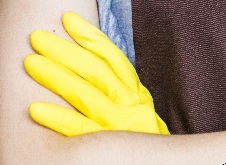
In an increasingly globalized world, the quest for better job opportunities transcends borders. This phenomenon holds true for many individuals seeking employment in other countries, including domestic workers. Recently, I engaged in a conversation with my maid about her desire to seek work abroad. Despite her current good salary and satisfactory working conditions, her ambition for better earnings motivated her to consider opportunities overseas. This article aims to explore the factors fueling the desire of domestic workers to seek employment in foreign countries, the potential risks involved, and how to approach the situation with caution.
The Pursuit of Financial Growth
1. The Promise of Higher Salaries
One of the primary reasons domestic workers like my maid aspire to work abroad is the significant financial advantage. Many countries offer higher wages and enhanced benefits for domestic positions compared to local standards. The prospect of attaining financial stability or improving one's quality of life is a compelling factor in the decision to leave one's home country.
- Increased Income: Work opportunities abroad often provide salaries that can be several times higher than what individual workers can earn in their home countries.
- Potential for Remittances: Workers abroad can send money back home, significantly impacting their families' lives.
2. Enhanced Professional Opportunities
Alongside the financial advantages, working abroad can provide domestic workers with enhanced professional skills. Exposure to different cultures, techniques, and standards can lead to personal and professional growth.
- Skill Development: Engagement with diverse households allows workers to learn various skills, making them more competitive in the job market.
- Networking: Opportunities to connect with other professionals can lead to future job openings or career advancements.
Navigating the Risks of Employment Abroad
While the allure of overseas employment is significant, it is crucial to consider the potential risks that accompany such a decision.
3. The Reality of Scams and Unreliable Job Offers
With a surge in demand for overseas domestic work, numerous scams have infiltrated the job market. Many individuals may fall prey to fraudulent job offers that promise lucrative salaries but lead to exploitative work environments.
- Verify Sources: It's essential to research and verify any job offers through reputable organizations or agencies.
- Documentation: Ensuring that valid work permits and contracts are in place can protect workers from unlawful conditions.
4. Cultural and Social Adjustment Challenges
Transitioning to a new country involves significant cultural adjustments and social challenges that many workers may not fully anticipate.
- Cultural Shock: Domestic workers may experience disorientation as they adjust to a new culture's norms and practices.
- Isolation: Being away from family and friends can lead to feelings of loneliness and homesickness, which can impact mental well-being.
Supporting Domestic Worker's Aspirations
As employers or community members, it is essential to provide support for domestic workers' aspirations to seek employment abroad while ensuring they act prudently.
5. Open Dialogue and Guidance
Encouraging open conversations about their ambitions and concerns can help workers make informed decisions. Providing support in the form of guidance can help avoid pitfalls.
- Sharing Information: Offer insights regarding reliable channels for job applications and the importance of conducting thorough background checks.
- Discussing Options: Help them explore alternate routes for financial and professional growth within the same country that may align with their long-term goals.
Conclusion
The desire of domestic workers, like my maid, to seek better opportunities abroad is rooted in the pursuit of financial growth and personal development. While these ambitions are valid, it is essential to navigate the associated risks carefully. Employers and community members have a responsibility to support these workers by providing knowledge and guidance to ensure their aspirations do not lead them into scams or unfavorable working conditions. At Okaylah Indian Maid Agency, fostering informed discussions around their goals can empower domestic workers as they make significant decisions about their futures, helping them achieve their dreams while safeguarding their well-being.
At indian maid agency we provide specific work skill traning to each and every helper.
What to do When you discover your maid is stuck with Loan Sharks?

Discovering that housemaid you know is entangled with loan sharks can be a distressing situation. This is particularly true when it involves people close to our lives, such as household staff. Knowing that your maid is struggling with this issue can invoke a strong emotional response, but it is essential to approach the topic with professionalism and empathy. Loan sharks, who often prey on vulnerable individuals, can impose excessive interest rates and use intimidation tactics to collect their debts. This article provides guidance on what steps you can take to assist helper in this precarious situation.
Understanding the Situation
What are Loan Sharks?
Loan sharks are unlicensed lenders who typically charge exorbitant interest rates. They often operate outside of legal financial frameworks, making it nearly impossible for borrowers to repay their debts without falling deeper into financial trouble. Their methods may include:
1. High-Interest Rates: Rates can be several times higher than those offered by legal financial institutions.
2. Aggressive Collection Tactics: Loan sharks often resort to harassment and intimidation to ensure repayment.
3. Lack of Transparency: The terms and conditions of the loans are often convoluted and unclear.
Understanding how loan sharks operate will provide context for your maid's situation, which is critical for strategizing how to help her.
Assessing the Situation
Speaking with Your Maid
Before taking any further steps, it's vital to have an open and honest conversation with your maid:
1. Create a Safe Space: Ensure that the conversation takes place in a private and comfortable setting.
2. Listen Actively: Encourage her to share her situation without fear of judgment. Understanding her perspective is crucial.
3. Validate Her Feelings: Acknowledge her stress and emotions concerning the situation. This demonstrates that you care and are here to support her.
Assessing the Debt
Help her evaluate the extent of the situation, which might include:
1. Total Debt Amount: Understanding how much she owes can help in planning the next moves.
2. Interest Rates: Knowing the exact terms of her loans will aid in deciding the best course of action.
3. Timeline: Knowing when payments are due and what she has already paid can also provide clarity.
Providing Assistance to your maid
Explore Legal Options
1. Consulting Experts: Recommend that she speak to a financial advisor or a legal professional who specializes in debt management. They can guide her through her options and the legal ramifications of her situation.
2. Debt Relief Organizations: If applicable, she could contact local non-profit organizations that offer support for individuals in debt, helping them negotiate with lenders.
Increase Awareness to your helper
1. Educate: If your maid is open to it, educate her about her rights as a borrower. Knowing she is not alone and that there are laws to protect her can be empowering.
2. Financial Literacy: Consider providing resources that would help her understand better financial practices, enabling her to avoid similar situations in the future.
Offering Support to your housemaid
Emotional and Practical Support
1. Emotional Support: Provide a sympathetic ear. Sometimes, individuals in debt need to feel supported through their emotional turmoil.
2. Practical Help: If you can afford to do so, consider offering temporary financial assistance to relieve pressing debts. But be cautious, as this can complicate dynamics.
3. Access to Resources: Help her locate community resources that offer counseling, legal advice, and any other necessary services.
Conclusion
Dealing with loan sharks can be an overwhelming situation for anyone involved. If you find yourself in the position of knowing maid, such as your maid, who is facing these challenges, remember that your understanding and support can make a significant difference. At Okaylah Indian Maid Agency By addressing the issue professionally, helping her to assess her situation, providing legal options, and offering emotional and practical support, you can guide her towards a more secure and manageable path.
Ultimately, it's vital to encourage her to make informed decisions about her finances in the future. By standing by her during this difficult time, you can help empower her to regain control of her financial situation, thereby breaking free from the oppressive cycle of loan sharks.
At indian maid agency we provide specific work skill traning to each and every helper.
How to foster a strong Bond between your Kids and your Housemaid?
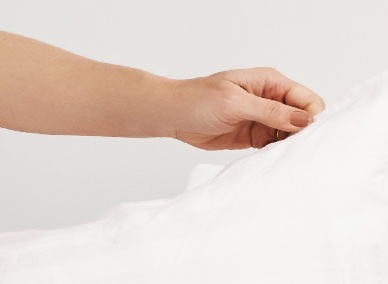
In a household where both parents work and life can often feel overwhelming, housemaids provide invaluable support by keeping the home organized and taking care of daily chores. However, a nurturing and warm relationship between your children and your housemaid is equally important for creating a harmonious environment. This bond can enhance your children's social development and instill respect for those who contribute to their daily lives. Below are effective strategies to ensure a positive and lasting bond between your kids and your housemaid.
1. Introduce the Housemaid Early and Warmly
The foundation of any relationship is a proper introduction.
- Make an Introduction: Take time to formally introduce your housemaid to your children. Highlight her role in the household and urge the kids to greet her enthusiastically. This sets a tone of respect and inclusion from the get-go.
- Share Background Stories: Let your children know a little about the housemaid's background, her interests, family, and why she enjoys working for your family. This humanizes her and turns her into a relatable figure.
2. Encourage Interactive Activities
Creating meaningful interactions between your kids and your housemaid can nurture a strong bond.
- Engage in Play: Align activities that your children enjoy with the housemaid's strengths. For example, if she enjoys cooking, let her teach your kids how to prepare simple meals or bake treats.
- Games and Crafts: Set aside time for fun activities such as games or arts and crafts. Joint participation in a project fosters teamwork and communication, enabling them to learn from one another.
3. Foster Open Communication
Establishing a climate of open communication can enhance the relationship further.
- Encourage Daily Conversations: Make it a daily routine for your children to have short chats with the housemaid. They can discuss their day or share stories, creating engagement over time.
- Voice Concerns Respectfully: Teach your children to express any discomfort or concerns regarding the housemaid respectfully. This practice builds emotional intelligence and teaches them the value of healthy communication.
4. Cultivate Respect and Gratitude
Instilling values of respect and gratitude can enhance the bond significantly.
- Model Behavior: Be sure to demonstrate respect towards your housemaid in front of your children. Words of appreciation can reinforce positive relationships, as your kids will learn from your behavior.
- Encourage Gratitude Expressions: Have your children express gratitude to the housemaid regularly. Little gestures such as saying "thank you" or presenting small tokens of appreciation can go a long way in solidifying their rapport.
5. Acknowledge and Celebrate Differences
Differences in culture, language, or backgrounds should be acknowledged and celebrated.
- Cultural Exchange: Encourage your children to learn about the housemaid's culture, customs, and language. This can attract curiosity and enrich their understanding of diversity.
- Celebrate Milestones Together: Involve your kids in acknowledging significant events in the housemaid's life, such as birthdays or family celebrations. Such gestures create a sense of community within the household and make the housemaid feel valued.
Conclusion
Fostering a good bond between your children and your housemaid offers countless benefits, including social and emotional growth for your kids, while also enhancing the household's overall harmony. By introducing her positively, encouraging interactive activities, cultivating open communication, instilling respect and gratitude, and celebrating differences, you can create a supportive home environment. Ultimately, nurturing this bond not only makes life smoother at home but teaches your children invaluable lessons about empathy and social responsibility. At Okaylah Indian Maid Agency Making the effort to promote this relationship is an investment in your children's character development, ensuring they grow up with a balanced view of relationships and teamwork.
At indian maid agency we provide specific work skill traning to each and every helper.
What to do when your Maid calls a friend at Home without Permission?
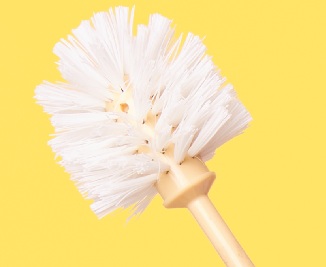
In today's busy world, many households rely on the assistance of domestic help to manage day-to-day tasks. However, this dynamic can sometimes lead to situations that require careful handling. One such situation is when a domestic worker, in this case, your maid, makes a personal phone call to a friend while working in your home, without obtaining your permission. This behavior can raise questions about boundaries, respect, and the expectations that come with their role. In this article, we will examine the potential implications of this scenario and outline steps you can take to address it effectively.
Understanding the Context of Personal Calls
1. Assessing the Impact on Work
Before taking any action, consider the following points regarding the phone call:
- Work Disruption: Did the call interfere with your maid's responsibilities? Were tasks delayed or neglected during this time?
- Trust and Respect: Is this a one-time occurrence or a pattern of behavior? Consistency in behavior is crucial when assessing respect for your household's rules.
- Your Reaction: How did you feel upon discovering the call? Understanding your own emotional response can help in framing your conversation with her.
2. Reviewing Household Expectations
Every household has its unspoken rules, and it's essential to communicate these expectations clearly to avoid misunderstandings. Consider the following:
- Set Boundaries: Clearly outline acceptable behavior regarding phone usage during work hours. Are personal calls allowed at all? If so, under what circumstances?
- Work Hours: Are there designated break times during which personal calls can be made without affecting productivity?
Having a predetermined set of guidelines can clarify any confusion related to personal communications while on duty.
Addressing the Situation
1. Initiate a Calm Conversation
Once you have assessed the situation, it's crucial to have an open and respectful conversation with your maid. Follow these steps:
- Choose the Right Time: Find a moment when both of you are relaxed and can talk without interruptions.
- Express Your Concerns: Politely explain why the call was an issue, focusing on how it may have impacted work or the boundaries you've set in your household.
- Listen: Give her a chance to explain her side of the story. There may be information or circumstances you are unaware of.
2. Establish Clear Guidelines Moving Forward
After discussing the incident, it's time to create a mutual understanding of future protocols:
- Agree on Phone Use: Establish whether she can receive calls and under what conditions. For example:
- Personal calls during breaks only.
- Informing you before making calls for personal reasons.
- Implement Check-Ins: Suggest regular check-ins to ensure that both of you are on the same page regarding expectations and responsibilities.
Consequences of Repeated Violations
If your maid continues to call friends without permission after the initial conversation, you may need to consider additional actions:
- Written Warning: A formal communication can outline the issue and expectations, serving as a record.
- Reevaluation of Employment: If disrespect towards your household guidelines persists, it may be time to rethink her role. This should be a last resort, but everyone deserves to work in an environment where boundaries are respected.
Creating a Healthy Work Environment
Creating a positive relationship with your maid is vital for smooth household management. Here are some tips to foster respect and understanding:
1. Mutual Respect: Be respectful of her time and needs, and she will likely reciprocate.
2. Open Communication: Encourage open lines of communication, enabling her to express any concerns or needs.
3. Regular Feedback: Provide constructive feedback so that she knows what areas to focus on, reinforcing positive behavior.
Conclusion
Addressing the issue of your maid making personal calls without permission is important to maintain respect and boundaries in your household. By assessing the situation, having a calm conversation, and establishing clear guidelines, both you and your maid can work together harmoniously. At Okaylah Indian Maid Agency, open communication and mutual respect are the cornerstones of a successful employer-domestic worker relationship. With these principles in mind, you can create a healthy and productive environment that benefits everyone involved.
At indian maid agency we provide specific work skill traning to each and every helper.
The Importance of daily cloths change after Showering by housemaid
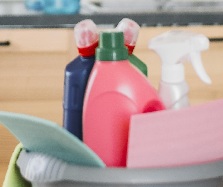
In the quest for personal hygiene and overall wellness, daily habits play a crucial role. One common practice that many individuals overlook is the importance of changing clothes every day after showering. While it may seem trivial, this seemingly simple action can significantly impact an individual's health, comfort, and social perceptions. This article examines why changing into clean clothes post-shower should be a non-negotiable habit.
The Hygiene Factor- for Housemaid
1. Bacteria and Odor
- Skin Bacteria: Our skin is teeming with bacteria, some of which are beneficial and others potentially harmful. When we shower, we remove dirt, oil, and some bacteria; however, if we put on the same clothes, residual bacteria can survive and proliferate, leading to body odors.
- Sweat and Oils: After a shower, we often feel refreshed and clean. However, if the same clothes are worn, sweat and natural skin oils can build up, causing not just unpleasant smells but also skin irritations or infections.
2. Skin Health
- Irritation and Allergies: Wearing damp clothing that clings to the skin or has become soiled can lead to irritations and allergic reactions. This is especially important for individuals with sensitive skin, as fabric can trap moisture and create an environment conducive to bacteria.
- Fungal Infections: Wearing the same clothes after showering invites a risk of fungal infections, such as athlete's foot or ringworm, particularly if the garments are damp or have been exposed to moisture.
Psychological and Emotional Benefits for house helper
1. Fresh Start for the Day
- Mental Clarity: Changing clothes after a shower symbolizes a transition, a moment to refresh not just physically but mentally. It can set a positive tone for the day, making one feel more awake and productive.
- Boost in Confidence: Wearing clean clothes can enhance self-esteem. The feeling of freshness contributes to a positive self-image, ensuring that one feels good both inside and outside.
2. Ritual of Self-Care
- Mindfulness: Engaging in the simple act of changing into clean clothes encourages mindfulness. It invites individuals to take a moment for themselves and contributes to a routine that values personal care and well-being.
- Positive Associations: Over time, this practice can create a psychological association between cleanliness, positivity, and productivity, reinforcing the behavior as a vital part of a healthy lifestyle.
Social Considerations
1. Interpersonal Relations
- First Impressions Matter: The clothes we wear often set the tone for social interactions. First impressions are influenced by appearance, and wearing fresh clothes can positively impact the way others perceive us.
- Cultural Norms: In many cultures, personal hygiene and appearance are associated with respect and self-discipline. Adhering to these norms by changing clothes daily can foster respect and acceptance in social circles.
2. Professionalism in the Workplace
- Workplace Etiquette: In professional environments, dressing appropriately includes wearing clean, non-repetitive clothing. Changing clothes post-shower is essential for presenting oneself as a diligent and conscientious employee.
- Establishing Standards: Adopting habits that emphasize cleanliness and personal hygiene can foster a culture of professionalism, influence workplace morale, and set standards for others to follow.
Practical Suggestions for Implementing Daily Changes by Maid
1. Prepare Your Wardrobe: Keep a selection of fresh clothes accessible and organized. Consider having a designated area for daily outfits separate from the usual storage.
2. Set Reminders: If you find it challenging to remember to change after your shower, set reminders on your device to help reinforce this habit.
3. Embrace Versatile Choices: Opt for clothes that are comfortable yet professional-looking. This can simplify decision-making and encourage you to change more often.
4. Routine Building: Incorporate the practice of changing into new clothes into your daily routine. By establishing it as a regular habit, it will soon become second nature.
5. Encourage Others: Share the benefits of this practice with family or colleagues. Building a culture that values hygiene can improve collective wellness.
Conclusion
Changing clothes after showering is a simple yet vital aspect of personal hygiene that carries numerous benefits for physical health, mental well-being, and social interactions. At Okaylah Indian Maid Agency, by recognizing the importance of this habit, individuals can enhance their overall quality of life while projecting a positive and professional image to the world. In the end, simple actions often lead to significant outcomes. Embracing this routine not only fosters personal well-being but also reflects our commitment to public health and self-respect.
At indian maid agency we provide specific work skill traning to each and every helper.
Best Practices to Keep Your Maid Happy

Hiring a maid can be a game-changer for many households that seek to maintain an organized and tidy living environment. However, ensuring that your maid is happy and satisfied with her work is crucial, not only for fostering a positive work atmosphere but also for enhancing the quality of the services provided. Happy maids tend to be more productive, loyal, and committed, which ultimately benefits both parties. This article explores some best practices to keep your maid happy, creating a harmonious working relationship that is beneficial for everyone involved.
1. Clear Communication
One of the key elements to a successful relationship with your maid is clear and effective communication. Establishing a solid communication foundation can greatly reduce misunderstandings and ensure that expectations are aligned.
Key Strategies:
1. Define Duties Clearly: Outline the specific tasks expected of your maid. Whether it involves cleaning, cooking, or laundry, clarity on job responsibilities helps in avoiding confusion.
2. Encourage Feedback: Foster an open line of communication where your maid feels comfortable sharing feedback. This can help address issues promptly and enhance her job satisfaction.
3. Regular Check-ins: Conduct regular check-ins to discuss her progress, any challenges she may face, or adjustments needed in her workflow. These discussions show you value her input.
2. Fair Compensation
Compensation is a significant factor that influences job satisfaction. Ensure that you are offering fair and competitive wages for your maid's services, taking into consideration factors such as location, experience, and the nature of her work.
Considerations:
1. Market Rate Analysis: Research the market rates for domestic help in your area to ensure that you are offering competitive compensation.
2. Timely Payments: Make sure to pay your maid on time. Consistent and on-time payments can lead to increased trust and responsibility.
3. Bonuses and Incentives: Consider providing bonuses for exemplary work or during festive seasons. This gesture can boost morale and foster goodwill.
3. Respect and Dignity
Every employee deserves to be treated with respect and dignity, and your maid is no exception. Creating a respectful work environment is a fundamental practice that contributes to employee happiness.
Ways to Show Respect:
1. Use Polite Language: Simple acts like using courteous language can go a long way in showing respect. Treating her as a crucial part of the household rather than just a worker is vital.
2. Honor Personal Time: Respect her personal time off and understand that she has her own life outside of her work. This fosters a positive atmosphere and builds mutual respect.
3. Recognize Her Efforts: Regularly acknowledge her hard work and contributions. A simple "thank you" or verbal appreciation can significantly enhance her morale.
4. Safe Working Environment
Maintaining a safe and healthy work environment is crucial for your maid's well-being and job satisfaction. Safety should never be compromised in any work setting.
Essential Safety Practices:
1. Ergonomics: Ensure that she has access to ergonomic tools that minimize strain and injury while performing her tasks.
2. Proper Training: If she is using certain equipment or cleaning materials, provide her with the necessary training to ensure she uses them safely.
3. Health Considerations: Be conscious of any allergies or health issues your maid may have and adjust her cleaning supplies or duties accordingly.
5. Opportunities for Professional Growth
Offering opportunities for professional development can make your maid feel valued and invested in her role. Empowering her with skills and knowledge can improve her job satisfaction.
Growth Opportunities:
1. Skill Development: Consider sponsoring a workshop or training session on specialized cleaning techniques or cooking classes. This adds value to her skill set and increases her confidence.
2. Cross-Training: Allow her to learn various aspects of the job, which might be outside her usual responsibilities. This not only enhances her skills but also keeps her job varied and interesting.
3. Leadership Roles: If appropriate, consider discussing opportunities for her to take on more responsibility or lead a team. This can motivate her to perform at her best.
Conclusion
Maintaining a happy maid is not merely a luxury but a crucial aspect of running a harmonious household. By prioritizing clear communication, fair compensation, respect, safety, and opportunities for professional growth, you create an environment where your maid feels valued and satisfied. At Okaylah Indian Maid Agency, a happy maid leads to a cleaner, more organized home, ultimately benefiting everyone involved. By implementing these best practices, you can cultivate a positive, productive relationship that enhances both your maid's well-being and the overall atmosphere of your household.
At indian maid agency we provide specific work skill traning to each and every helper.
Maid is washing her cloths with my cloths
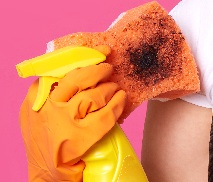
When it comes to maintaining a clean and healthy living environment, personal hygiene practices play a crucial role. One area where this is particularly evident is in laundry practices. The responsibility of washing clothes extends beyond simply getting them clean; it also involves ensuring that they are laundered in a way that maintains hygiene standards. This article addresses the situation in which your maid washes her clothes alongside yours, and provides a professional approach to communicate your concerns regarding hygiene.
The Importance of Hygiene in Laundry Practices
Hygiene is a fundamental aspect of health and wellness. When it comes to laundry, the way we wash our clothes can significantly impact our personal hygiene. Here are some essential points that highlight why laundry hygiene matters:
1. Bacteria and Germ Transfer: Clothing can harbor bacteria and germs, especially items like undergarments and towels. Washing clothes together without proper separation may lead to the transfer of these harmful microorganisms.
2. Allergenic Reactions: Different fabrics and laundry detergents can provoke allergic reactions in sensitive individuals. Mixing washes can lead to contact with allergens that one may not typically encounter in their own laundry routine.
3. Stain and Odor Management: Combining different laundry loads can cause stains and odors to mix. What might be fresh and clean in one load could inadvertently affect the cleanliness of another.
4. Fabric Care and Longevity: Different materials require different washing techniques. Washing delicate fabrics with regular laundry can damage them over time, affecting their longevity.
Communicating Your Concerns
Navigating conversations about personal boundaries in a domestic setting can be challenging. Here is a structured approach to addressing your concerns with your maid:
1. Introduce a General Conversation About Hygiene
Start the discussion by sharing your own personal standards regarding cleanliness and hygiene. This sets the stage for discussing the specifics of laundry practices. For instance, you might say:
"I strive to maintain a high standard of hygiene in my home, particularly when it comes to laundry."
2. Express Your Specific Concerns
Clearly articulate your discomfort with the current laundry practices. Be specific about the reasons for your concern:
"I've noticed that you wash your clothes with mine, and I'm worried about the potential transfer of bacteria and allergens between our garments. I like to keep my items separate to ensure the highest level of cleanliness."
3. Suggest Alternatives
Instead of only outlining the problem, it is helpful to suggest alternative practices:
"Perhaps we could set up designated laundry days or use separate bins for our clothes. This way, we can both ensure that our laundry is cleaned in a manner that aligns with our hygiene preferences."
4. Encourage Open Communication
Invite her to share her thoughts or provide feedback so that she does not feel singled out or defensive:
"How do you feel about that? I'm open to suggestions if you have any ideas of your own."
Establishing Respectful Boundaries
Respect for personal space and hygiene standards is vital in maintaining a harmonious living environment. After you've expressed your concerns and suggestions, it's essential to reinforce the idea of mutual respect. Emphasize that this conversation is aimed at fostering a better understanding of individual preferences.
1. Review Your Preferences Periodically
To keep the channels of communication open, consider revisiting this topic periodically. This demonstrates your commitment to maintaining a clean space while also respecting her role in your home.
2. Acknowledge Improvement
When she adheres to your request, recognize the effort she has made. Positive reinforcement can help build a collaborative atmosphere where both parties feel comfortable sharing their needs.
Conclusion
Maintaining personal hygiene is not merely a preference; it is an essential aspect of promoting overall health and well-being. When issues arise, such as washing clothes together, it is critical to approach the conversation with professionalism and clarity. By articulating your concerns about hygiene and suggesting constructive solutions, you can foster a respectful and harmonious home environment. At Okaylah Indian Maid Agency Open communication serves as the foundation for addressing personal boundaries, ensuring that everyone feels comfortable and respected in their living space. Remember, a little dialogue can go a long way in resulting in a cleaner, healthier home.
At indian maid agency we provide specific work skill traning to each and every helper.
Navigating the Challenge of Maid Room Sharing

In the evolving landscape of household management, the dynamics between employers and domestic helpers can sometimes present unique challenges. One such situation arises when there is a need for additional assistance, yet existing staff harbor concerns about sharing their space. This article delves into a common dilemma faced by many homeowners: balancing the need for a second maid while respecting the preferences of the current maid. By understanding the implications of this predicament and exploring potential solutions, homeowners can navigate this delicate situation professionally.
Understanding the Perspective of the Current Maid
It is essential to acknowledge the feelings and preferences of your current maid before making any decisions. Here are several reasons why she may be resistant to sharing her room:
1. Personal Space: For many individuals, having a personal sanctuary is crucial for relaxation and mental well-being. Domestic helpers often invest significant emotional energy into their work, making it vital to have a space where they feel comfortable and secure.
2. Concerns About Boundaries: Sharing a room can blur the boundaries between work and personal life. Your maid may prefer to keep her living arrangements separate from her professional obligations to maintain a healthy work-life balance.
3. Past Experiences: If your maid has previously had a negative experience sharing accommodations, this might contribute to her reluctance. Such experiences can create lasting impressions, making her hesitant to re-enter a similar situation.
By understanding her perspective, you can approach the situation more empathetically.
Exploring Possible Solutions
With a clear understanding of your maid's concerns, consider the following strategies to find a resolution that works for everyone involved:
1. Communicate Openly
Initiate a candid conversation with your maid about the necessity for a second helper. Express your appreciation for her work and let her know why you need additional help. By framing the conversation positively, you can help her feel valued rather than threatened by the change.
2. Discuss Room Arrangements
Explore the possibility of making adjustments to the current living arrangements. Here are some options to consider:
- Separate Spaces: If feasible, consider creating separate areas within the room (e.g., dividers) that allow each maid to maintain a sense of privacy while sharing the space.
- Alternative Living Arrangements: Another option is to find nearby accommodations for the new maid, reducing the burden of shared space on your current maid.
3. Reassess Timing
If the need for a second maid is not urgent, consider delaying the decision until a more suitable solution presents itself. This gives your current maid time to adjust to the idea and perhaps become more open to the situation over time.
4. Incentives and Benefits
Consider offering your current maid added incentives if she agrees to share her room:
- Additional Compensation: A small increase in salary might make the arrangement more palatable.
- Flexible Working Hours: Offering slightly different working hours could provide her with more personal time and space.
Making the Decision
Ultimately, it's crucial to weigh your options thoughtfully. Here are some guidelines to help in making this decision:
1. Prioritize Communication: Keep lines of communication open, transparent, and respectful throughout the process.
2. Evaluate Needs: Assess the needs of your household alongside the concerns of your maids before arriving at a solution.
3. Explore Long-Term Solutions: Whether it involves room-sharing, adjusting working conditions, or seeking alternatives entirely, think long term to ensure that everyone's needs are met sustainably.
Conclusion
Finding the right balance between the needs of your current maid and the necessity for a second helper is undoubtedly challenging. However, approaching the situation with empathy and professionalism can lead to creative solutions. In the end, fostering a harmonious working environment not only enhances productivity but also contributes to the well-being of all household members. At Okaylah Indian Maid Agency , By prioritizing open dialogue and considering all perspectives, you can navigate this delicate issue with respect and understanding. Remember, the goal is to create a household dynamic that respects personal boundaries while ensuring a functional and supportive living environment.
At indian maid agency we provide specific work skill traning to each and every helper.
Ensuring Your Clothes Are Treated Right by Maid
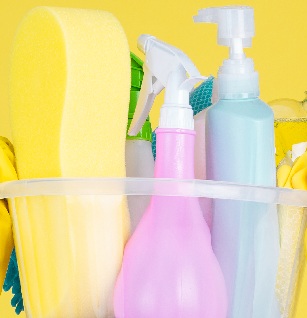
Laundry is not just a routine chore. It is a critical aspect of maintaining the quality and longevity of clothing. The process of washing, drying, and ironing plays a significant role in how garments look and feel. Unfortunately, improper care, especially during ironing, can not only lead to unfortunate incidents such as damaged or missing clothes but can also detract from their overall appearance. This article addresses the common issue of inadequate ironing practices and the implications it has, along with suggestions for achieving better results.
The Dangers of Ignoring Proper Ironing Techniques
Ironing is more than simply pressing clothes with a hot surface; it requires an understanding of fabric types and the appropriate level of heat needed for each. Below are several concerns that arise from improper ironing practices:
1. Fabric Damage: Different types of fabrics, such as cotton, silk, and synthetic materials, each have unique properties and react differently to heat. High temperatures can scorch or even burn delicate fabrics, causing irreparable damage.
2. Missing or Misplaced Garments: As seen in many cases, including my personal experience, improper handling of clothing can result in garments going missing. In some instances, items may be irreparably damaged during the ironing process, leading to loss without explanation.
3. Aesthetic Appeal: Well-ironed clothes convey a sense of professionalism and attention to detail. Garments that are simply folded rather than pressed can appear wrinkled and unkempt, leaving a negative impression.
Understanding Different Fabrics
To minimize the risk of damaging clothing during ironing, it is paramount to have a grasp on the various fabric types and their specific care requirements. Here is a simplified guide to help:
1. Cotton:
- Heat setting: High
- Tip: Sprinkle with a little water or use steam for stubborn wrinkles.
2. Silk:
- Heat setting: Low to medium
- Tip: Iron while the fabric is slightly damp to avoid burning.
3. Wool:
- Heat setting: Medium
- Tip: Use a pressing cloth between the iron and fabric to protect it.
4. Synthetic Fabrics (e.g., polyester):
- Heat setting: Low
- Tip: Avoid using too much heat to prevent melting or deformation.
Understanding the differences in fabrics can greatly enhance the ironing process and help prevent the myriad issues associated with improper care.
The Importance of Heat Settings
The correct heat setting on an iron is fundamental to effectively treating clothes without causing harm. Here are several guidelines to consider:
1. Read Labels: Always check the care label on your clothing for specific ironing instructions.
2. Use a Thermometer: For assurance, utilize an external garment thermometer to verify the heat output of your iron.
3. Test Area: Before applying heat to a large area, choose an inconspicuous spot on the fabric for a heat test.
4. Regular Maintenance: Ensure your iron is clean and functioning correctly to avoid transferring dirt or buildup onto your garments.
By being mindful of heat levels, individuals can protect their clothing while achieving aesthetically pleasing results.
Communicating Expectations with Domestic Help to Maid
When relying on a maid or any external help for ironing or laundry care, clear communication is key. Here are some best practices to ensure your expectations are met:
1. Provide Guidance: Share specific instructions regarding which clothes require ironing, their respective heat settings, and any other special instructions.
2. Demonstrations: If possible, demonstrate proper techniques to provide a visual understanding of what is expected.
3. Regular Check-ins: Establish a routine for assessing laundry quality. This provides an opportunity for feedback and adjustment.
4. Create a Care Guide: Consider compiling a fabric care guide that outlines the necessary steps for each type of clothing in your home.
Conclusion
Maintaining the quality and appearance of our clothing is crucial, and ironing plays an essential role in that process. Issues such as missing or damaged clothing can arise from improper ironing practices, underscoring the need for greater attention to detail. At Indian maid Agency, By understanding fabric types, applying the correct heat settings, and communicating effectively with domestic help, one can ensure that clothes are treated with the respect they deserve. In doing so, we contribute not only to the longevity of our garments but also to the overall impression we convey through our attire.
At indian maid agency we provide specific work skill traning to each and every helper.
Importance of Houseamid going to bed early
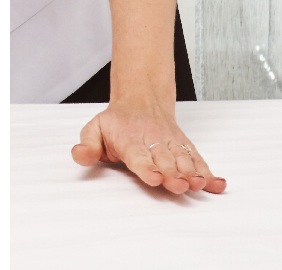
In households across the world, the dynamics between employers and domestic helpers can sometimes lead to misunderstandings. One interesting case is that of a maid whose daily tasks are completed early but who continues to linger in the kitchen, seemingly pretending to work. This situation raises important questions about work ethics, expectations, and communication in domestic employment relationships.
The Nature of Domestic Work
Domestic work is often characterized by specific duties that vary depending on the household's requirements. Common responsibilities include:
1. **Cleaning and Tidying**: Keeping living areas, kitchens, and bedrooms clean.
2. **Cooking**: Preparing meals for the family, including planning and grocery shopping.
3. **Laundry**: Washing, ironing, and organizing laundry.
4. **Childcare**: Assisting with children's needs, including supervision and help with homework.
In many households, these tasks have designated start and end times. In your scenario, it's clear that your maid completes her work by 8:30 PM, which is commendable. However, her actions of remaining in the kitchen afterward draw attention to broader issues regarding workplace culture and personal expectations.
Reasons for Staying Late
Understanding why your maid chooses to remain in the kitchen even after her tasks are done involves examining various factors:
1. **Habit and Work Ethic**: For many workers, particularly those in domestic roles, a strong work ethic might compel them to appear busy. This could stem from their upbringing or previous job experiences where the notion of staying late equated to diligence and dedication.
2. **Fear of Judgment**: Your maid might worry about how her early departure will be perceived. In many cultures, working late is synonymous with being committed and industrious. She might think that leaving earlier could lead to assumptions of inefficiency or laziness.
3. **Establishing Relationships**: Remaining in the household may provide her with additional opportunities to bond with family members. She may enjoy social interactions or simply want to be in a familiar space when everyone is still awake.
4. **Avoiding Conflicts**: If she has had previous experiences of being criticized or judged for her work speed, remaining 'visible' might be her way of mitigating potential future complaints about her performance.
The Importance of Communication
Effective communication is the cornerstone of a harmonious domestic employment relationship. In this case, addressing the situation directly is paramount. Here's how you might approach it:
1. **Establish Clear Expectations**: Clarify what your expectations are concerning work hours. Reassure her that the completion of her tasks within the time frame is appreciated.
2. **Encourage Open Dialogue**: Create an environment where she feels comfortable discussing her feelings. Ask her directly about why she feels the need to hang around after work is completed.
3. **Reinforce Bedtime Routines**: It's important to stress the value of rest and recovery. Encourage her to prioritize her health and assure her that you do not want her to feel pressured to remain awake unnecessarily.
4. **Check-in Regularly**: Regular discussions regarding job performance and feelings can build trust and prevent misunderstandings.
Creating a Healthy Work Environment
To foster a positive atmosphere for domestic helpers, it is essential to establish practices that ensure their comfort and satisfaction. Consider implementing the following measures:
1. **Set Boundaries**: Clearly outline work hours and the significance of personal time.
2. **Recognize Contributions**: Acknowledge her hard work regularly to reinforce a positive feedback loop.
3. **Provide Breaks**: Allow ample breaks during work hours. This can be refreshing and promote better productivity.
4. **Show Understanding**: Be sensitive to her cultural and personal context. Not everyone has the same understanding of work versus downtime.
Conclusion
The scenario of your maid finishing her work early yet lingering in the kitchen reveals a complex interplay of cultural norms, personal work ethics, and communication practices. It underscores the necessity of maintaining open lines of dialogue regarding expectations and personal well-being in the workplace.
By establishing clear expectations and encouraging open communication, you can create a work environment that not only values productivity but also prioritizes the health and satisfaction of your domestic helper. Ultimately, fostering trust and mutual respect will enhance the relationship, ensuring that both parties feel valued and understood in their roles.
At indian maid agency we provide specific work skill traning to each and every helper.
The Importance of In-House Training Provided by Maid Agencies

In today's fast-paced world, dual-income households are becoming increasingly common, leading many families to seek reliable help around the home. Maid agencies serve as pivotal partners in this scenario by matching families with suitable domestic helpers, or maids. The relationship between a family and their maid is crucial, as it can significantly influence the household's harmony and the helper's job satisfaction. To facilitate this relationship, in-house training provided by maid agencies has emerged as an essential factor that not only enhances the skill set of the helpers but also increases their longevity in the job. This article explores the importance of this training, the benefits it provides, and how it ultimately enhances the experience for both families and domestic helpers.
1. Enhancing Skills and Competency
One of the primary objectives of in-house training by maid agencies is to improve the skills and competency of their staff. This training typically covers a range of essential topics, including:
- Household Management: Proper organization and management of household tasks, which are crucial for creating a balanced home environment.
- Cleaning Techniques: Effective cleaning methods, including the use of different cleaning agents and tools, ensuring that the standard of cleanliness meets family expectations.
- Childcare Fundamentals: Training on basic childcare, enabling helpers to handle tasks related to children's care with confidence and expertise.
- Elder Care: Skills related to caring for the elderly, including understanding their unique needs and providing necessary support.
- Communication Skills: Enhancing interpersonal skills to foster a positive dialogue with family members, establishing trust and understanding.
By focusing on these essential skills, maid agencies ensure that their helpers are well-equipped to fulfill the diverse needs of the families they serve. This training not only boosts the confidence of the helpers but also contributes to job satisfaction, enabling them to complete their contracts more successfully.
2. Building Trust and Strong Relationships
In-house training plays a crucial role in building trust between the maid and the family. Training often includes:
- Cultural Sensitivity: Understanding and respecting the family's cultural preferences and practices, which fosters a respectful and harmonious environment.
- Conflict Resolution: Techniques on handling potential conflicts proactively, promoting a peaceful and constructive household atmosphere.
- Professional Ethics: Instilling a sense of responsibility and ethics in the workplace, encouraging maids to act professionally at all times.
When domestic helpers undergo training that focuses on these aspects, they are more likely to build strong relationships with the families they work for. This trust can lead to longer tenures for the helpers, as families are more inclined to retain individuals they feel connected with.
3. Improving Job Satisfaction and Retention Rates
Another notable benefit of in-house training provided by maid agencies is the improvement in job satisfaction and retention rates among domestic helpers. Well-trained maids often exhibit:
- Increased Job Confidence: Training equips them with the necessary skills, leading to an increased sense of confidence in performing their duties.
- Enhanced Work Performance: As they apply the skills learned during training, their performance improves, resulting in job fulfillment.
- Longevity in Employment: Satisfied maids are less likely to switch jobs, which helps families maintain consistency in household management.
Statistically, agencies that invest in in-house training experience higher retention rates among their helpers. This, in turn, benefits families who do not have to continually search for new domestic help.
4. Reducing Training Time for Families
When maid agencies offer in-house training, families benefit from a reduced need for personal training sessions. This leads to:
- Immediate Capability: Help arrives ready to meet the family's needs, eliminating the waiting period associated with training a new hire.
- Lower Stress Levels: Families can feel secure knowing their domestic help is already trained, reducing the anxiety that often accompanies hiring new staff.
- Time Efficiency: Families save time and effort that would otherwise be used in training and mentoring new maids.
With trained maids stepping into their roles, families can focus on their daily lives without the added pressure of managing the training process.
Conclusion
In-house training provided by maid agencies plays an indispensable role in creating a symbiotic relationship between families and their domestic helpers. From enhancing skills and building trust to improving job satisfaction and streamlining the onboarding process, the advantages of such training are manifold. At Okaylah Indian Maid Agency, investing in this training not only benefits the maids but also enriches the family experience, leading to a more harmonious and efficient household. As the demand for domestic help continues to rise, the commitment to effective in-house training will no doubt shape the future of domestic assistance for the better.
At indian maid agency we provide specific work skill traning to each and every helper.
Points to Consider Before Taking a Transfer Maid

In today's fast-paced world, many households rely on helpers to ease the burden of daily chores. When considering hiring a transfer maid, careful deliberation is essential to ensure that the decision aligns with your household's needs and expectations. A transfer maid refers to someone who is leaving one employer to work for another, often making the transition easier for the employer as the maid might have prior experience. Here are several important factors to consider before making this significant decision.
1. Assess Your Household Needs
Before taking a transfer maid, it is important to conduct a thorough assessment of your household needs. Identifying specific requirements will help you select the right candidate.
- Type of Services Required: Consider the tasks you need help with, such as cleaning, cooking, childcare, or elderly care.
- Work Schedule: Determine your preferences regarding the working hours. Do you need someone full-time, part-time, or on a live-in arrangement?
- Number of Family Members: The more members in your household, the more intricate the tasks may be, particularly if there are children or elderly individuals requiring extra care.
Understanding these factors will not only streamline your search but also clarify expectations to share with potential candidates.
2. Evaluate the Candidate's Experience
Experience plays a crucial role in employing a maid. Since you are considering a transfer maid, they will likely have a work history that can be beneficial.
- Previous Employment: Inquire about their previous employer and the type of work they undertook.
- Length of Employment: Assess how long they were with their prior employer to gauge reliability and competence.
- Skills and Specialties: Determine if they have specific skills that may be beneficial, such as cooking specific cuisines or caring for children or elderly family members.
Thorough evaluation of their experience can help you predict how well they will adapt to your household routine.
3. Conduct Interviews and Reference Checks
Once you've identified suitable candidates, conducting interviews and reference checks is vital for making an informed decision.
- Interview Process: Prepare a list of questions that gauge not only their skills and experience but also their personality and attitudes. Consider asking about their conflict resolution skills and adaptability to new environments.
- Reference Checks: Request contact details of previous employers and reach out to them to obtain unbiased feedback about the maid's performance, work ethic, and character.
A diligent interview process can reveal much about a candidate's potential fit in your household.
4. Understand Legal and Contractual Obligations
Hiring a maid involves various legal and contractual considerations that must be understood to ensure compliance and protect the interests of both parties.
- Employment Contracts: Ensure that a clear contract outlining job responsibilities, working hours, salary, and benefits is established. This will prevent misunderstandings and disputes in the future.
- Legal Requirements: Familiarize yourself with pertinent labor laws related to hiring domestic workers in your region. Some areas have specific regulations regarding wages, hours, and working conditions.
- Visa and Work Permits: If applicable, ensure that the maid has the right work visa and permits to engage legally in employment.
Being well-informed about these legal aspects will provide peace of mind and maintain a professional relationship.
5. Set Clear Expectations and Provide Proper Training
Finally, once you have selected a transfer maid, it's important to establish a working relationship through clear communication.
- Outline Responsibilities: Clearly define daily tasks and responsibilities from the start. It can help eliminate ambiguities that can lead to conflicts or dissatisfaction.
- Training and Orientation: Offer orientation concerning your family's routines, preferences regarding household chores, and any other relevant matters to ensure a smooth transition.
Building a strong foundation of trust and clarity will ultimately lead to a harmonious working relationship for both parties.
Conclusion
Hiring a transfer maid can be an excellent option for households seeking additional help while potentially benefiting from the maid's prior experience. At Okaylah Indian Maid agency , it's essential to take certain considerations into account, including assessing household needs, evaluating candidate experience, conducting interviews and reference checks, understanding legal obligations, and setting clear expectations. By thoroughly vetting candidates and fostering a respectful working atmosphere, you can ensure that your decision will significantly improve the dynamics of your home. In a world where domestic support can notably enhance quality of life, making the right choice is paramount.
At indian maid agency we provide specific work skill traning to each and every helper.
Maid is wearing short dress in home

When it comes to managing a household, various aspects contribute to creating a harmonious living environment. Among these, the attire of household helpers can sometimes spark discussion and concern, particularly when it involves children's perceptions of appropriateness. This article dives into the implications of a maid wearing short dresses at home, especially in a setting with grown-up children, as well as strategies for addressing concerns related to attire.
The Role of Household Helpers
Household helpers, often referred to as maids or domestic workers, play a crucial role in maintaining the day-to-day operations of a home. Their responsibilities can range from cleaning and cooking to childcare and elderly care. Because of their close interaction with all family members, including children, the attire of these helpers can become a point of discussion.
Key Considerations Regarding Attire
1. Cultural Context: Different cultures have varying expectations regarding appropriate dress. In some cultures, casual attire is acceptable in the home environment, while in others, it may raise eyebrows. Understanding and discussing these cultural nuances with your household helper can create common ground.
2. Professionalism: The boundary between personal and professional attire can often blur in domestic settings. However, it is important for household helpers to maintain a level of professionalism while on duty. Clear communication regarding expectations can help establish standards that everyone finds agreeable.
3. Children's Perspectives: Children develop their attitudes through observation and interaction. A child's complaint about a helper's attire could stem from a misinterpretation of what is appropriate and what is not. Here, education and open communication become essential in addressing these misunderstandings.
Addressing Concerns with Sensitivity
When concerns arise regarding a helper's attire, especially if children voice discomfort, addressing the issue delicately is paramount. Here are some steps parents can take:
1. Open Dialogue: Engage in a conversation with your children to understand their viewpoints. Ask specific questions about why they feel the helper's attire is inappropriate. This provides children a platform to express their feelings while allowing parents to gauge the seriousness of the concern.
2. Communicate with the Helper: After understanding the concerns of your children, have a respectful conversation with the household helper. Approach the topic without judgment and share the feedback you've received. This could include discussing what you consider suitable attire in the home and listening to her perspective on comfort and practicality.
3. Establish Guidelines: Create a mutual agreement that outlines acceptable attire for the household helper while balancing her comfort. Perhaps this includes casual but slightly more conservative clothing options that align with your family's values and what your children find respectable.
4. Involve Children in the Solution: Encourage your children to participate in the conversation about attire. This inclusion promotes respect for diverse perspectives and allows children to feel empowered in discerning what they consider appropriate.
The Bigger Picture
While attire is a visible aspect, it is essential to remember that it does not define the character or professionalism of the individual wearing it. A household helper's ability to fulfill her duties and contribute to the smooth functioning of the home encompasses far more than her clothing choices. When addressing attire, families can focus on:
- Respect for Individuality: Acknowledge that everyone has different tastes and values regarding clothing, which may not correspond to your family's own.
- Education on Diversity: Use this as an opportunity to educate your children about diversity, respect, and acceptance of individual choices within the bounds of professional settings.
- Maintaining Comfort and Trust: A comfortable working environment fosters trust and respect between families and their helpers, which ultimately benefits everyone involved.
Conclusion
In conclusion, the attire of household helpers, particularly when it deviates from what children perceive as appropriate, is an issue that requires sensitivity and open communication. By fostering conversations, setting mutual guidelines, and encouraging respect for individuality, families can navigate these concerns effectively. At OKAYLAH INDIAN MAID AGENCY , it is crucial to balance professional expectations with personal comfort, thereby enriching the overall domestic atmosphere. As we address attire concerns, we also cultivate a culture of understanding that benefits all family members and household helpers alike.
At indian maid agency we do scren each biodata and does background verification.
Helper's family member passed away and want to visit home

In times of loss, the emotional toll can be overwhelming. When a family member passes away, especially for those working far from home, the struggle between duty and the need for closure becomes pronounced. This scenario is particularly exemplified by a situation involving a maid whose grandmother has recently passed away. This article explores the delicate situation she faces, the implications of her travel, and possible solutions to facilitate her visit home during this difficult period.
Navigating Grief While Working
1. The Impact of Loss on Emotional Well-being
The death of a loved one can have profound effects on an individual's emotional state. For a maid who must manage her grief while fulfilling her job responsibilities, this can lead to a difficult internal conflict. Key points to consider include:
- Emotional Distress: Feelings of sadness, anger, or confusion can dominate a person's daily life during mourning.
- Work Performance: Concentration and motivation at work may suffer, impacting productivity and, inadvertently, the employer's household.
- Support Systems: Often, those who work away from home have limited support networks to help them during these times.
2. The Challenges of Travel for Grieving Individuals
Traveling long distances, especially for individuals in full-time employment, can pose several logistical and emotional challenges:
- Travel Time: If it takes two days to return home, the individual risks missing the funeral, which can be vital for closure.
- Financial Constraints: Travel can be costly, potentially causing additional stress when combined with the grieving process.
- Workplace Responsibilities: Absence from work for personal reasons can lead to guilt or fear of job loss, leaving the individual feeling trapped.
Exploring Possible Solutions
3. Finding a Balance: Options for Support
Addressing the maid's situation requires compassion and understanding. Here are some possible solutions to consider in facilitating her need to grieve:
- Temporary Leave of Absence: Assess the feasibility of granting her a short period off from work. This can provide her with the time needed to attend her grandmother's funeral if the schedule permits.
- Flexible Work Arrangements: If feasible, consider allowing her to work flexible hours or make arrangements that can lighten her workload, providing her with space to process her grief during this challenging time.
- Travel Assistance: Offer assistance with travel logistics or costs where possible. This might include arranging transportation or offering financial assistance to ease the burden of travel expenses.
4. Communication is Key
Open and honest dialogue between the employer and the maid is crucial during this time. Here are some strategies to ensure clarity and compassion:
- Set a Meeting: Arrange a time to discuss her situation openly, understanding her emotional state and what she needs.
- Empathy and Understanding: Approach the conversation with empathy, recognizing the depth of her loss and the importance of family bonds.
- Long-term Planning: Discuss the timeline for her leave and what support she may need upon returning to work, ensuring she feels supported throughout the process.
Conclusion
The loss of a family member is undeniably a painful experience, particularly for those who live and work far from home. The situation faced by the maid whose grandmother has passed away highlights the complexities that arise from balancing work obligations with personal grief. By assessing her circumstances thoughtfully, fostering open communication, and being willing to provide flexible support, it is possible to navigate these difficult waters effectively. At OKAYLAH INDIAN MAID AGENCY, prioritizing compassion and understanding can help not just the maid in her time of need, but also foster a more harmonious and supportive work environment for all. Let us remember that understanding during such moments is vital, encouraging a space where grief can be acknowledged and supported.
At indian maid agency we do scren each biodata and does background verification.
Maid is throwing the remaining food in morning

In households around the world, maintaining a healthy balance between responsibility and management can be a daunting task, especially when it comes to managing domestic help. One of the most common challenges faced is ensuring that household staff understands and follows instructions regarding food management. Recently, I encountered a situation where my maid discarded leftover food in the morning, despite my clear instructions to save it for breakfast. This incident revealed deeper issues regarding communication and the dynamics of trust, prompting me to reflect on effective management strategies.
Understanding the Situation
When I discovered that my maid had thrown away the leftover food, I felt an immediate surge of frustration. Not only had she disregarded my instructions, but her actions also meant that potentially edible food was wasted. The underlying reason she provided further complicated the situation: she expressed that she was afraid of me. This revelation highlighted a significant communication breakdown between us. It is crucial to understand why such misunderstandings occur and how they can be rectified.
1. The Importance of Clear Communication
Clear communication is the cornerstone of any successful working relationship, particularly in a household setting. Here are some strategies to enhance communication with domestic help:
1. Set Clear Expectations: Clearly convey what you expect regarding food management and waste. In my instance, reiterating the importance of saving leftovers for breakfast was necessary.
2. Provide Rationale: Explain why certain actions are preferred. For example, discussing the benefits of reducing waste not only aligned with sustainability practices but also reinforced the importance of our shared goals.
3. Encourage Open Dialogue: Establish an environment where your domestic help feels comfortable voicing concerns or asking for clarity. An open-door policy can mitigate misunderstandings before they escalate.
2. Building Trust in the Household
Trust plays a crucial role in the dynamics between an employer and a domestic worker. My maid's fear of me indicates a lack of trust or perhaps misunderstandings about my expectations. Here are ways to foster trust:
1. Respect and Acknowledgment: Show appreciation for the work done. Acknowledging the positive aspects of their efforts can create a more supportive atmosphere.
2. Regular Check-ins: Schedule regular conversations to discuss any issues or feedback. This proactive approach aids in solidifying the relationship and preventing misunderstandings.
3. Addressing Concerns Promptly: If something isn't being done to my specifications, addressing it immediately, rather than letting resentment simmer, promotes trust and accountability.
3. Practical Solutions for Food Management
To mitigate waste and ensure that food is appropriately managed, it is vital to establish practical solutions:
1. Meal Planning: Implementing meal planning can help in preparing food in appropriate quantities, which reduces leftover waste.
2. Segregating Leftovers: Create a designated container for leftovers, so it becomes routine for the maid to utilize these for breakfast or future meals.
3. Educating About Storage: If applicable, offering a brief overview of how to properly store food can prevent spoilage and encourage the reuse of leftovers in creative ways.
4. Reflecting on the Aftermath
After the incident, I took time to reflect on my management style and its impact on my maid. It's essential to remember that stress or misunderstandings on either side can undermine the relationship. Addressing these feelings openly can lead to improvement. I approached her with understanding instead of anger, asking how we could avoid such situations in the future.
Conclusion
The incident with my maid serves as a poignant reminder of the complexities involved in managing household help. Effective communication, trust-building, and practical solutions are integral to ensuring that both parties work harmoniously toward shared goals. At OKAYLAH INDIAN MAID AGENCY By approaching situations with clarity and empathy, we can foster more constructive relationships with those who assist us in our daily lives. Ultimately, these interactions, if navigated thoughtfully, can help reduce miscommunication and enhance the overall efficiency of running a household. As we reflect on how we manage such dynamics, let's strive for understanding, ensuring that no food, and more importantly, no feelings are unnecessarily discarded.
At indian maid agency we do scren each biodata and does background verification.
My Helper is coloring her hairs

In a world where personal expression often takes center stage, it's common to observe trends that influence our everyday lives, from fashion choices to hair color. Recently, I discovered that my helper had decided to color her hair, which sparked quite the conversation in our household. As a parent, the choices made by adults in close proximity to our children can inadvertently influence their thoughts and behaviors. This article explores how to navigate such situations when personal choices may raise concerns regarding their influence on young impressionable minds.
Understanding the Impact of Personal Choices
1. Individual Expression and Identity
Personal choices, such as hair coloring, are often a form of self-expression. For many, changing one's appearance can provide a boost in confidence and a sense of individualism. In my helper's case, her decision to color her hair likely reflects her desire to embrace current fashion trends. It's essential to recognize that this choice is her way of expressing herself, which is generally a positive aspect of personal identity.
2. Children and Social Learning
Children are remarkable observers, keenly absorbing the behaviors and choices of the adults around them. Theories of social learning suggest that children imitate what they see, often leading to questions and, potentially, desires to emulate those choices. My daughter's inquiry into why her helper colored her hair underscores this point. Young children often seek to understand the world through mimicry, making it vital for parents to reflect on what behaviors they wish to endorse.
3. Setting Boundaries and Encouraging Open Dialogue
As parents, it's critical to establish a balance between allowing personal expression and encouraging healthy attitudes toward self-image. Here are some strategies on setting boundaries and fostering constructive conversations:
- Open the Lines of Communication: Discuss with your child the idea of personal expression and why people choose to change their appearances.
- Encourage Critical Thinking: Ask your child what she thinks about hair coloring. Encourage her to express her feelings about the choices made by others.
- Set Boundaries for Age Appropriateness: Explore suitable age-related beauty practices and discuss why certain choices may not be appropriate just yet.
Addressing Concerns without Creating Conflict
1. Discussing Values
Engage in conversations that emphasize your family's values concerning appearance and self-expression. It's essential to clarify that while personal expression is important, it should be approached thoughtfully and appropriately at different life stages.
2. Modeling Healthy Self-Image
Parents significantly influence their children's perceptions of beauty and self-worth. It is crucial to model a healthy self-image, celebrating natural beauty, emphasizing the value of character over appearance, and showing acceptance of varied forms of self-expression.
3. Finding a Middle Ground
Balancing the tastes of adults and the perspectives of children can be tricky. Consider proposing creative alternatives for your daughter to explore her interest in fashion and self-expression that don't focus on drastic changes, such as:
- Temporary Hair Chalks: This offers a fun way for children to experiment with color without the permanence of dye.
- Accessorizing: Encourage colorful hair accessories or styles that allow her to express creativity without significant alterations to her natural appearance.
Conclusion
Navigating the interplay between personal choices and the impressionable nature of children can be a complex endeavor. As our children observe and internalize the behaviors of those around them, it becomes essential to establish a thoughtful dialogue about self-expression and its implications. By engaging in conversations that highlight family values and encouraging open communication, we can guide our children towards making informed choices that celebrate individuality while promoting self-acceptance. In doing so, we create an environment where personal expressions are embraced, yet grounded in a sense of responsibility and self-awareness. At OKAYLAH INDIAN MAID AGENCY As we move forward, fostering these qualities will undoubtedly empower our children to grow into confident individuals who understand and appreciate the beauty of diversity in personal expression.
At indian maid agency we do scren each biodata and does background verification.
Respectful communication by Housemaid

In any professional setting, the dynamics between colleagues, especially between helpers and those they assist, play a critical role in fostering a respectful work environment. A particular area of concern can arise when someone younger, such as a helper or intern, addresses a senior colleague by their first name without appropriate context. This article will explore the significance of respectful communication, the potential implications of informal address in the workplace, and the steps that can be taken to ensure a culture of respect prevails.
Understanding the Importance of Respectful Communication
1. Cultivating Professional Relationships
Respect is foundational to effective communication and professional relationships. When a younger helper addresses a senior colleague by their first name without prior agreement, it can create a perception of familiarity that may not yet exist.
- Establishing Boundaries: Using titles or honorifics can help establish clear boundaries which indicate respect for hierarchical structures within a workplace.
- Professionalism: Titles such as "Mr.", "Mrs.", or "Ms." followed by the last name can help maintain professionalism, particularly in hierarchical relationships.
2. Impact on Workplace Culture
The way individuals communicate can significantly influence the overall workplace culture. Informality in address may lead to a perception of laxity, which can undermine professionalism.
- Setting Precedents: If younger employees address seniors casually, it may set a precedent that makes it acceptable to blur the lines of professional conduct.
- Encouraging Open Communication: While informality can sometimes enhance open dialogue, it is essential that such an approach is mutually agreed upon to ensure it does not lead to misunderstandings.
3. Addressing the Issue
When encountering a situation where a younger helper addresses you by your first name without your consent, it is crucial to address the matter promptly.
- Effective Communication: Speak to the helper directly and express your preference in a clear, yet respectful manner. An example statement could be: "I appreciate your enthusiasm, but I would prefer if you could address me as 'Mr. Smith.' It helps me maintain the professional tone of our working relationship."
- Providing Context: Explain why respectful communication is important. This not only aids your helper in understanding your perspective but also reinforces the professional workplace dynamics intended.
4. Establishing Mutual Respect
Encouraging a two-way street of respect is vital in any workplace. Both parties should feel acknowledged and valued irrespective of their roles.
- Leadership by Example: As a senior colleague, demonstrating respect towards your helper by recognizing their efforts and contributions can inspire them to reciprocate that respect.
- Encouraging Feedback: Creating opportunities for open dialogues about such topics can empower your helper and encourages them to share their perspectives as well, fostering a more collaborative environment.
Conclusion
In conclusion, addressing each other with appropriate respect is crucial in maintaining professionalism in the workplace. When a younger helper calls a senior colleague by their name without consent, it is important to address this matter through effective and direct communication. Establishing clear boundaries while promoting mutual respect will enhance not only individual relationships but also the overall work culture. At OKAYLAH INDIAN MAID AGENCY, As we navigate these dynamics, we should remain committed to fostering a respectful and professional environment that recognizes the importance of how we communicate with one another. After all, respect is not merely a formality; it is a vital component that sustains healthy and productive professional relationships.
At indian maid agency we do scren each biodata and does background verification.
Maid is overthinking about my reaction on mistakes
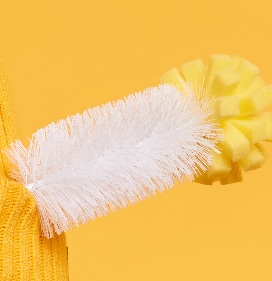
In today's fast-paced world, personal responsibilities and daily chores often intertwine, creating a complex relationship between employers and household staff. One such scenario can arise when a maid begins to overthink the repercussions of her mistakes. This situation not only impacts workplace dynamics but also highlights the importance of effective communication and setting boundaries. In this article, we delve into the reasons behind this behavior, its implications, and how to achieve a better balance in the employer-maid relationship.
The Impact of Communication Style
Establishing a Positive Environment
When correcting mistakes, the communication style adopted plays a crucial role in shaping how the maid perceives the feedback. A polite and constructive approach can foster an environment where learning is encouraged rather than feared, which can ultimately lead to improved performance. Here are some effective strategies to maintain positivity:
1. Use Positive Reinforcement: Acknowledge the tasks performed well before addressing mistakes. This offers a balanced view and encourages the maid to continue her good practices.
2. Be Specific: Instead of generalizing feedback, provide specific examples of what went wrong and how it can be improved. This clarity helps in refining skills without instilling fear.
3. Encourage Open Dialogue: While it's important to communicate errors, it's equally essential to create a space for questions. Encourage the maid to seek clarity before proceeding with tasks, rather than hesitating due to fear of reprimand.
A Shift Towards Overthinking
Despite a considerate approach, it appears that your maid has started to second-guess her decisions, frequently seeking confirmation for even minor tasks. This pattern of behavior can stem from several factors:
- Fear of Reprimand: Even with polite corrections, the maid may perceive a fear of making mistakes, leading to overthinking.
- Desire for Perfection: The maid's wish to meet high standards might prompt her to excessively check in, thus consuming valuable time.
- Lack of Confidence: Over time, persistent correction without ample praise can erode confidence, resulting in hesitance regarding decision-making.
The Time Management Challenge
Balancing Work Demands
As a busy professional, the constant back-and-forth over minor tasks can become time-consuming. Here are several ways to address this time management challenge:
1. Set Clear Boundaries: Define specific tasks and the extent of oversight required. Establishing a level of independence for the maid can reduce the tendency to overcheck.
2. Limit Over-Consultation: Encourage the maid to use her judgment for routine tasks. Specify conditions under which she should consult you, allowing her the freedom to operate autonomously for simpler chores.
3. Time for Reflection: Set aside a brief period during the week to discuss any persistent concerns the maid may have regarding her performance. This strategy allows for a consolidated discussion rather than constant interruptions throughout the day.
Implementing a Structured Approach
To further streamline the workflow and minimize interruptions, consider implementing a structured approach to tasks:
- Checklists: Providing a checklist for daily tasks can enhance clarity and self-sufficiency, allowing the maid to verify completed tasks independently.
- Weekly Reviews: Conducting weekly or biweekly reviews focused on performance reduces the need for ongoing corrections, allowing for open discussion of improvements and any persistent issues.
- Training Sessions: Occasionally conducting short training sessions focused on common tasks can enhance comfort levels and reduce the need for frequent clarifications.
Striking the Right Balance
While it is commendable to maintain a polite and corrective approach to your maid's mistakes, recognizing when this communication style becomes a source of anxiety is crucial. For a healthy working relationship, a balance must be struck between providing constructive feedback and fostering independence. By setting clear objectives, encouraging open dialogue, and providing appropriate resources, both the maid and the employer can enjoy a harmonious working relationship.
At OKAYLAH INDIAN MAID AGENCY, As you consider how to address this situation, remember that creating a supportive environment will not only alleviate your maid's anxiety but will also empower her to perform her responsibilities confidently. Open communication and a structured approach can lead to mutual respect and a more efficient household.
At indian maid agency we do scren each biodata and does background verification.
Helper is diagnosed from Vertigo
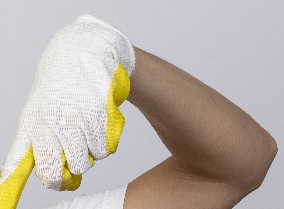
Vertigo is a condition that can significantly affect an individual's quality of life, and it often manifests as a sensation of spinning or dizziness. When you learn that a loved one, like your helper, is diagnosed with vertigo, it can bring about a mix of concern, confusion, and a feeling of helplessness, especially when this person has become an integral part of your family life. In this article, we will explore the causes and symptoms of vertigo, the potential implications it may have for your helper, and practical steps you can take to provide support during this challenging time.
What is Vertigo?
1. Definition and Symptoms
Vertigo is not a condition itself, but rather a symptom of various underlying issues, often affecting the inner ear or brain. Common symptoms include:
- A spinning sensation, as if the surroundings are moving
- Balance issues when standing or walking
- Nausea and vomiting
- Tinnitus or ringing in the ears
- Blurred vision
Recognizing these symptoms is essential for understanding what your helper is experiencing and how it may impact her day-to-day activities.
2. Causes of Vertigo
Vertigo can arise from several medical conditions, including:
- Benign Paroxysmal Positional Vertigo (BPPV): Small calcium particles in the inner ear become dislodged and disrupt balance.
- Vestibular Neuritis: Inflammation of the vestibular nerve often due to a viral infection.
- Meniere's Disease: An inner ear disorder characterized by episodes of vertigo, hearing loss, and tinnitus.
- Migraines: Some individuals experience vertigo as a symptom of migraine.
Understanding the specific cause of your helper's vertigo can help you anticipate her needs and adjust your environment to facilitate her recovery.
Implications of the Diagnosis
1. Impact on Daily Life
Living with vertigo can make everyday tasks daunting. Your helper may struggle with activities that require balance or concentration, which can lead to feelings of frustration or anxiety. This may also affect her ability to care for your children, who are likely attached to her.
2. Emotional and Psychological Effects
The sensation of vertigo can be disorienting, impacting mental health. Feelings of anxiety, isolation, and helplessness can arise as individuals cope with unpredictable episodes. As someone who cares for her, being aware of these emotional aspects will be vital to providing effective support.
Supporting Your Helper
1. Encourage Medical Follow-Up
Ensure that your helper maintains regular appointments with her healthcare provider. Ongoing evaluation is critical for managing vertigo and identifying any changes in her condition. A specialist, such as an ear, nose, and throat (ENT) doctor or a neurologist, might offer specific therapies or treatment options.
2. Create a Safe Environment
Safety is paramount for someone experiencing vertigo. Consider the following steps:
- Clear Clutter: Keep pathways clear to prevent falls.
- Install Handrails: Add handrails in hallways and bathrooms.
- Use Non-Slip Mats: Place mats in bathrooms and kitchens to provide grip.
- Good Lighting: Ensure that all areas are well-lit to help her navigate safely.
3. Foster Understanding and Patience
Educate yourself and your family about vertigo so that you can understand better what your helper is experiencing. Encourage open communication about her comfort level and any changes in her condition, which can help you adjust the family routines. Ensure your children are also aware, as they can support her by following safety measures.
Conclusion
A diagnosis of vertigo can be distressing for both the individual affected and those who care for them. By understanding the nature of this condition, its implications, and how to support your helper, you create a nurturing atmosphere while promoting her recovery. Clear communication, a safe environment, and a compassionate approach are key to ensuring that your helper feels supported during this challenging time. At OKAYLAH INDIAN MAID AGENCY, It's a journey that requires sensitivity and understanding from all family members to help her navigate through her discomfort and regain a sense of normalcy.
At indian maid agency we do scren each biodata and does background verification.
My maid English is poor and can't understand my kids
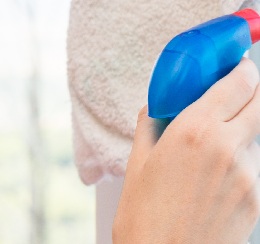
In today's globalized world, English proficiency is often considered a vital skill, especially in multicultural environments. As families increasingly hire domestic help from diverse linguistic backgrounds, effective communication becomes paramount. This article addresses the challenges faced by families when hiring maids with limited English proficiency and explores the potential benefits of investing in language education.
Understanding the Setting
Many households today employ maids to assist with various tasks, from cleaning to childcare. However, when the hired help has limited English skills, misunderstandings can quickly arise. For instance, if the maid struggles to understand the specific needs or instructions provided by the children, this can lead to frustration for both parties. This issue may also stem from the children's diverse ways of expressing themselves, often filled with slang or idiomatic expressions that may be difficult for a non-native speaker to grasp.
Here are some common issues faced in such situations:
1. Miscommunication: Instructions might be misinterpreted, leading to incorrect tasks being completed.
2. Frustration Among Children: Kids may find it difficult to communicate their needs or feelings.
3. Safety Concerns: Improper understanding of critical safety instructions can pose risks, particularly when it comes to caring for children.
Given these challenges, one might wonder whether it is wise to send the maid for English classes.
Assessing the Need for Language Training
1. Evaluating Current Language Skills: Before making any decisions, assess the current English proficiency level of the maid. Understanding what she already knows can help determine the focus areas for her education.
2. Identifying Specific Challenges: Engage with the maid about the problems she encounters when communicating with your children. This dialogue can provide invaluable insights into common misunderstandings or specific vocabulary that needs clarification.
3. Determining the Impact on Daily Life: Reflect on how the lack of communication is affecting daily household operations. If the situation leads to significant inconveniences or safety concerns, then investing in language training could be warranted.
Investing in English Classes: A Practical Solution
Should you decide to offer her English classes, here are some considerations to keep in mind:
1. Choose the Right Program: Look for local language schools that offer classes specifically tailored for domestic workers or conversational English. Online platforms can also provide accessible learning opportunities.
2. Set Realistic Goals: The improvement of language skills will require patience. Establish short-term and long-term goals that are achievable.
3. Encourage Practice at Home: Create an environment that encourages the maid to practice her English with the children. Simple, daily interactions can help solidify her learning.
4. Seek Feedback: Regularly check in with all parties involved, including the maid and children, to gauge improvements and address remaining challenges.
5. Consider Alternate Solutions: In addition to language classes, consider using visual aids, picture charts, or simple texts in both languages to facilitate understanding. This mix can provide immediate support while she learns.
Conclusion
Hiring help can significantly ease the burden of daily household responsibilities, but when limited English proficiency becomes a barrier, it can result in a cascade of challenges. Whether to send your maid for English classes largely depends on the level of misunderstanding and its impact on your family's functioning. If the decision is made to invest in her education, it can lead to stronger communication, enhanced trust, and a more harmonious living environment. At OKAYLAH INDIAN MAID AGENCY , prioritizing effective communication not only benefits the maid but also enriches the overall family experience, fostering a better understanding of diverse cultures within the home.
At indian maid agency we do scren each biodata and does background verification.
Maid is not covering the food in fridge and in kitchen
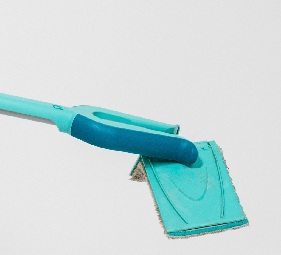
Food safety is a critical aspect of maintaining a healthy home environment. One of the key components of food safety is proper food storage, which includes ensuring that all food items are adequately covered, whether in the refrigerator or on kitchen surfaces. Recently, I encountered a concerning situation regarding food storage practices that highlights the significance of this issue. My maid has repeatedly failed to adhere to basic food safety protocols, particularly in terms of covering food in the fridge and on kitchen platforms. This has led to undesirable consequences, including the presence of flies in uncovered bread. In this article, we will explore the importance of food storage and provide practical solutions to enhance food safety in our kitchens.
The Risks of Improper Food Storage
Improper food storage can pose several risks to health and safety. Here are some key factors to consider:
1. Contamination: Uncovered food is prone to contamination from airborne particles, pests, and insects. For instance, my recent discovery of flies in uncovered bread is a clear example of how neglecting to cover food can lead to health hazards.
2. Spoilage: Certain foods can spoil quickly if not protected. When food is left exposed, it can lose flavor, texture, and nutritional value, leading to waste and dissatisfaction.
3. Odor Absorption: Foods can absorb odors from their surroundings when left uncovered. This can result in unpleasant flavors that no one wants to experience.
4. Cross-contamination: In kitchens, bacteria from different food items can come into contact if they are not stored properly, increasing the risk of foodborne illnesses.
Addressing these risks underscores the necessity of maintaining proper food storage practices.
Best Practices for Food Storage
Implementing effective food storage practices can significantly reduce risks associated with food spoilage and contamination. Here are some best practices to consider:
1. Cover Food Items
- Always cover food before storing it, whether in the fridge or on counters. Use airtight containers, plastic wrap, or aluminum foil.
- For large items like pizzas or cakes, consider using specialized covers or storage containers designed to keep them fresh.
2. Organize Your Fridge
- Keep your fridge organized with the most perishable items at the front to encourage their use.
- Ensure that cooked foods are stored in labeled, airtight containers to prevent mix-ups and contamination.
3. Regular Cleaning
- Schedule a regular cleaning of both the fridge and kitchen surfaces. This helps prevent pest issues and keeps food items fresh.
- Wipe down shelves, kitchen countertops, and storage containers to maintain a hygienic environment.
4. Pest Control Measures
- Implement pest control measures in the kitchen to keep flies and other insects at bay.
- This could mean installing screens on windows, using traps, or employing natural deterrents like peppermint oil or vinegar.
5. Educate and Communicate
- Ensure that all household members, including staff and maids, understand the importance of food safety. Regular discussions about these protocols can help reinforce good practices.
- If necessary, provide written reminders or guidelines in strategic locations, such as on the fridge door or near food storage areas.
Effective Communication with Your Maid
It is essential to address the issue with your maid professionally and constructively. Here are steps to facilitate effective communication:
- Set Clear Expectations: Clearly outline your expectations regarding food storage and any specific tasks that need to be met daily.
- Provide Feedback: If you notice any lapses, kindly bring it to her attention, and explain the importance of adhering to these practices.
- Offer Training: If applicable, offer to spend time with her to review proper food storage techniques. This can be an excellent opportunity to build trust and ensure mutual understanding.
Conclusion
Maintaining food safety is a fundamental responsibility in every household, and proper food storage is a vital aspect of that commitment. The recent incident involving uncovered bread and flies serves as a reminder of the risks associated with neglecting food storage protocols. By implementing best practices for food safety and communicating effectively with those involved in food preparation and storage, we can create a healthier environment for ourselves and our families. At OKAYLAH INDIAN MAID AGENCY, prioritizing proper food handling and storage is not only about preventing waste and ensuring food quality, but also about safeguarding our health and well-being. Let's strive to make our kitchens a bastion of safety and cleanliness.
At indian maid agency we do scren each biodata and does background verification.
How to Teach Maid to Cook Your Meals

Cooking is a fundamental skill that many people take for granted, but it can be particularly challenging for those who are just learning. If you've been trying to teach your maid how to cook for the past three months without success, you're certainly not alone. Patience is key, but there are structured approaches that can enhance the learning process. This article provides a comprehensive guide on how to effectively teach your maid to cook meals to your satisfaction.
Understanding the Basics of Cooking
Before delving into the specific methods of teaching, it's essential to establish a foundational understanding of cooking. This knowledge will give your maid the groundwork needed to build confidence in the kitchen.
1. Basic Cooking Terminology
Start with the basics by introducing essential cooking terms. Here are some key terms to cover: - Saute: Cooking food quickly in a small amount of oil or fat. - Simmer: Cooking food gently in liquid just below boiling. - Blanch: Briefly boiling food and then cooling it in ice water. - Al dente: Cooking pasta until it is firm to the bite. Familiarizing her with these terms will not only make recipes easier to understand but will also enable her to follow instructions better.
2. Understanding Ingredients
The next step is to educate her about various ingredients she will use regularly. Conduct a brief session on: - Identifying fresh produce: Point out what ripe and fresh ingredients look like. - Seasoning: Discuss common spices and how they can enhance a dish. - Proper storage: Explain how to store ingredients so they remain fresh longer. Creating a Structured Learning Approach Structuring the teaching process can significantly enhance learning for your maid. Instead of expecting her to learn everything at once, break it down into manageable components.
3. Hands-on Cooking Sessions
Organize practical cooking sessions where you prepare meals together. Follow these steps to maximize the effectiveness of these sessions: 1. Select Simple Recipes: Choose dishes that are not overly complicated -start with basics like scrambled eggs, pasta, or stir-fried vegetables. 2. Demonstrate: Cook the meal yourself while explaining each step clearly, and encourage questions. 3. Supervised Cooking: Allow her to cook the same dish under your supervision, guiding her through the steps. Provide constructive feedback as she cooks. 4. Independent Cooking: After several sessions, encourage her to cook a dish independently while you observe from a distance. Offer assistance only if she requests it.
4. Using Visual Aids
While it's great to present the basics verbally, incorporating visual aids can enhance understanding. Consider these methods: - Recipe Cards: Write clear and easy-to-follow recipe cards that include cooking times, temperatures, and techniques. - Videos: Instead of asking your maid to watch random cooking channels on YouTube, curate a playlist of specific videos that you find helpful and instructive.
Encouraging Feedback and Questions
Creating an open line of communication is crucial for improvement. Encourage your maid to provide feedback regarding her learning experience. Ask her questions like: - What was the most difficult part of cooking today? - Were the ingredients clear and understandable? - Did you feel comfortable with the cooking techniques used? This feedback will help you adjust your teaching methods and make the learning experience more enjoyable for her.
5. Practice Makes Perfect
Cooking is a skill that requires practice. Encourage your maid to practice on her own as much as possible. Here's how to motivate her: - Set Goals: For example, aim for her to successfully prepare a meal once a week without your assistance. Celebrate her achievements to boost her confidence. - Create a Feedback Loop: After she cooks a meal on her own, have a tasting session where you provide constructive criticism and celebrate successes as well.
Conclusion
Teaching your maid to cook is not just about imparting skills; it's about fostering an environment where learning can take place. With structured sessions, clear communication, and patience, she can develop the confidence to prepare meals independently. At OKAYLAH INDIAN MAID AGENCY, the key to mastery in cooking is practice and understanding, so encourage her every step of the way. As you work together toward your cooking goals, you'll not only help her become a better cook but will also cultivate a sense of partnership and trust in the kitchen.
At indian maid agency we do scren each biodata and does background verification.
Arrogance and Behavior Issues in Maid
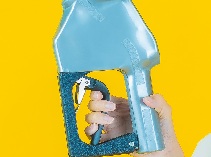
In many households, hiring a maid can provide significant relief, allowing families to balance household chores with work commitments and family time. However, when issues arise, particularly concerning behavior and interpersonal relationships, it can create a troubling dynamic. One common challenge is dealing with instances of arrogance or rude behavior exhibited by household staff, especially when it negatively affects the children's well-being and comfort. This article will delve into the complexities of handling a situation where a maid displays arrogance that impacts her relationship with the children, emphasizing the importance of clear communication and capable management.
Understanding the Situation
1. Identification of the Problem
Identifying the issue with the maid's behavior is crucial. Consider the following points:
- Behavior Towards Children: Observing how she interacts with your kids provides insight into the kind of environment she creates. If she treats them harshly or with indifference, it can lead to reluctance from the children to interact with her.
- Children's Reactions: If kids are expressing discomfort or fear around the maid, these feelings should not be taken lightly. A 4-year-old child, still developing emotional intelligence, deserves a nurturing atmosphere at home.
- Complaints and Accusations: A complaint from the maid about being hit by a child requires immediate attention. It's important to assess whether it stems from a misunderstanding, a child's innocent playfulness, or inappropriate expectations from the maid.
2. Communicating and Setting Boundaries
Effective communication is vital. Here are some strategies to consider:
- Open Discussion: It's essential to have a frank conversation with the maid. Explain your observations regarding her behavior and how it affects your children.
- Setting Expectations: Clearly outline the behavior expected from her. Explain that respect and kindness towards your children are non-negotiable.
- Establishing Consequences: If the behavior continues, it may be necessary to discuss potential consequences. This could range from providing additional training in childcare to seeking assistance elsewhere.
Building Bonds Between Maid and Children
3. Encouraging Positive Interaction
Building a positive relationship between maids and children is fundamental. Here are some suggestions:
- Engagement Activities: Organize activities that encourage bonding, such as arts and crafts, games, or reading time. This can help dissipate the initial awkwardness and create common ground.
- Positive Reinforcement: Encourage the maid to use positive reinforcement when interacting with the kids. Compliments, encouragement, and gentle guidance can help foster respect and affection.
- Modeling Behavior: As a parent, modeling respectful speech and interactions with your maid can set a standard for your children, showing them how to treat others kindly.
Addressing Arrogance in Household Staff
4. Recognizing and Addressing Arrogance
When dealing with arrogance, consider these steps:
- Self-reflection and Professionalism: Reflect on the maid's background and experiences. Sometimes, a lack of training and professionalism can lead to dismissive attitudes. Providing guidance and gently reinforcing respectful conduct can help make her aware of the impact of her behavior.
- Feedback Mechanism: Create an environment where feedback is welcomed. Encourage open dialogue so she feels comfortable discussing her challenges, and you can address any misunderstandings directly.
- Training Opportunities: If available, consider professional development or training aimed at fostering positive child interaction skills, which can better equip her to handle relationships within the household, especially with children.
Conclusion
Dealing with an arrogant maid who exhibits behavior that affects your children's comfort can be challenging, yet it is manageable with clear communication and effective strategies. By establishing expectations, fostering bonds, and addressing any arrogance, you can create a nurturing environment that is conducive to the well-being of everyone in your household. Remember, the goal is not only to maintain a clean home but also to ensure a safe, respectful, and loving environment for your children as they grow and develop. At OKAYKLAH INDIAN MAID AGENCY Constructive and open communication can bridge gaps, foster understanding, and ultimately contribute to a harmonious household dynamic
At indian maid agency we do scren each biodata and does background verification.
Maid is always late in preparation of kid's Tiffin

As parents, we strive to establish a smooth routine for our children, especially during the hectic mornings when the school day begins. However, one common hurdle that many families face is the timely preparation of meals, particularly when it comes to making tiffins for school. In my experience, I have encountered a persistent issue: my maid's consistent lateness in preparing my daughter's tiffin. This situation not only causes frustration but also results in irritation from the school bus driver. In this article, I'll delve into the implications of this problem and propose potential solutions for ensuring timely tiffin preparations.
Understanding the Issue
1. Communication Gaps
One of the primary reasons for the delay in tiffin preparation can often be attributed to communication gaps. Despite my efforts to express the importance of starting early, my maid tends to arrive in the kitchen after I've already begun preparing meals, which disrupts our workflow. Ensuring clear and effective communication can significantly reduce misunderstandings and promote better collaboration.
2. Time Management
Time management is crucial in any household, particularly during the demanding morning hours. The following factors contribute to the ongoing delays:
- Procrastination: Sometimes, my maid may underestimate the time required for meal preparation, resulting in rushed efforts.
- Distractions: External distractions can also impact efficiency in the kitchen, leading to further delays.
Recognizing these challenges is the first step toward implementing a more organized approach.
Proposed Solutions
1. Setting a Fixed Routine
Establishing a fixed morning routine can facilitate smoother operations in the kitchen. Here's how to implement this:
- Determine a Start Time: Set a specific time for meal preparation, ensuring that it allows ample time to complete all tasks without haste.
- Involve the Maid: Include her in the planning process so she understands the importance of sticking to the schedule.
2. Preparing Ingredients in Advance
Another effective strategy is to prepare ingredients ahead of time. This can include:
- Chopping Vegetables: Pre-chop and store vegetables the night before to expedite the cooking process in the morning.
- Batch Cooking: Consider preparing larger quantities of certain meals during the weekend for easy reheating on busy weekdays.
Implementing these steps can save crucial minutes during hectic mornings and help avoid unnecessary delays.
3. Open Lines of Communication
Maintaining open lines of communication is essential for any household. Some effective practices include:
- Regular Check-ins: Establish a routine of daily or weekly discussions to address any concerns and assess progress.
- Feedback Mechanisms: Provide constructive feedback on what works well and what needs improvement without sounding overly critical.
The Role of Accountability
1. Consequences of Delays
While it's vital to foster a positive working relationship with the maid, it's also essential to address the repercussions of tardiness. For instance, when the tiffin isn't ready on time, it not only affects my daughter's breakfast routine but also leads to frustration from the bus driver, ultimately reflecting on our family's punctuality.
2. Incentives for Timeliness
Consider implementing a reward system for timely preparations. Some potential incentives include:
- Recognition: Acknowledging her efforts when she meets the scheduled time can boost morale.
- Additional Duties: Offering her additional responsibilities or rewards for consistent punctuality fosters a sense of ownership in her role.
Conclusion
The challenge of late tiffin preparations can create unnecessary stress in a family's morning routine. By understanding the underlying issues such as communication gaps and time management, we can take proactive steps to mitigate them. Implementing a fixed routine, preparing ingredients in advance, and maintaining open communication with the maid can lead to improved outcomes. Additionally, fostering accountability and recognizing her contributions can create a positive environment that encourages punctuality.
At OKAYLAH INDIAN MAID AGENCY Ultimately, effective collaboration between family members and household staff is crucial. By approaching the situation with professionalism and empathy, it is possible to create a smoother start to every school day, ensuring that our children can begin their day on the right note, happy and well-prepared!
At indian maid agency we do scren each biodata and does background verification.
What to do when a Maid faints during work

Ensuring a safe and healthy working environment is not just a responsibility, it's an ethical obligation for employers and homeowners alike. When a maid, or anyone within your house, faints during work, it can be alarming and raise several questions about how to proceed. This article provides a step-by-step guide on how to handle such situations effectively while maintaining professionalism and compassion.
Understanding the Situation
The first step in responding to an incident where your maid has fainted is to understand the context. In your case, you mentioned that you provide her with proper rest and food on time. However, fainting can occur for various reasons, even in seemingly healthy individuals. These reasons might include:
1. Dehydration: Lack of enough fluids can lead to decreased blood volume, causing fainting.
2. Low Blood Sugar: Skipping meals or not consuming enough nutrient-rich foods can cause dips in blood sugar levels.
3. Heat Exhaustion: If the cleaning environment is too hot, this can lead to fatigue and fainting.
4. Medical Conditions: Underlying health issues may also contribute to sudden fainting.
5. Stress or Overexertion: Sometimes emotional stress or physical overexertion can lead to fainting.
Understanding these potential causes is crucial as it helps in addressing the situation appropriately.
Immediate Actions to Take
Once your maid has fainted, your first concern should be her immediate safety and well-being. Here are the necessary steps to take:
1. Ensure Safety: Move any dangerous objects away from her, and ensure she is in a safe space to recover.
2. Check Responsiveness: Gently shake her shoulders and call her name to assess her responsiveness.
3. Positioning: If she is unconscious, carefully position her on her back and elevate her legs slightly. This can help improve blood flow to the brain.
4. Call for Help: If she does not regain consciousness quickly (within a few minutes), call for emergency medical assistance.
5. Provide Fresh Air: Open windows or doors to ensure there is adequate airflow in the room.
6. Avoid Giving Food or Drink Immediately: If she regains consciousness, do not rush to give her food or drink right away. Wait until she is fully conscious and alert.
Post-Incident Care
After your maid has regained consciousness and received any necessary medical attention, it’s important to continue caring for her welfare. Consider the following steps:
1. Monitor Her Condition: Keep an eye on how she feels over the next few hours; ensure she is stable.
2. Encourage Hydration and Nutritious Food: Provide her with water or an electrolyte-replenishing drink. When she’s ready, offer light, nutritious foods to help stabilize her energy levels.
3. Create Conditions for Rest: If possible, allow her to take a break from work and rest until she feels better. Offering a comfortable place to relax can help in her recovery.
4. Discuss the Incident: When she feels up to it, have a gentle conversation to understand if she experienced any symptoms before fainting. This can help identify triggers and prevent future incidents.
5. Consult a Healthcare Professional: Encourage her to see a doctor to rule out any underlying health issues that may need attention.
Preventive Measures
To avoid such incidents in the future, it is crucial to take proactive measures:
1. Create a Healthy Work Environment: Ensure that the work area is well-ventilated and not too hot. Consider using fans or air conditioning during cleaning tasks.
2. Regular Breaks: Implement a schedule for regular breaks, allowing her to rest and hydrate throughout her shift.
3. Nutritional Guidance: Ensure that meals provided are well-balanced and energizing. Consider consulting a nutritionist if needed.
4. Health Awareness: Encourage her to communicate any health issues or concerns that may affect her work.
5. Emergency Protocol: Establish a clear plan for what to do in case of emergencies, ensuring that everyone is aware of the procedures.
Conclusion
When a maid or any worker faints during their duties, it is essential to respond with care and professionalism. By following the appropriate steps both immediately after the incident and in the days following, you not only assist in their recovery but also create a more supportive working environment. Remember, fostering a culture of health and safety is beneficial for everyone involved. At OKAYLAH INDIAN MAID AGENCY your maid's well-being ensures not just her physical health, but also promotes trust and loyalty, making your home a better place for both of you.
At indian maid agency we do scren each biodata and does background verification.
Maid's Duty in Kids' Playground

In today's fast-paced world, where both parents often juggle work and other responsibilities, the role of a maid, particularly in supervising children, has become increasingly crucial. Many employers rely on maids to ensure the safety and well-being of their children, especially in environments like playgrounds where kids can be active and unpredictable. This article explores the essential duties of a maid in a kids' playground, highlighting the importance of vigilance, engagement, and proactive care.
Understanding the Role of a Maid in the Playground
1. Safety First: Vigilance is Key
The primary responsibility of a maid in a playground setting is to ensure the safety of the children. This involves:
- Constant Supervision: Maintaining a watchful eye on the children at all times. This means being aware of where the kids are, what they are doing, and who they are playing with.
- Preventing Accidents: Being proactive in preventing accidents by recognizing potential hazards, such as wet slides, obstructions on the playground, or rough play between children.
- Emergency Preparedness: Being equipped to handle emergencies, which includes knowing how to administer first aid and having a clear understanding of emergency contact procedures.
2. Establishing Guidelines for Play
Setting clear guidelines for children is critical in a playground environment. A maid should:
- Communicate Boundaries: Clearly explain which areas of the playground are off-limits or designated for certain activities (e.g., climbing structures vs. playsets).
- Promote Safe Play: Encourage children to use playground equipment properly, such as going down slides feet first and waiting their turn on swings to minimize injury.
- Encourage Respectful Interaction: Foster an atmosphere of cooperation and respect among the kids to prevent bullying and conflicts.
3. Engaging with the Children
While supervision is essential, engaging with the children plays a critical role in their enjoyment and development. A maid can:
- Join in Activities: Participate in games and play, which not only keeps children safe but also enhances their experience and encourages social interaction.
- Teach Social Skills: Use playtime to teach children valuable lessons, such as sharing, taking turns, and working as a team.
- Support Individual Interests: Be attentive to individual preferences, providing opportunities for children to explore their interests while ensuring safety.
4. Monitoring Behavior and Emotions
Observing children's behavior can provide insights into their emotional states. A maid should:
- Recognize Signs of Distress: Be vigilant for signs that a child may be feeling overwhelmed, scared, or upset, and take appropriate action to assist them.
- Encourage Positive Interactions: Maintain a positive atmosphere by acknowledging and praising good behavior while gently correcting inappropriate actions.
- Foster Independence: Encourage children to solve minor conflicts on their own, fostering resilience and conflict resolution skills.
5. Communication with Parents
Effective communication with parents before and after playground time is essential. A maid should:
- Provide Updates: Inform parents about the children's behavior, interactions, and any incidents that may have occurred during playtime.
- Discuss Any Concerns: Raise any concerns or suggestions regarding children's safety or social interactions with parents to ensure collaborative care.
Conclusion
The role of a maid in a kids' playground is multifaceted and requires a blend of vigilance, communication, and active engagement. By prioritizing safety, establishing play guidelines, and nurturing children's social and emotional development, a maid not only protects the children but also enriches their playground experience.
As parents rely on maids to care for their children in such environments, it is essential to ensure that these caregivers are well-versed in the responsibilities that come with this role. Ultimately, fostering a safe and nurturing playground atmosphere can have lasting benefits on a child's growth, making it a significant aspect of a maid's duties. At OKAYLAH INDIAN MAID AGENCY Investing in their training and support can enhance the quality of care they provide, resulting in happier children and peace of mind for parents.
At indian maid agency we do scren each biodata and does background verification.
Points to Consider When Preparing a Maid's Daily Schedule

In many households, a maid is not just an employee but an integral part of the family. Therefore, it is essential to recognize their needs and well-being while preparing their daily schedule. A well-structured daily plan can greatly enhance their productivity and satisfaction, ensuring they have ample time for rest, nourishment, and personal tasks. Here, we will explore key points to consider when crafting a maid's daily schedule.
1. Prioritize Rest and Breaks
When designing a daily schedule for a maid, the first aspect to consider is the importance of rest and breaks. Continuous work without sufficient rest can lead to fatigue and decreased efficiency. To promote a healthy work-life balance, consider the following guidelines:
1. Define Work Hours: Establish clear working hours that do not exceed standard limits to avoid overload.
2. Schedule Regular Breaks: Plan short breaks every few hours, where the maid can step away from her tasks, stretching or relaxing.
3. Allocate Time for Lunch: Ensure there is a designated time for lunch that lasts at least 30 to 60 minutes, allowing her to refuel properly.
By incorporating adequate rest periods into the schedule, you help maintain high energy levels and job satisfaction.
2. Ensure Adequate Nourishment
Nutrition is essential for maintaining energy and focus throughout the day. As part of her daily schedule, plan for proper meal times and snacks. Here's how:
1. Breakfast: Schedule time for a nutritious breakfast before the start of the first task, as this is crucial for a productive day.
2. Lunch Break: As mentioned, allocating enough time for lunch is essential for keeping her energized.
3. Snacks: Consider integrating a couple of short snack breaks during the day, providing healthy options like fruits, nuts, or yogurt.
A maid who is well-nourished is more likely to perform her tasks efficiently and with a positive attitude.
3. Define Clear Duties and Responsibilities
A clear understanding of daily tasks is vital for effective time management. When preparing the schedule, outline specific duties to make the workload manageable. This prevents overwhelm and ensures all tasks are completed efficiently. Points to consider include:
1. Daily Tasks: List common daily activities such as cleaning, laundry, meal preparation, and shopping.
2. Weekly Duties: Assign heavier weekly chores (like deep cleaning or organizing) on days when she can manage them better.
3. Flexibility: Allow a degree of flexibility in the schedule to accommodate unexpected tasks or changes.
Communicating clear goals not only fosters a sense of accomplishment but also helps in prioritizing work.
4. Incorporate Personal Time
A maid, like anyone else, deserves personal time to unwind and pursue her interests. Striking a balance between work obligations and personal interests enriches her quality of life. Steps to incorporate personal time include:
1. End-of-Day Relaxation: If the workday permits, allow some time at the end of the day for relaxation, reading, or pursuing hobbies.
2. Off-Days: Guarantee at least one full day off each week for personal errands, family time, or simply relaxation.
3. Social Activities: Encourage her to engage in social activities or community involvement, supporting mental health and well-being.
By promoting a healthy work-life balance, she will be more rejuvenated and productive when on duty.
5. Open Communication
Finally, establishing a system of open communication is crucial in ensuring that the maid feels valued and heard. Regularly discussing the schedule allows for adaptations based on her feedback and priorities. Here are a few tips:
1. Regular Check-Ins: Set aside time weekly to discuss workload and any adjustments she feels could be beneficial.
2. Feedback Mechanism: Create an open line where she can express her feelings about the current schedule or suggest improvements.
3. Recognition: Regularly acknowledge her contributions and effort, bolstering morale and encouraging honest dialogue.
When communication is prioritized, it fosters a respectful and collaborative environment.
Conclusion
Creating a well-thought-out daily schedule for your maid is essential for her productivity, well-being, and job satisfaction. At OKAYLAH INDIAN MAID AGENCY By prioritizing rest and breaks, ensuring proper nourishment, defining clear responsibilities, and incorporating personal time, you can enhance her work experience. Finally, open communication will cultivate a collaborative atmosphere, strengthening family bonds. The consideration of these factors will not only benefit your maid but contribute to a harmonious household where everyone thrives.
At indian maid agency we do scren each biodata and does background verification.
Maid went to other country on off day
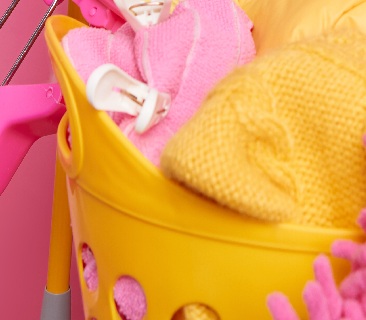
In the complex dynamics of household employment, the relationship between employers and their helpers is often guided by mutual trust and clear communication. This relationship, however, can be tested when boundaries are crossed. A recent incident where a maid traveled to Malaysia without her employer's permission highlights the importance of establishing and adhering to guidelines concerning time off and travel. Such scenarios not only raise concerns about trust but also require employers to understand their rights and responsibilities in managing household staff.
Understanding the Context
A close friend of mine recently encountered a surprising situation regarding my household helper. While on a trip to Malaysia, they spotted her enjoying her day off across the border. Upon receiving the news, I immediately communicated with my friend to clarify the situation. I explained that while it was indeed her day off, my helper was permitted to go out within Singapore but was not authorized to travel outside the country. This incident sheds light on several key aspects related to the employment of domestic helpers.
1. Setting Clear Boundaries
One of the essential components of any employer-helper relationship is establishing clear boundaries regarding time off and travel. Here are some recommendations for setting boundaries:
1. Communication: Discuss the expectations for off days and travel plans prior to employment. Clearly state what is permissible and what is not.
2. Written Agreement: Consider drafting a written agreement that outlines the helper's responsibilities, rights, and boundaries regarding time away from work.
3. Regular Check-ins: Regularly schedule meetings to discuss any issues or changes in the helper's roles, including her days off, ensuring continuous clear communication.
Establishing these boundaries not only helps maintain a productive working relationship but also prevents misunderstandings.
2. The Importance of Trust
Trust is a cornerstone of any employment relationship. When that trust is violated, as in the case of my maid traveling to Malaysia without permission, it can lead to feelings of betrayal and frustration. Trust can be maintained through:
1. Transparency: Encourage open dialogue about personal plans during time off, fostering a sense of mutual respect.
2. Monitoring: While it is crucial to respect privacy, a reasonable level of monitoring (e.g., knowing where your helper intends to go) can be appropriate, especially for travel outside Singapore.
3. Feedback: Provide constructive feedback when expectations are not met, addressing the issue calmly and professionally.
Building trust also means addressing behaviors that violate established agreements, as this sets the tone for future interactions.
3. Legal Considerations
Maid employment in Singapore is regulated by specific laws and contracts. Understanding these legal considerations can provide clarity in such situations:
1. Employment Contracts: Review the employment contract for clauses related to time off, travel, and the consequences of violating these terms.
2. Labor Laws: Familiarize yourself with the Ministry of Manpower's regulations concerning domestic workers, as these can guide both parties on permissible practices.
3. Rights of Workers: Recognize that while the employer has the right to set expectations, helpers also have rights that must be respected. Staying informed about these rights helps employers navigate disputes effectively.
Understanding these legal aspects can equip employers with the knowledge necessary to handle breaches of agreement professionally.
4. Conflict Resolution
When boundaries are crossed, as in the case of my maid's unauthorized travel, it is essential to approach the situation with a view toward resolution:
1. Address the Issue Promptly: Contact your helper to discuss the situation directly, maintaining a calm and professional demeanor.
2. Listen to Their Side: Allow the maid to explain her actions; there may be underlying reasons or misunderstandings that you weren't aware of.
3. Set Consequences: If necessary, outline the consequences for future unauthorized actions, reinforcing the importance of adhering to established guidelines.
By approaching conflict with a willingness to listen and resolve, employers can rebuild trust and strengthen their working relationships.
Conclusion
The incident of my maid traveling to Malaysia without permission serves as a critical reminder of the vital role communication, trust, and clear boundaries play in the employer-helper relationship. At OKAYLAH INDIAN MAID AGENCY By setting explicit guidelines, fostering an atmosphere of trust, and being mindful of legal considerations, employers can navigate potential pitfalls more effectively. Ultimately, clear communication and respect for each other's roles and rights will lead to a more harmonious and productive living and working environment, ensuring that similar issues are minimized in the future. As we continually revisit and reaffirm these boundaries, we promote not just compliance but also a stronger, more respectful relationship.
At indian maid agency we do scren each biodata and does background verification.
Maid wore my Clothes and posted on Social Media

In a world increasingly defined by social media interactions, the line between personal boundaries and shared spaces often becomes blurred. Recently, I encountered an unusual situation that raised important questions about privacy, ownership, and trust. After returning from a vacation, I discovered a photo of my maid posted on social media, casually posing in one of my dresses. At first, I assumed she had purchased a similar item, perhaps from overseas. However, the truth was far more complex. In this article, I will delve into the implications of this incident, exploring themes of personal space, respect, and communication in domestic settings.
Understanding Personal Boundaries
Defining Personal Space
Personal space can be understood as the physical and emotional boundaries that individuals maintain in their personal lives. When it comes to shared living spaces, such as those involving domestic workers, establishing clear boundaries is essential. Here are a few considerations:
- Clothing and Belongings: Many people have a natural inclination to share items with those they know well. However, clothing can carry personal significance. It is crucial to communicate the boundaries around items that are private to prevent misunderstandings.
- Respecting Privacy: The invasion of personal space can extend beyond physical boundaries. In this case, posting a photo on social media without consent raises questions about privacy.
The Emotional Impact of Boundary Violations
When boundaries are crossed, it can lead to feelings of violation and resentment. Discovering that a personal belonging has been used without permission can evoke a range of emotions:
- Breach of Trust: Trust is fundamental in any relationship. A domestic worker wearing and publicly displaying a homeowner's clothing can create an atmosphere of distrust.
- Awkwardness in Relationships: Such situations can lead to uncomfortable conversations and awkwardness in the domestic dynamic, ultimately affecting day-to-day interactions.
Communication is Key
Addressing the Situation
Upon discovering the photo, it was imperative to address the issue proactively. However, the lack of response from my maid when I asked her about it only complicated the matter. This situation highlights the importance of effective communication:
- Open Dialogue: Establishing a space where both parties can express their feelings and concerns openly is crucial. Clear communication prevents misunderstandings and ensures that everyone is on the same page regarding boundaries.
- Setting Expectations: Clearly outlining expectations regarding the use of personal belongings can help avoid future conflicts. It is essential for both employer and employee to have a mutual understanding to foster a harmonious relationship.
Cultural Perspectives
Understanding Different Backgrounds
Cultural differences can play a significant role in how personal belongings and boundaries are perceived. In some cultures, sharing items may symbolize trust and camaraderie, while in others, it may be viewed as an invasion of privacy.
- Assessing Local Norms: Understanding the cultural background of domestic workers can provide valuable context. In some cases, what seems like a personal violation may stem from differing cultural norms regarding personal items.
- Building Empathy: Creating a space for understanding can lead to better relationships. By fostering empathy toward each other's backgrounds, both parties are more likely to navigate potential conflicts positively.
Conclusion
The incident of my maid wearing my clothes and posting them on social media serves as a significant reminder about the importance of boundaries and trust in domestic relationships. As I reflect on this experience, I realize that communication is vital in addressing issues that arise in shared spaces. At OKAYLAH INDIAN MAID AGENCY By establishing open dialogue, setting clear expectations, and fostering cultural understanding, we can create a harmonious living and working environment.
As we navigate the complexities of our interconnected lives, we must remember that maintaining respect for personal boundaries is fundamental to trust. This experience has reshaped my perspective on domestic relationships, emphasizing the need for mutual respect and clear communication. Ultimately, I hope to move forward with a renewed commitment to these principles, ensuring a respectful and trusting relationship within my home.
At indian maid agency we do scren each biodata and does background verification.
Addressing Maid Consumption of Children's Food

In many households, the presence of a maid or domestic helper can significantly ease daily responsibilities, but it can also lead to complex interpersonal dynamics. One issue that often arises is the consumption of food designated for children by the maid. This situation can be frustrating, particularly when the maid has been provided with sufficient nourishment. An incident involving the unauthorized eating of children's food, such as chocolate and fruits, can not only breach trust but also raise concerns about boundaries within the home. This article aims to address the implications of such behavior, explore potential solutions, and re-establish respect for the roles within the household.
Understanding the Issue
The situation of maids consuming children's food may seem trivial at first, yet it can lead to broader implications regarding respect, boundaries, and communication within the household. In my case, I noticed my maid eating my children's snacks and treats, despite providing her with her share of fruits and meals. This behavior is problematic for several reasons:
1. Setting Boundaries: Fundamental to any working relationship is the establishment of clear boundaries. A maid consuming children's delicacies without permission can show a lack of respect for those boundaries.
2. Teaching Children: Children learn by observing adults. If children see their food being taken without permission, it may confuse them about sharing and ownership.
3. Family Dynamics: Such actions can breed resentment not only towards the maid but affect the overall family atmosphere. The trust that once existed may become strained, altering interactions within the household.
Communication is Key
To address this dilemma, effective communication is essential. Here are some strategies that can be employed:
1. Direct Conversation: Initiate a private conversation with the maid. Clearly explain that while you appreciate her help, it is important that she respects the children's designated food.
2. Reiterating Expectations: Lay out explicit expectations concerning the food situation. For example, explain which food items are exclusively for the children and which items are available for her consumption.
3. Encouraging Dialogue: Create an environment where the maid feels comfortable expressing her feelings or concerns. She may have hunger issues that were unaddressed, which could lead to her taking food without asking.
Implementing Practical Solutions
To ensure that boundaries are respected and the situation is resolved amicably, consider the following practical measures:
1. Labeling Food: Clearly label food items intended for children versus those available for the maid. This visual cue can promote mindfulness and respect for boundaries.
2. Regularly Scheduled Check-ins: Establish regular check-ins to discuss household dynamics, allowing both parties to voice concerns and reassess expectations.
3. Create a Snack Area for the Maid: Develop a designated area for the maid that includes snacks and fruits, ensuring she has her own resources to turn to instead of resorting to the children's food.
Building Trust and Respect
Ultimately, the goal is to rebuild trust within the household and ensure that everyone feels respected and valued. Here are some additional strategies to foster a positive environment:
1. Positive Reinforcement: Acknowledge and appreciate the contributions the maid makes to the household and the care she provides for the children. This recognition can motivate her to respect the boundaries you set.
2. Modeling Behavior: Be a role model for your children by demonstrating respect for boundaries and ownership. Your actions will teach them the importance of personal space, property, and trust.
3. Encouraging Empathy: Help the maid understand the kids' perspective. Discuss how it can feel unfair or upsetting for children to see their food taken away from them without permission.
Conclusion
Navigating the delicate issue of a maid consuming food intended for children can be challenging, but it is essential for maintaining harmony in the household. At OKAYLAH INDIAN MAID AGENCY By prioritizing communication, setting clear boundaries, implementing practical solutions, and fostering a respectful environment, you can address the situation effectively. Establishing a culture of trust and understanding will not only ensure appropriate behavior but will also strengthen the household dynamics in the long run. After all, a well-functioning household thrives on mutual respect and clear communication, benefiting both the family and the staff involved.
At indian maid agency we do scren each biodata and does background verification.
Things to Consider When Renewing a Maid Contract

As the end of a contract draws near, it's crucial to reflect on various factors before deciding whether to renew your maid's contract. This is not just a matter of formalities; it involves understanding the dynamics of your relationship, the quality of work performed, and potential changes that could enhance both your and your maid's experience. In this article, we explore essential considerations when renewing a maid contract.
1. Performance Assessment
Firstly, take the time to evaluate the performance of your maid. Reflect on the following aspects:
- Work Quality: Assess whether they have fulfilled their duties effectively and maintained the cleanliness and organization of your home.
- Dependability: Consider their punctuality and reliability. Do they complete their tasks without constant supervision?
- Communication Skills: Evaluate how well they communicate and if there have been any issues in understanding instructions or addressing problems.
- Initiative: Note if they take the initiative in situations or require constant reminders.
A fair assessment will provide a foundation for discussions on renewal and highlight any areas that may require improvement.
2. Compensation and Benefits
Consider your maid's current compensation and whether it adequately reflects their performance and the responsibilities they hold. Some questions to ponder include:
- Wage Increase: Is it appropriate to offer a raise based on their performance or industry standards? Pay rates can vary depending on experience, location, and duties.
- Paid Vacation: Discuss the potential for paid vacation days. This not only fosters goodwill and job satisfaction but also encourages loyalty.
- Bonus or Incentives: Consider implementing a bonus structure based on performance or at the end of the year as a thank-you for good service.
Offering competitive compensation and benefits can significantly enhance job satisfaction and productivity.
3. Changes in Responsibilities
Over time, responsibilities may evolve. Some considerations include:
- New Duties: Have your household needs changed? Perhaps you now require additional services like childcare or pet care. Discuss these adjustments and whether your maid is willing to take on extra tasks.
- Skill Development: Evaluate if there are skills that would benefit your situation. Would it be worthwhile to discuss professional development opportunities or training for specific tasks?
Clearly outlining any changes to responsibilities will help clarify expectations moving forward.
4. Legal and Practical Considerations
To ensure compliance and avoid future issues, take the following into account:
- Contract Terms: Review the existing contract terms thoroughly. Are there clauses that need adjustments, such as termination notice periods or conditions?
- Local Labor Laws: Ensure that your contract adheres to local labor regulations. This may include salary standards, working hours, and unemployment insurance.
- Health and Safety: Reflect on any changes that may need to be implemented for health and safety, especially if working conditions have evolved.
Staying informed about legal obligations will protect both parties and create a smoother relationship.
5. Cultural and Personal Considerations
Lastly, consider the cultural aspects and personal dynamics of the relationship:
- Cultural Fit: Does your maid adapt well to your household's culture? A harmonious relationship can foster a more productive environment.
- Personal Circumstances: Are there any significant life changes affecting their work? It's essential to be empathetic and understand how such changes could impact their performance and availability.
- Feedback Mechanism: Create a platform for open communication where both parties can provide feedback to each other, allowing for ongoing improvement.
Creating a supportive and understanding environment not only enhances job satisfaction but also builds trust.
Conclusion
Renewing a maid contract is an important consideration that goes beyond simple formalities. Analyzing their past performance, discussing fair compensation, adjusting responsibilities, adhering to legal stipulations, and nurturing a positive working relationship are all vital components in this decision-making process. At OKAYLAH INDIAN MAID AGENCY, As you consider these factors, you will not only strengthen your partnership with your maid but also ensure a comfortable and efficient household. Reflect on these points carefully, and you may find that a renewed contract can be beneficial for both parties, fostering a long-lasting and mutually satisfying relationship.
At indian maid agency we do scren each biodata and does background verification.
Maid shows anger and disrespect

In the delicate dynamics of household employment, the relationship between employers and domestic workers can often be complex. Observing a maid display anger or disrespect can leave employers feeling perplexed and concerned. This article discusses potential reasons behind these behaviors, the importance of effective communication, and steps one can take to foster a more positive working relationship.
Recognizing the Root Causes of Anger and Disrespect
Understanding the underlying factors that may lead to anger and disrespect is crucial. Here are some common issues that domestics workers might face:
1. Personal Issues: Many employees may struggle with personal problems, including financial stress, family issues, or health concerns, which can affect their mood at work.
2. Workplace Conditions: The work environment can significantly impact a worker's demeanor. Long hours, demanding tasks, or a lack of appreciation can contribute to feelings of frustration.
3. Communication Barriers: Sometimes, a maid may feel misunderstood or underappreciated but struggles to express these feelings. It's essential to ensure that both parties can communicate openly.
4. Cultural Differences: Different backgrounds may lead to varied expectations and communication styles. Awareness of these differences can help in addressing misunderstandings.
5. Burnout and Stress: The nature of domestic work can be physically and emotionally demanding. If a worker feels overwhelmed, it may lead to mood swings or a lack of patience.
Importance of Communication
Clear and effective communication is pivotal in resolving tensions in the employer-employee relationship. Here are strategies to enhance communication:
1. Create a Comfortable Environment: Encourage open dialogue by fostering a friendly and welcoming atmosphere. This can help your maid feel safe in expressing her feelings.
2. Schedule Regular Check-ins: Make it a point to have regular conversations about her workload, feelings, and any frustrations she may have. This proactive approach can help you identify issues before they escalate.
3. Practice Active Listening: When your maid does speak, ensure you listen attentively. Validate her feelings by acknowledging her concerns without judgment.
4. Avoid Assumptions: Don't jump to conclusions about her behavior. Instead, ask clarifying questions to understand the underlying issues.
Steps to Foster a Positive Working Relationship
Improving the employer-employee dynamic requires patience and effort from both parties. Here are practical steps you can take:
1. Show Appreciation: Regularly express gratitude for her hard work. A simple "thank you" can go a long way in making your maid feel valued.
2. Provide Feedback: Constructive feedback can help her navigate her responsibilities and improve her performance without feeling chastised.
3. Set Boundaries: Clearly define expectations regarding tasks and conduct. This clarity can alleviate confusion and potential frustrations.
4. Encourage Breaks: Ensure that your maid has sufficient time to rest and recharge. Continuous work without breaks can lead to burnout.
5. Offer Professional Development: If applicable, discuss opportunities for skill enhancement or additional training, which may contribute to job satisfaction and growth.
Conclusion
Observing anger and disrespect from a maid can be challenging for employers, but it is essential to approach the situation with understanding and empathy. At OKAYLAH INDIAN MAID AGENCY, By recognizing potential root causes of her behavior and emphasizing effective communication, you can create a more harmonious work environment. Remember, a positive relationship benefits not only the employer but also the maid, leading to mutual respect and enhanced productivity. Reflecting on the dynamics of your household staff can ultimately contribute to a better living atmosphere for all involved.
At indian maid agency we do scren each biodata and does background verification.
How to teach my style Cooking to our Maid
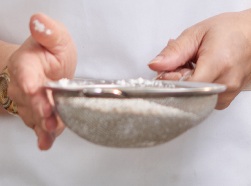
In today's fast-paced world, it can be challenging to manage household responsibilities while juggling work and personal commitments. One critical aspect that often gets overlooked is meal preparation. If you've decided to pass on your cooking style to your maid, you're not alone. Many people struggle with the time constraints associated with teaching someone how to cook their favorite dishes. While direct personal instruction may not be viable, there are effective alternatives to ensure your maid learns to cook in your style. This article will provide practical solutions that encompass technology and formal training methods to facilitate the learning process.
1. Leveraging Digital Resources
One of the most accessible ways to impart your cooking knowledge is through digital resources. With the plethora of cooking channels and tutorial videos available online, your maid can learn much at her own pace.
Recommendations on How to Use YouTube Effectively:
- Curate a List of Recipes: Select your favorite recipes or dishes that best represent your cooking style. Compile these into a manageable list.
- Create a Dedicated Playlist: Use YouTube's playlist feature to house these videos. This ensures that your maid always has the information organized and easily accessible.
- Encourage Notes: Ask her to take notes as she watches each video, which can help reinforce learning and clarify any doubts later.
- Scheduled Learning Time: Designate specific times during the week where she can focus solely on watching the videos and trying out the recipes.
This approach not only helps in time management but also empowers your maid to learn at her convenience.
2. Consider Professional Cooking Classes
If you believe that your maid would benefit from hands-on experience and direct interaction with instructors, enrolling her in professional cooking classes might be the best option. Here's how to go about it:
Steps to Choose the Right Cooking Class:
- Research Local Options: Look for culinary schools or community centers that offer cooking classes. Make sure they have a good reputation.
- Evaluate Course Content: Ensure the courses align with your preferred cooking style. Look for classes that teach relevant techniques and cuisines.
- Check Class Size: Small class sizes allow for more personal attention and interaction with the instructor.
- Set a Budget: Understand the cost so you can plan accordingly. Cooking classes can vary significantly in price.
Professional training will provide your maid with an opportunity to learn varied techniques and enhance her culinary skills, which may align with your cooking style.
3. Utilize Cookbooks and Written Guides
In addition to digital resources and cooking classes, providing written material can be invaluable. Cookbooks can serve as excellent references and educational tools.
Advantages of Using Cookbooks:
- Easy Reference: A well-structured cookbook allows for quick reference while cooking, enabling her to look up ingredients and cooking methods easily.
- Structured Learning: Cookbooks often structure recipes in a step-by-step format, which can be beneficial for someone who is learning.
- Culinary Techniques: Many cookbooks provide foundational cooking techniques that can help her understand the 'why' behind certain methods.
Consider creating a personalized cookbook by compiling your favorite recipes alongside any notes or tips you've written down. This can serve as both a practical guide and a thoughtful personal touch.
4. Offer Remote Support and Feedback
As your maid begins to explore your cooking style, it's essential to maintain an open line of communication for support and feedback.
Ways to Provide Remote Guidance:
- Schedule Regular Check-ins: Set up a weekly time to touch base about her cooking adventures. This can motivate her and provide an opportunity for feedback.
- Use Messaging Apps for Quick Questions: If she has immediate questions while cooking, encourage her to text or message you for quick guidance.
- Create a Feedback Loop: Ask her to keep you updated on how each dish turns out. You can provide constructive feedback based on her experiences.
By fostering an environment of open communication, you can guide her learning journey even in the absence of direct, hands-on instruction.
Conclusion
Teaching your cooking style to your maid doesn't have to be a daunting task, even when time is limited. By leveraging digital resources, enrolling her in professional cooking classes, utilizing written guides, and maintaining open lines of communication, you can ensure an effective learning experience. At OKAYLAH INDIAN MAID AEGNCY, Embrace the flexibility these methods offer, and you will empower her not only to cook in your style but also to acquire a valuable skill set that will benefit her in countless ways. After all, cooking is not just about preparing meals; it's about sharing love and creativity through food.
At indian maid agency we do scren each biodata and does background verification.
Misunderstandings with Housemaid
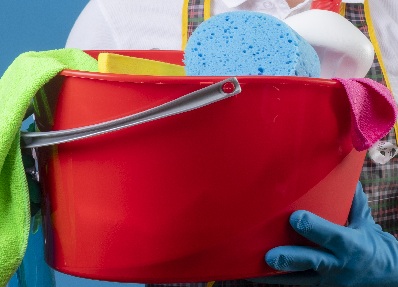
In our increasingly busy lives, many of us rely on household staff to help manage and maintain our homes. While this support is invaluable, communication challenges can arise, especially when staff members exhibit limited verbal interaction. Such scenarios can lead to misunderstandings that not only disrupt daily routines but also create unnecessary frustrations. A personal experience with my maid, who typically speaks very little, illustrates how lack of communication can lead to confusion and additional work for both parties involved.
The Importance of Clear Communication
Effective communication is the foundation of any successful working relationship, particularly in a domestic setting. When household staff and their employers, like myself, fail to communicate clearly, it can lead to situations like the one I experienced:
1. Initial Instructions: I was asked to purchase milk, a straightforward task that I assumed was all that needed to be done.
2. Return and Surprise: After returning home with the milk, I learned there was a miscommunication. My maid claimed she had also instructed me to buy fruits. This unexpected twist not only caught me off guard but also required another trip to the store.
The ripple effect of this experience highlights the critical need for clarity in everyday communication.
Barriers to Effective Communication
Understanding the reasons behind limited communication can help employers reevaluate their approach. Some common barriers that might affect communication with household staff include:
1. Language Proficiency: Depending on the background of the staff member, language barriers might impede their ability to convey necessary information or instructions.
2. Cultural Differences: Different cultural norms regarding communication styles may lead to misunderstandings in expressing needs or expectations.
3. Personality Traits: Some individuals are naturally more reserved and may struggle to voice their requests or express dissatisfaction, leading to vague or incomplete instructions.
Recognizing these barriers is the first step in developing effective strategies to enhance communication and mitigate potential misunderstandings.
Strategies for Improving Communication
To avoid situations of confusion and improve the overall working relationship with household staff like my maid, consider implementing the following strategies:
1. Establish a Routine of Check-Ins: Regularly scheduled discussions about daily tasks can help clarify expectations and reduce the likelihood of oversights.
2. Use Visual Aids: Consider creating a chore chart or a shopping list that can be updated as needed; this will serve as a visual guide that both parties can reference.
3. Encourage Feedback: Foster an open environment where staff feels comfortable voicing their needs or asking for clarification, which can help reduce misunderstandings.
4. Practice Active Listening: When instructions are given, take the time to confirm that both parties are aligned on the task. For instance, after receiving instructions, repeating them back can help ensure that nothing is missed.
5. Set Boundaries for Ask-List: When tasks are assigned, set a guideline for the number of items; for instance, defining a specific limit on how many additional items can be added to a request can prevent surprises.
Conclusion
Miscommunication can occur in any relationship, but its impact can be particularly pronounced in the context of household staff dynamics. A personal experience with my maid illuminatingly showcased how limited communication could lead to unnecessary tasks and confusion. At OKAYLAH INDIAN MAID AGENCY By recognizing the factors that contribute to misunderstandings and implementing targeted strategies to foster better communication, both employers and household staff can benefit from enhanced clarity, streamlined operations, and a more positive working relationship. Effective cooperation, grounded in mutual understanding, ultimately leads to a more harmonious home life. Each party must acknowledge the importance of open dialogue, ensuring that all needs are addressed before unexpected trips to the store occur.
At indian maid agency we do scren each biodata and does background verification.
Expecting Newborn - Nanny Vs Maid

Welcoming a newborn into your family is one of life's most joyous experiences, but it also comes with significant responsibilities. As working parents, you might find it increasingly challenging to juggle your careers and the demands of a newborn. Hiring help can ease this transition, but the decision between hiring a maid or a nanny can be complicated. This article aims to explore both options, providing insights to guide you in choosing the best caregiver for your newborn.
Who is Best for Newborn Kids Care?
Understanding the Roles: Maid vs. Nanny
Before diving into the specific benefits of each option, it's essential to clarify the differences between a maid and a nanny, as understanding these roles will help you make an informed decision.
1. Definition and Responsibilities
- Maid: A maid primarily focuses on household chores. This may include cleaning, laundry, meal preparation, and sometimes general errand running. While some maids might have experience with children, it is not their primary role, and they may not have specialized knowledge in newborn care.
- Nanny: A nanny is primarily responsible for child care. This role typically includes feeding, diaper changing, bathing, and overall supervision of the infant. Additionally, nannies often engage in developmental activities tailored to the child's age.
2. Qualifications and Experience
When choosing between a maid and a nanny, consider the qualifications and experience required for your specific needs:
- Maid: Generally may not have specific training related to child care. While they can assist with household tasks during the time you are home, they might not be equipped to manage a baby's needs effectively.
- Nanny: Often trained or experienced in childcare practices, which can include pediatric first aid and infant development. Many nannies have a background in child education, making them better suited for newborn care.
Factors to Consider When Hiring Help
When deciding whether a maid or a nanny is best for you, consider the following critical factors:
1. Availability and Flexibility
- Maid: Typically works on a part-time basis. If you only require help with household chores, a maid may be sufficient and more affordable. However, their schedule may not align with your baby's routine.
- Nanny: Usually available for full-time care and can adapt to the needs of your infant. They can create a stable environment and maintain routines that are beneficial for your child's development.
2. Long-term Needs
- If you anticipate that you will need full-time childcare as both parents return to work, hiring a nanny might be the best solution. A nanny can provide continuity of care and develop a bond with your child, which is advantageous for the child's emotional development.
3. Cost Implications
- Maid: Generally less expensive, as their services can be limited to cleaning and household management. This works well for families who can manage childcare temporarily.
- Nanny: Typically the more expensive option due to their specialized skill set and comprehensive childcare responsibilities. However, keep in mind that investing in a qualified nanny can yield long-term benefits for your child's development.
Making the Best Choice for Your Family
Ultimately, the best choice between a maid and a nanny depends on your individual circumstances, including both immediate and future childcare needs. Here are three steps to finalize your decision:
1. Evaluate Your Needs: Assess your immediate assistance requirements. Do you need someone primarily for household chores, or do you need comprehensive child care, especially while you are at work?
2. Set a Budget: Determine how much you can afford to pay for help. While cost shouldn't be the sole factor, it will help structure your search.
3. Conduct Interviews and Background Checks: Once you identify potential candidates, conduct thorough interviews to assess their experience and approach to newborn care. Check references and perform background checks to ensure safety and reliability.
Conclusion
In conclusion, hiring help for newborn care is an important decision that requires thoughtful consideration. Understanding the distinct roles of a maid and a nanny, as well as evaluating your specific needs and long-term plans, will guide you in making the best choice for your family.
At OKAYLAH INDIAN MAID AGENCY, As you prepare for the arrival of your little one, remember that every family's situation is unique. Taking the time to choose wisely and ensuring that the person you hire aligns with your family's values and care philosophy will lead to a supportive environment for both you and your newborn. After all, a good caregiver can make a world of difference in navigating parenthood's challenges.
At indian maid agency we do scren each biodata and does background verification.
When your Maid buys unnecessary Groceries
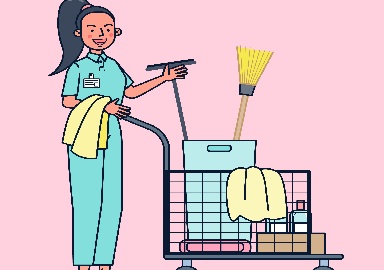
Trust is an essential component in any working relationship, especially when it comes to hiring household help. Most homeowners may find themselves in situations where the limits of that trust are tested, particularly in matters concerning finances and purchasing decisions. In my recent experience, I provided my maid with my credit card to purchase essential groceries such as vegetables and milk. However, to my dismay, I discovered that she had opted for extravagant items that were both unnecessary and expensive, despite explicit instructions to focus solely on needed basic supplies. This situation raises several important considerations regarding household management, communication, and trust.
1. Establishing Clear Guidelines
To avoid misunderstandings, it's crucial to lay down clear guidelines for your maid regarding what items to purchase. Here are some key aspects to cover:
1. Specific Lists: Provide a detailed list of items that you require on a regular basis, specifying quantities and preferences (e.g., organic or local produce).
2. Budgeting: Set a clear budget for grocery spending each week. This not only helps in managing finances but also creates accountability.
3. Shopping Protocol: Clearly communicate any policies regarding purchasing higher-priced items. Explain the rationale behind keeping within budgetary limits.
By outlining these guidelines, you can mitigate the likelihood of unnecessary purchases and ensure that the focus remains on essentials.
2. Importance of Open Communication
Open communication is vital in any working relationship. Misunderstandings can often stem from a lack of dialogue. Here are some effective communication strategies:
1. Regular Check-Ins: Schedule periodic conversations with your maid to discuss the grocery shopping process and any challenges she might be facing.
2. Feedback Mechanism: Create an environment where she feels comfortable discussing her purchases. Feedback both ways can clarify expectations.
3. Encouraging Questions: Make it clear that she should ask questions if she is uncertain about any shopping decisions. This can prevent unnecessary and costly expenditure.
By fostering a communication-rich environment, you enhance trust and clarify expectations regarding grocery shopping.
3. Educating About Value and Choices
Sometimes, individuals may lack the knowledge or awareness necessary to make sound purchasing decisions. It can be beneficial to educate your maid about value choices. Here are some ways to facilitate this:
1. Price Comparisons: Encourage her to compare prices among brands and stores. Understanding what constitutes a reasonable price for certain items can prevent overspending.
2. Nutritional Awareness: Discuss the importance of healthy eating and how certain unnecessary items may contradict the goal of maintaining a balanced diet.
3. Cost-Benefit Discussions: Engage in discussions about the value of choosing generic brands over premium products when appropriate. This can highlight the importance of making wise purchasing choices.
By educating your maid about value and making informed choices, you can potentially reduce unnecessary grocery spending.
4. Monitoring and Accountability
To address issues related to unnecessary grocery purchases, you might consider implementing a monitoring and accountability system. Here are some strategies:
1. Review Statements: Regularly review your credit card statements together to discuss the purchases made. This opens a dialogue for understanding the rationale behind each item.
2. Purchasing Log: Keep a log of the groceries purchased, along with prices. This can help in identifying any patterns of overspending or unnecessary purchases.
3. Incentivizing Good Practices: Consider creating an incentive program, rewarding her for staying within budget or making wise grocery choices.
By promoting accountability, you encourage responsible spending and enhance the effectiveness of the grocery shopping process.
Conclusion: Building a Trustworthy Relationship
In conclusion, managing a maid's grocery purchases can be a daunting task. However, establishing clear guidelines, fostering open communication, educating about values, and implementing monitoring strategies can help navigate this challenge. The ultimate goal is to build a working relationship rooted in trust and mutual understanding. Despite the challenges that may arise, at OKAYLAH INDIAN MAID AGENCY, addressing the situation directly but professionally can lead to a more harmonious household environment. After all, a well-coordinated approach not only enhances household management but also cultivates a more reliable and effective partnership with your maid.
At indian maid agency we do scren each biodata and does background verification.
My maid is not mature and cannot take care my kids

In today's fast-paced world, many families rely on domestic help to manage household chores and childcare. While hiring a maid can be an invaluable asset, it can also pose unique challenges, particularly if the individual lacks the maturity and experience required to care for children effectively. A mature maid does not just help with cleaning tasks; she plays a critical role in creating a nurturing environment for children. When a maid falls short in these areas, it can lead to feelings of frustration and concern for parents. This article explores the challenges of having a maid who is not mature enough to take care of children safely and responsibly.
Assessing Maturity in Childcare
1. The Importance of Maturity
Maturity is crucial when it comes to childcare. A mature caregiver understands how to respond appropriately to various situations and can make sound decisions when unforeseen circumstances arise. Key attributes of a mature maid include:
- Empathy: Understanding children's needs and emotions.
- Responsibility: Taking ownership of tasks and ensuring children's safety.
- Judgment: Making informed choices during emergencies or when conflicts arise.
When a maid lacks these qualities, it can become evident in her interactions with children, leading to anxiety for parents.
2. Consequences of Immaturity
If your maid exhibits immaturity, you may encounter several challenges that can impact both your children and your household. Some potential issues include:
- Inconsistent Discipline: Without a mature understanding of child development, a maid may struggle with implementing effective discipline strategies.
- Lack of Engagement: Immature caregivers may not know how to encourage constructive play or educational activities, leading to boredom or behavioral issues in children.
- Dangerous Situations: An immature maid may not recognize or respond appropriately to potential dangers, putting children at risk.
These challenges may affect not only the day-to-day life of the family but also the overall development and well-being of the children.
Effective Communication Strategies
3. Setting Clear Expectations
To mitigate issues related to immaturity, it is essential to communicate clear expectations with your maid. This can be achieved through the following steps:
1. Discuss Childcare Philosophy: Share your views on childcare, discipline, and activities that you consider appropriate for your children.
2. Establish Guidelines: Create a checklist of tasks and responsibilities your maid is expected to undertake while caring for your children.
3. Provide Constructive Feedback: Encourage an open line of communication where feedback can be shared regularly. This not only aids in the maid's growth but also reinforces the partnership.
4. Training and Development
Investing in the training of your maid can improve her maturity and ability to care for your children. Consider the following options:
- Workshops: Enroll her in childcare or first-aid workshops to build her confidence and skills.
- Mentorship: Pair her with a more experienced nanny or caregiver for guidance and support.
- Regular Reviews: Schedule periodic evaluations to assess her development and provide additional resources as needed.
When to Reevaluate Your Options
5. Recognizing the Signs
It is vital to regularly evaluate your maid's suitability for the role. If you consistently notice red flags such as:
- Repeated neglect of basic childcare duties.
- Inability to manage simple emergencies (e.g., a child falling down).
- Frequent misunderstandings or miscommunications regarding childcare tasks.
It may be time to reconsider her position. Replacing a maid can be a difficult decision, but prioritizing your children's safety and well-being is paramount.
Conclusion
Having a maid who lacks maturity and the capacity for responsible childcare can lead to significant stress and concern for parents. At OKAYLAH INDIAN MAID AGENCY, It is essential to assess the characteristics and capabilities of domestic helpers critically to ensure that they align with the family's needs. By setting clear expectations, providing adequate training, and being open to change, parents can create a safer, more nurturing environment for their children. Ultimately, the goal is to foster a harmonious and supportive atmosphere where both parents and children can thrive. As difficult as it may be, recognizing when a domestic helper might be more of a liability than an asset is an important part of effective parenting and household management.
At indian maid agency we do scren each biodata and does background verification.
I cannot find my Maid at Home: What Should I Do?

Returning home after a long day at the office should be a comforting experience. However, the moment you step through the door and realize that your maid is missing can trigger a wave of concern and confusion. If you find yourself in a situation where you cannot locate your maid after waiting for more than an hour, it is crucial to approach the situation with a calm and organized mindset. This article aims to guide you through the necessary steps you can take under such circumstances.
1. Assess the Situation
The first step is to assess the situation thoroughly to understand the possible reasons behind your maid's absence. Here are some key points to consider:
- Check the Time: Confirm that you have waited a sufficient amount of time beyond her expected arrival. Sometimes, delays can occur due to unforeseen circumstances such as traffic or family emergencies.
- Review Communication: Think back to your last conversation with her. Did she mention anything unusual? Consider whether she had any scheduled appointments that might have affected her availability.
- Look for Signs: Inspect your home to see if there are any signs of her ongoing work. For instance, are there cleaning supplies out? This could indicate she plans to return shortly.
2. Reach Out through Communication Channels
After assessing the situation, the next step is communication. Here's what to do: - Call or Text: Try reaching out to her directly via a phone call or text message. A simple message asking if she is okay can provide immediate insight into her situation. - Contact the Agency: Since you mentioned trying to contact her agency already, ensure you provide them with any new information you may have gathered. Agency representatives might have alternative contacts or updates that could be helpful. - Social Media: If applicable, consider reaching out through social media platforms where she may have an account. Many people now use platforms like WhatsApp or Facebook to communicate.
3. Consider Possible Scenarios
While it is natural to jump to concerning conclusions, consider various scenarios in which your maid might be delayed:
- Personal Emergencies: She might have encountered an urgent personal matter, such as illness or family issues.
- Unexpected Events: Sometimes, unexpected road closures or accidents can cause significant delays.
- Miscommunication: Ensure that miscommunications regarding timings or days off have not occurred.
Understanding these scenarios can help alleviate panic and prepare you for potential solutions.
4. Plan Your Next Steps
If you still cannot reach her after a reasonable amount of time, it's time to consider your next steps:
- Plan for Assistance: If her absence results in unfinished household tasks that need immediate attention, think about alternative arrangements. You may inquire with your agency about sending someone else or seek assistance from nearby family or friends.
- Develop a Backup Plan: For future occurrences, consider establishing a backup plan with the agency or developing a list of alternate service providers who can step in if your maid is unavailable.
5. Document the Incident
Regardless of the outcome, documenting the incident will be beneficial:
- Keep Records: Note the date and time of her absence, communication attempts, and any information you've received from the agency.
- Continuous Review: After the situation is resolved, reflect on the incident to ensure that you have proper protocols in place moving forward. This can include updating emergency contact details or establishing clear communication methods.
Conclusion
Feeling anxious when you cannot find your maid after returning home is completely understandable; it's essential to navigate the situation with a methodical approach. By assessing the circumstances, maintaining open lines of communication, considering possible reasons for her absence, and planning your next steps, you can manage the situation effectively.
With the right strategies in place, you can ensure that you deal with unexpected incidents smoothly while maintaining a sense of security and order in your home. Remember, maintaining open communication and developing contingency plans can significantly ease future concerns, making home management a more stress-free process.
At indian maid agency we do scren each biodata and does background verification.
Maid is keep repeating mistakes and do not keep notes

Hiring domestic help can significantly ease the burden of household tasks. However, when performance issues arise, such as repeated mistakes and perceived laziness, it can lead to frustration for both the employer and employee. This article explores the common challenges faced when a maid is underperforming and offers constructive strategies for addressing these issues professionally. By focusing on effective communication and management, you can foster a better working relationship and improve the overall efficiency of household operations.
When faced with a maid who consistently makes mistakes, it is essential to identify the root causes of these issues. Here are several common reasons for underperformance:
1. Communication Gaps: Often, the instructions provided may not be clear or detailed enough. It is crucial to articulate your expectations precisely.
2. Lack of Proper Training: The maid may not have adequate training in cleaning techniques or household tasks, leading to repeated errors.
3. Overwhelming Workload: If your maid is tasked with too many responsibilities at once, the quality of her work may decline due to stress or inability to manage time effectively.
4. Complacency: After being employed for a while, a maid might become complacent, leading to reduced effort and care in her work.
5. Personal Issues: External factors in a maid's life could distract her from her duties, impacting her performance.
Strategies for Improvement
Instead of resigning to frustration, consider implementing these strategies to help improve your maid's performance:
1. Clear Communication
- Set Expectations: Provide detailed instructions for each task, including cleaning methods, products to use, and areas to focus on.
- Use Visual Aids: Create checklists or diagrams to clarify cleaning tasks, which can serve as a reference for her to follow.
2. Training and Development
- Offer Training Sessions: Spend some time training her on the specific cleaning methods you prefer. This could include showing her the right way to handle kitchen appliances, how to scrub surfaces effectively, or the correct procedure for laundry.
- Encourage Notes: Encourage her to keep a notebook for jotting down instructions and tips you share. This will help her remember tasks and reduce mistakes.
3. Monitor Workload
- Assess Workload: Take a moment to evaluate whether her workload is manageable. If she is responsible for both cleaning and any cooking or shopping, consider reassigning tasks to balance her time better.
- Task Rotation: If you are taking over cooking, you could rotate cleaning duties, allowing her to focus on the areas where she excels while developing her skills in others over time.
4. Provide Constructive Feedback
- Regular Check-ins: Schedule daily or weekly discussions to review her tasks and address any mistakes. This open communication will encourage her to be more accountable.
- Positive Reinforcement: Encourage and praise her when she performs well to build her confidence and motivation.
5. Set Boundaries and Consequences
- Outline Protocols: Clearly define the consequences of repeated mistakes. It's crucial to remain professional and focus on solutions rather than personal grievances.
- Evaluate Her Performance: If improvements are not noticed after providing the necessary support, it may be time to reconsider her role.
Conclusion
Navigating the complexities of employing a maid who is perceived as lazy and error-prone requires a balance of patience, communication, and structured management. By implementing clear communication strategies, offering training, monitoring workloads, providing feedback, and defining consequences, you can effectively address performance issues. Remember, the goal is not just to solve problems but to create a productive environment where both you and your maid can thrive. At okaylah indian maid agency, Facing challenges together can lead to improved job satisfaction for her and a more harmonious home life for you. Embrace the opportunity to transform your working relationship into a cooperative partnership for better results.
At indian maid agency we do scren each biodata and does background verification.
Maid Turned Out Pregnant During 6-Monthly Checkup

The decision to employ a maid is often driven by the need for assistance with household chores and responsibilities. A trusting relationship is typically established between employer and employee, which can lead to various assumptions regarding boundaries and personal lives. However, certain situations can complicate these dynamics, as evidenced by the troubling news that emerges during a routine health check. Recently, a situation unfolded where a maid was found to be pregnant during her six-monthly medical exam, leading to significant upset for the employer. This article will explore the implications of such situations, the importance of communication, and the need for clear policies regarding domestic employees.
Understanding the Emotional Impact
The discovery that a maid is pregnant can bring about a variety of emotional responses, particularly for the employer. Here are some common feelings that may arise:
1. Upset and Disappointment: It is natural to feel unsettled upon hearing such news, especially if the maid had been implicitly trusted with her personal life.
2. Concern for the Maid's Well-being: Employers may feel worried about the implications of a pregnancy on the maid's health, both physical and psychological.
3. Questions of Trust: Employers may question the level of trust they placed in their domestic worker after such a revelation.
Recognizing these emotions is the first step in processing them. It's crucial to approach the situation with empathy while also addressing any practical implications involved.
Factors Contributing to the Situation
There are several factors to consider that may have led to this unexpected outcome:
1. Cultural Differences: The maid might come from a background where different societal norms regarding relationships and childbirth exist.
2. Social Isolation: The maid mentioned having no acquaintances in Singapore. This isolation may have affected her social choices and contributed to her current situation.
3. Lack of Communication: Employers and maids often have limited discussions about personal lives. Being open about boundaries and expectations can mitigate misunderstandings.
Understanding these factors allows employers to consider the broader context and not simply react based on emotional responses.
Navigating the Aftermath
Once the initial shock wears off, it is essential to approach the situation professionally. Here are steps an employer can take:
1. Open Dialogue: Have a private conversation with the maid to discuss her feelings and the implications of her pregnancy for both her and the household.
2. Review Employment Contracts: Check the employment contract or agreement regarding health matters and potential family leave. Familiarity with this information helps inform future decisions.
3. Explore Options: Depending on the situation, discuss possible solutions, including time off, assistance with medical care, or potential adjustments to her duties during her pregnancy.
4. Consult Legal and HR Guidance: Seek professional advice to ensure compliance with labor laws and to better understand your rights and obligations as an employer in such cases.
5. Consider Ongoing Support: If you choose to keep the maid employed through her pregnancy, consider offering support such as health resources or flexible working conditions.
The Importance of Clear Boundaries and Communication
The situation draws attention to the need for clear communication between employers and domestic workers. Establishing expectations early on sets the tone for the employer-employee relationship. Here are some guidelines:
1. Discuss Personal Boundaries: Have an open dialogue about personal lives, feelings, and boundaries.
2. Regular Check-ins: Create a routine for discussing not just work-related topics but also emotional and personal well-being.
3. Encourage Social Interactions: Help the maid meet new people in Singapore, which could lead to a healthier social life and potentially mitigating issues of isolation.
Conclusion
The unexpected news of a maid's pregnancy during a routine health check can be unsettling for an employer, stirring a mix of emotions and requiring careful navigation through both the personal and professional implications of the situation. At Okaylah Indian Maid Agency Understanding the context, engaging in open dialogue, and implementing proactive measures can facilitate a more positive outcome. Ultimately, maintaining clear boundaries and open lines of communication fosters trust and strengthens the employer-employee relationship. As you process your feelings about this situation, remember that a supportive approach could have lasting benefits for both you and your maid.
At indian maid agency we do scren each biodata and does background verification.
Maid is having so many friends in my condo

In the ever-evolving landscape of domestic help, the dynamics between employers and household assistants can be intricate. This article focuses on a specific scenario involving a maid with a wide circle of friends in a condominium setting. While social interactions can be beneficial in many contexts, they can also interfere with household responsibilities, as experienced by one homeowner whose helper frequently excuses herself to meet friends. The implications of such social engagements on housework productivity are worth exploring.
The Role of Domestic Maid
Before delving into the issues at hand, it is crucial to understand the primary responsibilities of a domestic helper. Typically, a maid's duties may include:
1. Cleaning and Maintenance: Ensuring the living environment is clean and organized.
2. Cooking: Preparing meals for the household.
3. Laundry: Washing, ironing, and organizing clothing.
4. Errand Running: Managing grocery shopping and other essential errands.
5. Childcare: Assisting with the daily care and supervision of children, if applicable.
Given these expectations, it becomes apparent that any distractions can significantly impact the overall efficiency and effectiveness of the helper's work.
The Social Landscape of Condominiums
Condominiums often foster a sense of community among residents, and socializing can take various forms, including friendships among helpers and residents. However, while maintaining a vibrant social life can enhance well-being, an overemphasis on such interactions may lead to unresolved issues, particularly concerning household chores. For example:
1. Impact on Job Effectiveness: A helper focused more on social connections might neglect her responsibilities, leading to a buildup of chores.
2. Varied Priorities: If the maid prioritizes socializing over her work duties, critical tasks such as cleaning, cooking, and laundry might be delayed or done inadequately.
3. Communication Breakdown: Continuous absences can lead to misunderstandings between the employer and the helper regarding expectations and timelines for household tasks.
Balancing Social Life and Professional Duty
To address the challenges posed by an overly engaged social life, it is vital to establish a balance between work and leisure. Here are several strategies that can facilitate this balance:
1. Set Clear Expectations: It is essential for the employer to communicate their expectations clearly. This includes specific details about which tasks need to be prioritized and how much time should be dedicated to them before indulging in social activities.
2. Designated Social Time: The employer might consider allowing specific times for the helper to socialize. For example, weekends or specific days can be set aside for social activities, ensuring that all household chores are completed beforehand.
3. Regular Check-Ins: Scheduling regular meetings can help maintain an open line of communication. Discussing any issues that arise, as well as addressing workload concerns, ensures that both the employer and the helper remain aligned.
4. Creating a Work Schedule: Establishing a clear, structured work schedule can foster productivity. By mapping out daily tasks, the maid can efficiently allocate her time while also planning her social engagements.
5. Encouraging a Healthy Work-Life Balance: Recognizing the importance of social interactions is key. Employers can encourage their workers to maintain friendships, as satisfied employees are often more productive.
Conclusion
While having a maid with a vast network of friends can introduce unique dynamics into household management, it is essential to navigate these relationships carefully. Striking a balance between social life and work responsibilities can ensure that household tasks are conducted effectively without diminishing the quality of social connections. At okaylah indian maid agency, Open communication, structured scheduling, and mutual respect are critical components in fostering a productive work environment that acknowledges the importance of social interactions. Ultimately, achieving harmony in domestic settings benefits not only the employer and the helper but also enriches the broader community within which they operate.
At indian maid agency we do scren each biodata and does background verification.
Maid taking decision in Meal Preparation
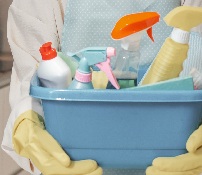
In today's busy world, the dynamics of household management have evolved significantly. With the increase in dual-income families and the hustle of everyday life, reliance on domestic help, particularly maids and cooks, has become a common practice. However, this change often leads to a question of boundaries, especially regarding decision-making in the kitchen. In this article, we explore the implications of a maid taking unilateral decisions about dinner menus and the importance of communication and planning in maintaining a harmonious household.
The Shift in Control Over Meal Decisions
One of the most notable changes in domestic help dynamics occurs when maids assume full control over meal planning without consulting their employers. This often arises from a combination of factors:
Trust and Experience: Over time, a maid may feel comfortable in her role, believing she can make effective decisions
When Your Maid Takes the Lead: Navigating Dinner Decisions
In many households, the dinner menu is often a collaborative effort between family members and household staff. However, when roles shift, as in the case where a maid begins to take the initiative in choosing meals without consulting family members, it can create a unique set of challenges. This article explores the implications of such a situation, particularly with a focus on communication, transparency, and reducing food wastage.
The Shift in Decision-Making
One of the first noticeable changes in this predicament is the transition from a shared decision-making process to one in which the maid independently determines the dinner menu. Here are a few reasons why this shift might occur:
Assumption of Responsibility: Your maid may feel empowered by her familiarity with your food preferences and weekly routines. This sense of responsibility can lead her to take charge without seeking input.
Time Management: By planning meals herself,# Maid is Taking Decisions on My Dinner Menu
In today's fast-paced world, managing household tasks can sometimes lead to unexpected dynamics, especially when it comes to meal preparation. Having a maid or a cook is intended to ease the burden on our shoulders, allowing for a more streamlined daily routine. However, this arrangement can sometimes lead to misunderstandings and difficulties if expectations aren't clearly communicated. This article delves into the implications of a maid making unilateral decisions about dinner menus and the impact it can have on a household's meal planning and food wastage.
Understanding the Autonomy of Household Staff
When we employ a maid or caregiver, there exists a delicate balance between delegation and control. It is essential to recognize that household staff may take initiative in menu planning as they become accustomed to the household's preferences over time. However, autonomy should be complemented by communication. Here are a few reasons behind this behavior# Maid is Taking Decisions Herself for My Dinner Menu
In many households, the dynamics of meal preparation often require a delicate balancing act between personal preferences, nutrition, and time management. Recently, I've encountered a situation in my own home where the maid has taken the liberty of deciding our dinner menu without consulting me. While her intentions might be good, this autonomy has led to crucial miscommunications regarding dietary preferences and meal planning. In this article, I will explore the implications of this situation, its impact on meal wastage, and strategies that can enhance collaboration in meal planning.
The Shift in Control
The Role of the Maid in Meal Preparation
Historically, maids and cooks have played a vital role in managing household meals, especially in families with busy schedules. Their responsibilities often include shopping for groceries, cooking, and sometimes meal planning. However, there are often unspoken expectations surrounding these roles# When the Maid Takes Over: The Importance of Communication in Dinner Planning
Understanding the Situation
When a maid autonomously decides what to cook for dinner, it can stem from a desire to simplify meal preparation. However, such independence can lead to issues when it intersects with the preferences and schedules of the family.
While it is important for domestic staff to feel empowered in their roles, they should also understand the household dynamics and preferences. An essential aspect of# The Growing Autonomy of Household Helpers: When Maids Decide Dinner Menus
In many households, the dynamics between employers and household staff can evolve significantly over time. One notable development is when domestic helpers, such as maids, begin to take the initiative in decision-making, including what to cook for dinner. This situation presents both opportunities and challenges for those who engage their services. In this article by Okaylah Indian Maid Agency, we will explore the implications of maids making dinner decisions independently, along with potential strategies to ensure smoother communication and minimize food wastage.
At indian maid agency we do scren each biodata and does background verification.
Maid not willing to take off day and want to earn more
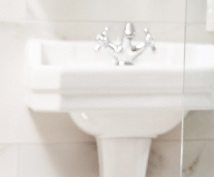
In today's fast-paced world, the importance of taking time off work is well recognized. Most professions encourage employees to take breaks for mental and physical well-being. However, in the case of domestic workers, particularly maids, the attitude toward taking time off can often be different. This article delves into the perspective of a maid who is reluctant to take her mandated days off, opting instead for the opportunity to earn more. Through this examination, we will explore the implications of her choice and the broader significance of work-life balance in domestic services.
Understanding the Reluctance to Take Time Off
In today's fast-paced world, the complexities of domestic work often go unnoticed. Workers in this field, often referred to as maids, housekeepers, or domestic helpers,play an essential role in managing household tasks, contributing significantly to the comfort and organization of our homes. However, the issue of work-life balance is a frequently overlooked aspect of their profession. Recently, I encountered an interesting situation with my maid, who expressed a strong desire to forgo her scheduled days off in favor of working extra hours. While her dedication is commendable, it's vital to explore the broader implications of such choices on her well-being and professional growth.
The Value of Time Off
1. Social Interaction
Taking time off is crucial for all workers, especially for domestic workers who often find themselves isolated within their employer's household. Days off allow them to The Unyielding Dedication of Domestic Workers: A Closer Look at Their Work Ethic
Household domestics, often referred to as maids, form an essential part of many households, providing valuable services that help individuals manage their busy lives. While taking days off can serve as a vital opportunity for workers to rejuvenate, socialize, and recharge, some maids exhibit an unwavering commitment to their jobs, opting to work even during their designated off days. This article explores the implications of this devotion, weighing the benefits of time off against the desire for increased earnings.
The Importance of Time Off for Domestic Workers
1. Health and Well-being:
- Taking time off is essential for mental and physical health. It allows workers to step back from daily chores, reducing stress and fatigue.
- Social interactions during leisure time can improve mental health, providing emotional support through friendships.
2. Work-Life Balance:
- Days off can# Understanding the Work-Life Balance of Domestic Maids: A Case Study
In today's fast-paced society, maintaining a work-life balance is crucial for overall well-being. For domestic workers, specifically maids, the importance of designated time off is often overlooked. While many might think that having more work opportunities translates to higher earnings, it can also lead to fatigue and stress. This article explores the dynamics of a maid's reluctance to take mandatory days off, considering the implications of her choice, the significance of rest, and the potential benefits of a balanced work schedule.
The Value of Days Off
1. Enhancing Social Connections
Taking time off provides domestic workers an opportunity to socialize and strengthen their networks. Here are some notable benefits:
- Social Interactions: Days off allow maids to nurture friendships, which is essential for emotional well-being.
- Support Systems: Engaging with peers can offer assistance and advice on shared# The Importance of Rest for Domestic Workers: A Case Study
In today's fast-paced world, the significance of a balanced work-life dynamic has become increasingly recognized across various professions. Domestic workers, often referred to as maids, play a crucial role in maintaining homes and supporting families. However, the importance of time off in their profession cannot be overstated. This article will discuss the essential role of rest for domestic workers, utilizing the unique perspective of a maid who is resistant to taking a mandated day off, as well as the implications of such a mindset.
The Role of Time Off in Well-Being
Time off is fundamental for mental and physical well-being. For domestic workers, having designated days off provides several key benefits:
1. Social Interaction: Days off allow workers to connect with friends and other domestic workers. Socializing is vital for psychological health, as it combats feelings of isolation and burnout that can arise from their# Understanding the Perspective of Dedicated Domestic Workers: A Case Study
In the modern domestic landscape, the role of a maid is multifaceted and often comes with its own set of challenges and expectations. While many people believe that a day off is essential for a maid's well-being, it is increasingly common to encounter domestic workers who prefer to forgo their rest days in pursuit of increased earnings. This article explores the motivations behind such choices, the implications of continuous work, and the benefits of taking mandatory days off for domestic workers.
The Contemporary Maid's Dilemma
The relationship between employers and domestic workers has evolved over the years. Today, many maids are driven by the need to optimize their earnings, which can lead to a reluctance to take mandatory days off. Here are some key reasons behind this trend:
1. Financial Necessity: Many domestic workers come from backgrounds where every additional paycheck makes a significant difference.# The Importance of Work-Life Balance for Domestic Workers: A Closer Look at Employment Practices
In the dynamic world of domestic work, the relationship between employers and employees can often lead to complex situations regarding work schedules, expectations, and employee well-being. One emerging trend is the dedication shown by some maids who, preferring to work more and earn additional income, resist taking their mandatory off days. This article will explore the rationale behind this decision, the benefits of designated time off, and the implications for both the employer and the employee.
The Desire to Work More: Understanding the Mindset
1. Financial Motivations
For many domestic workers, the primary motivation to work additional days is financial stability. The cost of living can be high, and doubling one's work hours often means a significant increase in monthly earnings.
- Higher Earnings: Maids who choose to work# Understanding the Perspectives of Domestic Workers: A Case of Dedication and Overwork
In the ever-evolving landscape of domestic work, the choices and attitudes of employees play a critical role in shaping their job satisfaction and overall well-being. One compelling case is that of a maid who, against the common practice of taking a day off, chooses to work extra hours for more financial gain. While working hard is often celebrated, this situation raises important questions regarding work-life balance, mental health, and financial necessities. In this article, we will explore the context of this choice, the implications of working without breaks, and potential ways to ensure that both household needs and worker welfare are respected.
The Importance of Days Off
Socialization and Well-Being
Days off are integral for workers in any field, it's a time for rest, rejuvenation, and socialization. For domestic workers, having a designated day to meet friends, pursue hobbies,# The Reluctance of Domestic Workers to Take Days Off: A Closer Look
1. Mental Well-Being: Regular breaks allow workers to recharge mentally. For maids, time away from their jobs can provide crucial moments to relax and destress. Engaging in social activities or simply enjoying solitude can significantly improve overall mental health.
2. Physical Health: Continuous work can lead to physical exhaustion and burnout. Days# The Importance of Time Off for Domestic Workers
In an era where the demands for domestic assistance have grown, the relationship between employers and domestic workers is increasingly significant. A unique case involves a maid who prefers to prioritize work over taking breaks. While her dedication is commendable, it raises important questions about the implications of constant work without rest. This article will explore the significance of taking time off for domestic workers, the potential consequences of skipping breaks, and the benefits of striking a balance between work and leisure.
Taking time off is critical for the well-being of domestic workers, as it offers several benefits:
- Social Engagement: Days off allow maids to reconnect with friends and family, fostering a sense of belonging within their community. Engaging in social activities can uplift their spirits and improve mental health.
- Rest and Recovery: Continuous work# The Importance of Work-Life Balance for Domestic Workers: A Case Study
In today's fast-paced world, the concept of work-life balance has gained considerable attention. While this notion often pertains to corporate professionals, it is also crucial for domestic workers, such as maids. A particularly interesting case arises when a maid, despite having designated off days, expresses a willingness to forsake those breaks in pursuit of more earnings. This article explores the implications of such a scenario, highlighting the significance of taking time off and maintaining a healthy work-life balance for domestic workers.
Understanding the Dynamics of Domestic Work
Domestic workers play essential roles in households, performing tasks that range from cleaning and cooking to managing household schedules. Their contributions often enable families to function smoothly. However, this demanding job can lead to fatigue, stress, and burnout, particularly when workers are eager Embracing Time Off: The Importance of Balance for Domestic Workers
In the realm of domestic work, the dynamics between employers and employees can often lead to nuanced discussions about time off, work-life balance, and the value of personal well-being. A specific case highlights this complexity: a maid who is reluctant to take a mandated day off yet expresses a desire to work additional days for financial gain. This raises important questions about the role of time off in the well-being of domestic workers and how it ultimately impacts their productivity and satisfaction.
Understanding the Need for Time Off
1. The Importance of Rest and Recuperation
A crucial aspect of any job, including domestic work, is the need for rest. Taking time off is not merely a luxury; it is essential for physical and mental well-being. For maids, having a designated day to recuperate allows them to recharge their energy and mental state, ensuring that they can perform their duties with diligence and# The Dilemma of Domestic Workers: Choosing Between Rest and Earning More
In the realm of domestic work, the dynamics between employers and employees often generate unique sets of challenges and opportunities. One such scenario revolves around the question of time off for maids. While taking a break can foster social connections and rejuvenation, not every domestic worker recognizes the value of time away from duties. Recently, I encountered an intriguing situation with my maid, who expressed a strong desire to work through her off days instead of taking a mandatory day off. This article examines the implications of such choices and presents a nuanced view of the importance of balance for domestic workers.
The Importance of Time Off
One of the primary reasons for instituting mandatory off days for domestic workers is the significant benefits attached to rest. Here are a few reasons why:
1. Social Connections: Time off allows workers to connect with friends and family, cultivating social# The Benefits of Rest Days for Domestic Workers: A Closer Look at Maid Work Preferences
In the evolving landscape of domestic work, it is common to encounter diverse perspectives on how workers manage their time and priorities. One prevalent discussion revolves around the necessity of rest days for maids, who play an essential role in ensuring smooth household operations. Interestingly, some maids express a strong preference for working continuously, as exemplified by my own maid, who has shown reluctance to take off days. While her motivation to earn more is commendable, it is vital to explore the broader implications of her choices, that is, the importance of taking breaks and the potential benefits of integrating rest into her work routine.
The Importance of Time Off for Domestic Workers
Taking time off is not just a matter of personal preference; it holds significant importance for domestic workers. Here are some key reasons why taking off days is beneficial:
The Dilemma of Domestic Help: Understanding the Maid's Perspective on Time Off
The relationship between employers and domestic helpers often comes with a myriad of expectations and negotiations. This is particularly evident when it comes to the subject of time off. While time away from their duties is typically seen as a well-deserved respite, some maids may show reluctance to take days off, prioritizing their workload over social engagements. My own maid exemplifies this mindset. Despite my insistence that one day off per week is mandatory, she prefers to work all her available days. This article explores the implications of such attitudes towards time off, the benefits of rest, and approaches to maintain a healthy work-life balance within domestic help roles.
At indian maid agency we do scren each biodata and does background verification.
Should I change Maid after the first Contract Completion?

Deciding whether to retain or change a maid after her first contract can be a challenging decision for many households. It involves weighing the benefits of continuity against the potential issues that may have arisen during the employment period. In this article, we will explore the factors to consider when making this important choice, including performance, experience, and factors influencing your decision.
Evaluating Performance and Behavior
The first step in this decision-making process is to assess your maid's performance throughout her contract term. Ask yourself the following questions:
1. Task Completion: Has your maid consistently completed her assigned tasks? Review her efficiency in handling household chores, meal preparation, childcare, and any other responsibilities outlined in her contract.
2. Attitude and Professionalism: While some level of familiarity might develop over time, it's important to maintain a respectful and professional relationship. If you've noticed that your maid has started to back-answer or show signs of disrespect, this can be a significant red flag.
3. Adaptability: How well has your maid adapted to your household's needs? Consider whether she has been open to feedback and willing to adjust her approach when you have specific requests.
It's crucial to document these observations, as they will help you formulate an informed decision regarding her future in your household.
Weighing the Pros and Cons of Change
Once you have evaluated the performance of your maid, consider the advantages and disadvantages of keeping her or seeking a change.
Pros of Keeping Your Current Maid:
1. Familiarity: Your maid is already accustomed to your household routines and preferences, potentially resulting in smoother operations.
2. Trust: Trust has likely been built over time, which can lead to greater peace of mind when leaving her in charge of the home.
3. Training Investment: If you've invested time and resources in training her specific to your needs, starting anew with someone else may mean repeating that training process.
Cons of Retaining Your Current Maid:
1. Communication Issues: If she has developed a pattern of back-answering, it could create a negative dynamic that disrupts harmony in the home.
2. Stagnation: A change in personnel can bring new energy and fresh perspectives to household management, potentially improving overall efficiency and quality.
3. Loyalty Concerns: If your maid feels too comfortable and begins to take liberties or become complacent, it could diminish her work ethic.
Exploring Alternatives
If you lean towards the idea of changing maids but are still hesitant, exploring alternatives might be beneficial. Consider the following:
1. Open Communication: Before making a decision, have an honest conversation with your maid about your concerns. It may be that she's not aware of how her behavior has affected you. Sometimes, a simple discussion can lead to positive changes.
2. Performance Review: Establish a performance review system to provide regular feedback, helping her understand your expectations and giving her a chance to improve.
3. Trial Extension: If you're unsure, consider extending her contract on a trial basis. This will allow you to observe if there is any change in her behavior and whether the relationship stabilizes over time.
Making a Decision
In conclusion, the decision to retain or change your maid after the first contract requires thoughtful consideration. Evaluate her performance and identify any patterns of behavior that may influence your choice. Weigh the benefits and drawbacks of continuity against the potential advantages of hiring someone new.
Ultimately, trust your instincts. If your relationship with your maid has taken a turn that disrupts the smooth operation of your home, it may be the right time for a change. Conversely, if she has proven her value and can address your concerns adequately, maintaining continuity may serve your household better in the long run. At Okaylah indian maid agency, Whatever decision you make, remember to communicate clearly and professionally, as it reflects the respect and standards within your home.
At indian maid agency we do scren each biodata and does background verification.
Understanding the Role of a Maid in Childcare?
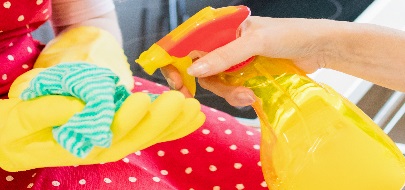
When hiring a maid to care for children, it is crucial to understand the multifaceted role they play. Their responsibilities extend beyond mere supervision; they significantly influence children's social, emotional, and cognitive development. Here are the key aspects of their role:
1. Supervision: Keeping children safe and ensuring they adhere to household rules.
2. Engagement: Providing stimulating activities that promote learning and play.
3. Routine Management: Maintaining schedules for meals, naps, and playtime.
4. Emotional Support: Being a friendly and nurturing presence when parents are away.
Engaging Children: Strategies for Success
An essential part of a maid's role in childcare is to engage kids proactively. Here are some strategies that can be employed:
1. Structured Activities
Creating a routine with structured activities helps children feel secure and engaged. Consider the following components:
- Educational Games: Introduce games that promote critical thinking and creativity, such as puzzles, board games, or science kits.
- Arts and Crafts: Use art supplies to encourage self-expression while developing fine motor skills. Activities like painting, drawing, or modeling with clay can captivate children's attention.
- Reading Time: Establish a daily reading session, promoting literacy skills and a love for books.
2. Outdoor Play
Physical activity is crucial for children's health and well-being. A maid can facilitate outdoor play by:
- Organizing Games: Engage children in games like tag, hide-and-seek, or structured sports which help develop teamwork and cooperation.
- Exploring Nature: Encourage children to explore their surroundings and learn about nature, enhancing their observational skills and appreciation for the environment.
3. Social Interaction
Fostering social skills is vital for children's development. Here are ways to promote social engagement:
- Playdates: Coordinate playdates with neighbors or friends, creating opportunities for interaction and teamwork.
- Group Activities: Involve children in group projects like gardening, where teamwork is encouraged and individual strengths are highlighted.
Training and Preparation for Maids
To ensure effective engagement, it's important that maids receive relevant training. Here are a few essential areas of focus:
1. Child Development Basics: Understanding different developmental stages can help maids tailor their approach to meet children's needs effectively.
2. Safety Protocols: Training on first aid and emergency response is crucial to ensure children's safety at all times.
3. Activity Planning: Equipping maids with the skills to plan and execute varied age-appropriate activities can enhance the overall quality of care.
Building a Transparent Communication Channel
For a successful partnership between parents and maids, establishing a transparent communication channel is vital. Here are a few suggestions:
- Regular Updates: Maids should provide daily or weekly updates on children's activities, behavior, and any incidents that may have occurred.
- Setting Expectations: Open discussions about parental expectations regarding childcare, discipline, and activities ensure that both parties are aligned.
- Feedback Mechanism: Implement a feedback mechanism, allowing parents to express concerns or suggestions which can lead to improved care.
Conclusion
In conclusion, maid engagement for kids' care is a multifaceted responsibility that requires careful consideration and active engagement to maximize children's growth and development. At okaylah maid agency, by employing structured activities, promoting outdoor play, and fostering social interaction, caregivers can create a nurturing environment. Additionally, proper training and open lines of communication between parents and maids are essential to facilitate a successful childcare partnership. Ultimately, investing time and effort in this process not only helps in raising happy and healthy children but also reassures working parents that their little ones are in capable hands. As the dynamics of family life continue to evolve, the role of caregivers will undoubtedly remain a cornerstone of effective childcare solutions.
At indian maid agency we do scren each biodata and does background verification.
How to train your Maid for your House?

Hiring a maid can be a transformative experience for a busy family, particularly when both parents are working. With the right training, your maid can become an integral part of your household, allowing you to focus more on your work while ensuring that domestic responsibilities are handled efficiently. If you've recently hired a maid and wish to train her to fit seamlessly into your routine, this article will guide you through the process.
Setting Clear Expectations
Define Roles and Responsibilities
The first step in training your maid is to clearly outline her roles and responsibilities. This clarity will set the foundation for a smooth working relationship. Take the time to discuss the following:
1. Daily Tasks: Identify the essential tasks that need to be done every day, such as cleaning, cooking, laundry, and grocery shopping.
2. Weekly Responsibilities: Determine additional chores that need attention on a weekly basis, like deep cleaning, organizing closets, or taking care of outdoor areas.
3. Special Instructions: Make a note of any household rules or preferences, such as the types of food you prefer, cleaning supplies you use, or specific ways you like tasks performed.
By clearly defining roles and responsibilities, you give your maid a framework within which she can operate effectively.
Establishing a Routine
Develop a Daily Schedule
Next, create a daily schedule that outlines what your maid should accomplish throughout the day. This will help her to prioritize tasks based on your family's routine. Here's how to establish a schedule:
1. Morning Routine: Define what needs to be done in the morning before you leave for work. This might include making breakfast, packing lunches, or organizing the living area.
2. Midday Tasks: Outline tasks that should be accomplished during the day, such as laundry or grocery shopping, while you are at work.
3. Evening Duties: Specify evening chores, like meal preparation, setting the table for dinner, and tidying up after meals.
4. End-of-Day Review: Make time to review tasks completed during the day to ensure everything is being done to your standards.
By sticking to a schedule, your maid will develop a routine that matches your family's needs.
Providing Training and Resources
Hands-On Training
Training requires a hands-on approach, especially in the first few weeks. You should be present to guide her through different tasks. Consider the following tips:
1. Demonstrate Procedures: Show her exactly how you want tasks to be performed. For example, demonstrate your method of cleaning the kitchen or the way you fold laundry.
2. Provide Visual Aids: Create checklists or visual guides for complex tasks. For example, a daily cleaning checklist can help her stay organized and ensure nothing gets overlooked.
3. Encourage Questions: Foster an environment where your maid feels comfortable asking questions. This will help her learn quicker and avoids misunderstandings.
Resource Allocation
In addition to personal training, provide her with the right tools and resources:
- Cleaning Supplies: Ensure she knows which supplies to use for different surfaces and tasks.
- Cooking Guidelines: Share recipes or cooking techniques that align with your family's dietary preferences.
- Organizational Tools: Utilize binders or folders to manage home schedules, grocery lists, and important contact numbers.
Encouragement and Feedback
Build a Positive Working Relationship
Creating a positive and motivational atmosphere is essential for effective training. Be sure to:
1. Regularly Offer Praise: Recognize and appreciate her hard work with positive feedback when tasks are completed well.
2. Provide Constructive Criticism: Gently point out areas for improvement. Avoid harsh criticisms; instead, focus on solutions and how to achieve better results.
3. Set Check-Ins: Have scheduled check-ins to assess her progress, discuss challenges, and make adjustments to tasks or routines as necessary.
By keeping the lines of communication open, you can ensure that your maid feels valued and motivated.
Conclusion
Training your maid to run your household effectively takes time, effort, and patience. By setting clear expectations, developing a structured routine, providing thorough training, and fostering a positive working relationship, you can help your maid become an essential part of your family. At Okaylah Indian Maid Agency, the goal is to create an environment where both the maid and your family feel satisfied. With a solid two months of training and guidance, your maid will be well-equipped to manage your home independently, leaving you to focus on your professional responsibilities.
At indian maid agency we do scren each biodata and does background verification.
Managing Weight Gain for Domestic Helper

Weight management is an important aspect of health that can significantly impact an individual's quality of life. When it comes to supporting domestic help, such as maids, the matter becomes particularly sensitive. If they begin to gain weight and experience related issues, like discomfort or pain, it raises concern while also posing a challenge for employers. This article will explore best practices for addressing weight gain issues among maids without infringing on their personal choices or feelings.
A Delicate Balance
Understanding the Situation
In many households, maids play an important role in maintaining day-to-day activities while families try to navigate their busy lives. However, it can be easy to overlook the health of these individuals, particularly when it comes to their diet and weight management. Here are some key points to understand the situation:
1. Dietary Control: While it may seem beneficial to restrict food intake to ensure health, it can create an uncomfortable power dynamic in the employer-employee relationship. A maid might perceive dietary limitations as a form of control or criticism of her lifestyle choices.
2. Consequences of Weight Gain: Excessive weight gain can lead to various health issues, including mobility problems. For instance, experiencing pain in the feet, as noted in this case, can hinder a maid's ability to perform her tasks effectively and lead to long-term health complications.
3. Cultural Context: In many cultures, food is often intertwined with social norms, traditions, and comfort. Therefore, addressing food intake can be misunderstood and can hurt feelings.
Approaching the Conversation
When discussing dietary habits and weight concerns, a tactful and thoughtful approach is essential. Here are some strategies:
1. Open Dialogue: Initiate a conversation in a comfortable environment. Express genuine concern for her well-being without focusing solely on her diet or weight.
2. Encouragement Over Criticism: Frame your concerns positively. Instead of suggesting that she eats less, you could engage her in discussions about healthy habits, emphasizing balance rather than restriction.
3. Promoting Healthy Alternatives: Suggest introducing healthier food options into the household. Offering to prepare meals together can be a fun and inclusive activity, promoting a sense of community while encouraging healthier food choices.
Encouraging Physical Activity
In addition to addressing diet, promoting physical activity is a constructive way to help manage weight. Here are ways to incorporate physical activity gently:
1. Daily Exercise: Encourage short walks or simple exercises during breaks. Creating a supportive atmosphere where she feels comfortable participating can lead to a gradual increase in physical activity.
2. Incorporate Movement into Daily Tasks: Encourage her to take the stairs instead of the elevator, or to engage more actively in housework, which can burn calories and improve health.
3. Suggest Group Activities: If you have a social circle that engages in group fitness activities, invite her to join in. This could foster a sense of belonging while encouraging healthier behaviors.
Monitor Progress Together
Creating a supportive environment in which both you and your maid can monitor health-related progress is beneficial. Here's how to do this effectively:
1. Regular Check-ins: Have regular discussions about how she feels physically. Ask about any discomfort or changes and show an interest in her overall well-being.
2. Share Resources: Provide her with resources such as articles or videos related to healthy eating and weight management without imposing.
3. Celebrate Small Wins: Recognize any positive changes, whether it's participating in a new activity or making healthier food choices. Celebrating these moments can motivate her to continue striving for better health.
Conclusion
Addressing weight gain and dietary habits among domestic help requires a sensitive and balanced approach. It is essential to foster an environment based on mutual respect, open communication, and shared concern for well-being. At okaylah indian maid agency , By focusing on promoting healthier choices rather than imposing restrictions, both the maid and the employer can work collaboratively towards achieving better health outcomes. After all, when we support one another in maintaining a healthy lifestyle, we create a more positive and productive workplace environment. With kindness and understanding, employers can play a pivotal role in their domestic staff's health journeys without compromising personal dignity and autonomy.
At indian maid agency we do scren each biodata and does background verification.
The Challenge of Household Management in making Grocery List

In today's busy world, maintaining an effective household can be a task that requires a lot of coordination and communication. One area where challenges often arise is grocery management, particularly when relying on assistants like maids to keep track of consumables. A scenario many find themselves grappling with is when the maid fails to create a timely grocery list, resulting in frustrating moments, such as discovering the lack of ingredients right before meal preparation. This article aims to explore the importance of organized grocery management, effective communication strategies, and practical solutions to resolve such issues.
Understanding the Importance of a Grocery List
A grocery list may seem like a simple concept, yet its absence can lead to a multitude of problems. Here are several reasons why a comprehensive grocery list is vital for any household:
1. Efficiency in Shopping: A well-prepared grocery list saves time during shopping trips. Instead of wandering aimlessly through the aisles, one can quickly locate the necessary items.
2. Cost Management: Strategizing groceries with a list can prevent impulse buys and thereby help in sticking to a budget.
3. Meal Planning: Creating a grocery list encourages meal planning, which can lead to healthier eating habits by ensuring that a variety of food items are available.
4. Minimizing Waste: Knowing what ingredients are in the pantry helps prioritize fresh items and reduces the chances of purchasing unnecessary duplicates.
Given the various advantages of using a grocery list, a lack of systematic planning can lead to unnecessary frustrations, especially when the household suddenly runs out of essential supplies.
Identifying the Communication Gap
Your experience with your maid highlights a significant communication gap. Understanding this gap is the first step toward resolving it effectively. Here are some factors that may contribute to this issue:
1. Lack of Clarity: It might be unclear what exactly you expect from your maid regarding grocery management.
2. Inconsistent Feedback: If feedback isn't regularly provided, the maid may not recognize the importance of this task.
3. Busy Schedules: Everyone has their own responsibilities, leading to the potential for forgetfulness or neglect of certain tasks like updating the grocery list.
Addressing this communication gap can lead to smoother functioning in household management.
Strategies for Effective Communication
To ensure that grocery management falls into place, you can implement several strategies to improve communication with your maid:
1. Set Clear Expectations: Sit down with your maid and explain the importance of creating a weekly grocery list. Clearly outline what you expect and determine a timeline for when the list should be ready.
2. Use Visual Aids: A kitchen whiteboard can serve as a simple and effective tool. Encourage your maid to update it as items run low. This visual cue can make it more apparent for both of you when to prepare for grocery shopping.
3. Establish a Routine: Suggest a specific day when the grocery list should be reviewed and updated, perhaps in preparation for the upcoming week. This routine can help reinforce the importance of grocery management.
4. Leverage Technology: Various applications can facilitate grocery management. If both you and your maid are tech-savvy, consider using a shared grocery list app that allows real-time updates. This method ensures accountability and transparency.
5. Incorporate Positive Reinforcement: When your maid does remember to update the grocery list or notify you about low stock, acknowledge her effort. Positive reinforcement can motivate her to maintain this behavior consistently.
Practical Solutions for Immediate Needs
While working on improving communication, there are practical solutions for managing situations when you find yourself without essential ingredients:
1. Stock a Pantry: Keep a well-stocked pantry of non-perishable items that can substitute for fresh ingredients. This strategy will allow you to whip up meals even when fresh vegetables run low.
2. Have a Backup Plan: Keep simple recipes on hand that require minimal ingredients. This way, when you find out too late about missing items, you still have alternative options for meal preparation.
3. Regular Inventory Checks: Establish a routine to check your grocery supplies periodically. This will help in planning your meals better and reducing last-minute surprises.
Conclusion
Managing a household comes with its own set of challenges, particularly when it comes to grocery management. When dealing with a maid who has not yet embraced the practice of maintaining a grocery list, communication is key. At okaylah maid agency, by setting clear expectations, establishing routines, and utilizing practical tools, you can significantly enhance household efficiency. Remember, effective grocery management not only reduces stress but also fosters a smoother and more enjoyable cooking experience. As you work toward a more organized approach, take each step as a learning opportunity, and soon you'll find that frustrations can be minimized, paving the way for a harmonious home life.
At indian maid agency we do scren each biodata and does background verification.
What to Do When Your Maid Asks for a Loan During the Loan Period

Hiring a maid can certainly ease the burdens of household chores and responsibilities, but it can also come with its own set of challenges. One such challenge may arise when your maid, who is currently under a loan period, starts to ask for additional financial assistance. This situation can lead to concerns about her potential intention to leave early or her financial management skills. So, how should you handle this predicament? In this article, we will explore effective steps to take to navigate through this scenario.
Understanding the Loan Period
Before we delve into the solution, let's first clarify the concept of a loan period for household staff. A loan period generally refers to an agreement established between the maid and an employment agency, which covers the repayment of fees associated with her employment placement. This could include the fees paid to the agency for finding her a job, visa processing costs, or other related expenses.
During this period, it is crucial to maintain a professional relationship based on mutual respect, understanding, and clear communication. While most maids may have some financial obligations, it's important to address them in a manner that respects both parties' interests.
Steps to Take When Your Maid Asks for a Loan
If your maid has approached you for financial assistance while still under the loan period, consider the following steps:
1. Assess the Situation
- Listen Carefully: Give her a chance to explain her situation fully. Understanding her needs and reasons for the request can provide good insight into her financial health and whether this request is a recurring issue.
- Evaluate Your Finances: Determine whether you can afford to lend her the money without straining your own budget. Setting financial boundaries is necessary for maintaining professional relationships.
2. Establish Boundaries
- Communicate Clearly: If you are uncomfortable with lending her money, it is vital to communicate this clearly and professionally. You can explain that while you empathize with her situation, you are unable to assist her financially.
- Set Expectations: Reinforce the understanding that her employment is based on the agreement with the agency and that any financial obligations should ideally be met within that framework.
3. Seek Dialogue with the Agency
- Inform the Agency: If the situation escalates or continues, it's wise to report your maid's behavior to the employment agency. This will help the agency monitor the situation and offer necessary support to both you and the maid.
- Provide Feedback: Offer constructive feedback to the agency about her performance and the circumstances surrounding her loan request. This information can be valuable for the agency in assessing her situation.
4. Monitor the Relationship
- Regular Check-ins: Keep an open line of communication with your maid. Regular conversations about her experience and challenges can prevent misunderstanding and allow for timely interventions if problems arise.
- Document Conversations: Maintain a written record of your discussions related to her loan request and any agency communications. This documentation can be useful if the situation needs formal escalation.
5. Prepare for Various Outcomes
- Consider Replacement Options: If you feel that her request for financial help may lead to her leaving the job or if it begins to disrupt the household, start considering alternatives. Having a plan in place will help you act swiftly if needed.
- Plan for Transition: If the situation doesn't improve and you believe she may consider leaving, prepare for a smooth transition by identifying potential candidates from the agency or having backup arrangements in mind.
Conclusion
Navigating the complexities of having a maid who is currently under a loan period while also asking for financial assistance can be tricky. It's essential to maintain professionalism and clarity throughout this process. By assessing the situation, establishing boundaries, and communicating effectively with both your maid and the agency, you can manage the relationship more effectively.
Ultimately, it's crucial to keep the lines of communication open and to prioritize both parties' needs and agreements. With okaylah indian maid agency, you will not only protect your interests but also support your maid in finding a sustainable solution to her financial issues without compromising your own objectives.
At indian maid agency we do scren each biodata and does background verification.
Maid returning home late and Incomplete Cleaning

Hiring a maid to help manage household chores is a common practice for many families. It provides relief from the demanding task of maintaining a clean home while allowing families to focus on other priorities or responsibilities. However, this arrangement can sometimes lead to misunderstandings and frustrations, especially when expectations around cleanliness and time management are not aligned. In this article, we will explore the challenges of having a maid who comes home late and does not fulfill cleaning duties before leaving for her day off.
The Expectations of a Maid's Role
1. Duties and Responsibilities: A maid's primary responsibilities typically include cleaning, organizing, and possibly cooking. Clear communication regarding specific tasks is vital to ensure that both the employer and maid have the same understanding of the workload.
2. Time Management: It is crucial for a maid to manage her time effectively, particularly on her workdays. Completing designated cleaning tasks before leaving for personal commitments demonstrates professionalism and respect for the employer's expectations.
3. Expectation vs. Reality: On occasion, personal circumstances can hinder a maid's ability to perform her duties. For instance, if the maid has a scheduled day off, she might feel less inclined to complete cleaning chores. This can lead to tensions between both parties if the employer feels the service provided is lacking.
The Importance of Communication
1. Setting Clear Boundaries: It is essential for employers to communicate their expectations regarding cleaning schedules and house management. Explicitly outlining what should be done before a day off can help shape the maid's work schedule effectively.
2. Feedback Mechanism: Establishing a system for feedback allows for constructive conversations. If a maid consistently comes home late or misses cleaning tasks, it is vital to address this directly while remaining professional and respectful. A collaborative approach might yield better results and strengthen the working relationship.
3. Understanding Personal Circumstances: As with any employee, it's crucial to consider that maids are also individuals with their own lives. If a maid expresses a need for flexibility due to personal matters, finding a balance that suits both parties can lead to a more harmonious working relationship.
Assessing the Impact of Team Dynamics
1. Shared Responsibilities: While hiring a maid can alleviate some household chores, it is essential to acknowledge that the employer also plays a role in ensuring that tasks are communicated clearly. It might be necessary to adjust expectations if the maid has alternate commitments or if her schedule becomes more demanding.
2. Fair Distribution of Work: If the maid leaves late often or fails to clean, perhaps assessing the workload is necessary. Are there too many chores assigned? Is the time allotted for these tasks reasonable? These considerations can lead to more productive outcomes for both parties.
3. Meal Preparation and Household Management: If a maid has prepared breakfast and expects dinner upon her return, it raises questions concerning mutual contributions. A discussion regarding meal responsibilities can further clarify expectations and help prevent feelings of imbalance.
The Importance of Professionalism
1. Mutual Respect: Regardless of challenges faced in the work arrangement, maintaining professionalism is key. Each party should respect the other's time and efforts. Frustrations should be addressed calmly and with understanding rather than allowing them to escalate.
2. Work Agreement Review: Regularly reviewing the initial employment agreement can help both employer and maid stay on the same page. Should modifications be needed, these discussions should occur in a timely manner to ensure ongoing satisfaction.
3. Consideration of Alternative Solutions: If circumstances persist that lead to dissatisfaction, it may be worth considering options such as hiring additional help or revisiting the arrangement altogether. Exploring alternative solutions can ensure a fulfilling and efficient service.
Conclusion
Reflecting on the situation of a maid who arrives home late and neglects to clean can provide clarity on expectations within the employer-maid relationship. It is essential to approach these challenges with professionalism, open communication, and a willingness to understand each other's perspectives.
As home management continues to evolve, clear guidelines and mutual respect will foster a more productive and harmonious environment. If concerns remain unresolved, proactive measures such as reviewing responsibilities or considering alternative arrangements could benefit the household as a whole. At okaylah indian maid agency, through recognition of both sides' needs and circumstances, a balanced and fulfilling partnership can emerge.
At indian maid agency we do scren each biodata and does background verification.
Essential Questions to Ask When Hiring a Maid for the First Time

Hiring a maid for the first time can be a daunting process, especially if you are unsure about what to ask during the interview. A maid can provide invaluable assistance in maintaining your household, but finding the right fit for your family is crucial. To help you navigate this process confidently, we have compiled a list of essential questions to consider during your interviews. These questions will ensure that you obtain the information necessary to make an informed decision.
1. Experience and Background
Understanding the candidate's experience is paramount in determining their suitability. Here are some questions to consider:
1. How long have you been working as a maid?
- This question allows you to gauge the candidate's level of experience in domestic work.
2. What types of households have you worked for?
- This will help you understand if their experience aligns with your family's specific needs, such as if they have worked in busy households or with children.
3. Can you provide references from your previous employers?
- References can offer insight into the maid's work ethic, reliability, and trustworthiness.
4. Do you have any certifications in home management or childcare?
- Certifications may indicate a higher level of professionalism and competence.
2. Responsibilities and Duties
It is vital to clearly define the responsibilities you expect your maid to handle. Here's a set of questions that will clarify their understanding of the job:
1. What specific tasks do you perform in a typical day?
- This helps in understanding their routine and whether it aligns with your expectations.
2. Are you comfortable performing tasks outside of standard cleaning, such as cooking or laundry?
- Get clarity on their versatility and willingness to handle additional duties.
3. How do you prioritize your tasks when handling multiple responsibilities?
- Understanding their approach to time management can give insight into their organizational skills.
3. Availability and Schedule
It is important to ensure that your potential maid's availability aligns with your family's schedule. Some questions related to this topic include:
1. What is your preferred work schedule?
- This question helps you determine if their preferences match your needs.
2. Are you available for extra hours or occasional weekends if needed?
- Flexibility can be a significant advantage for families with dynamic schedules.
3. Do you have any other commitments that could impact your work schedule?
- Transparency about their other responsibilities can help you avoid conflicts down the line.
4. Communication and Compatibility
Building a strong rapport with your maid will contribute to a positive working relationship. Here are pertinent questions to facilitate this:
1. How do you prefer to communicate with your employers regarding tasks or concerns?
- Understanding their communication style is vital in fostering a healthy employer-employee relationship.
2. How would you handle a situation if you are given conflicting instructions?
- This question assesses their problem-solving skills and ability to handle misunderstandings.
3. What do you think is the most important quality for a maid to have?
- Their answer can reveal their values and what they prioritize in the performance of their role.
5. Salary and Payment Terms
Discussing compensation openly is key to a successful hiring process. Consider the following questions:
1. What are your salary expectations?
- Knowing their expectations upfront will help gauge your budget's feasibility.
2. Are you okay with discussing payment methods?
- This helps clarify preferences concerning the frequency and method of payment.
3. Do you have any specific benefits you expect, such as paid time off or healthcare?
- Understanding their expectations in terms of benefits can help establish a clearer negotiation process.
Conclusion
Hiring a maid for the first time does not have to be an overwhelming experience. At Okaytklah Indian maid agency, By focusing on relevant questions regarding experience, responsibilities, availability, communication, and salary, you can ensure that you find a candidate who is a good fit for your family. Take your time in the interview process, and do not hesitate to ask follow-up questions to clarify any details. Remember, a successful hiring process leads to a harmonious household environment where both your family and your maid can thrive. With this guide in hand, you are now better prepared to make informed decisions that meet your family's needs.
At indian maid agency we do scren each biodata and does background verification.
Maid is asking coffee and do not want Tea anymore

In managing a household, the roles of domestic helpers, such as maids, are often pivotal yet underappreciated. One minor alteration in this dynamic, however, can lead to fascinating behavioral insights and, at times, surprises in daily routines. Recently, I've encountered a notable shift in my maid's morning beverage preference, from making tea to asking for coffee. This change, albeit seemingly trivial, reflects broader themes of social influence, personal preference, and the dynamics of workplace relationships.
The Shift in Morning Beverage Preferences by Maid
The Initial Routine: Tea as a Staple
For months, tea had been the beverage of choice in our home during breakfast. Its warm aroma and comforting taste created a sense of tradition and routine. This habitual practice included:
1. Consistent Availability: Every morning at breakfast time, my maid would prepare a fresh pot of tea, assuring that its fragrant warmth would greet us, enhancing our morning interactions.
2. Cultural Significance: Tea held a special place within our household. It is not just a drink; it symbolizes hospitality and care. The act of brewing tea was almost ritualistic, creating a cozy atmosphere.
3. Personal Connection: Over time, we developed a mutual understanding. Sharing this morning ritual helped build camaraderie, and it was a part of our daily conversation.
However, this long-standing routine took a new turn when she began expressing a desire for coffee instead.
The Change in Preference: The Influence of Social Interaction
The emergence of this new preference for coffee has sparked my curiosity. Conversations with my maid revealed that her shift was largely influenced by her social interactions.
1. Peer Influence: My maid had recently spent time with her friends, many of whom had swapped tea for coffee. This shift appears to highlight the significant role of social circles in shaping individual tastes and choices.
2. Caffeine's Appeal: Coffee is often associated with higher caffeine content compared to tea, which can provide the extra boost needed to jump-start a busy day. Perhaps my maid found the energizing properties of coffee more appealing than the calming effects of tea.
3. Personal Discovery: After her interaction with friends, it seems she discovered a newfound appreciation for coffee. This journey of trying something new reflects broader themes of exploration and personal growth.
Navigating the Change: Adaptation and Understanding
Adapting to my maid's new preference for coffee has not been without its challenges. Understanding and accommodating this change has required open communication and flexibility.
1. Open Dialogue: Engaging in discussions about beverage preferences has provided insights into her daily needs and has strengthened our working relationship. Encouraging her to voice her preferences fosters mutual respect.
2. Diversifying Options: I have taken this opportunity to diversify our breakfast offerings. While my maid now enjoys her coffee, we occasionally share both tea and coffee, making our breakfast routine a more inclusive experience.
3. Cultivating Understanding: By respecting her choice and accommodating her preferences, I've demonstrated my acknowledgment of her individuality. This approach cultivates a healthier workplace dynamic in our home.
Conclusion
The transition from tea to coffee in our morning routine illuminates significant themes within the structure of domestic work and personal relationships. While this shift may seem small, it factors into a broader conversation about how social connections influence individual preferences. Additionally, adapting to these changes exemplifies the importance of open communication and mutual respect within the framework of a professional relationship.
Our morning ritual, whatever beverage may fill our cups, serves as a daily reminder of the bond formed through shared experiences. In a world that often overlooks the nuances of household management, embracing these changes offers a valuable opportunity to reflect on the complexities of domestic life and the individuals who contribute to it.
At indian maid agency we do scren each biodata and does background verification.
Attention in Child Supervision by housemaid
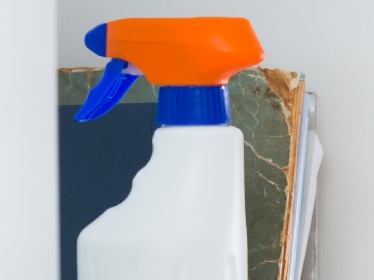
In today's fast-paced world, the dynamics of childcare have evolved significantly. Often, caregivers find themselves juggling multiple tasks while attempting to provide adequate attention to the child in their care. A recent observation of my maid while she was tasked with looking after my child raised important questions about the balance between monitoring and engagement in childcare. This article delves into the implications of caregivers watching television while supervising children and the necessary steps to ensure that every child receives the attention they deserve.
Caregivers in Child Development
1. The Importance of Attention
Caregivers play a critical role in a child's development. Their primary responsibilities often extend beyond mere supervision; they are instrumental in providing emotional support, reinforcing learning, and promoting social skills.
Key aspects of attention in childcare include:
- Emotional Security: Children require consistent emotional support from their caregivers to feel safe and secure.
- Active Learning: Engagement through play and conversation significantly enhances cognitive development.
- Social Interaction: Regular interactions help children develop their social skills, learning how to communicate and engage with others.
2. Distractions of Modern Life
With the advent of technology, distractions such as television can easily divert a caregiver's attention, leading to potential neglect of the child's needs.
Considerations include:
- Influence of Screen Time: Excessive screen time has been linked to behavioral issues in children. While educational programs can provide learning opportunities, mindless consumption of television can disrupt learning.
- Normalization of Multitasking: In many households, caregivers are expected to multitask. This often results in caregivers becoming preoccupied with television while neglecting the child's needs.
Observations in Practice
During my observation, I noted that my maid had a tendency to focus on television as a form of entertainment while supervising my child. This provoked immediate concerns for the safety and emotional needs of my child.
3. Addressing the Behavior
Upon recognizing this behavior, I utilized a camera for real-time monitoring and initiated protocol adjustments. Through clear communication, I emphasized the necessity for undivided attention when taking care of a child.
Strategies for Improvement:
- Clear Communication: Discussing expectations with caregivers ensures everyone is on the same page regarding childcare.
- Setting Boundaries: Establishing specific times when screen time is appropriate can create a balance between work and leisure.
- Active Engagement: Caregivers should engage in activities with the child, such as reading or playing, which are essential for development.
Establishing Guidelines for Caregivers
To encourage a more attentive environment, it's essential to lay out structured guidelines for caregivers.
4. Drafting Effective Protocols
Here are a few guidelines that can be put in place to promote focused childcare:
1. Daily Check-ins: Regular updates on the child's activities can promote accountability.
2. Activity Lists: Provide caregivers with various activities that they can engage in with the child to foster development.
3. Scheduled Screen Time: Designate specific times for the caregiver to watch television, ensuring this does not conflict with childcare responsibilities.
4. Educational Programming: If television is to be part of the day, select educational shows that can be watched together, making it an interactive experience.
Conclusion
While caregivers like my maid play an integral role in child supervision, it is crucial that their attention remains firmly on the child in their care. The influence of distractions, such as television, can significantly impact a child's emotional and social development. At okaylah indian maid agency, by establishing clear guidelines and ensuring active engagement, caregivers can cultivate a nurturing environment that prioritizes the needs of the child. Ultimately, fostering communication and setting expectations will ensure that caregivers maintain focus, ultimately enhancing the child's growth and happiness. In sum, creating a balanced approach to entertainment within the care environment not only protects children but also enriches their experiences, laying the groundwork for a brighter future.
At indian maid agency we do scren each biodata and does background verification.
My maid is very old now and cannot work any more
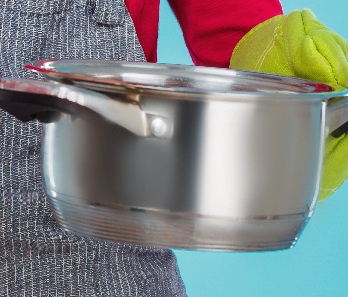
In today's fast-paced world, balancing household responsibilities with professional commitments can be a challenging task. Many families rely on domestic help to manage the complexities of household chores and childcare. However, as time passes, the dynamics of these arrangements can change. This article addresses the situation of an aging maid, who, despite her dedication and years of service, may no longer be able to fulfill the demands of the job. Specifically, it narrates the dilemma faced when the maid, who is now 50 years old, wishes to continue her role while the household workload exceeds her physical capacity. The aim is to explore how to approach such sensitive situations with professionalism and empathy.
Employment Decisions when your maid is quite old and cannot cope up with Work
The Load of Household Responsibilities
1. Understanding the Demands of the Job
The role of a maid varies considerably based on the needs of the household. Typical responsibilities often include:
- Cleaning: Regular dusting, vacuuming, and maintaining a hygienic living environment.
- Cooking: Preparing meals that meet the dietary preferences of all family members.
- Childcare: Supervising and assisting children with their daily activities and needs.
- Laundry: Managing the washing, ironing, and folding of clothes.
As family structures evolve and responsibilities increase, particularly with young children in the mix, the demands on domestic help can become overwhelming. For someone who has been working for years, like a 50-year-old maid, this burden may become increasingly difficult to manage.
2. Acknowledging Her Longevity and Contribution
The relationship formed between employers and domestic workers can be deeply personal. When a maid has dedicated years of service to a family, it is not just about fulfilling a work obligation; it often blossoms into a relationship built on trust. It's essential to recognize the following:
- Longevity: Years of service can create a strong bond and loyalty, making the prospect of parting ways challenging.
- Contribution: Their contributions often go beyond mere tasks, they become integral to the family's daily rhythm.
It is this reputation of reliability and connection that makes the conversation about continued employment so sensitive.
Challenges in Transitioning Employment
3. Mutual Understanding of Limitations
As health and energy levels decline, the capacity of older maids to engage in physically demanding tasks decreases. This can manifest in several ways:
- Increased fatigue
- Difficulty in performing tasks that require physical strength
- Slow adaptability to new techniques or tools
Both the employer and the maid need to engage in an open and honest dialogue about her capabilities and limitations. It's crucial to approach this conversation with care, ensuring she feels respected and valued while recognizing the reality of the situation.
4. Seeking Alternative Solutions
While this may be a challenging juncture in the employment relationship, there are alternative solutions to explore that can benefit both parties:
- Reduced Hours: Consider adjusting her hours to lessen her workload.
- Dividing Tasks: Delegating more strenuous tasks to younger or more capable help while retaining her for lighter duties.
- Training: Offering any necessary training or assistance that allows her to adapt to changes in work demands.
By engaging in discussions about possibilities, a feasible path can emerge that enables her to remain part of the household dynamic while ensuring that tasks are adequately covered.
Conclusion
Navigating the complexities of domestic employment, particularly with aging help, requires a balance of empathy and practical considerations. The case of a 50-year-old maid wishing to continue despite the increasing demands on her ability underscores the need for a compassionate approach in addressing employment. It is essential to recognize and value her years of service while also being honest about the changing dynamics of domestic work.
In the end, the aim should be to preserve the dignity and respect of the individual while ensuring that household needs are met. This transitional phase, though hard, can serve as an opportunity to strengthen bonds, foster communication, and explore new ways to adapt in an ever-evolving home environment. As okaylah indian maid agency manage this delicate conversation, we uphold a professional and humane philosophy, where every person's contributions are acknowledged and valued.
At indian maid agency we do scren each biodata and does background verification.
My maid is missing her kids and keep looking at phone

In today's fast-paced world, many families find themselves struggling to balance work, family responsibilities, and personal life. For those who require assistance in managing their households, hiring a maid can be a practical solution. However, the dilemma often lies in choosing the right maid for your needs. While there are many options available, selecting an experienced maid can offer significant advantages. This article delves into the reasons why opting for an experienced maid is a wise decision, particularly for busy individuals who may not have the time to train new help.
Understanding the Impact of maid personal issues on Work Performance
The dynamics of a household often hinge on the contributions of domestic help. They play a crucial role in maintaining the home environment, allowing families to focus on their professional and personal endeavors. However, personal challenges faced by workers can impact their performance and, consequently, the household dynamics. A pertinent example is my maid, who, despite her dedication, frequently finds herself distracted, particularly due to her yearning for her children. This article explores the implications of such emotional states on work performance and offers insights into possible solutions for maintaining household efficiency while addressing the emotional needs of domestic workers.
The Emotional Connection to Family
1. The Importance of Family Ties
For many domestic workers, their families are the cornerstone of their existence. This is especially true for my maid, whose emotional connection to her children is palpable. According to research, having strong familial bonds can be a source of both joy and anxiety. The emotional weight of being away from loved ones can lead to:
- Heightened Sensitivity: The strain of separation can make individuals more sensitive to their surroundings and tasks.
- Increased Distraction: Constant thoughts about one's family can shift focus away from work responsibilities.
2. Cultural and Social Dimensions
In many cultures, leaving one's family behind for work is not uncommon, reflecting broader socio-economic realities. Workers often make significant sacrifices to provide for their families. Understanding the cultural backdrop of my maid's situation is essential in grasping her behaviors, which includes:
- The Necessity of Employment: Many domestic workers take on jobs far from home to secure financial stability for their families.
- Emotional Toll: The persistent worry about children's welfare can lead to mental stress, which often manifests as distraction.
The Impact on Work Performance
1. Observational Signs
In my case, my maid's persistent glances at her phone during work hours illustrate her emotional struggle. This behavioral pattern not only affects her productivity but also the overall household efficiency. Key signs indicative of such distractions include:
- Decreased Focus: Tasks that typically require attention become less prioritized.
- Increased Errors: A wandering mind can lead to mistakes in household duties, which could detract from the quality of work.
2. Communication Breakdown
Another significant consequence of her emotional state is the potential breakdown in communication. By remaining preoccupied with personal concerns, she might miss important cues or instructions, which can result in misunderstandings that further complicate household tasks.
Addressing the Issue
1. Open Communication
Initiating an open dialogue with my maid about her feelings regarding her children could foster understanding. A supportive conversation may encourage her to express her concerns and could potentially lead to a mutually beneficial arrangement. Some steps to consider include:
- Setting Aside Time for Discussion: Schedule casual talks where feelings can be shared without judgment.
- Listening with Empathy: Acknowledge her feelings as valid, reinforcing a supportive environment.
2. Flexible Work Arrangements
Adaptability in her work schedule might alleviate some of the emotional burden she experiences. Possible solutions could include:
- Flexible Hours: Allowing her to adjust her working hours could enable her to allocate specific times to communicate with her family.
- Short Breaks: Granting her brief intervals to check her phone or take a moment for herself can enhance her emotional well-being.
Conclusion
Balancing the needs of a household with the emotional well-being of domestic help is a challenge faced by many families. At Okaylah Indian maid agency, Understanding the underlying reasons for my maid's distraction offers a pathway to improving both her work performance and her emotional state. Through open communication and possible adjustments to her work schedule, it is possible to foster an environment that values not just productivity but also emotional support. In doing so, we can create a more harmonious household where both the employer and the employee thrive. By recognizing and addressing these issues, we contribute to a more empathetic and understanding work culture for all.
At indian maid agency we do scren each biodata and does background verification.
Why should employer choose an experienced maid?
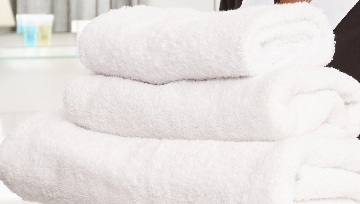
In today's fast-paced world, many families find themselves struggling to balance work, family responsibilities, and personal life. For those who require assistance in managing their households, hiring a maid can be a practical solution. However, the dilemma often lies in choosing the right maid for your needs. While there are many options available, selecting an experienced maid can offer significant advantages. This article delves into the reasons why opting for an experienced maid is a wise decision, particularly for busy individuals who may not have the time to train new help.
1. Expertise and Efficiency
An experienced maid comes well-equipped with the necessary skills to manage a household effectively. Here are some key reasons why their expertise matters:
- Familiarity with Cleaning Techniques: Experienced maids possess a refined understanding of various cleaning methods and products. They know which materials to use on different surfaces, ensuring your home is not only clean, but also well-maintained.
- Time Management Skills: Having worked in multiple households, experienced maids often excel in managing their time. They can prioritize tasks effectively, ensuring that your home runs smoothly without unnecessary delays.
- Problem-Solving Abilities: With practical experience, these maids can quickly identify and resolve issues that may arise in the household. Whether it's dealing with stubborn stains or figuring out the best way to organize clutter, their insight can save you lots of hassle.
2. Reliability and Trustworthiness
Trust is a crucial aspect when allowing someone into your home. An experienced maid can provide peace of mind in several ways:
- Proven Track Record: An established maid likely comes with references and a history of positive experiences. This offers a layer of assurance regarding their reliability and professionalism.
- Adaptability to Household Needs: Experienced maids have worked in a variety of environments and are adept at understanding different household dynamics. They can seamlessly adapt to your family's routines, preferences, and specific needs.
- Loyalty and Long-Term Commitment: Experienced maids often seek stable employment, which translates into loyalty and a long-term commitment to their work. This stability fosters a trusting relationship between the maid and the family.
3. Immediate Contribution to Household Management
When hiring a maid, many individuals may consider the investment of time in training as a major factor. That's where an experienced maid excels:
- No Training Required: If you're pressed for time, training a new maid can be a daunting task. Experienced maids can step in and start contributing immediately to household management without the need for extensive guidance.
- Skill in Household Management: Many experienced maids bring a wealth of knowledge in organization and household management. They can help streamline chores, arrange schedules, and even assist in meal preparations, giving you time to focus on other priorities.
4. Enhanced Comfort and Convenience
An experienced maid not only contributes practically but also enhances the overall atmosphere of your home:
- Polite and Professional Demeanor: Experienced maids often understand the importance of professionalism. Their courteous attitude and respectful nature can create a pleasant environment conducive to harmonious living.
- Cultural Sensitivity: Individuals from agencies like Okaylah, which specializes in hiring from specific regions like Darjeeling, might offer cultural sensitivity and understanding. This factor can enhance the asset of personal support that such helpers provide.
- Support Beyond Cleaning: Many experienced maids possess additional skills, such as cooking, childcare, or elder care. This diverse skill set means they can offer more comprehensive support tailored to your family's needs.
Conclusion
Choosing an experienced maid can significantly alleviate the pressures of managing a household, especially for those with limited time for training and supervision. With their expertise, reliability, and ability to contribute from day one, experienced maids can transform the way a home functions. By opting for a maid with a proven background, like those from the Okaylah indian Maid Agency, you can focus on what truly matters in your life while ensuring that your home is in capable hands. Investing in an experienced helper not only enhances household efficiency but also paves the way for a more balanced life. Consider the advantages outlined, and make an informed choice that best meets your needs.
At indian maid agency we do scren each biodata and does background verification.
Why keeping housemaid for working couple is good?

In today's fast-paced world, the dynamics of family life have changed significantly, especially for working couples balancing careers with family responsibilities. As many couples find themselves navigating demanding jobs, maintaining household tasks can become overwhelming. Hiring a housemaid to aid in daily chores has emerged as a practical solution. Here, we explore the various benefits that hiring a housemaid can offer to working couples.
Housemaid for Working Couples is Beneficial
1. Enhanced Work-Life Balance
One of the most significant benefits of employing a housemaid is the improved work-life balance it provides. Working long hours can leave couples with little energy or time to manage household chores efficiently. A housemaid can take on these responsibilities, allowing couples to focus more on their jobs and personal lives.
Benefits to Work-Life Balance Include:
- Reduced Stress: Alleviating household burdens helps minimize stress levels.
- Quality Family Time: Couples can dedicate more time to spend with each other and their children.
- Better Mental Health: Less clutter and chaos at home can lead to a more peaceful environment, contributing to better mental wellness.
2. Increased Productivity
When couples have the support of a housemaid, they can significantly increase their productivity, both in their professional and personal lives.
How Increased Productivity is Achieved:
- Focus on Work Tasks: With domestic responsibilities taken care of, individuals can concentrate better on their work projects.
- Energy Conservation: After a long day at work, the last thing anyone wants to do is tackle cleaning or laundry. With these tasks delegated, couples can conserve their energy for important work tasks.
- Efficient Time Management: A housemaid can help in planning and executing chores, leading to better use of time throughout the day.
3. Enhanced Home Environment
A tidy and organized home environment is conducive to both relaxation and productivity. An effective housemaid not only enhances cleanliness but also contributes to creating a welcoming space.
An Enhanced Home Environment Includes:
- Regular Cleaning: Housemaids ensure that homes remain clean, reducing the risk of illness associated with dirt and allergens.
- Organized Space: Having someone to organize household items and spaces can lead to increased efficiency in day-to-day activities.
- Time for Repairs: A housemaid can help identify small household maintenance issues early on, preventing them from turning into larger problems.
4. Flexibility & Customization
Housemaids offer services that can be tailored to the specific needs of working couples. This flexibility can be particularly beneficial for busy families.
Aspects of Flexibility and Customization:
- Part-Time or Full-Time Options: Couples can choose to hire a housemaid only on days when they need additional help.
- Specialized Services: Whether it's cooking, deep cleaning, or childcare assistance, couples can opt for specific services to suit their needs.
- Adaptable Schedules: Housemaids can often adjust their work hours to accommodate the couple's changing schedules, ensuring that support is available when it's needed most.
5. Economic Considerations
Although hiring a housemaid incurs costs, it is important to consider the economic implications and potential savings associated with this decision.
Economic Benefits Include:
- Time is Money: The time saved on household chores can be redirected towards working longer hours or pursuing career advancement, potentially leading to increased earnings.
- Cost-Effective Solutions: In regions where household help is more affordable, hiring a maid can be a cost-effective alternative to outsourcing tasks like cleaning or laundry services on an ad-hoc basis.
- Potential Tax Benefits: In some jurisdictions, hiring domestic help may allow for certain tax deductions, contributing further to economic feasibility.
Conclusion
In conclusion, hiring a housemaid can greatly benefit working couples by enhancing their work-life balance, increasing productivity, improving the home environment, offering customization, and presenting economic advantages. As modern professional life increasingly demands our time and attention, the support of a housemaid can be an invaluable asset. By delegating daily responsibilities, couples can focus on nurturing both their career ambitions and personal relationships, ultimately leading to a more harmonious, fulfilling life. As the saying goes, "A happy home is a happy life," and with the right support, couples can make their homes a place of solace and rejuvenation.
At indian maid agency we do scren each biodata and does background verification.
Which Nationality Maid is Best for Childcare?
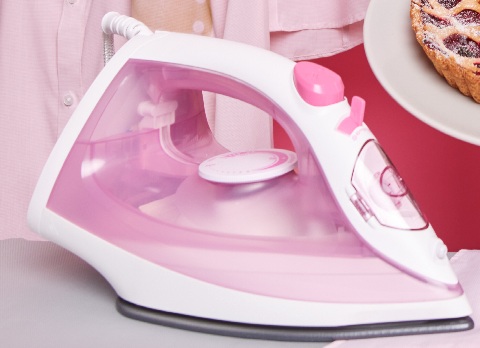
Choosing the right maid for childcare is a significant decision for many families. A suitable maid not only assists with day-to-day routines but also plays a crucial role in the emotional and educational growth of children. Different nationalities bring unique traits and characteristics that can influence their effectiveness in childcare. In this article, we will explore why maids from India, particularly from regions such as Darjeeling, Manipur, and Mizoram, are often regarded as some of the best choices for looking after children.
1. Cultural Sensitivity and Humility
One of the standout qualities of maids from Darjeeling is their inherent politeness and humility. These attributes are ingrained in their upbringing based on cultural values that prioritize respect and kindness. Here's why this is beneficial for childcare:
- Building Trust: Polite conduct helps establish a trusting relationship between the maid and the children, making them feel safe and secure.
- Positive Environment: A humble demeanor contributes to a calm household atmosphere, which is essential for healthy child development.
- Role Modeling: Children often emulate the behavior of adults around them. A maid displaying kindness can instill similar values in the kids.
2. Adaptability to Children's Needs
Maids from regions like Manipur and Mizoram are known for their ability to adjust quickly to new environments and routines. This adaptability is crucial when caring for children, who often thrive in structured yet flexible settings. Here are some key ways in which this adaptability plays a role in childcare:
- Customizable Routines: The ability to modify schedules based on children's moods or activities ensures that the kids are engaged and happy.
- Understanding Needs: They are adept at recognizing when a child requires additional attention or care, whether it's for educational purposes or emotional support.
- Coping with Change: Children may face difficulties in transitions, such as starting school or changes in family dynamics. An adaptable maid can help ease these transitions for a smoother adjustment.
3. Experience with Diverse Parenting Styles
Maid professionals from these regions often come from varied backgrounds and have experience with different parenting styles, which equips them with insights and strategies that can cater to individual family dynamics effectively.
- Respect for Tradition: They understand and respect traditional parenting values that many families uphold, providing an essential bridge between cultural expectations and modern practices.
- Implementing Strategies: They can effectively blend various childcare strategies, ensuring that children's needs are addressed holistically.
- Communication Skills: With their exposure to diverse cultures, these maids often possess strong communication skills, which are invaluable in understanding and addressing children's concerns.
4. Nurturing Nature
A nurturing disposition is often observed in maids from Darjeeling, Manipur, and Mizoram. Their ability to connect with children on an emotional level is a vital component of effective childcare. Here's how this nurturing nature benefits children:
- Emotional Support: A nurturing maid can provide the emotional comfort that children often require, especially during tough times or periods of change.
- Encouragement and Motivation: They are generally enthusiastic and encouraging, fostering a love for learning and exploration in children.
- Creativity in Play: A nurturing maid often engages children in creative play, which is essential for cognitive and social development.
Conclusion
When considering which nationality maid is best for childcare, it becomes evident that those from India, particularly Darjeeling, Manipur, and Mizoram, embody many commendable traits, politeness, adaptability, diverse experiences, and nurturing instincts. These characteristics significantly contribute to an enriching environment for children. As parents, understanding the advantages of hiring a maid from these regions can lead to better outcomes for child development. In a world where quality childcare is paramount, the search for the right maid can yield rewarding dividends for both children and families alike.
By appreciating the unique offerings of different nationalities, families can make informed decisions that not only address practical needs but also enrich the lives of their children.
At indian maid agency we do scren each biodata and does background verification.
Maid is giving suggestion in my personal matters

In today's world, the dynamic between employers and domestic workers has evolved significantly. The relationships formed can sometimes blur the lines, especially when a sense of familiarity and trust is established. However, it's essential to maintain appropriate boundaries, particularly when it comes to personal matters. This article explores the delicate balance of interaction with domestic help, focusing on situations when your maid begins to offer unsolicited advice during familial discussions.
Setting Personal Boundaries with Domestic Help
Understanding the Role of Domestic Workers
Domestic help, whether it be a maid, cleaner, or housekeeper, plays a vital role in many households. They are not just employees; they often become part of the family unit over time. Their contributions allow families to manage busy lifestyles more effectively, and it's natural for relationships to grow as a result. However, understanding their role is crucial to maintaining a respectful boundary.
1. The Importance of Professional Boundaries
Creating a clear distinction between personal relationships and professional responsibilities is fundamental. Here's why:
- Preserving Professionalism: Treating domestic help like family can lead to complications. While collaboration and friendliness are essential, the primary goal should be respecting professional boundaries.
- Avoiding Role Confusion: When a maid starts to give suggestions or advice about personal matters, it can lead to ambiguity regarding their role. This confusion can disrupt the work dynamic and potentially lead to discomfort for both parties.
- Maintaining Clarity: Clear expectations can help maintain a focused working relationship. This includes understanding what subjects are appropriate for discussion and what should remain confidential to the family.
When Advice Turns into Overstepping
A maid's intentions may often come from a place of care or concern; however, unsolicited advice on personal matters may often feel overstepping. A few common instances might include:
1. Family Dynamics: Discussions about family issues, such as parenting styles, marital problems, or financial concerns, might invoke unsolicited opinions from a maid.
2. Personal Life Choices: Topics such as career changes, lifestyle choices, or personal relationships may invite unwanted suggestions.
3. Health and Well-being: Advice regarding health matters or personal habits can blur the lines of privacy, leading to discomfort.
Recognizing these scenarios can help in addressing the matter effectively.
Strategies for Opening the Lines of Communication
Addressing these matters doesn't have to lead to conflict. Instead, maintaining open lines of communication can lead to resolution while preserving positive relations. Here are some strategies:
1. Set Clear Guidelines
Articulate what topics are appropriate for general discussion. You might say something like, "I appreciate your concern, but I prefer to handle family matters privately." This approach maintains cordiality and respect.
2. Foster a Family-Centric Environment
If your maid is involved in family discussions, encourage topics that revolve around household matters or light conversations. Avoid delving into deeper, personal issues in her presence to prevent unsolicited advice.
3. Practice Assertiveness
If she disregards the established boundaries, it's important to assertively but kindly remind her of your preferences. Communicating your feelings can be empowering and beneficial in maintaining a harmonious environment.
Conclusion
Navigating the complexities of relationships with domestic help is essential for both parties. While it is commendable to foster familial bonds, it is equally important to maintain the necessary boundaries that define these relationships. Clearly articulated expectations, respectful communication, and assertiveness when needed will contribute to a better working atmosphere. Maintaining these boundaries ultimately protects personal privacy and ensures a productive relationship. As we cultivate our homes and families, let's remember to preserve the sanctity of personal matters, keeping the line between domestic assistance and familial involvement distinctly defined.
At indian maid agency we do scren each biodata and does background verification.
Should I Hire a Maid or Caregiver?
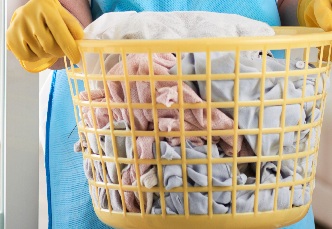
In an ever-busy world where personal and professional responsibilities constantly vie for our attention, the presence of a supportive member in the household can provide immense relief. However, the choice between hiring a maid or a caregiver can be perplexing. Both roles offer unique benefits and have distinct functions, especially regarding childcare and elderly assistance. This article aims to provide clarity on this topic and guide you in making a well-informed decision.
Understanding the profiles Maid Vs Caregiver
1. The Caregiver profile
Caregivers are specialized professionals trained to provide comprehensive care for the elderly or those with illnesses. This role often requires formal training and certification in caregiving, preparing them to assist with daily living activities and health care needs. Here are some key features of hiring a caregiver:
- Specialized Skills: Caregivers possess the expertise needed to handle age-related concerns, including mobility issues, medication management, and communication difficulties.
- Health Monitoring: They can monitor vital signs and symptoms, and help in managing medical appointments, thereby ensuring timely healthcare adherence.
- Emotional Support: The emotional well-being of the elderly is crucial, and caregivers often provide companionship, reducing feelings of isolation or depression.
2. The Maid Profile
Maid services typically focus on household cleaning and basic management tasks. While they may assist with children and the elderly, their primary responsibilities usually do not include medical or specialized care. Here are the salient features of hiring a maid:
- Housekeeping Expertise: Maids are trained to keep homes tidy, organized, and clean, often handling laundry, cooking, and cleaning duties.
- Childcare: Many maids can take on childcare roles, providing supervision and assistance to children while parents are busy.
- Flexibility: Maids can work part-time or full-time based on your family's needs, providing a range of services tailored to your situation.
Weighing the Pros and Cons
When deciding between hiring a maid and a caregiver, it's essential to consider the pros and cons of each role.
Caregiver: Pros and Cons
Pros:
1. Tailored Care: They provide personalized attention to the elderly or sick, focusing on individual needs.
2. Experience with Medical Needs: Caregivers are trained to handle medical responsibilities, giving families peace of mind.
3. Support with Daily Living: They assist with nourishment, mobility, and personal hygiene, ensuring safety and comfort.
Cons:
1. Higher Costs: Caregiving can be more expensive than hiring a maid due to the specialized training and services provided.
2. Limited Household Management: While they can assist with basic chores, they may not handle comprehensive cleaning or organization tasks.
Maid: Pros and Cons
Pros:
1. Affordability: Typically, hiring a maid is less costly than a caregiver, making it more accessible for families on a budget.
2. Focus on Household Duties: They keep the household in order, allowing other family members to concentrate on their commitments.
3. Flexible Schedules: Maids can provide service according to your hours, allowing for greater flexibility.
Cons:
1. Lack of Medical Training: Maids do not have specialized training to handle the health needs of the elderly or sick individuals.
2. Limited Elderly Support: While they can offer companionship, they may not provide adequate support in managing complex health issues.
Making the Right Choice
Ultimately, the decision to hire a maid or caregiver hinges on your specific needs and circumstances. Here are some considerations to help guide your choice:
1. Assess Your Requirements: Begin by identifying what type of assistance you require, whether it's basic cleaning, childcare, or specialized elder care.
2. Evaluate Budget Constraints: Consider your financial situation and understand which option aligns with your budget.
3. Consider the Family Dynamics: Think about the personalities and preferences within your family, and how each type of support may fit into your lifestyle.
Conclusion
In conclusion, both maids and caregivers play vital roles in supporting families; however, their functions diverge significantly. Caregivers provide specialized assistance with health and emotional needs, making them well-suited for elderly care, while maids excel in managing household tasks and offering basic child supervision. Understanding your specific needs, budget, and family dynamics will be critical in making the right choice. As you weigh your options, consider the long-term benefits that either role can provide, and how each will enhance the overall well-being of your household.
At indian maid agency we do scren each biodata and does background verification.
Maid is forgetting things repeatedly and i am keep repeating
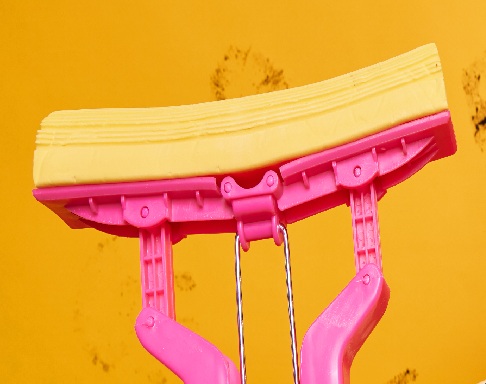
In both professional environments and household settings, effective communication and productivity are key for harmonious living and work arrangements. However, it can be frustrating when a hired help, such as a maid, consistently forgets critical responsibilities. This article delves into the issues of forgetfulness in hired help, offering a structured approach to address the situation while fostering a positive working relationship.
Addressing Repeated Forgetfulness by maid in Household
Understanding the Issue of Forgetfulness
Forgetfulness in domestic tasks, particularly when it concerns food preparation and safety, can have serious implications. In your case, having communicated multiple times that the cut vegetables should not be left open for hours indicates a failure in adherence to necessary protocols to maintain family health and hygiene.
1. Health Risks: Open food can attract bacteria, making your family vulnerable to foodborne illnesses. In your situation, this risk is compounded as your whole family is already sick.
2. Inefficiency: The need to repeat instructions suggests an inefficiency in task completion, as valuable time is wasted when tasks are not executed correctly the first time.
3. Frustration and Stress: Repeated oversight can lead to significant frustration, worsening the overall atmosphere in the home, especially when you have already emphasized the importance of the task.
Establishing Clear Communication
The cornerstone of any effective working relationship is communication. Here are some steps to improve this aspect with your maid:
1. Document Instructions: Write down clear and concise instructions regarding food preparation and safety practices. This can act as a reference for her that can help jog her memory.
2. Use Visual Aids: Consider using visual reminders, such as sticky notes placed near cutting boards or storage areas, to reiterate the importance of food safety.
3. Frequent Check-Ins: Schedule regular brief check-ins to discuss her progress and clarify any doubts about the tasks. This can be structured as a daily or weekly meeting depending on your schedules.
Reinforcing Training and Procedures
In instances where forgetfulness persists despite communication, it may be beneficial to provide some refresher training regarding her responsibilities, especially in cooking and food safety.
1. Demonstrate Procedures: Show her how tasks should be performed, emphasizing the importance of not leaving cut vegetables exposed. Demonstrating can be more effective than merely telling.
2. Encourage Questions: Create an environment where she feels comfortable asking questions if uncertain about the task requirements. This can reduce the chances of oversights.
3. Set Expectations: Clearly communicate your expectations in terms of task execution, timelines, and standards of hygiene. This provides her with a concrete basis upon which to operate.
Monitoring and Feedback
After implementing the above steps, it is important to monitor progress and provide constructive feedback:
1. Observe Changes: Pay attention to improvements or ongoing issues in her task execution. It's crucial to acknowledge any positive changes to encourage continued improvement.
2. Provide Feedback: If tasks are executed correctly, provide positive reinforcement. Conversely, if she continues to forget instructions, address the issues promptly to prevent them from recurring.
3. Discuss Consequences: If forgetfulness persists despite multiple attempts to address it, you may need to discuss the potential consequences of ongoing performance issues. This should be handled delicately but firmly.
Conclusion
Addressing repeated forgetfulness in household help requires a systematic approach that encompasses effective communication, proper training, and ongoing feedback. As you work with your maid to improve her performance, it's important to remain patient and understanding, as this fosters a supportive environment conducive to learning. Remember, your goal is not only to ensure that tasks are done correctly but also to maintain a cordial working relationship that benefits both parties. By fostering an environment of collaboration, you can expect improved adherence to instructions and a healthier family dynamic.
At indian maid agency we do scren each biodata and does background verification.
Maid do not eat vegetables and mostly on noodles

In today's fast-paced world, dietary habits have significant implications for our health and wellbeing. For many individuals, convenience often overrides nutritional value when it comes to meal choices. This has been evident in my own household, where I noticed that my maid predominantly consumes noodles while neglecting vegetables and other essential food groups. With an aim to promote a healthier lifestyle, I've encouraged her to diversify her diet. However, she continues to favor noodles and plain rice, raising concerns about her long-term health. This article will explore the implications of her dietary choices and the importance of a balanced diet for maintaining good health.
The Diet of Noodles for maid
1. Nutritional Deficiencies
Noodles are a popular quick meal choice for many due to their ease of preparation. However, relying predominantly on noodles can lead to nutritional deficiencies.
- Lack of Essential Nutrients: Noodles often lack essential vitamins and minerals that are crucial for the body's functioning, such as vitamin A, vitamin C, and various B vitamins.
- Low Fiber Content: A diet high in refined carbohydrates like noodles can lead to insufficient fiber intake, which is vital for digestive health.
In contrast, vegetables are rich in nutrients and provide a wide range of health benefits, including preventing chronic diseases. By avoiding vegetables, my maid may not be receiving the necessary nutrients to support her immune system and overall health.
2. Over-reliance on Carbohydrates
Eating predominantly noodles can create an imbalance in macronutrient intake, leaning heavily towards carbohydrates.
- Risk of Blood Sugar Spikes: Foods high in refined carbohydrates can cause rapid spikes in blood sugar levels, leading to energy crashes and cravings for more carbs.
- Potential Weight Gain: A carbohydrate-heavy diet, particularly when not balanced with proteins and healthy fats, can contribute to unwanted weight gain over time.
It is essential to incorporate a variety of food groups into one's diet to maintain balanced energy levels and healthy body weight.
The Role of Vegetables in Health
1. Health Benefits of Vegetables
Incorporating a colorful variety of vegetables into the diet offers numerous health benefits.
- Rich in Antioxidants: Vegetables are high in antioxidants that help combat oxidative stress and reduce inflammation in the body.
- Support Digestive Health: High fiber content from vegetables promotes healthy digestion and regular bowel movements.
Encouraging my maid to embrace vegetables can potentially enhance her overall health and resilience against illnesses.
2. Practical Solutions for Dietary Improvement
Despite her preference for noodles, there are practical strategies that encourage healthier eating habits.
- Gradual Introduction of Vegetables: Start by adding small portions of finely chopped vegetables into her noodle dishes. This can be a gentle way to introduce new flavors and textures.
- Experimenting with Vegetable-Based Noodles: Consider using vegetable-based noodle alternatives, such as zucchini or carrot noodles, which can offer a nutritious twist while maintaining the noodle format she prefers.
By creating an environment where healthy options are accessible and appealing, it can encourage the adoption of better eating habits.
Conclusion
The dietary habits observed in my maid reveal the significance of balancing convenience with nutrition. While her preference for noodles may stem from their ease of preparation, it is crucial to recognize the potential long-term health implications that arise from such a limited diet. By incorporating vegetables into her meals and gradually introducing new foods, we can work towards promoting better health outcomes. Ultimately, a balanced diet plays a pivotal role in enhancing overall wellbeing, paving the way for a healthier and more resilient lifestyle. Through education and support, we can all strive to make positive changes in our dietary choices for the sake of our health.
At indian maid agency we do scren each biodata and does background verification.
We are going on vacation, where to leave our helper?
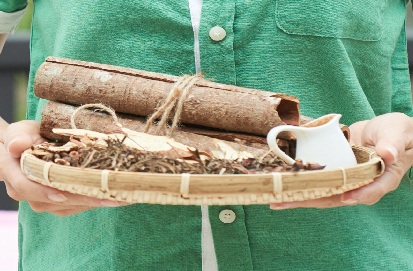
Planning a vacation can be an exciting yet daunting task, especially when it comes to making arrangements for household helpers. If you're wondering what to do with your helper while you are away, you are not alone. Many families face this dilemma when considering their options. In this article, we will explore two primary choices: trusting your helper to stay in your home or arranging for temporary lodging.
We Are Going on Vacation: Where to Leave Our Helper?
Option 1: Trusting Your Helper at Home
One of the most common solutions is to leave your helper in your home while you travel. This option may provide the familiarity and convenience of staying in a known environment. However, it does come with considerations that require thoughtful evaluation.
Key Considerations When Leaving Your Helper at Home:
1. Trust and Reliability: The foundation of this option lies in the level of trust established between the employer and the helper. Ensure that this relationship is strong and that the helper is reliable.
2. Security of Valuables: Before leaving, secure your valuables. Lock your master bedroom and other sensitive areas of your home. This precaution can reduce the risk of potential theft and ensure peace of mind while you're away.
3. Household Responsibilities: Clearly outline the responsibilities you expect your helper to carry out during your absence. This may include taking care of pets, maintaining the garden, or managing household chores.
4. Emergency Protocols: Provide your helper with a list of contacts and instructions for emergencies. This list could include nearby friends or family and your preferred service providers.
5. Duration of Absence: Consider how long you will be gone. If it's for an extended period, reevaluate whether this option is suitable for both you and your helper.
By carefully weighing these factors, you can determine whether leaving your helper at home is a viable decision.
Option 2: Sending Your Helper to Lodging
If you prefer not to leave your helper in your home, sending her to lodging can be a practical alternative. This option typically involves a small fee for accommodation, ranging from $25 to $35 per night. Below are some considerations regarding this choice:
Benefits of Utilizing Lodging:
1. Safety and Security: Lodging facilities provide a secure environment, potentially reducing the risk of any issues that may arise at home.
2. Social Interaction: By placing your helper in a communal lodging, she'll have the opportunity to meet and socialize with others, which can be beneficial for her well-being.
3. Professional Management: Established lodging facilities often have management practices in place, ensuring that guests are cared for and safe.
4. Ease of Logistics: Many lodging options are equipped with the basic necessities, contributing to an easier transition for your helper during your absence.
5. Predictable Costs: The nightly rate for lodging enables straightforward budgeting for your trip. Knowing the lodging cost in advance can help in your overall vacation planning.
While this option may seem like an additional expense, the peace of mind it offers often outweighs the costs involved.
Conclusion
In deciding where to leave your helper while you go on vacation, it's crucial to weigh both options: trusting her to stay in your home or arranging for lodging. Both choices come with their respective considerations of trust, security, and logistics.
Ultimately, the right solution depends on your relationship with your helper, her past experiences, and your comfort level. Taking time to assess the implications of each option can lead to a more relaxed vacation for everyone involved. Whatever choice you make, clear communication and planning will pave the way for a smooth transition during your holiday. After all, the peace of mind of knowing your helper is well-cared for is essential to enjoy your getaway fully.
At indian maid agency we do scren each biodata and does background verification.